Race for the Vaccine
Life in Poetry
Meet the ‘Boy’ Behind the Brand
Accessing Aviation
A Taste of PR
Epidemic of Mistruth
OC Will Moy with the full facts
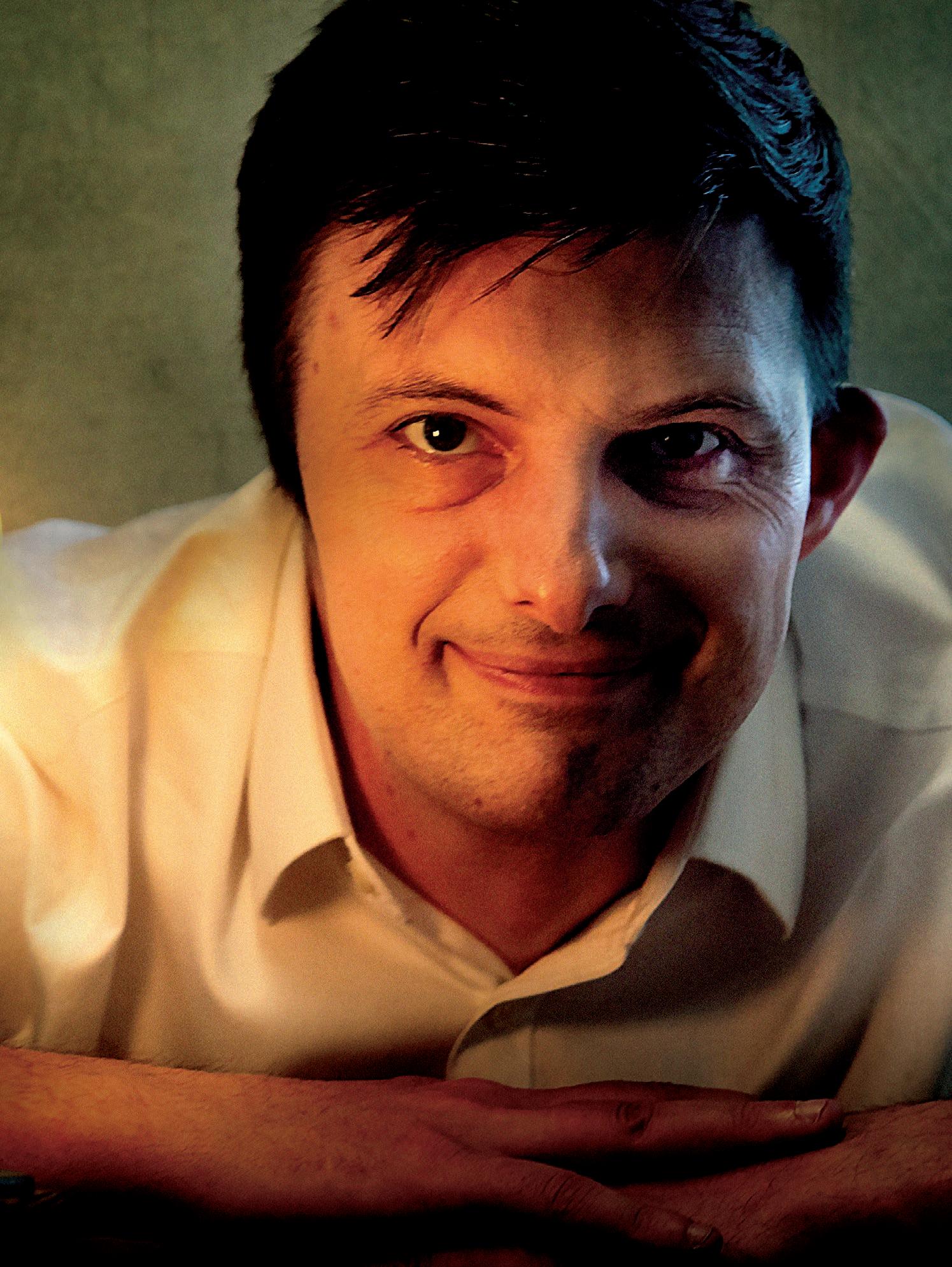
The magazine for the Caterham School community Issue 09. 2021
FROM THE EDITOR
ANNIE HEBDEN
Our Caterham Connected platform continues to grow, where you can stay connected and network with our whole community. You can also access past issues of Omnia or webinars you may have missed through the Media Hub.
Thank you to all the contributors that have taken part in interviews and shared their news, stories and photographs to create this edition of Omnia . If you would like to make a contribution to a future edition of Omnia , please do not hesitate to contact me.
With best wishes
Hebden
annie.hebden@
caterhamschool.co.uk
01883 335091
CONTRIBUTORS
Penny Adam (née Quittenton) (OE 1958 – 1963)
Cameron Affleck (OC 2005 – 2015)
Rebecca Allison (née Tappin) (OC 1994 – 1996)
Leonard Ashley (OC 1936 – 1941)
Chris Atkin (OC 2000 – 2007)
Colin Bagnall (OC 1949 – 1955)
India Barton (OC 2013 – 2019)
Christy Bennett (OC 2013 – 2018)
Celia Berent (OE 1951 – 1961)
Olivia Blandford-Guyon (OC 2002 – 2007)
Josephine Branson (OC 2012 – 2017)
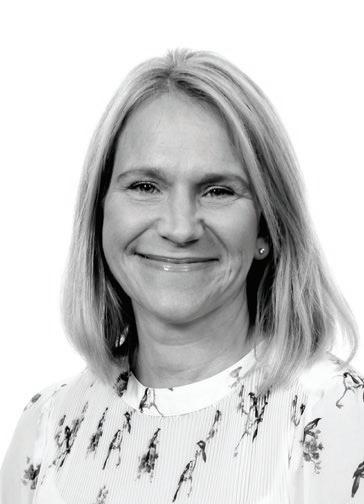
Dr Paul Craven (Current Parent)
Benjamin Cusden (OC 1978 – 1983)
Aimee Egglesfield (OC 2013 – 2017)
Kate Eighteen (née Davey) (OC 1995 – 2003)
Colin Eustace (OC 1945 – 1948)
Nell Fahey (OC 2005 – 2019)
Yasu Fujio (OC 2004 – 2006)
Lucy Gillett (OC 1995 – 2001)
Josh Higginson (OC 2010)
Max Hristov (OC 2015 – 2020)
Geraldine Lundy (OE 1971 – 1978)
Shaocheng Ma (OC 2008 – 2010)
Sabrina Mak (OC 2014 – 2020)
Jessica Malpas (née Martin) (OC 2000 – 2007)
Rory Moore (OC 2004 – 2019)
David Moore (OC 1942 – 1949)
Nigel Moseley (OC 1968 – 1975)
Will Moy (OC 1991 – 2001)
Sara Norman (née Mackay) (OC 1992 – 1994)
Margaret Price (OE 1945 – 1956)
Bethany Quinton (OC 2003 – 2015)
Jemima Rawlings (OC 2001 – 2016)
Abby Sharp (OC 1998 – 2005)
Emma Louise Waldren (née Cross Vetriano) (OC 2002 – 2006)
Professor David Walters OBE (OC 1946 – 1952)
Richard Webb (OC 2009 – 2016)
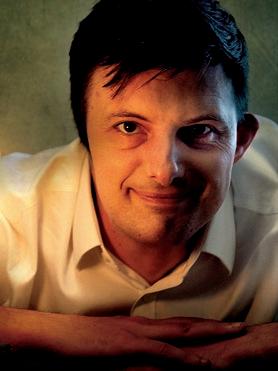
Alan Witt (OC 1947 – 1958)
Dr Richard Wright (Former Parent)
Theo Wright (OC 2006 – 2019)
OMNIA Issue 09 Autumn/Winter 2021 01
Cover photograph of Will Moy by picturepartnership.co.uk
Omnia designed and produced by Haime & Butler haime-butler.com
From setting the record straight in politics, to fighting the pandemic and fighting for the rights for all to access aviation – these are just a few of the inspiring interviews with members of our Caterham School community who are truly making a difference.
Annie
Alumni Officer
Race for the Vaccine Life in Poetry Meet the ‘Boy’ Behind the Brand Accessing Aviation A Taste of PR The magazine for the Caterham School community Issue 09. 2021 Epidemic of Mistruth OC Will Moy with the full facts
Welcome
From the Headmaster, President of the OCA, Caterham Connected and Chair of the PA.
Forthcoming Events
Looking forward to holding events again from Autumn 2021 to Summer 2022.
Race for the Vaccine
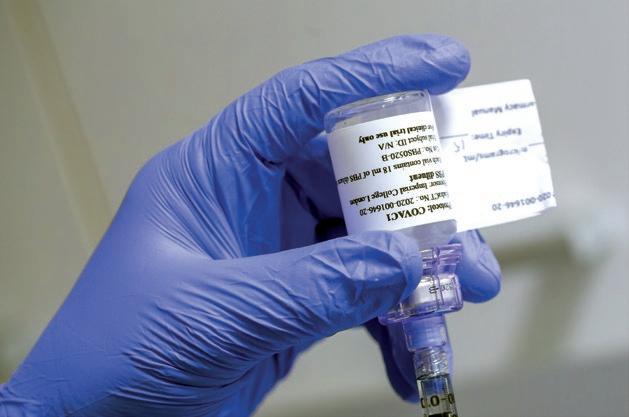
An Interview with current parent Dr Paul Craven, Head of Research Operations at Imperial College London.
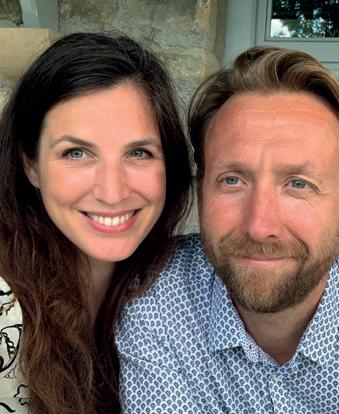
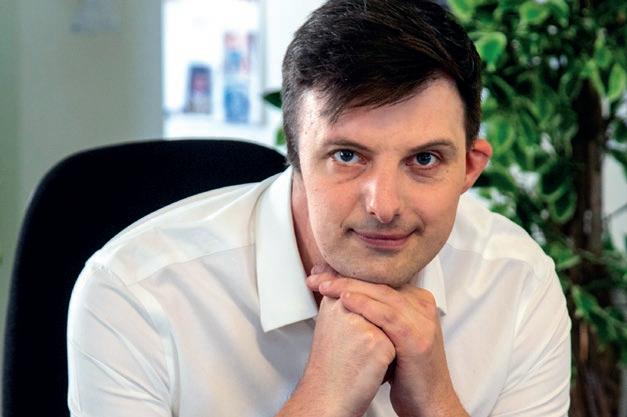
Beating the War on COVID
OC Olivia Blandford-Guyon shares her experiences as an RAF Nursing Officer during the pandemic.
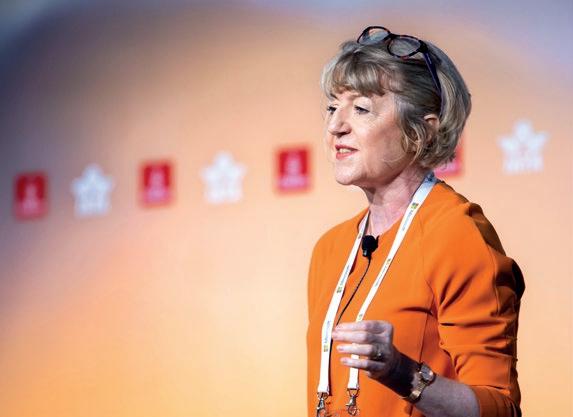
Award from No. 10 for OC Rory Moore
Rory set up the largest COVID-19 volunteering network in the world.
Recent Events
A showcase of events of the past year.
Epidemic of Mistruth
Former pupil, Will Moy, talks about establishing his fact checking charity Full Fact.
The Wright Society
An interview with Dr Wright by pupils Max Fogelman and Louie Steel.
CONTENTS
Mentorship Matters
The benefits of Caterham Connected for anyone in the school community.
Life in Poetry
OC Benjamin Cusden describes how his poetry provided him a lifeline.
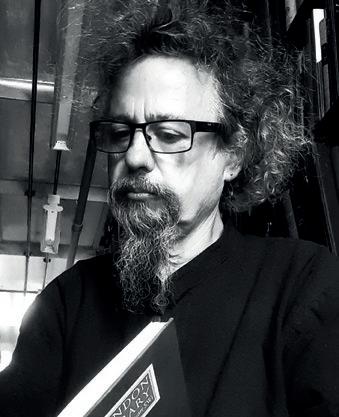
Meet the ‘Boy’ Behind the Brand
OC Josh Higginson tells us about his idea for setting up the unearthed brand in a class presentation aged 16.
The Development Report
Emma Collings, Director of Development reviews the work of the past year.
Innovating Education
Caterham School continues to lead the way in harnessing innovation.
Caterham Shadow Board
A pupil-body that supports and challenges the decision making of the School.
Old Cat News
Read about what fellow OCs have been up to.
Accessing Aviation
OE Geraldine Lundy talks about her work for accessibility in the workplace.
Welcome to the OCA Heads of School give their advice to their successors.
79 85 91 99 101 104 111
Restoring a Georgian Country Estate
OC Rebecca Allison reflects on the challenge of transforming a dilapidated country estate into a stunning Yorkshire retreat.
A Taste of PR
OC Sara Norman describes a career in Public Relations and promoting some of the world’s most glamorous destinations.
In the Archives
From the Memorial Hall to an interview with OC Leonard Ashley, for whom the School was a safe haven in WW2, by the Junior History Society.
Partnerships Growing
Together
Caterham Partnerships with schools and organisations flourished last year.
Perfecting Serendipity
An interview with OC Colin Eustace by pupils Rosie Home and Michelle Wong.
Why Study...
Read advice from OCs who are currently studying at university.
Obituaries
Giving thanks for the lives of members of the Caterham School community.
caterhamconnected.co.uk 02
04 41
11 43
11 73 45 35
07
73 17 45
35 77 49 53 55 61
19 20
79
63
Caterham
Caterham Connected offers the whole school community a professional and social network caterhamconnected.co.uk

Connect with the huge community of Old Cats, parents and friends of the School
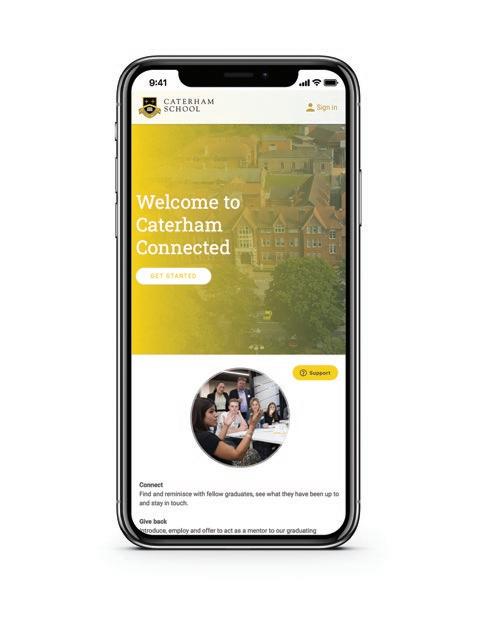
Stay updated with news and events
Benefit from this invaluable professional resource to find mentoring, work experience and career opportunities
For desktop version:
• Log in online to: caterhamconnected.co.uk
• Join using LinkedIn, Facebook or your email address
• Customise your settings and get networking
Download the mobile app: Visit your app store…
• For Apple iOS users, download ‘Graduway Community’ and find ‘Caterham School’ in the dropdown when asked for the name of your institution
• For Android users, just search for ‘Caterham School’
OMNIA Issue 09 Autumn/Winter 2021 03
Caterham School Graduway Community Download the Caterham Connected app Enabled by the Old Caterhamians' Association For friends of yours not yet connected – please do spread the word, the more people on this platform, the greater the professional resource and benefit to all. #CaterhamConnected
Connected Join our online networking platform today
APP NOW AVAILABLE for iPhone, iPad & Android
WELCOME FROM THE HEADMASTER
I read my introduction to Omnia from June last year in preparation for this edition. Much of what I said then remains true today about the way our community has come together over the past year to support each other and to reach out to those outside our network who have needed us. I never imagined that, a year on, we would still be navigating our way through this pandemic. However, as challenging as this past twelve months has been for all of us I am incredibly proud of what our school, our community and our pupils have achieved.
Counter-intuitively our virtual existence has brought us closer together over the past year – and the activities of the Old Caterhamians and the PA, both as separate organisations and collectively under the banner of Caterham Connected, have provided a welcome and regular touch point and connection for many both here in the UK and globally.
I must also pay tribute to the work of former Headmaster, Rob Davey, who steps away from his role as President of Caterham Connected this year. Rob has been instrumental in realising the vision of connecting all elements of the Caterham community with a sense of shared purpose and leaves a fantastic legacy on which to build. Rob will remain a key committee member of Caterham Connected as Hannah Graydon, in her role as Director of External Relations, picks up the baton.
We have had a series of fantastic webinars, quizzes, wine and tea-tastings along with a whole range of other events. Our pupils stayed in contact with older members of our community over the winter months through regular phone calls.
We made a fantastic start through our Telephone Campaign over Easter to support our Transformational Bursary Campaign – and I am delighted that because of this we will have four new Transformational Bursary pupils in the School from September 2021. Donations from parents of 2021 leavers have allowed us to provide a further Transformational Bursary place to a Sixth Form pupil too. Being able to provide the opportunity of a Caterham School education to five young people this autumn is a tremendous result, and I would like to thank everyone for their generous support.
We also launched our Shadow Board this year – a group of 10 alumni aged between 18 and 30 who will bring a fresh perspective and a different voice to the conversations the School and our Trustees are having about the future development of the School and the pupil experience at the School. I am grateful for the support and impetus the OCA gave to this project. It is a groundbreaking initiative in the UK education sector.
I am also excited by the opportunities our network is giving to our pupils – not just through careers advice, careers talks, work shadowing, work experience and interview practice, but also intellectually by providing a forum for discussion and debate. I am grateful to all of you who have supported our pupils in this way over the past year. The opportunities, possibilities and network that our community provides for our current pupils is fantastic.
This edition of Omnia once again highlights the breadth of talent of our community and incredible individual achievements. I am constantly reminded of one of the greatest strengths of our school –that what connects us all is a curiosity, confidence and energy to pursue our own pathways and to try to make a difference in all that we do.
The School starts a new academic year in 2021 stronger than ever. We have learned a great deal over the past year and are determined to build on these lessons as we move forward – and we will continue to need your support, energy and expertise.
Ceri Jones Headmaster
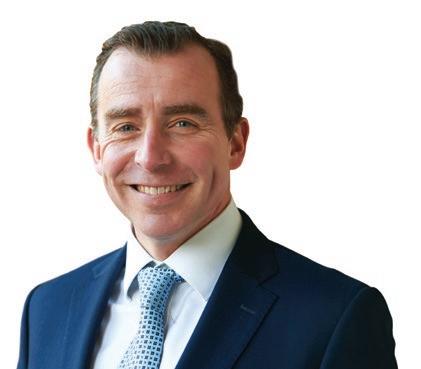
04 caterhamconnected.co.uk
WELCOME...
FROM THE OLD CATERHAMIANS’ ASSOCIATION
Welcome to Omnia. Innovation features heavily in this edition – an area where the OCA is leading the Caterham School community. The OCA Innovation and Collaboration Award, which we have just finished judging, has enabled us to bring a real focus on one of these elements to the School. The innovative ideas presented by the teams this year were nothing short of astounding and once again the job of the judges was exceptionally difficult.
Our winners, five First Year boys, are seeking to change the market for sports footwear – any 12-year-old who is prepared to take on Adidas or Nike deserves to have their ideas listened to! They have their own story which features on page 58 so I will not steal their thunder. However, the Award is not just about Innovation –Collaboration is equally (if not more) important and in our winners we saw a team who had worked through challenges to present radical ideas cohesively and purposefully. After the 18 months that we have all just endured and the isolation that many have experienced, collaboration is possibly even more critical as we return to a new normality.
The OCA is also innovating within the School. On page 61 you will read about the Shadow Board. Karin Schulte, OCA Vice President, brought this concept to our attention, gained the support of the School and saw the successful appointment of the first Shadow Board. Formed of Old Caterhamians aged under 30, and reporting to the Trustee Board, the members will gain essential understanding of the operation of a Board and will enjoy continuous professional development opportunities in corporate governance, decision-making and leadership. They will provide recommendations on topics presented to them by the Board. It is also our intention to engage with them to seek their input as we plan for a healthy future for the OCA.
You will also see that our social calendar is beginning to ramp up again. Our first social gathering is the OCA BBQ hosted at Caterham School on Saturday 11 September 2021. This is going to be an informal event and a chance for many of us to get together again for the first time in ages. So to all Old Caterhamians, if you have not already booked tickets, I encourage you to do so. To book tickets click on the QR code below.
As for the OCA Committee, we are always keen to hear from OCs and OEs who would like to join the Committee. There is significant scope to make a real difference as part of this Committee so if that appeals then please get in touch, email: oldcats@caterhamschool.co.uk
Finally I want to wish you happy and healthy months ahead and I look forward to seeing as many of you as possible at forthcoming events.
Clive Furness President, Old Caterhamians’ Association
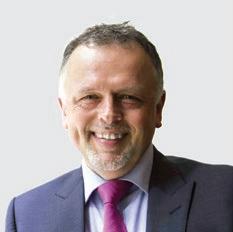
Book tickets for the OCA BBQ on Saturday 11 September 2021 here: oldcaterhamians.com/event/ocbbq2021

OMNIA Issue 09 Autumn/Winter 2021 05
FROM CATERHAM CONNECTED
We are now benefitting from our change in name to Caterham Connected and with all virtual and physical activities co-operating under the same Caterham Connected banner.
At the time of writing a range of exciting future physical events are in the planning stage –whilst we still maximise our programme of digital activity, including the ongoing series of popular Insight Webinars.
Key to the last few months have been some significant areas of development. The caterhamconnected.co.uk platform and app supports the connect between alumni, Sixth Form and parents (both current and former) and enables invaluable mentoring which supports all those connected to Caterham, no matter what stage of professional life.
Our first telethon in support of transformational bursaries was a huge success and demonstrates the determination of our very special community to support others.
Progressing through the pandemic has been challenging for those across our community in different ways. I feel that now is the time to really make the most of the real spirit of togetherness which Caterham Connected is generating.
I hope we can now begin to enjoy the words of Derek Mahon:
“I lie here in a riot of sunlight
Watching the day break and the clouds flying. Everything is going to be all right.”
Rob Davey President, Caterham Connected
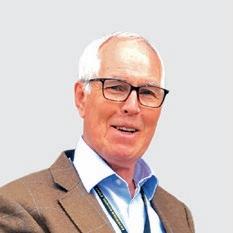
FROM THE PARENTS’ ASSOCIATION
It’s great to be writing for this edition of OMNIA, as despite everything the last twelve months have thrown at us we are still actively coming together as a community and sharing our experiences.
I am truly amazed at the way the Parents’ Association Committee, the parents and the School have continued to work over the last few months despite restrictions. Our last actual ‘live’ PA event was on Saturday 7 March 2020 and we are eagerly planning future events and looking forward to being with each other in reality again.
At the same time, we had to close the ‘real’ door to the PA’s Lost Property office. Life is so much better in reality than virtually, even if it involves lost smelly sports kit or unnamed items of uniform. Despite lockdown we carried on and with help from within the School, lost property began to find its way back to it delighted owners. Our NNU Sales continued. We held PA Committee, Rep meetings and our AGM via ZOOM.
We proudly sponsored a few Saturday Quiz Nights hosted by Caterham School's Quiz Master extraordinaire – Nick Crombie. And held a welcome Cheese and Wine party for new parents (bring your own Cheese and Wine of course) via ZOOM! Our Tea Tasting evening was a huge success as we tried to break a record for the greatest number of people slurping tea virtually and simultaneously. Cats on The Move encouraged all of us to walk, run and cycle across the globe.
Congratulations to everyone involved.
The last few months have certainly shown us that we work better and smarter together and that the PA at Caterham School has a very bright future with amazing parents throughout the School who support us in so many ways. Thank you.
We look forward to our forthcoming events, further fundraising and to working even better and smarter in future.
Sam Kensey Chair, Parents’ Association
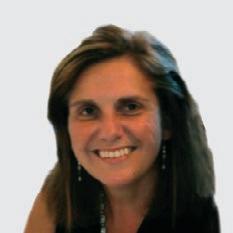
06 caterhamconnected.co.uk
Caterham School Graduway Community Download the Caterham Connected app
Forthcoming events Autumn 2021 – Summer 2022
We are optimistic and are hoping to hold as many of our traditional and planned events as possible through 2021-22.
However, we will remain vigilant of both UK Government restrictions surrounding COVID-19 and the health of our community in our event planning.
Sign up to caterhamconnected.co.uk and you will automatically receive invitations to and updates for events.
If you have any queries, please contact events@caterhamschool.co.uk
We hope to see you very soon.
Caterham School links caterhamschool.co.uk
CaterhamSchool
Caterham School
@Caterham_School
@caterham_school
OCA links oldcaterhamians.com
Old Caterhamians Association
@oldcaterhamians
@oldcaterhamians
Autumn Term 2021
Saturday 7 September, 7.00pm
PA Welcome Drinks
Leathem Room, Caterham School
The Parents’ Association looks forward to welcoming all current parents for some light refreshments and an opportunity to catch up after the long summer and to meet some new faces.
Monday 20 September
OC Golfing Society
Autumn Meeting
Royal Ashdown Forest Golf Club
If you would like to join in with the fun and to find out future meeting dates, please visit oldcaterhamiansgolfingsociety.com
Saturday 25 September, 10.00am-12.00pm
Autumn Term Nearly New
Uniform Sales
Caterham School
Grab a bargain! Other dates this term are Saturday 13 November and Saturday 4 December. For more dates later in the year, please contact pa@caterhamschool.co.uk
Saturday 11 September, 5.00-8.00pm
OCA BBQ
Sandy Ross Pavilion, Caterham School
The OCA are excited to welcome all Old Cats back to the School for our first physical event since the pandemic. Catch up with old friends in a familiar setting – to book tickets or for more information, contact oldcats@caterhamschool.co.uk – we look forward to seeing you there!
Friday 17 September, 9.00-10.30am
Monthly event: CC Book Club
Caterham School
The Caterham Connected book club runs monthly during term time and is hosted at Caterham School or via Zoom. All members of the Caterham School community are welcome, if you are interested in joining please contact events@caterhamschool.co.uk
Saturday 25 September, 7.00pm
PA Comedy Night
Caterham School
Join us for guaranteed laughs with stand-up comics along with a fish and chip supper.

Wednesday 6 October
PA AGM and Cheese & Wine

Caterham School
An opportunity to find out about our Parents’ Association. Meet new parents, have a catch up and perhaps get involved over a glass of wine.
OMNIA Issue 09 Autumn/Winter 2021 07
Autumn Termly event:
CC Woodland Walk Caterham School
Guided walks are arranged termly around Old Park Woods for all members of the Caterham School community – dogs are welcome!! Walks conclude with tea, coffee and cakes outside the Leathem Room. If you are interested in joining, please contact events@caterhamschool.co.uk
September/October
OCA Alumni Hockey Tournament
Haileybury, Hertfordshire
Calling OC hockey players – the OCA enter a side into the prestigious Haileybury six-a-side tournament. If you are interested in representing the OCA, please contact ingrassiaoscar@gmail.com
Saturday 13 November, 5.00-6.30pm
OCA Pre-Fireworks Drinks
Leathem Room, Caterham School
Old Caterhamians are invited to join us for a drink before the main display begins. For tickets, please contact oldcats@caterhamschool.co.uk
Saturday 13 November, 5.30pm
CC Fireworks Night
Titch Pitch, Caterham School
The annual pyrotechnic extravaganza, with fire dancer, BBQ, wood-fired pizza, the Parents’ Association bar, sweet stall and glow toy shop on offer. Bring your friends and neighbours!

Sunday 14 November
OCA Day:
Remembrance Sunday & OCA Sports Afternoon Caterham School
The traditional Remembrance Service will be held at the front of school, followed by a recital of reflection in the Wilberforce Hall and Remembrance Sunday lunch in the Refectory. The afternoon sees both school and alumni teams play rugby and lacrosse on Home Field for this most cherished set of fixtures. For more information and tickets for the lunch, email oldcats@caterhamschool.co.uk

Saturday 20 November, 10.00am-12.00pm
PA Prep Christmas Fair Caterham School
Fun for all the family!
Saturday 27 November, 7.00pm
PA Christmas Dinner Dance
Dress up for the annual black-tie dinner and dance.
Tuesday 30 November, 7.00pm
PA Wonders of Christmas
Leathem Room, Caterham School
Christmas shopping and a chance to catch up with friends and enjoy some festive refreshments. Watch out for upcoming PA hospitality evenings every term.

November CC Bonarjee Lecture Caterham School
The annual lecture focussing on democracy and free speech, in memory of Old Caterhamian and benefactor Stephen Bonarjee, creator of Radio 4’s Today programme.
caterhamconnected.co.uk 08
Friday 3 December, 12.00pm
Over 60s Christmas Lunch
London venue
A chance for Old Cats to share stories and catch up over a festive lunch.
Monday 12 December, 6.30pm
MJS Christmas Lecture
Caterham School
The annual Moncrieff Jones Society science lecture.
Spring Term 2022
March CC Insight Evening: Climate for Change

Royal Academy of Engineering, London SW1
An evening focussing on how environmental, social and governance could be impacted in this current climate of change.
Sunday 27 February
OCA Spring Sports
Afternoon
Caterham School
The Old Caterhamians and school sports teams go head-to-head in football, basketball, netball and hockey. All welcome – come along and cheer on the teams!
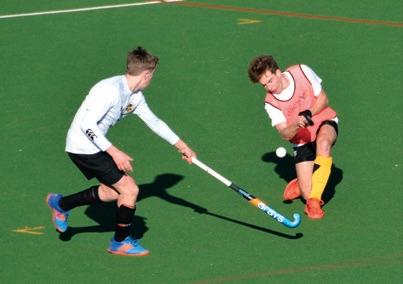
Wednesday 17 March 2022
December
OCA Alumni Cross
Country Race
Wimbledon Common, London
Calling OC cross country runners –the OCA enter the five-mile alumni race hosted by Thames Hare and Hounds. The team is unlimited numbers – if you are interested in representing the OCA, please contact william.rady@live.co.uk
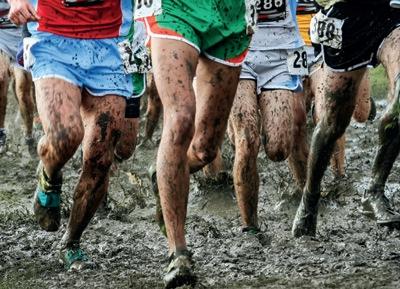
Giving Day

A day of community celebration and fundraising for the Inspiring Education Transformational Bursary Campaign.
March St James’s Concert Piccadilly, London W1
Enjoy a musical evening from the School’s current musicians in the beautiful setting of Christopher Wren’s St James’s Church.
Spring OCA Hong Kong
Reception 2022
Hong Kong
All Old Cats are invited for drinks and canapés. Date and venue to be confirmed. If you are in the Hong Kong area and would like to join us, please contact oldcats@caterhamschool.co.uk

Spring OCA New York
Reception 2022
New York
All Old Cats are invited for drinks and canapés. Date and venue to be confirmed. If you are in the New York area and would like to join us, please contact oldcats@caterhamschool.co.uk
OMNIA Issue 09 Autumn/Winter 2021 09
Summer Term 2022
Summer Sundays
OCA Alumni Cricketer’s Trophy
Venues vary
Calling OC cricketers – the OCA enter a side into the Cricketer’s Trophy. The format is 50 overs and the games are played on Sundays in the summer. If you are interested in representing the OCA, please contact andrew.patterson@ caterhamschool.co.uk
Friday 1 July
OCA Drinks
The Harrow, Caterham
All Old Caterhamians are invited to the join the OCA Committee for drinks in the Harrow – if you are coming down early for OCA Sports Afternoon on Sunday, please do join us.
Saturday 2 July
OCA Summer Sports
Sunday 15 May
PA Happy’s Circus
Caterham School
Happy’s Circus is coming to Caterham School – an all-human interactive traditional circus – fun for all the family.

May
EOGA Reunion
Caterham School
An EOGA Reunion is being planned for May 2022 and further details will be sent out to all EOGA members with the next EOGA newsletter later in the year. Any Eothen alumni interested in joining the Eothen Old Girls Association, please contact eothenoldgirls@gmail.com
May
Over 60s Living History
Lunch
Caterham School
A chance for lunch in the Wilberforce Hall, tours of the School and afternoon tea with current Caterham pupils to share experiences of being a pupil at Caterham School and help bring history to life.
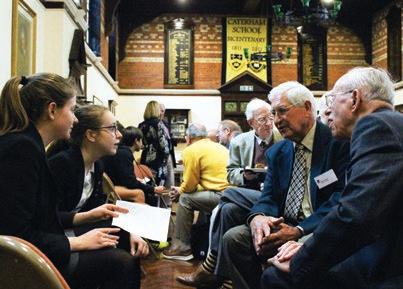
Summer dates vary
OCA Alumni Tennis Tournament
Venues vary
Calling OC tennis players – the OCA enter into the D’Abernon Cup alumni tournament, matches played over the summer with the final played at the All England Lawn Tennis Club in September. If you are interested in representing the OCA, please contact andrew.patterson@ caterhamschool.co.uk
June
CC Sailing Day
Port Hamble Marina, The Solent
Join us for a wonderful day of sailing on the Solent, begin with learning the ropes and race training and culminating in three races. Suitable for both novice and experienced sailors.

Afternoon
Caterham School
All Caterhamians and their families are invited to enjoy the traditional annual Old Caterhamians versus the School Cricket Match on Home Field with afternoon tea in the Leathem Room.
Saturday 2 July
Speech Day
Caterham School
All parents, friends and alumni are welcome to join us for our annual speech day and drinks on the lawn that follow the traditional service.
Saturday 2 July
Summer Ball
Celebrate the end of the school year at the annual Summer Ball.
10 caterhamconnected.co.uk
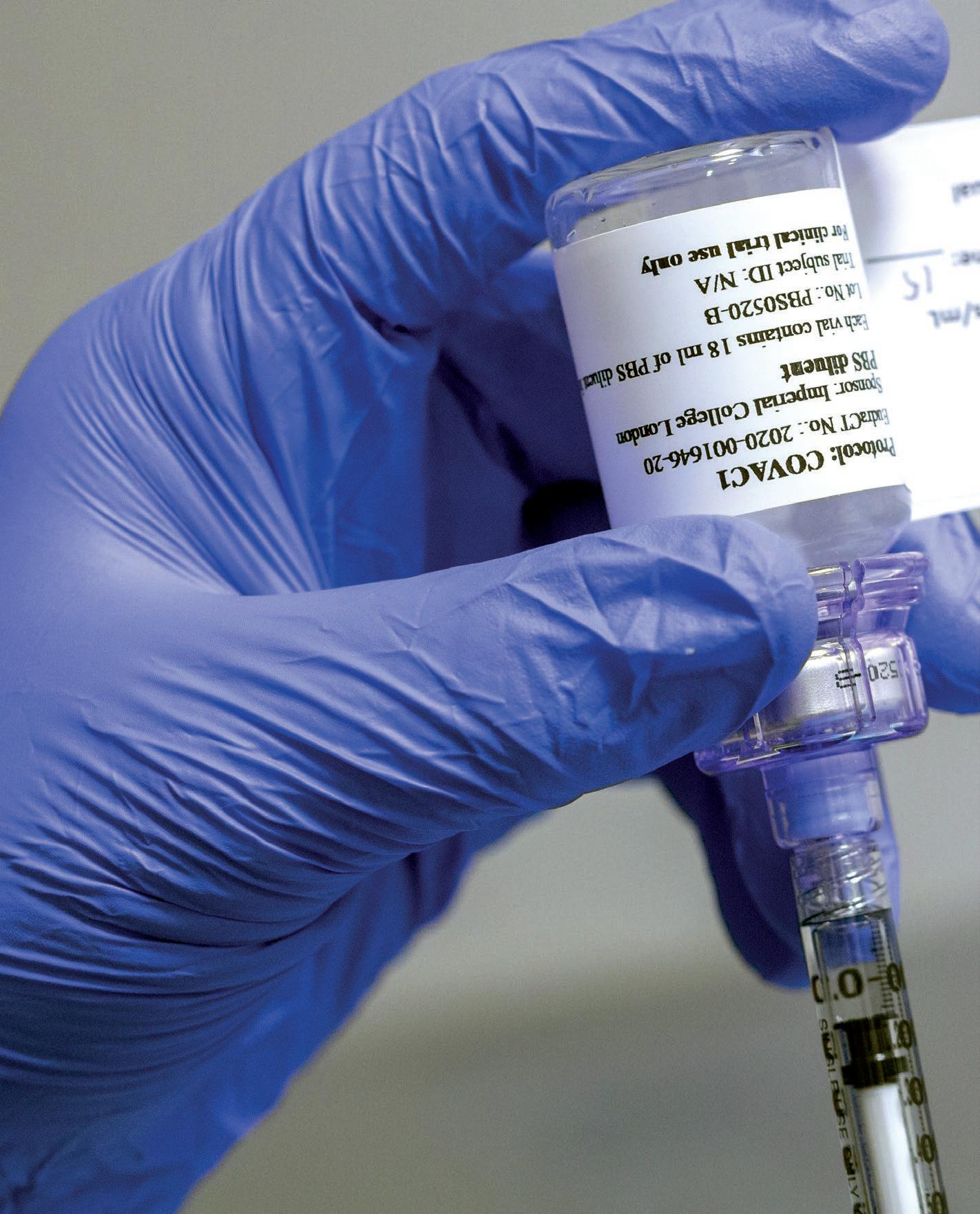
11 OMNIA Issue 09 Autumn/Winter 2021 An
Interview with current parent Dr Paul Craven FRONTLINE FORCE: Race for the Vaccine
As Head of Research Operations at Imperial College
London and at one of the UK’s largest NHS Trusts Caterham parent Dr Paul Craven has been at the cutting edge of COVID vaccine research across the last 20 months, work which has both informed national policy and enabled new tests and treatments for COVID-19.
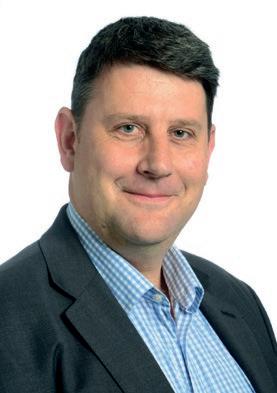

As Head of Research Operations, what does your day-today work involve?
My role spans two organisations – Imperial College London (a STEM-focused university) and Imperial College Healthcare NHS Trust (one of the largest NHS Trusts in the country comprising five separate hospital sites). I work in the Faculty of Medicine in the College, leading the Joint Research Office (JRO) – a team of around 150 people – to support the research endeavours of our academics and clinical study investigators.
The JRO is responsible for costing the many hundreds of research grant applications that our academics submit each year to peer-reviewed calls for proposals. We then financially manage and report on those grants which are awarded. Last year, the total portfolio of research grant income to the Faculty was valued at approximately £175m. The sources of external research funding can be public (e.g. UK government and EU) or commercial (the pharma and biotech industries) or charitable (such as Cancer Research UK or British Heart Foundation). It is a very competitive business, which keeps standards high.
The JRO also negotiates the contractual and legal terms under which we carry out our research, ensuring we protect our existing intellectual property (IP), that we have some ownership or stake in any new IP that is developed, as well as safeguarding personal data or tissue samples which may be required in research. We also ensure that – as a university with a mission for public good – we have the freedom to publish the outputs of our research, without interference or bias. The JRO enables NHS patients to access clinical trials which are relevant to them. We ensure all the correct regulatory and ethical approvals are in place, and that the NHS Trust has the capacity to deliver those trials. It has been demonstrated
12 caterhamconnected.co.uk
Photographs by Thomas Angus, Imperial College London
that research-active NHS Trusts tend to have better outcomes in terms of patient care – they encourage innovation and enable their patients to have access to the latest treatments and diagnostics.
I have one further role which is as operational lead of the National Institute of Health Research (NIHR) Imperial Biomedical Research Centre (BRC). The BRC is a five-year funding programme worth £90m, awarded to Imperial to conduct and support experimental medicine research. The BRC has been at the forefront of Imperial’s response to the pandemic.
What has your involvement been in researching the COVID Vaccine?
The last year has been a whirl of activity for Imperial and particularly for the Faculty of Medicine. My office has supported more than 30 Urgent Public Health studies – research projects which have been designated by the Chief Medical Officer as being particularly crucial in the battle against COVID-19. These studies have gathered the necessary clinical and epidemiological evidence that has informed national policy and enabled new diagnostic tests and interventional treatments to be developed and tested for COVID-19. Several of these studies have been vaccine-related.
There are many vaccines in development around the globe, at different stages of development and using different technologies. Through our NIHR Clinical Research Facility we recruited several hundred healthy volunteers to the Oxford/AstraZeneca vaccine study and are currently doing the same for a new vaccine under development by Janssen.
However, the most exciting project I have been involved with has been the development of Imperial’s own RNAbased vaccine, with Professor Robin Shattock. I remember an initial grant award which came through the office, back in December 2019, which was to investigate a new coronavirus which had emerged in Wuhan. We thought nothing of it, but it rapidly became clear how dangerous this was. We had to move extremely quickly with government departments, the Vaccines Task Force, and others to secure resources, negotiate contracts, and reorganise space and people in order to undertake validation work and early phase clinical trials of Prof. Shattock’s new vaccine technology.
The Imperial vaccine was at a very early stage of development when the virus first struck. Thankfully, the first
vaccines to emerge – from Oxford/AZ and Pfizer/Biontech – seem to have exceeded expectations in terms of their efficacy both in preventing serious disease and in reducing transmission of the virus in the population. As such, the development of the Imperial vaccine has been re-directed in anticipation of new variants or booster shots as the disease progresses. The aim is for it to be cheap, scaleable in terms of manufacture, and stable at ‘normal’ temperatures which will enable it to be stored and transported more easily to more difficult-to-access parts of the world. The RNA platform technology behind the vaccine is also being investigated for potential applications in other diseases.
It has nevertheless been a wild ride –taking a new molecular construct from laboratory to clinical trials, in less than twelve months, has been unprecedented. Normally, such a pathway would take five to ten years.
It has been remarkable how quickly vaccines have been discovered and released, due to the urgency imposed by the pandemic:
How has research been conducted differently?
Health researchers have had the opportunity to study the emergence of a new infectious disease in real-time, which has led to an incredible amount of new knowledge and new science in a short space of time. If there is a silver lining to the pandemic, then perhaps this is it – that what we are learning now will help us understand and treat similar viruses in the future.
The UK genuinely has led the world in responding to the virus, both in terms of research with an immediate impact and in re-organising and mobilising the NHS. The national infrastructure and funding provided by the National Institute of Health Research (NIHR) has been crucial to this success.
Clinical research usually progresses linearly and carefully, but over the past year we have learned to do more things in parallel, to prioritise particular areas of investigation quickly (and de-prioritise other areas), and to conduct clinical trials more quickly but still with appropriate safety measures.
We have also brought scientists together from many different disciplines to solve problems – medics working with engineers, physicists, computer scientists and statistical modellers – this provides a
13 OMNIA Issue 09 Autumn/Winter 2021
The most exciting project I have been involved with has been the development of Imperial’s own RNA-based vaccine, with Professor Robin Shattock.
more fertile environment for new ideas and approaches to emerge.
One other thing that has transformed our ability to work at speed has been the NHS’s unique ability to store, curate and analyse large inter-linked datasets to deliver new insights, across primary, tertiary and community care. During the pandemic, Imperial College Healthcare NHS Trust was able to use its ‘big data’ and health informatics expertise to provide real-time information on COVID patient admissions and their vital signs. This led to rapid understanding of which patients were most at risk and what treatments could help (and which could not).
Do you think these changes will be permanently reflected in how research in conducted in the future?
Some of the changes will indeed become embedded – novel clinical trial methods and adaptive trial platforms such as RECOVERY and REMAPCAP have demonstrated their value. The informatics revolution will gather pace and we will see routine use of
artificial intelligence (AI) algorithms in the NHS to support clinical decision-making.
Regulators of health research –including ethical review committees and medicines regulators – have learned different ways to work at speed. Despite all these changes, no short cuts in terms of patient safety or assurance have been required.
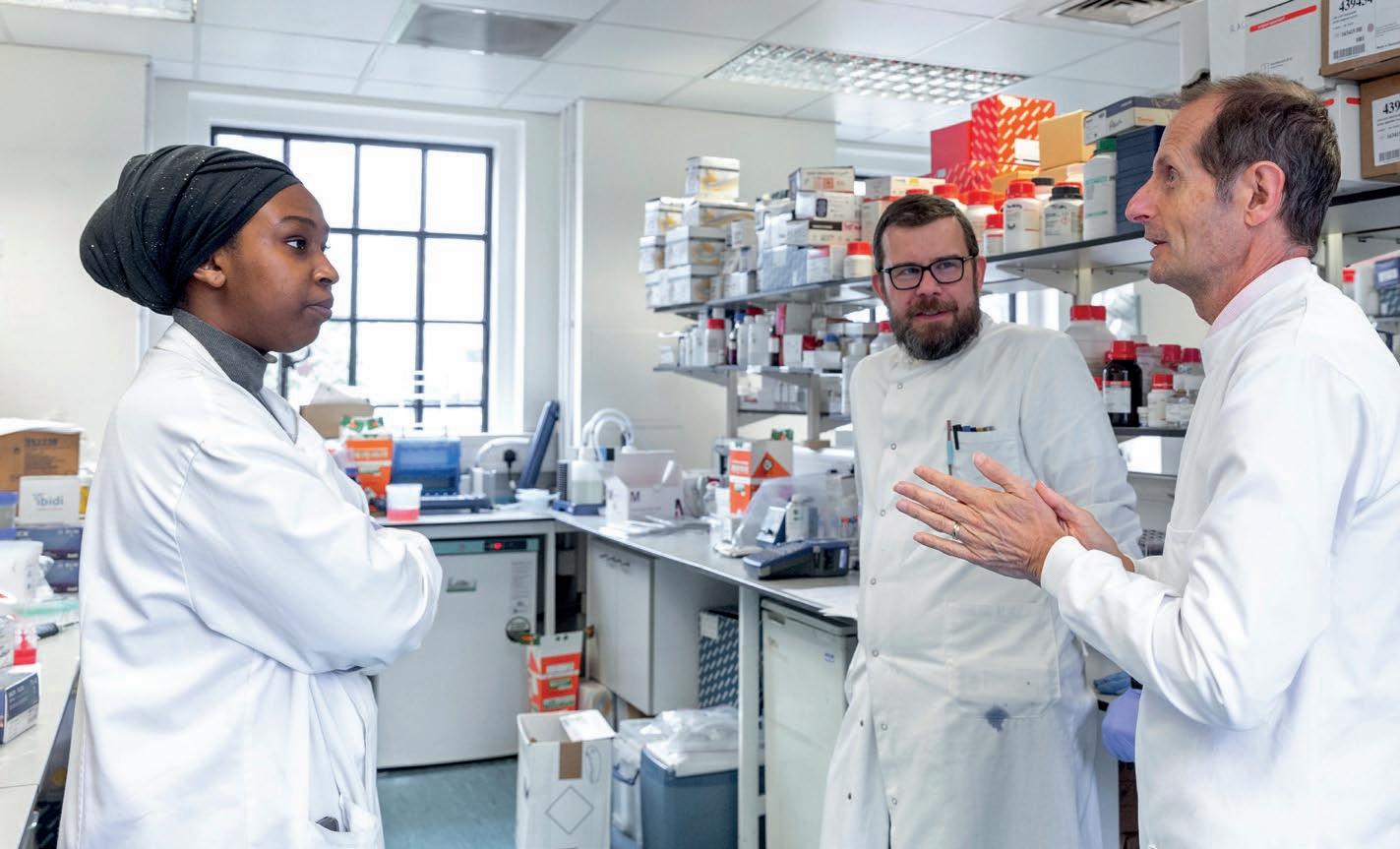
However, to focus on COVID-19 a lot of other clinical research has had to be suspended – in cancer, cardiovascular disease, reproductive medicine, dementia and so on. We have since re-started much of this other research, but this inevitably means that our resources are spread more thinly everywhere, which means progress will be slower than it has been over the past year.
What have been the most significant challenges that you have had to face during this pandemic, and how have these been overcome?
The biggest challenge for us has probably been how to balance the immediate care need of COVID
14 caterhamconnected.co.uk
Professor Robin Shattock and the vaccine team
Working with some of the best scientists in the country – and internationally – is a privilege. The last year has provided the opportunity for Imperial to demonstrate its impact globally, for which we have taken great pride.
patients on the wards and in intensive care, with the need to invest time and resource in delivering research studies (whose outcomes are only visible on a longer timescale).
We have always seen research as the only eventual way out of the pandemic, and our aim has been to try and involve and engage all patients in some kind of clinical research. However, it has been difficult to do this when the urgent need for people with clinical skills to be deployed to front-line care has been so great, especially during the peak surges. For me, the unsung heroes of the past year have been research nurses – we have asked an awful lot of them.
Also, in the spring and summer last year, we were trying to move heaven and earth to clear a pathway for the Imperial vaccine. If the vaccine were proven to be effective in smallscale trials, then we needed to have scale-up manufacturing capacity secured well in advance – potentially billions of doses. This meant intense negotiations with the various companies involved in the complex supply chain, and the commitment of funding to secure ‘slots’ in their schedule. You can see the recent difficulties that AZ have had in being able to meet all their manufacturing contractual obligations simultaneously. The pressure was enormous.
What's your view on vaccine politics?
I suppose it was inevitable that national interests would become a factor. The pressure on politicians to get economies working again as soon as possible is massive. Getting that balance or timing wrong can be disastrous as we have seen recently in India and in Brazil, as healthcare systems become overwhelmed and the disease spreads uncontrollably.
However, lessons have been learned from previous smaller-scale outbreaks. There have been some really encouraging and successful initiatives such as the COVAX programme, which is a coalition of trans-national organisations (WHO, CEPI, GAVI) working to provide equitable global access to COVID vaccines.
However, the point is – in a world where international travel is frequent and routine – a global solution to the virus is required. Without that,
SARS-CoV-2 will continue to reemerge as new variants evolve. As the EU said, “No-one is safe until everyone is safe”.
Your previous job was focussed on cancer research, have there been any marked differences in how research has been carried out? Cancer research and infectious disease research are two very different specialty areas, in terms of the disease pathology, patient demographics, and treatments. However, some of the technologies used to develop therapies are the same, and the fundamental way to identify whether a new treatment works – the randomised clinical trial (RCF) – remains the gold standard.
What have you learnt from experiencing the pandemic?
The virus is thought to have killed more than three million people around the world to date. In that context, it
sounds odd to say that I have found the experience of the previous year inspiring and rewarding. People from many different walks of life have come together to work collaboratively and adaptively towards solutions –scientists, doctors, nurses, students, clinical trial volunteers, vaccinators, and industry.
The Spanish Flu pandemic in 1918 is estimated to have killed more than 50 million people globally and struck down much younger people on average. In many ways the current outbreak could have been much worse, so we need even better global monitoring and response structures to deal with the next one.
What do you enjoy most about working in scientific research?
It is always a very competitive environment, but also collaborative, which makes life interesting. Clinical academics – people who are clinically
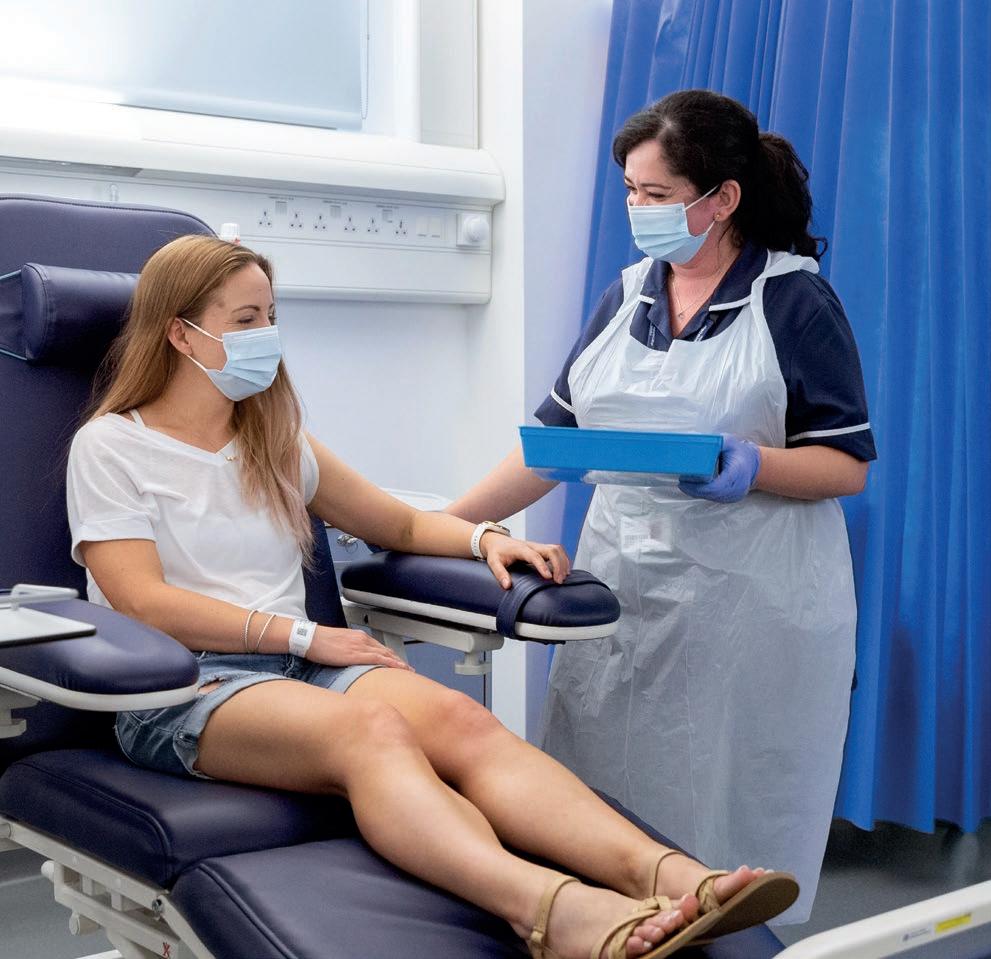
15 OMNIA Issue 09 Autumn/Winter 2021
trained as doctors and consultants, but who also have a research career – are very driven and very demanding as individuals. Balancing their wants and needs with those of the university and NHS Trust can be a difficult tightrope to walk, but that’s what makes the job interesting and enjoyable.
Working with some of the best scientists in the country – and internationally – is a privilege. The last year has provided the opportunity for Imperial to demonstrate its impact globally, which we have taken great pride in – from disease-modelling predictions in the early days of the pandemic (which saved many lives by persuading the government of the need to lockdown), to the development of rapid testing technology for use in the NHS, to the discovery that tocilizumab (a rheumatoid arthritis drug) can help critically ill COVID patients, and recently launching the world’s first human challenge trials to deliberately infect healthy volunteers with SARS-CoV-2 under controlled conditions.
There is still a long way to go with this disease – the NHS will need several years to recover to full capacity and capability, and the various effects of ‘long COVID’ will become more of a priority.
What advice would you give Caterhamians looking at a career in clinical research?
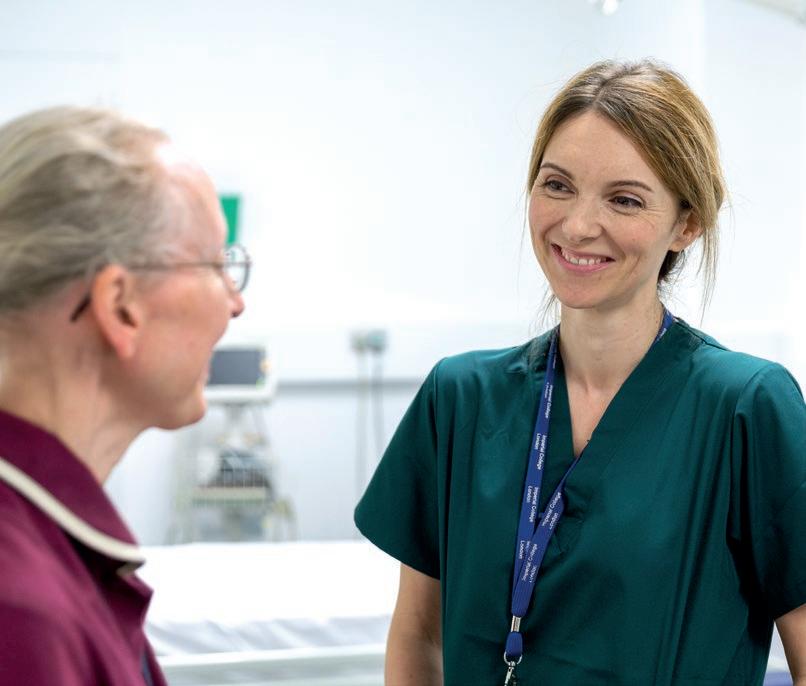
Pursuing a career in scientific research is not for everyone and can be challenging – clinical research training in particular is a long process. Success is not guaranteed, and it is a very competitive business. But – as with anything – if you have a passion for it, and are committed to the vocational approach, then it can be a very rewarding career.
There are many different pathways to choose from either in industry or the university/NHS sector. You could be more of a ‘pure’ researcher, focusing on laboratory work or data science. You could follow the route to become a medical doctor and lead your own clinical trials. Or – what I think is the most interesting niche – you could focus on the translational research interface, where new scientific discoveries are moved into patients or volunteers for the first time (‘first-in-human’). The risks are higher but so are the rewards.
Finally, there are also other – nonmedical – routes. Nurses, physios, dietitians, radiologists and others can all develop their own research careers, and these are recognised as being increasingly important.
To read more about Imperial’s research on COVID and other areas of medicine, please visit the NIHR Imperial Biomedical Research Centre (BRC) website: imperialbrc.nihr.ac.uk
16 caterhamconnected.co.uk
In a world where international travel is frequent and routine – a global solution to the virus is required. Without that, SARS-CoV-2 will continue to re-emerge as new variants evolve.
Dr Katrina Pollock from the Imperial Clinical Research Facility
Beating the war on Covid
Olivia Blandford-Guyon (OC 2002–2007)
Qualified as a nurse in 2013, the RAF has taken Olivia around the world, but the global pandemic has presented the greatest challenge of her career to date. Unprepared for the emotional and physical conditions she has experienced, and in awe of what the NHS has achieved, Olivia shares her experiences as an RAF Nursing Officer.
What does your current role as an RAF Nursing Officer involve?
My current role as a Royal Air Force Nursing Officer involves me working within my Unit at the Royal Centre for Defence Medicine (RCDM). This is in partnership with the NHS at the Queen Elizabeth Hospital in Birmingham, and is the receiving hospital for all military patients worldwide.
My specific job is as an Intensive Care nurse, working directly alongside my NHS colleagues. We are the largest Intensive Care Unit in Europe and we cover several different specialities within the department, including: trauma, burns, cardiac and neurological conditions. We care for critically ill and injured personnel, civilian or military as well as ensuring all our military
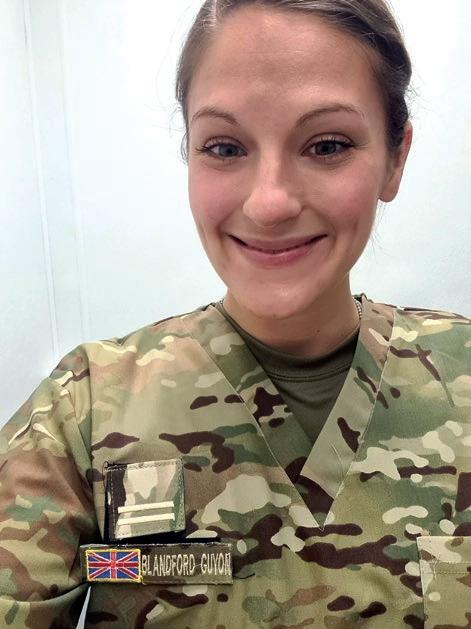
17 OMNIA Issue 09 Autumn/Winter 2021
FRONTLINE FORCE:
training and courses are up to date. This will allow us as clinicians to be utilised by the military in a deployed setting. We may work in Primary Healthcare settings, mainly GP surgeries on bases around the country or in Secondary Healthcare, in specific trauma hospitals. We work in departments relevant to our deployed settings including Trauma and Orthopaedics, Medical and Surgical wards.
Can you tell us more of your experiences working overseas as a medic in Afghanistan, Oman and the Philippines?
My experiences overseas have been very varied. My initial exposure to nursing in another country was two years after qualifying, I did a five-week voluntary trip to the Philippines, working in neurological intensive care. This experience also allowed me to look after new-born babies, attend local vaccination clinics and live with local people during my stay. There were cultural and medical differences to the care and language barriers to overcome, but the overall experience was very positive, and I learnt lots of skills during my short placement.
During my military career I have had overseas exposure within a Field Hospital deployed to Oman, alongside the Army. We were supporting an Armoured Corps exercise as real time cover; and when the hospital did not have patients it was used for training serials. The hospital was equipped to deal with major damage control surgery and had air and land evacuation modes of transport.
My most recent overseas experience was to Afghanistan. I was deployed last summer as part of a small British medical team, in support of the US Air Force, dealing with COVID-19 in a NATO hospital. Our job was to support local nationals and NATO forces with medical care. It was a great experience to work alongside another military and to share medical advice and skills.
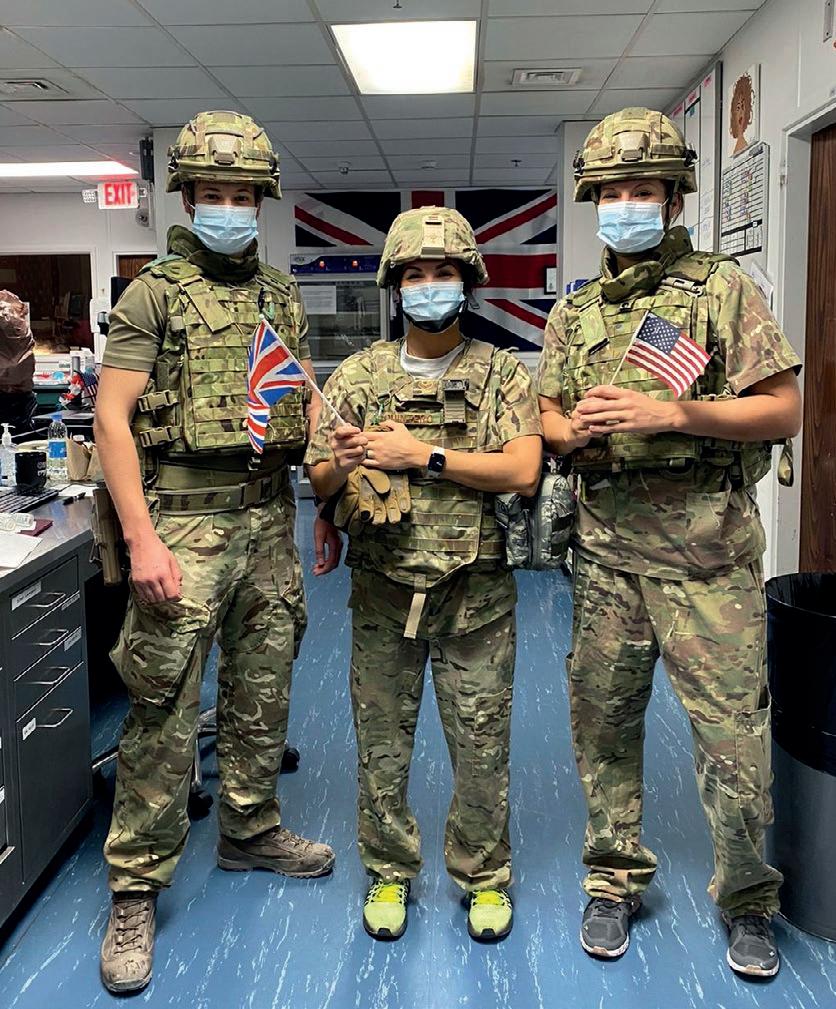
What has been most challenging in the countries you have worked in?
Language barriers make administering any sort of healthcare more difficult, the use of interpreters in all the settings I have worked in was a real asset, also the logistics of kit and
equipment including personnel to remote locations make practising healthcare more difficult.
During all my overseas experiences, different skill sets were also a challenge, varying levels of knowledge and exposure to certain medical conditions. For me, things like snake bites and tropical diseases were something I had not previous come across, as well as large traumatic injuries, such as blast and gun-shot wounds.
The use of different medication names, words for clinical presentations and the use of different medical equipment to your home nation was also a challenge.
Also working in more hostile areas with an increased threat to life is more challenging as you have those added stresses whilst trying to do your daily job.
Can you see light at the end of the tunnel?
Although working in a COVID-19 Intensive Care environment both in the UK and overseas has been very challenging and clinically demanding, the hard work has been worth it, and we are now seeing a reduction in patient admissions with COVID-19 to our Trust. The strain is reducing and there is a more positive atmosphere amongst the clinicians.
However, the next challenge will be to catch up with all the delayed elective surgeries that have been missed during the last 12 months and to try and get back to some sort of normal daily running within the NHS.
I would like to thank all those who I have operated with over the last 12 months, UK and overseas, a tremendous effort by all, whilst under extreme pressure.
18 caterhamconnected.co.uk
FRONTLINE FORCE:
Award from No.10 for OC Rory Moore
Congratulations to Rory (OC 2019) recognised by the Prime Minister and United Nations for the impact of his inspiring volunteering work in response to the COVID pandemic.
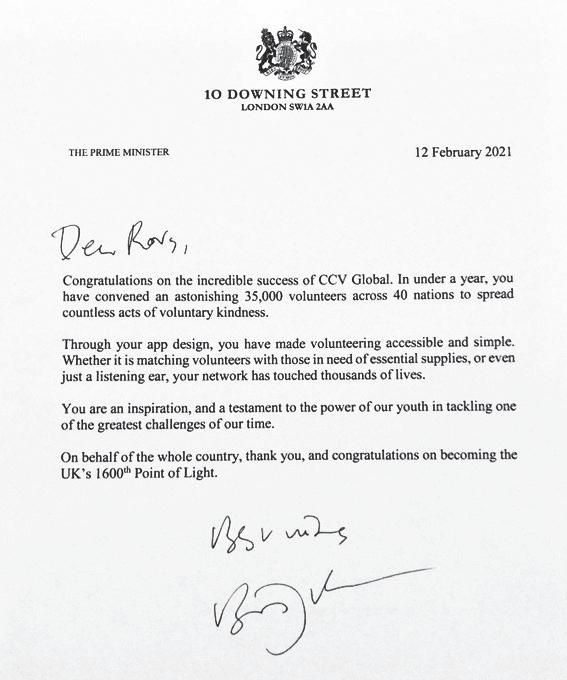
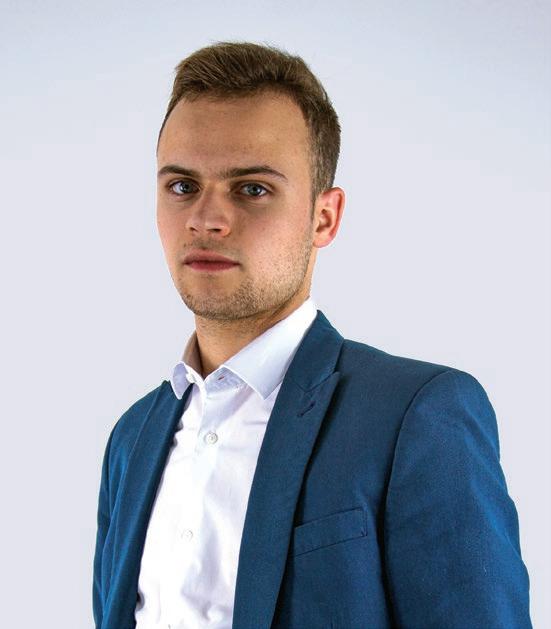
Rory, who finished his A Levels just two years ago, has set up CCV Global, now the largest COVID-19 volunteering network in the world. You can find out more about his initiative and the Points of Light Award at: pointsoflight.gov.uk/ccv-global
Upon receiving his award Rory said, “I would like to dedicate this award to our team of volunteers around the world who are doing their best to tackle the effects of COVID-19 where they live”.
19 OMNIA Issue 09 Autumn/Winter 2021
In Boris Johnson’s words:
“You are an inspiration, and a testament to the power of our youth in tackling one of the greatest challenges of our time.”
RECENT EVENTS
Due to the ongoing pandemic and government restrictions on physical events, the School continued to host a huge range of virtual events. In some ways, lockdown brought the whole Caterham School community closer together, enabling overseas families and Old Cats to join in with many more school activities from academic enrichment to online yoga and art classes.
CATERHAM CONNECTED INSIGHT WEBINARS
Thank you to all the parents, Old Cats and friends of the School who kindly volunteered their time and expertise for our series of engaging Insight Webinars. Whilst we were unable to network face-to-face as with our usual Insight Evenings, we were certainly enlightened and inspired across a range of topics and industries. Here are the highlights from the year...
We look forward to welcoming you to events on site, hopefully very soon, for the latest on forthcoming events:
caterhamconnected.co.uk oldcaterhamians.com
OLYMPIC DREAMS: TOKYO CALLING
AUGUST 2020
OCs Rosie Clarke and Zach Wallace joined former parent Alan Pardew and friend of the School Ama Agbeze MBE to discuss the hopes and pressures professional athletes have with a particular focus on the delayed 2020/21 Olympics. We heard first-hand from Gold Medallists, Olympic 2021 hopefuls and sports men and women at the top of their field on how they cope when their ultimate ambitions are achieved, and how they stay focussed when the goal posts are moved.
Alan Pardew: English football manager and former professional footballer

Ama Agbeze MBE: captained Team England’s netballers to their historic Commonwealth gold medal in Australia (2018). Also a board member at Commonwealth Games England

OC Rosie Clarke: English international endurance athlete
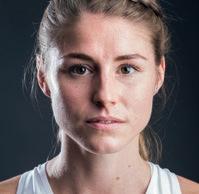
OC Zach Wallace: England and GB field hockey and part of the Team GB hockey squad for the Tokyo Olympics Summer 2021
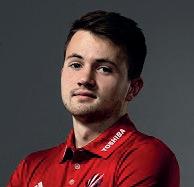
OLYMPIC DREAMS: TOKYO CALLING

20 caterhamconnected.co.uk
Alan Pardew
Ama Agbeze MBE
Rosie Clarke
Zach Wallace
CATERHAM CONNECTED INSIGHT WEBINARS
MAKING DIFFICULT DECISIONS IN A CHANGING WORLD MARCH 2021
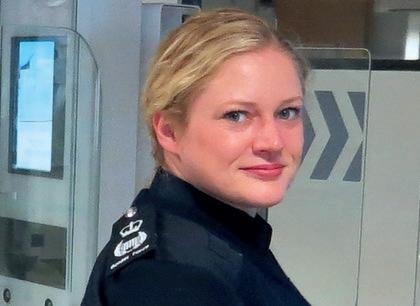
This webinar explored how three leaders from across very different professions and disciplines approach decision making, how they carry people with them and manage the consequences both positive and negative. Hosted on International Women’s Day, our parent panel comprised Monisha Shah (Trustee), Emma Moore (COO UK Border Force) and former Caterham parent Francesca Lagerberg (Head of GTIL’s Global Network Capability Team).
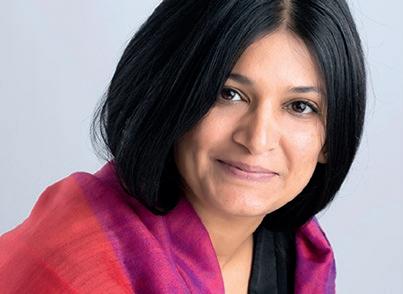
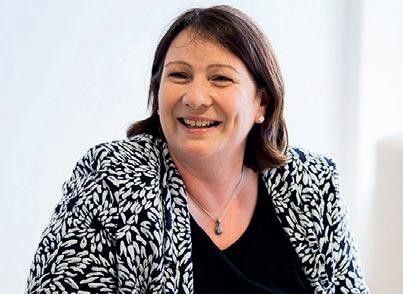
THE SHOW MUST GO ON DECEMBER 2020
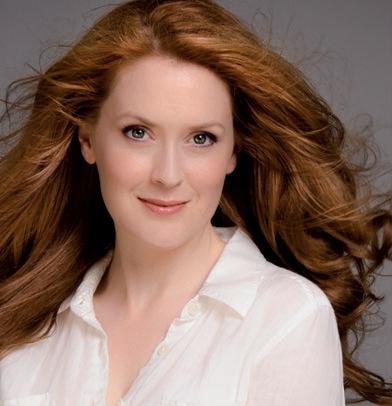
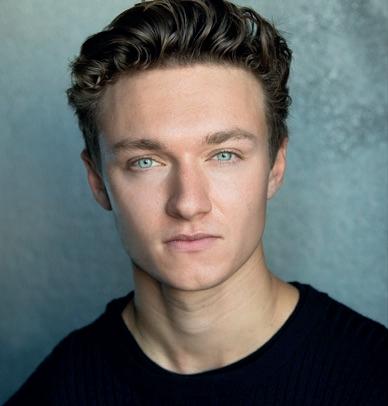
TRUMP V BIDEN NOVEMBER 2020

OC Geoffrey Kemp, former White House advisor, returned to offer his inside knowledge of US politics for a most timely Insight Webinar days after the most controversial US election to date.
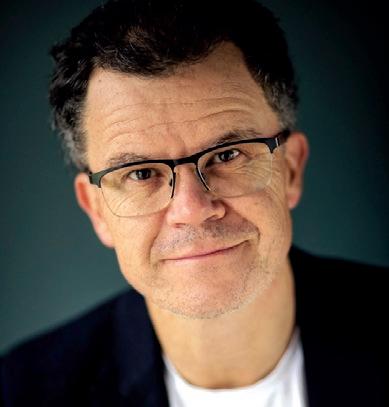
Inspiration flowed from three Old Caterhamians who have each navigated the stage and screen to build successful careers in the performing arts. RSC, film and BBC’s The Split actor Chuk Iwuji, actor and soprano Sarah Gabriel and film and stage actor Harrison Osterfield all shared their career experiences and positive attitude with phenomenal frankness and optimism, even given the challenges of 2020. The star-studded panel was masterfully chaired by comedian, author and broadcaster Dominic Holland
A packed audience of pupils, parents and alumni plus students from Caterham’s partner schools, joined the webinar with questions flying in from the global audience.
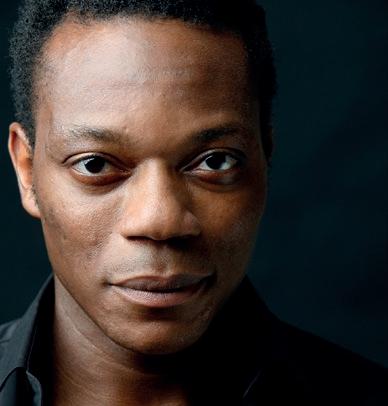
21 OMNIA Issue 09 Autumn/Winter 2021
Monisha Shah
Emma Moore
Francesca Lagerberg
Chuk Iwuji
Harrison Osterfield
Dominic Holland
Sarah Gabriel
WORDS AS WEAPONS JUNE 2021
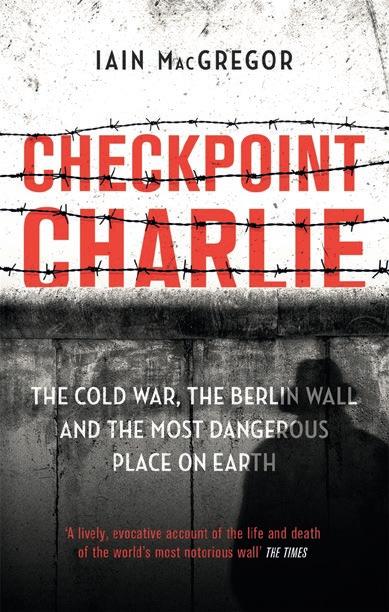
An enlightening webinar with our panel of high profile guests whose careers regularly see them break and present global and national news stories. Stephen Dixon (Sky News), Rebecca English (Royal Editor Daily Mail) and Petra McGahan (Journalist and Presenter, Swedish TV) discussed the challenges that social media presents, the importance of protecting their sources and shared anecdotes of their most interesting and infamous stories.
If you missed these webinars or would like to hear them again, you can find many of the recordings on the Media Hub at caterhamconnected.co.uk
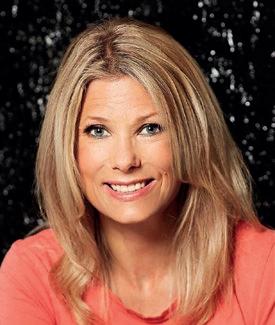

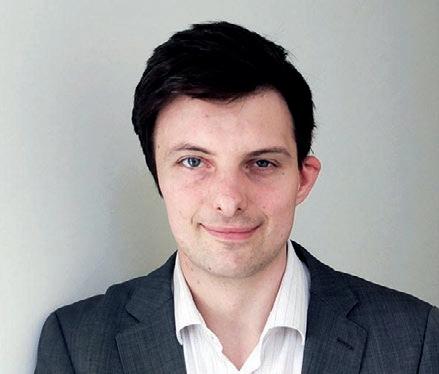
AN EPIDEMIC OF MISTRUTH? OCTOBER 2020
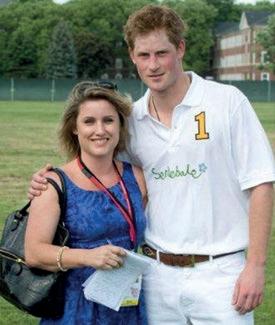
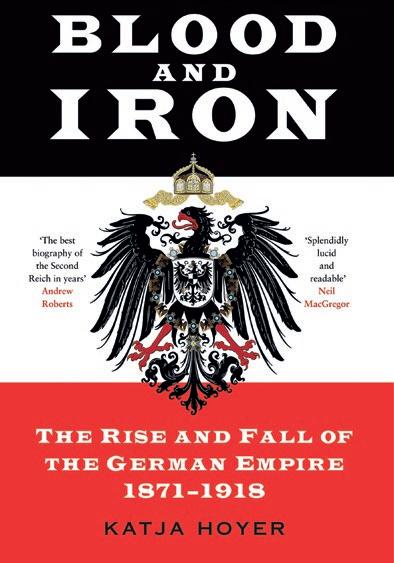
OC Will Moy, Chief Executive of Full Fact (the UK’s independent fact checking charity which has pioneered automated fact checking), was interviewed by his former teacher and Head of Politics, Tom Murphy. He gave an enlightening behind the scenes insight into the machinations of the Houses of Parliament and left us with plenty to ponder in this era of fake news, misinformation and the mission to ensure truth and facts triumph in support of democracy. This webinar offered an intriguing insight into current global news stories and their perception and reality. Read a full interview with Will Moy on page 36.
TIME TOUR OF BERLIN FEBRUARY 2021
Our panel included Katja Hoya (author of Blood and Iron) Iain MacGregor (author of Checkpoint Charlie) and Caterham languages teachers, Kim Wells and Warren Jones, who lived and worked in West and East Germany respectively in the build up to the fall of the Berlin Wall. Another fascinating lecture sparked many questions from the audience comprising pupils, OCs and parents.
22 caterhamconnected.co.uk
Stephen Dixon
Rebecca English
Petra McGahan
CAT TALKS
This series of informal enrichment evening talks was born out of lockdown restrictions and the desire to keep scholarship and debate flowing, even when we could not physically gather. Topics have ranged from Nero to Intersectionality to String Theory. OC Dr Hannah Wright also gave a fascinating insight into how COVID has changed healthcare systems, all from her unique position as the National Medical Director's Clinical Fellow at the Royal College of Physicians.
OCS INSPIRE OUR SIXTH FORM
The Careers department continues to engage OCs with talks both on specific career and uni choices. In the absence of being able to visit universities this past year, the series of ‘uni talks’ from Old Cat recent leavers has been an invaluable resource for the current Sixth Formers deciding on what to do after Caterham. Pupils have been able to ask questions directly via Zoom, but for those who missed the event the recordings have been saved in the ‘Media Hub’ on the Caterham Connected platform, and as all these pupils are on the platform, pupils can reach out to the OCs directly through the platform if they have further questions.
OCS AT OXBRIDGE
Four of the fifty or so Old Cats currently studying at either Oxford or Cambridge gave two talks to inform and inspire the next generation of Caterhamians to apply to these premier universities. Anna, Rowena, Tom and Luke shared their experiences of the application process, and gave a glimpse of what life is like as an undergraduate. Their passion and enthusiasm for both their studies, and the endless opportunities on offer outside of the lecture hall, were evident in abundance.
By Kim Wells
POSTCARDS FROM UNI
Inspired by OC Megan Davies who started the series of informal chats with Nick Crombie where recent leavers could share their lockdown university experiences. It was great to hear from our Old Cats, but also lovely to see our current Sixth Form pupils tune in to hear about life at different unis to help inform their choices.
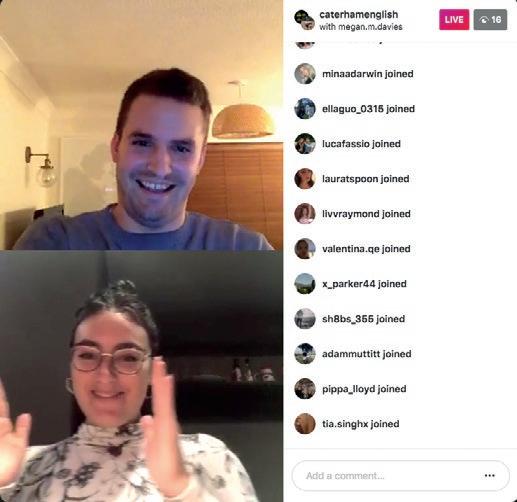
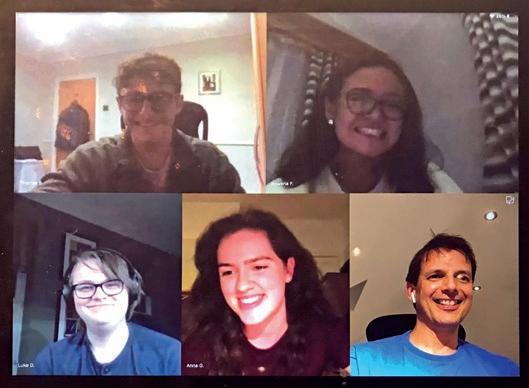
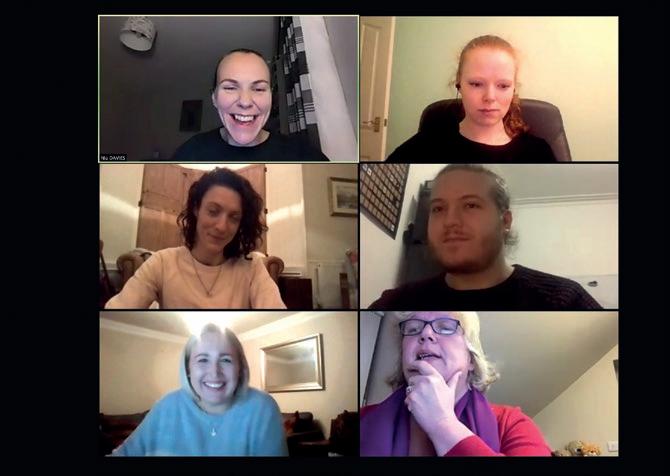
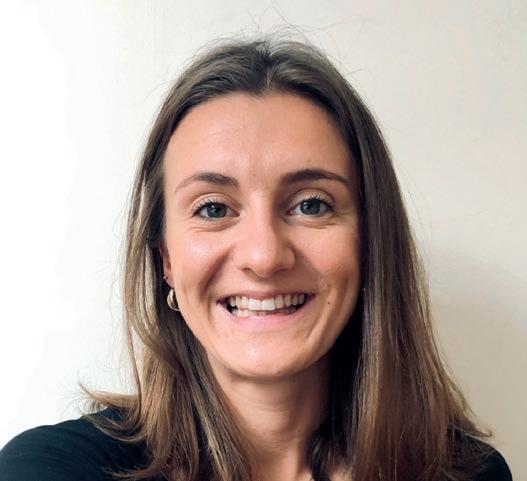
23 OMNIA Issue 09 Autumn/Winter 2021
YOUNG OCS: UNDERGRADUATE SUPPORT


The Caterham community swung into action to support recent leavers and undergraduates navigating life at university in challenging circumstances, especially for those locked-down in halls of residence. It was fantastic to see so many of our alumni maintaining their close ties with Caterham School, and we cannot wait to see you all in person once again soon!
Teachers hosted Zoom drinks with groups of former pupils to reminisce and share the unique experiences the pupils are having at university. Class of 2020 Psychologists read aloud moments from the memory jar that students had written at the beginning of their Upper Sixth year. There were plenty of laughs at the Economists virtual drinks reunion too, reconnecting OCs across the UK, from Southampton to Edinburgh, and far beyond to the reaches of Russia.
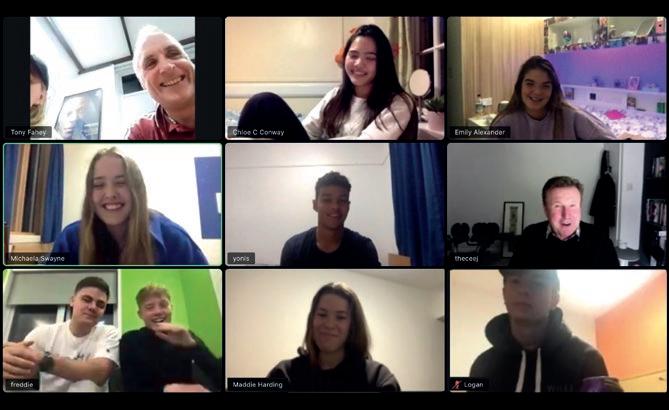
AUTUMN OCA DAY ‘A QUESTION OF SPORT’
As government restrictions didn’t permit the traditional Remembrance Sunday rugby and lacrosse OCA Day matches, our OCA Sports Afternoon went online. Our resident quiz master, Nick Crombie hosted a Question of Sport Instagram Quiz to fill the void. The Old Caterhamians’ Association (OCA) donated prizes including a student hamper sent to the best university team – congratulations to Anna Wright and her uni flatmates in Lincoln. Looking forward to welcoming back our Old Cats to school for the OCA Sports Afternoons this year – we’ve missed you.
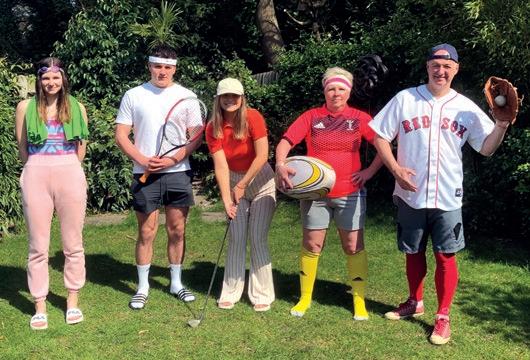
SUMMER LIVE LOUNGE
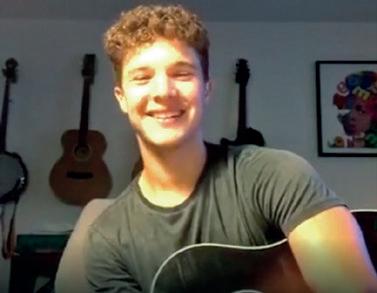
CATS ON THE MOVE
The hugely popular Parents’ Association initiative ‘Cats on the Move’ got our whole community on the move in the Spring Term, with Old Cats logging their miles for their former school houses. Old Cats, pupils, parents and staff were out running, walking or cycling – with weekly winners announced for the furthest distance, most participants and individual with most kms. The overall winner was Underwood. It was great to see so many OCs involved – particularly some OC athletes who certainly contributed to the overall winning house!
Over the summer, we enjoyed brilliant musical performances from both current pupils and recent leavers through the Live Lounge series (you can view recordings on Instagram: @CaterhamEnglish).
24 caterhamconnected.co.uk
SATURDAY LOCKDOWN QUIZ

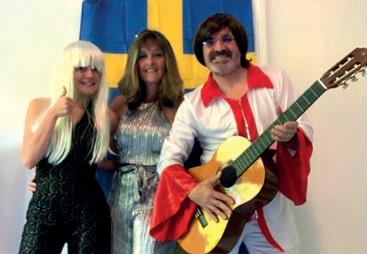
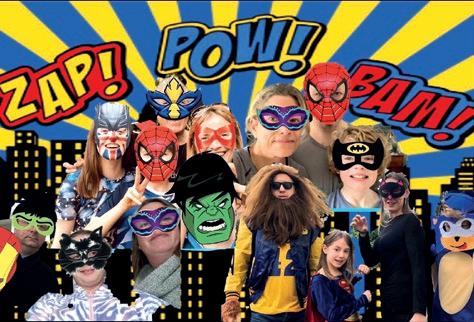
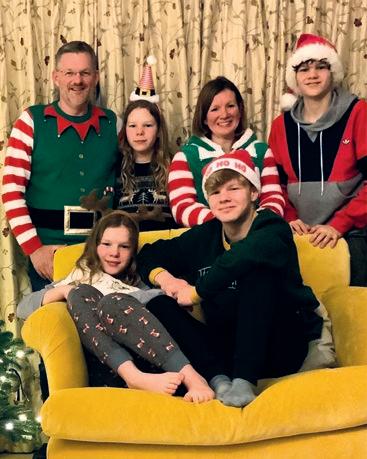
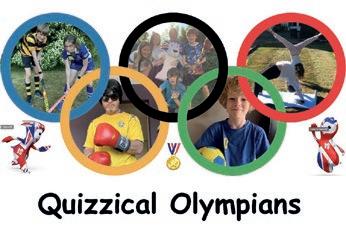
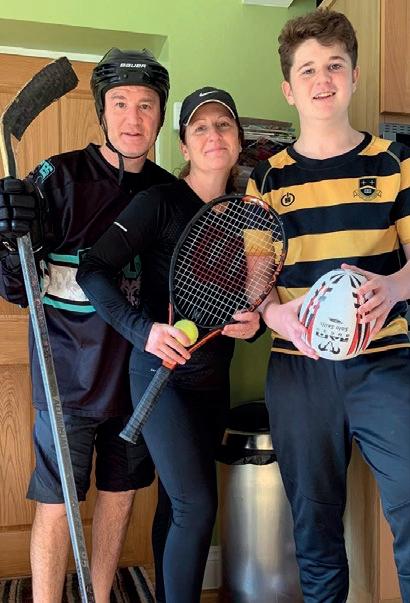
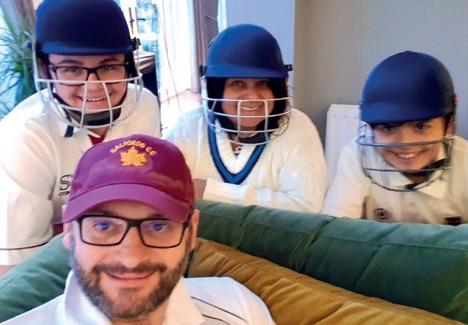
With the lamentable prolonging of lockdown into the new school year, our community stayed social on Saturday nights with the return of the weekly @CaterhamEnglish Instagram Lockdown Quiz. Ultimately these quizzes spanned a full year of lockdown, totalling 34 quizzes and over 2,000 questions. Nick Crombie entertained and challenged our whole community week after week, with the ever popular music round, cryptic clues and the infamous ‘wipeout round’. It was wonderful to see so many Old Cats, parents and pupils, particularly in their fabulous costumes.
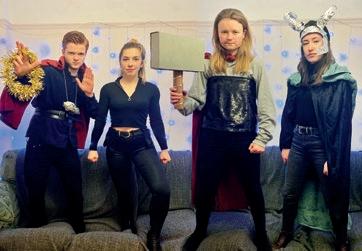
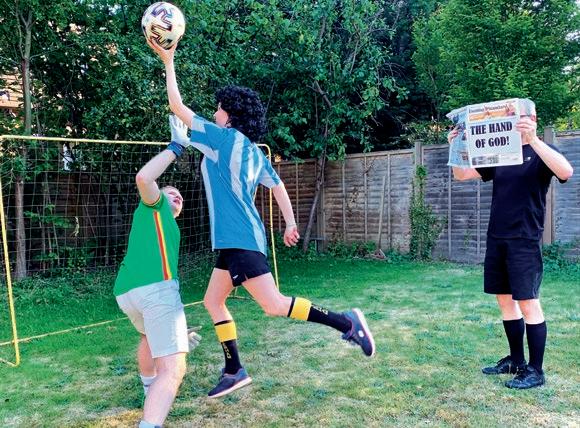
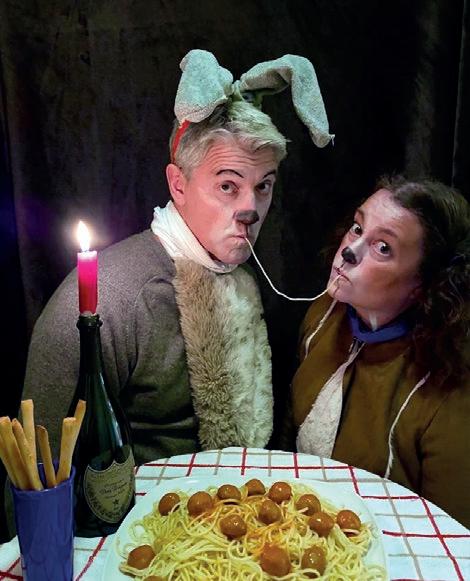
25 OMNIA Issue 09 Autumn/Winter 2021
OC GLOBAL FUNDRAISER
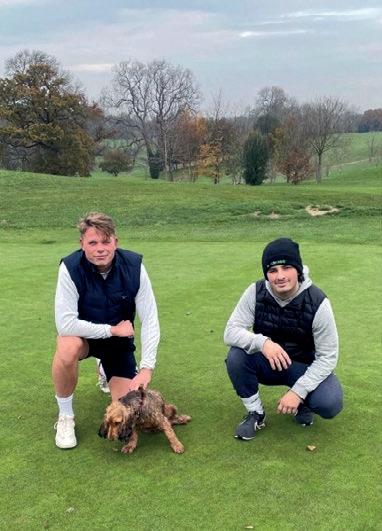

Our Autumn OCA Day also saw a fundraising event organised by Old Cats for Andrew Patterson – over 160 OCs ran, walked, swam or cycled with the aim to travel around the entire outskirts of Ireland to achieve a cumulative distance of 1,450km. The community spirit was in full flow – 285 hours worth of exercise completed, with OCs from over four continents taking part, exceeding their target reaching a total of 3,090.21km –over two whole laps around Ireland. With an average of 18.8km per person, it was a huge effort from everybody who took part to travel the distance that they did. 15 years worth of Caterham leavers took part showing what an impact Patto has on the community.
160+ OCs, ran, walked and swam
285hrs of exercise completed 3,090km distance covered
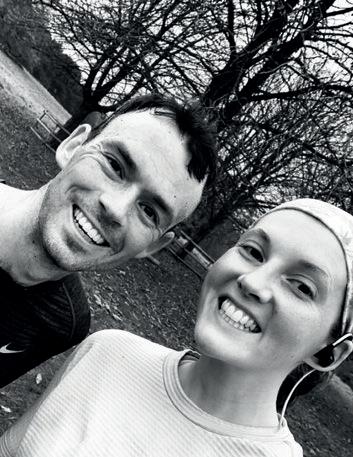
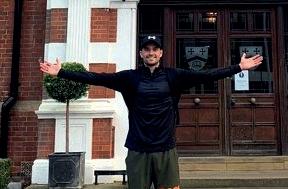
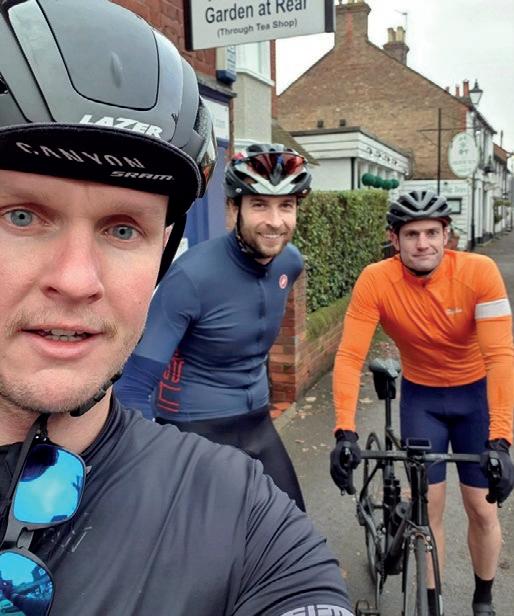
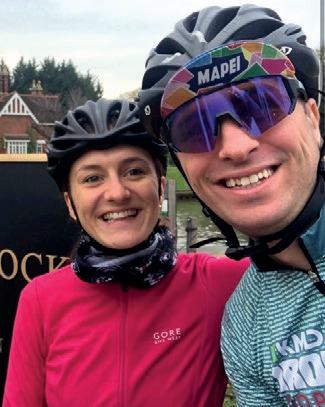

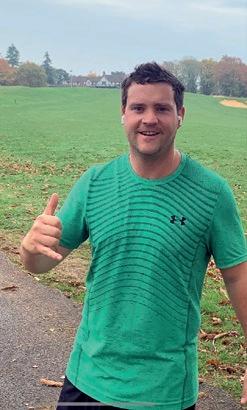
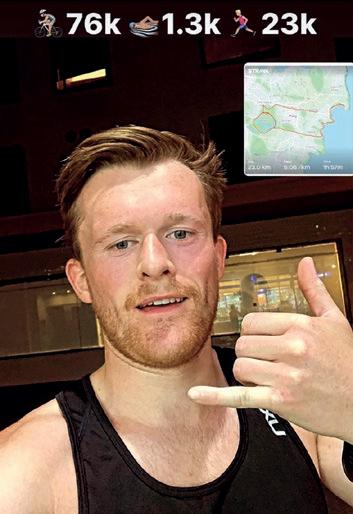
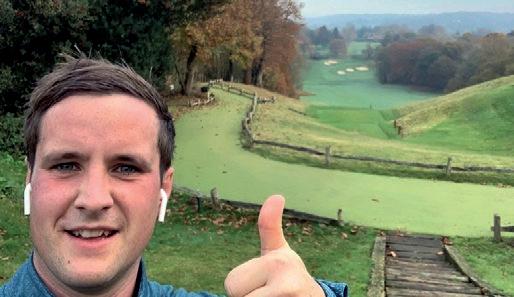
26 caterhamconnected.co.uk
A REFLECTION ON A YEAR OF VIRTUAL MUSIC-MAKING
The impact of COVID on the music world has had disastrous effects on the industry and there has never been a more difficult time for professional musicians and singers. The Music Department at Caterham School is proud and delighted to have presented a range of fantastic performances, recordings and projects over the year that have showcased the talents of so many pupils. These have included; a Composition Competition (judged by renowned composer Bob Chilcott), a series of Live Lounge concerts (acoustic singer-songwriter style), a Virtual Arts Festival and participation in the local Coulsdon & Purley Music Festival (for classical performances), ‘From A Distance’ (a collaboration with the Drama and Dance departments), an Orchestral Open Day (bringing young musicians from the community together), ‘Instagram Live’ recitals, Masterclasses delivered online by outstanding professionals, virtual Remembrance Day performances and an elegant virtual Carol Service.
Musical tuition continued online during the lockdowns – to great success. A plethora of excellent grades were achieved throughout the year showing the resilience and determination of our musicians and singers –adapting to delivery and participation of online lessons has been a steep learning curve for teacher and pupils alike. Participation by pupils who were located in other countries was highly impressive and again showed great dedication and passion for their music-making. Lessons at very inconvenient times of the day and battling technical issues were quickly overcome.
There have been many positives to come from the virtual and online musical activities and these were published in the Music Teachers’ Association’s ‘Ensemble’ magazine article ‘A reflection on a year of unforeseen musical opportunities’ – written to celebrate the many wonderful achievements of Caterham School musicians. Developing an acute ear for precision, reaching wider audiences around the world, a focus on composition,
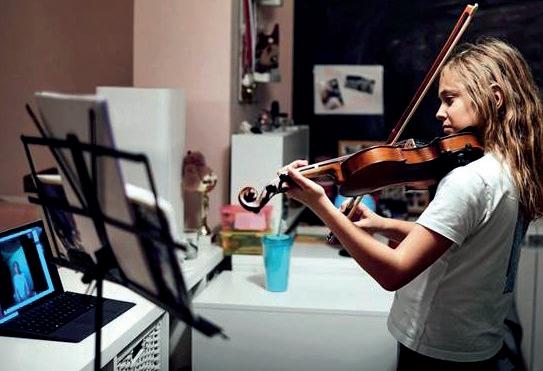
new partnerships with professional musicians and fully utilising technology were some of the points raised and discussed in the article. And in summary, the impressive way that Caterham School musicians embraced and flourished the sudden and unpredicted changes in approach to music-making was proudly shared with the publication’s huge readership. And the question of ‘what will continue post COVID?’ was explored.
The Music Department’s channel on YouTube has, as a result of the past year, grown and developed; very impressive and accomplished performances can be enjoyed by anyone in the Caterham School community. Indeed, it has been great to see the number of views in their high hundreds and praiseworthy comments have come-in from listeners from all around the world. To hear some of the amazing achievements please do search for ‘Caterham Music’ on YouTube and have a listen. What an impressive year it has been. Whilst all the Music Staff have craved the return of normal live concerts and the joy of ensemble playing, looking back, there is much to celebrate in this year of virtual music-making.
By Adam Assen
1ST XI WELCOMED MCC TO HOME FIELD
Last September we welcomed a strong Marylebone Cricket Club from Lords to our very own Home Field to play against the 1st XI. After the whole summer of school cricket was lost last term due to the Coronavirus pandemic, it was a wonderful sight to see Home Field bathed in sunshine and full of cricketers in their whites. Due to the government restrictions on pupils interacting, the School fielded an XI made up entirely of Upper Sixth pupils and were superbly captained by Ben H with the MCC captained by OC Richard Turner.

27 OMNIA Issue 09 Autumn/Winter 2021
KISSING IT BETTER


Michelle W, Lower Sixth Form medic, helped organise a fundraising program from the Virtual Medic Society for the charity Kissing it Better, a healthcare charity and training provider that works to end the isolation of old age by bringing the generations together. Funds raised go towards their teaching programme, student volunteering placement, enhancement of patient experience, and research into the impact of creative thoughtfulness on the recovery times of older people in healthcare. gofundme.com/f/medic-mentor-team-4

FAREWELL FLT LT BARBER
With no little sorrow, the Corps bids a very fond farewell to its long-time servant, Flt Lt Stuart Barber RAFAC. Flt Lt Barber joined the staff at Caterham School CCF in 1996 from the Air Training Corps. In his 25 years with us, he has become a stalwart of the RAF Section’s officer team, leading countless groups of cadets in activities from flying to archery, hill walking to shooting. The fact that, despite being an RAF officer, his major passion was caving deep under the ground gives some glimpse of Flt Lt Barber – ever his own man, a great and much-loved character. Hundreds of cadets owe deep debts of thanks to all Flt Lt Barber has done for the CCF at Caterham, as do all of his fellow officers, past and present. He hopes still to help the Corps out when he can, so this is hopefully more au revoir than goodbye, but we wish him all the very best as he returns to the Air Training Corps to continue a lifetime’s service to the cadet movement. Vale, Stuart! You take with you the warmest affection of my colleagues and me, our best wishes for the future, and the most sincere thanks of all of us at Caterham for a quarter of a century’s service.
By KM Bage, WG CDR, Contingent Commander
SPRING CLEANING OUR BEES
Lt. Tyldesley, Dr. Soltysiak and Clare Brown have been running the School beehives since May last year – we should get a honey harvest this year! There is a Caterham School Beekeepers Club for those interested in getting involved. Drop Mr T or Dr S an email for more information.
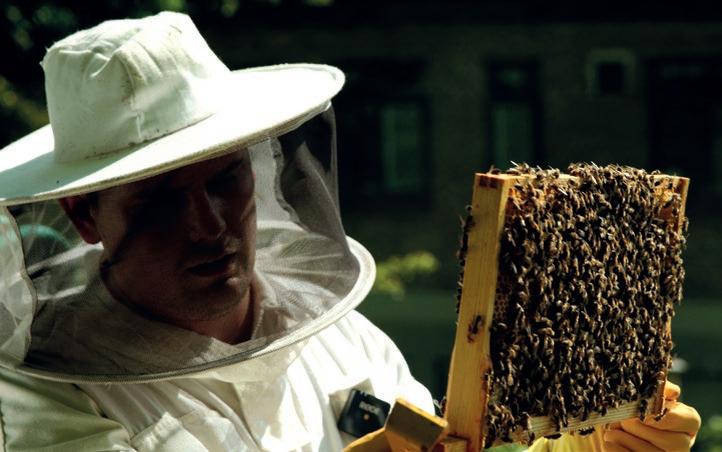
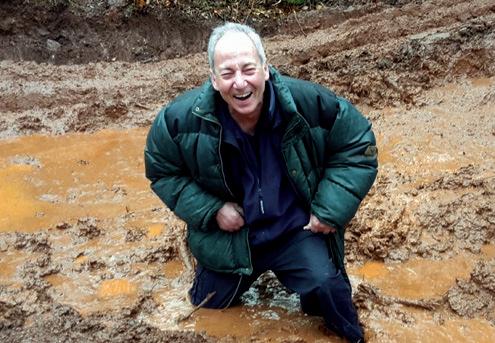
UK BEST OF THE BEST FOR STEM
The Week magazine’s Independent School’s Guide’s ‘Best of the Best’ round up placed Caterham in the top two in the country for STEM. The accolade followed consistent top performance across all STEM subjects at GCSE and A Level and the thriving Moncrieff Jones Society and the newly launched medical society for all budding medics, vets and dentists, The Wright Society.
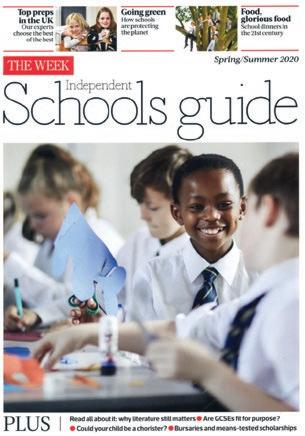
28 caterhamconnected.co.uk
VIRTUAL ARTS FESTIVAL
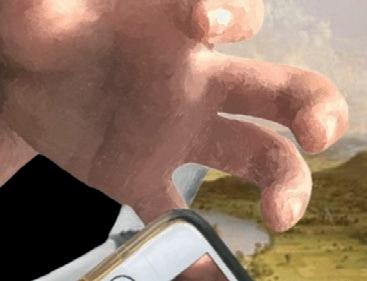
Our annual art show went online and evolved into a full virtual arts festival encompassing a range of performances and artwork showcasing talent in the areas of music, drama and visual arts. An extravaganza that can still be enjoyed via the school website: caterhamschool.co.uk/whats-on
TES AWARDS TRIPLE CROWN
We were thrilled to be shortlisted in no less than three categories in this year’s Times Educational Supplement Independent School Awards. These awards recognise the very best work and achievements across UK independent schools with a judging panel of the most experienced leaders in the sector. This is a brilliant achievement for the whole school – and notably our shortlisted awards are all for projects that were collective efforts across the school community.
Wellbeing Initiative of the Year – recognising the provision and effort from across the School, the community and indeed across the globe, to support each other, our partners and beyond during the recent lockdowns. Strategic Initiative of the Year – for the development of our Shadow Board of young alumni who work alongside the Board of Trustees. The Shadow Board will help ensure Caterham’s focus remains on preparing young people for the rapidly changing world of work they are graduating into, and ensure that the voice of our young people from BAME communities are heard at the highest level of decision-making. Creativity Award – for the Academic Shorts series that was another huge hit during lockdown. Led by Mathew Owen and embraced by staff and pupils, Academic Shorts demonstrated the breadth of interests, knowledge and the shear enthusiasm for academic subjects. It was a brilliant way to connect whilst virtual schooling, and has begun an enduring video library packed full of inspiration.
These nominations follow Caterham’s previous TES award win for Best Use of Digital and shortlist for both Best Alumni Engagement and Best Strategic Initiative
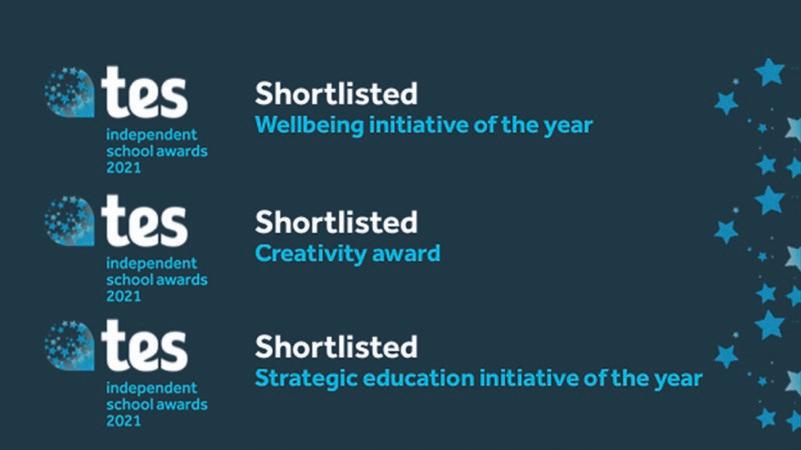
CATERHAM NAMED AS TOP CRICKETING SCHOOL
The Cricketer named Caterham as a UK top performing cricketing school in its annual Schools Guide. The selection follows an exhaustive process which saw a record number of schools submit entries to be included. All entries were judged against an extensive set of criteria, which included a compelling commitment to cricket in the curriculum, facilities, fixture programmes and coaching.
The Cricketer magazine editor Simon Hughes said: “This year’s Schools Guide is particularly important in showcasing schools who have kept the game alive through a very challenging summer. Whether it has been remote video sessions, drills in the garden or even Zoom quizzes, schools cricket has emerged resolutely from this pandemic and the appetite to get back out on the playing fields is palpable.”
In celebration of the award, The Cricketer magazine interviewed Jonathan Batty, Caterham’s Master in Charge of Cricket and former professional, about his journey from the professional game, playing from a young age for Surrey and Gloucestershire, to inspiring and training the next generation of young cricketers at Caterham School. Mr Batty is also Head Coach for the Surrey Women’s team and has driven girls’ cricket here at school.
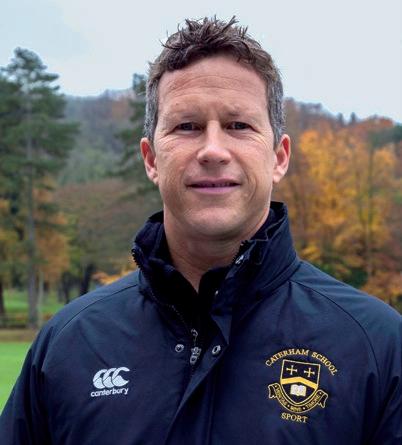
29 OMNIA Issue 09 Autumn/Winter 2021
SAL’S SHOES DONATIONS FIND FEET
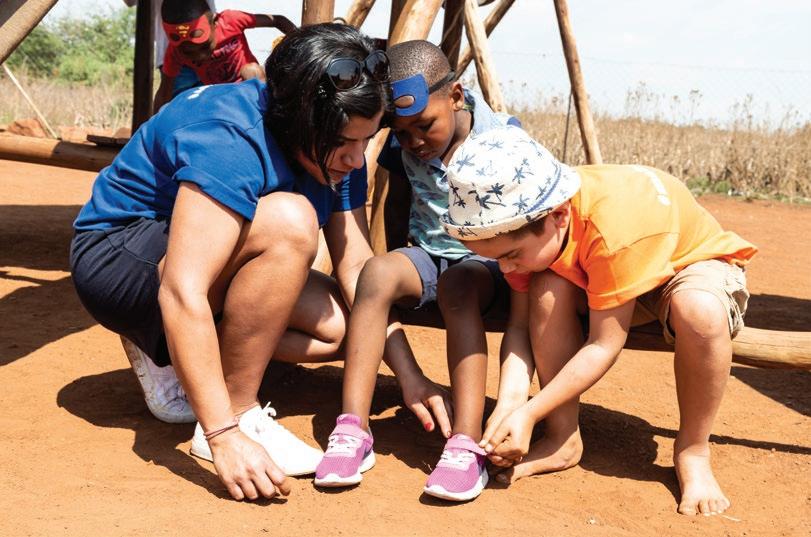
Whole-school shoe collections continued for one of the Parents’ Association chosen charities – Sal’s Shoes. A good percentage of the shoes received in categories such as boys and girls school shoes, football boots, trainers suitable for school and summer shoes are remaining in the U.K. Some of these have already found new feet via Reigate and Banstead Women’s Aid (also a PA charity) plus new arrivals at refugee centres and via Stripey Stork for kids returning to school in need of shoes and trainers.
Sal’s Shoes received a lot of seasonal footwear from our donation and winter shoes have set off for Albania and summer footwear is en route to school children in Zambia. salsshoes.com
PUPILS AND OLD CATS CONNECT IN LOCKDOWN
Laughter and good cheer filled the phone lines as Sixth Form pupils continued their calls to our most senior Old Caterhamians. The Sixth Formers have been updating former pupils on what is happening at the School now and what has both changed and remained, from the Old Cats’ days at Caterham. The octogenarians and nonagenarians were also able to share their experiences of life at Caterham – in many instances stories from being at Caterham during World War II.
Initially set out to help combat lockdown loneliness, the weekly calls have been greatly enjoyed by all – so much so that calls will continue post lockdown – if you haven’t received a call as yet and would appreciate one, please contact our alumni office to arrange one: oldcats@caterhamschool.co.uk
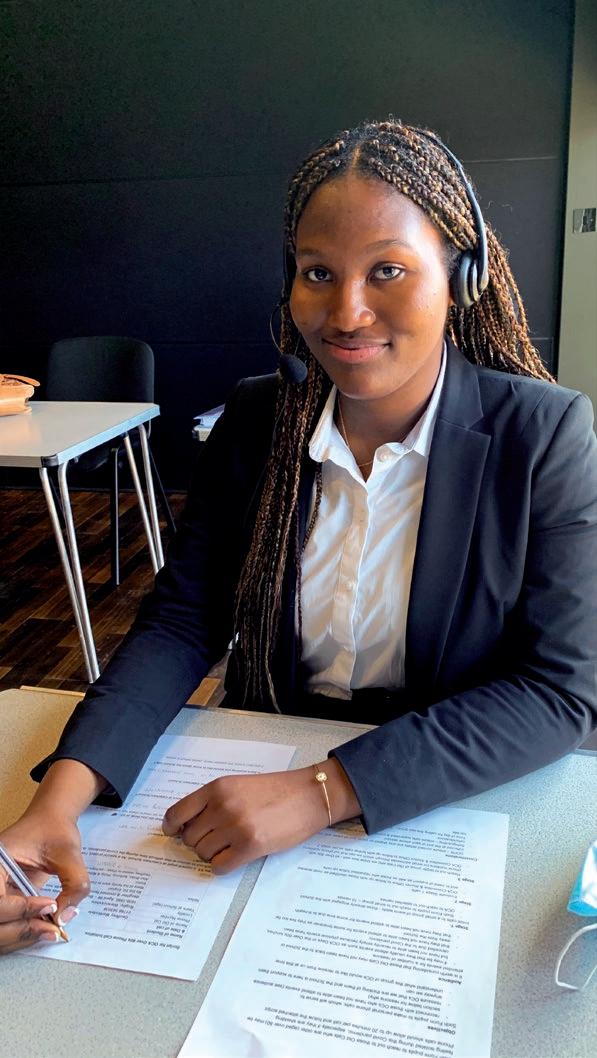

LAPTOPS4LOCKDOWN
Thank you to everyone who donated laptops and tablets, which we distributed to local primary and secondary school children across the local area enabling those without the required technology at home to access their online lessons as education went virtual.
30 caterhamconnected.co.uk
CHEERS! VIRTUAL SOCIALS
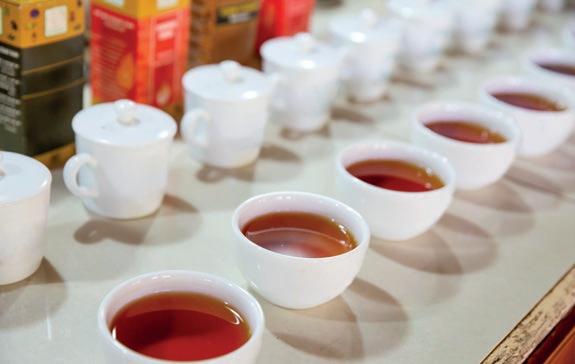
Unable to host in person, the PA and OCA hosted events via Zoom. The PA welcomed new parents with a BYO Cheese and Wine evening, the OCA hosted a wine tasting evening with Old Cat Charles Waud of Waud Wines, and on a more sobering note both hosted an educational and enjoyable Tea Tasting event. Looking forward to hosting in person again soon.
CELEBRATING THE YEAR
With the end of a memorable school year beckoning, the School was able to host many of the traditional end of year fixtures and diary dates for pupils, albeit with the usual audience of parents and friends not able to join in.
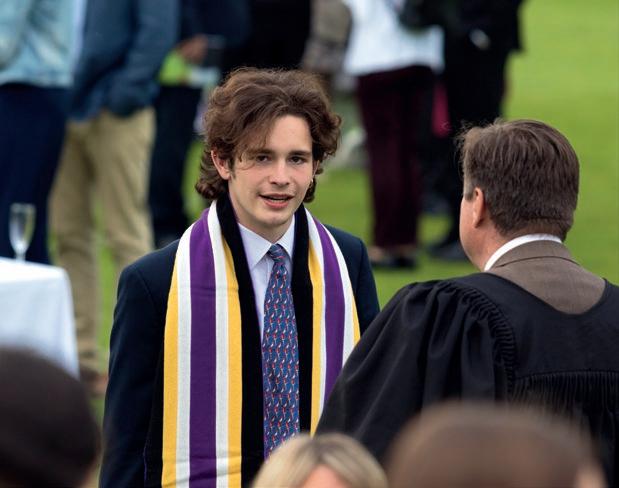
PRIZE-GIVING CELEBRATIONS
For many pupils their first experience of being together as a year group in person came in the last week of the school year at the dedicated year group prize-giving assemblies. Heads of Year, tutors and the Headmaster paid warm tribute to the attitude, positivity and resilience of pupils in each year who have together thrived and succeeded no matter what changes to school life came their way. Prize-winners were celebrated – but this year more than ever the shared endeavour of pupils, teachers and families in making the year a true success was fêted. The feeling in the marquee at all of the assemblies was one of celebration, hope and genuine warmth of being able to join together and mark the close of the year as one.
ONE OF THE TOP UK PUBLIC SCHOOLS –TATLER SCHOOLS GUIDE 2021
We were thrilled to be recognised, once again, as one of the top UK Public Schools in the 2021 Tatler Schools Guide. The review follows a visit by Tatler Magazine in February 2020 and a survey of parents. Amongst the quotes which raised happy smiles are:
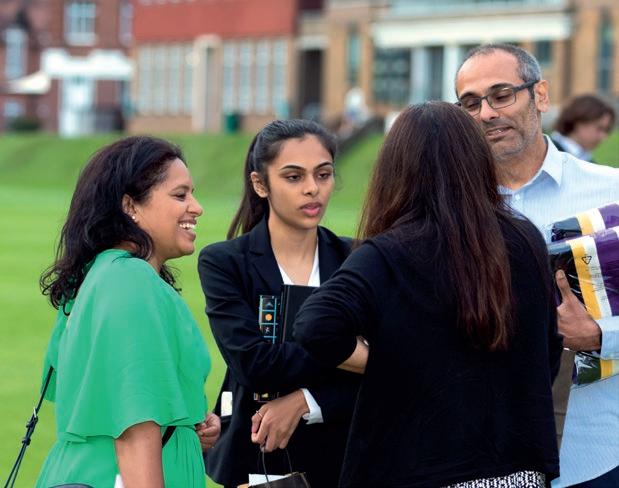
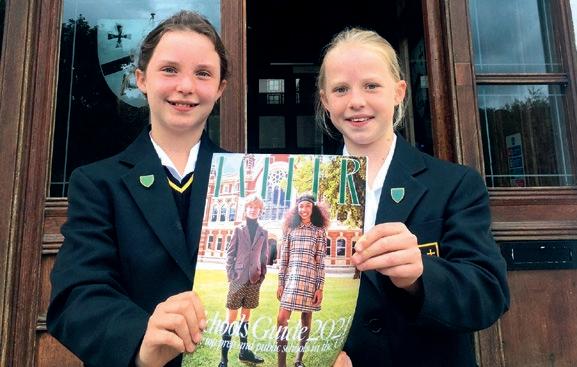
“It has a markedly strong sense of community and is ‘unimposing but smart’”
“…the School’s innovative and forward-thinking ethos, which is reportedly free from any hint of pretension.” “…places an emphasis on ensuring pupils don’t focus solely on academia. He (Mr Jones) is passionate about each child staying authentic and using their school years to develop themselves as individuals, discovering their own interest and passions while making life-long friendships.”
31 OMNIA Issue 09 Autumn/Winter 2021
SPEECH DAY AND LEAVERS’ BIBLE SERVICE
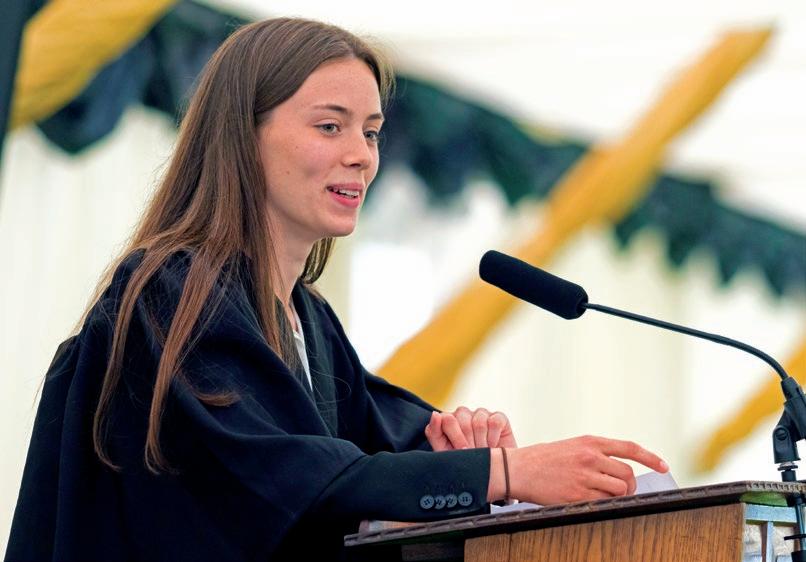
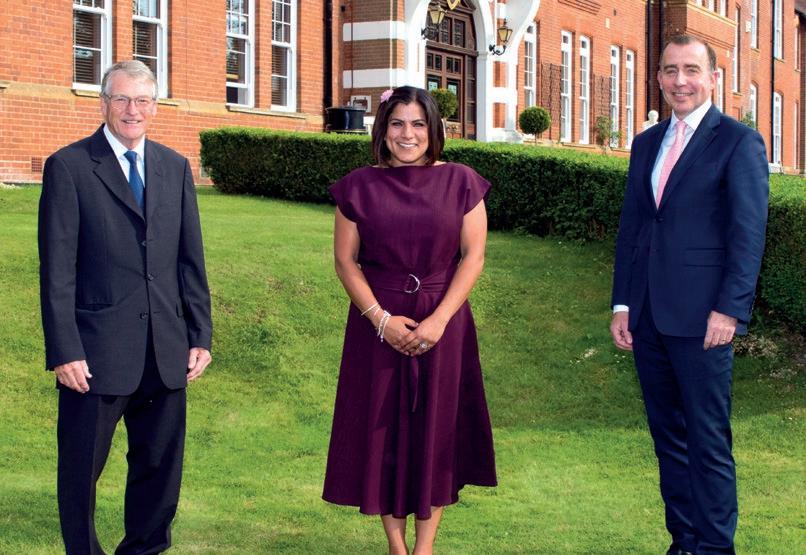
The last day of term was even more special than usual for our soon to be Old Caterhamians – the Class of 2021. After a day spent having their final school photograph, a barbecue lunch at Hill Fields with the traditional dodgems, our Upper Sixth Form donned their suits for the final time to gather in the marquee. The combined Speech Day and Leavers’ Bible Service really was a celebration of all that this special year group have achieved and triumphed through. Headmaster Mr Ceri Jones paid tribute to each and every pupil as they received a school bible and prizes, acknowledging that this is a generation of Caterhamians who can be sure that resilience, adaptability and friendship across distances near and far are already part of their skillset. Joining us as Guest of Honour was Camilla Bowry, founder of charity Sals Shoes which finds new feet for used shoes in the UK and across the globe. For many children receiving their new shoes brings a chance of education, better health and a brighter future.

LEAVERS’ DINNER CELEBRATION
The Upper Sixth Form enjoyed one last meal together in the Refectory on the final Saturday of term, 3 July 2021. Continued restrictions on events simply meant that in place of the big Summer Ball of previous years, the creativity of the Parents’ Association committee was gainfully employed in dressing the Eothen Courtyard and Refectory to become unrecognisably glamorous venues and organising an outdoors evening this year group will remember as a fine end to their school days at Caterham. The final farewell at the end of the evening was lit up by a display of ‘Caterham 2021’ accompanied by firework fountains – a moment for Instagram, and all attending to remember.
32 caterhamconnected.co.uk
SPORTS DAY
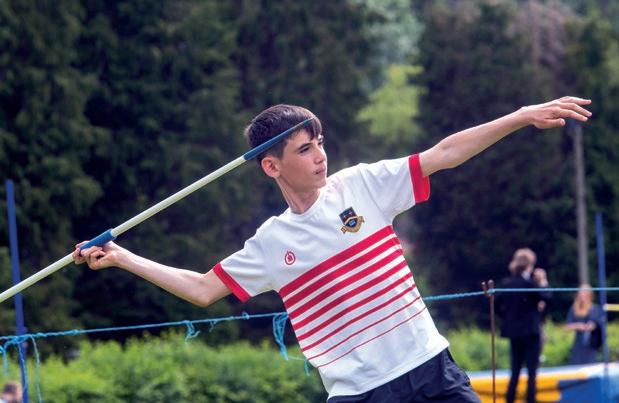
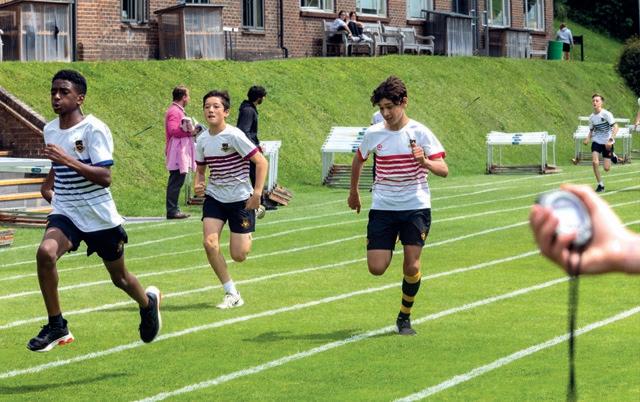
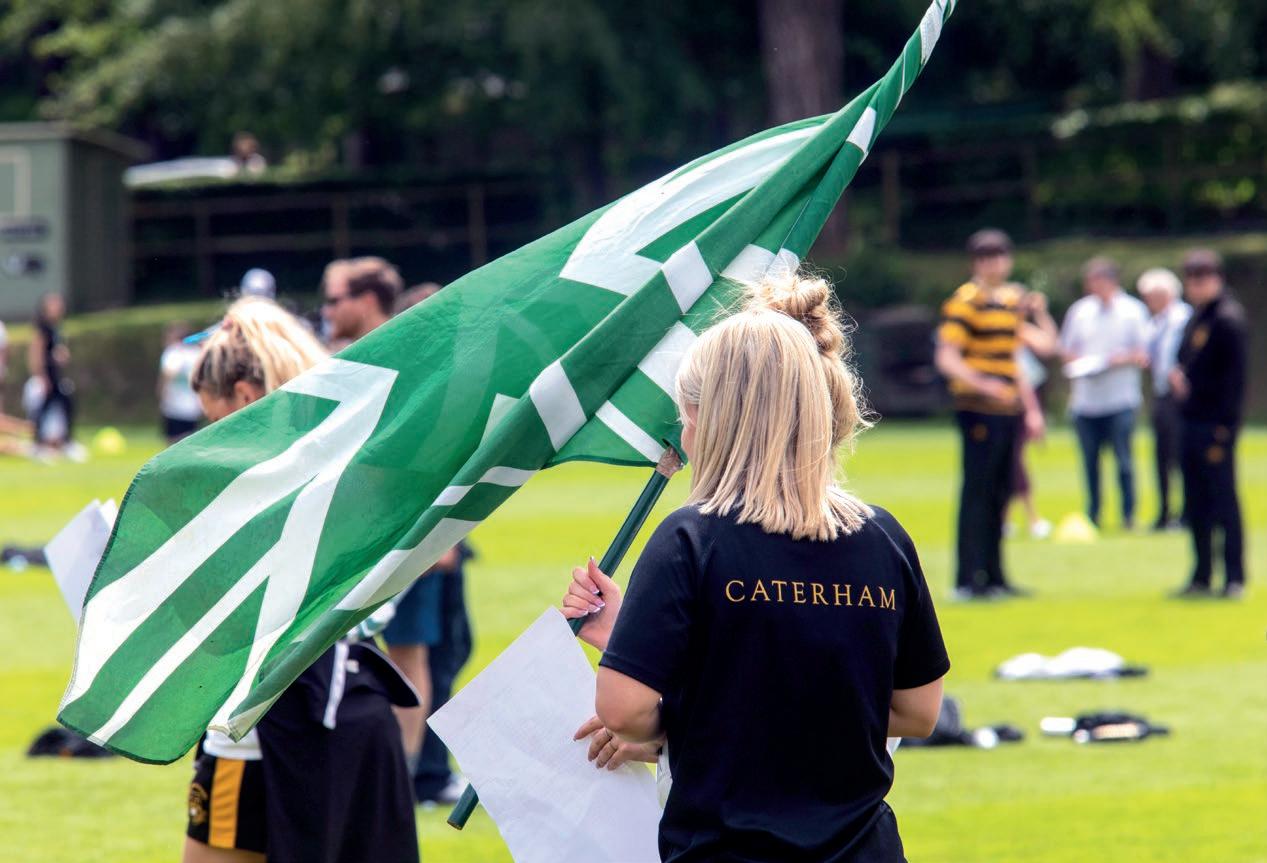
House competition was not diminished in any way by a year spent between physical and virtual school. To see Home and Beeches Field both hives of activity and sportsmanship, with pupils loudly cheering each other on to break records or simply play their part for their House was truly appreciated by everyone this year and a key point in the school year that was certainly not taken for granted.
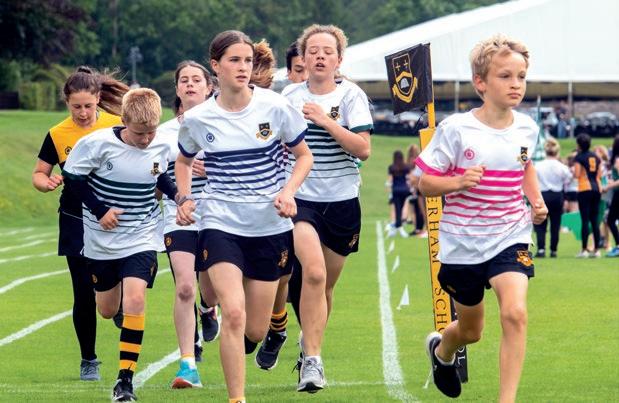
33 OMNIA Issue 09 Autumn/Winter 2021
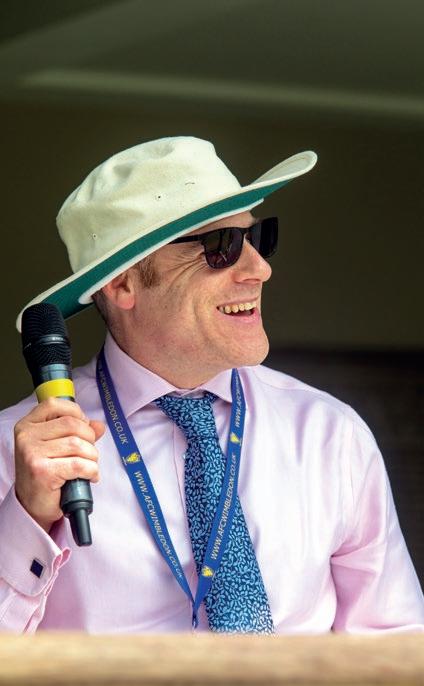
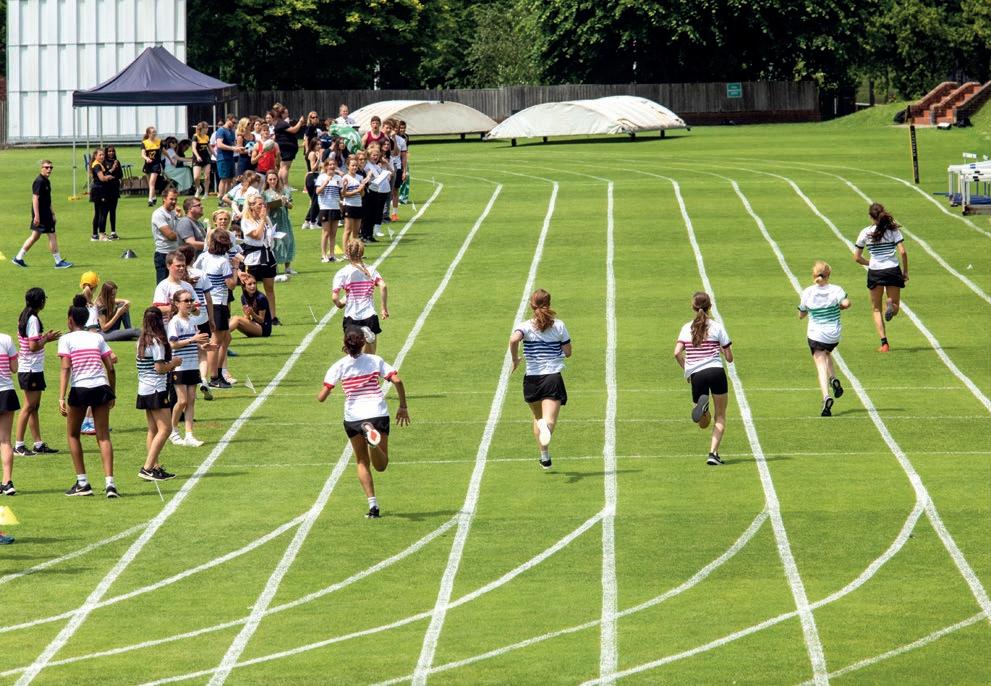
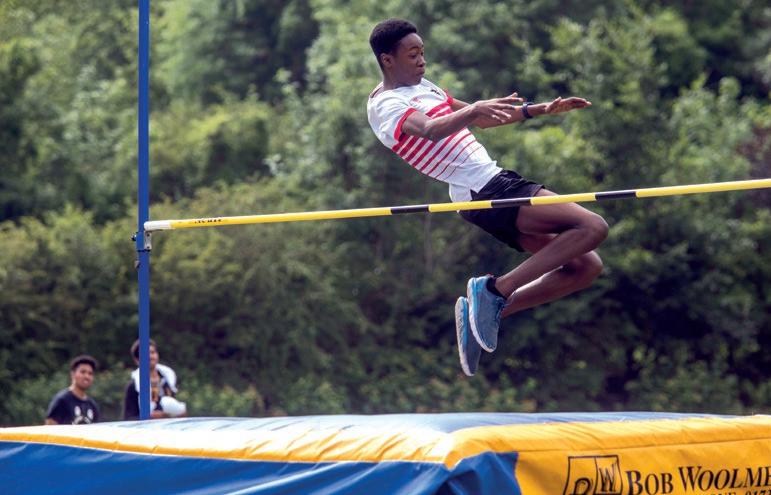
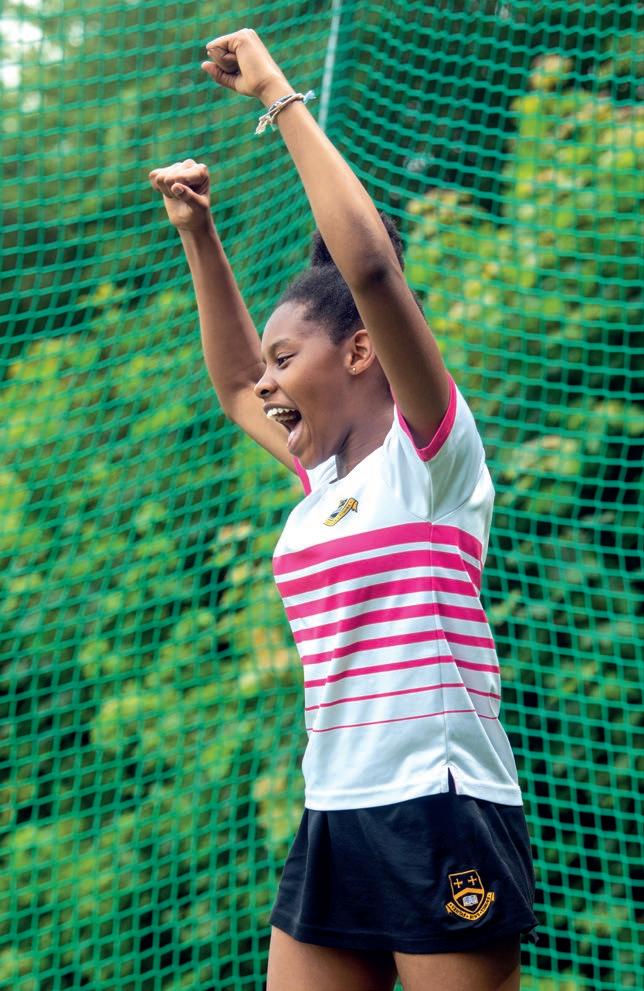
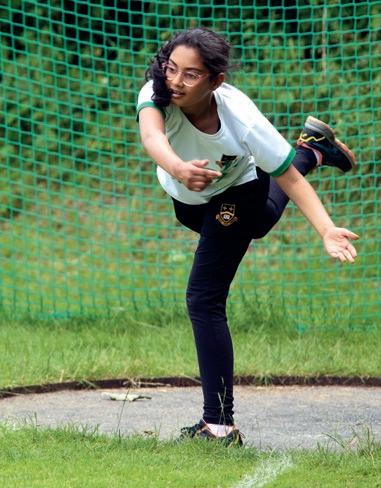
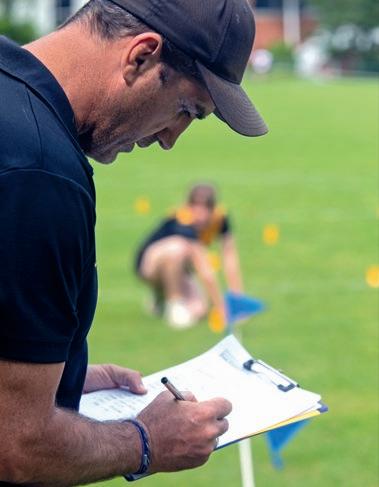
34 caterhamconnected.co.uk
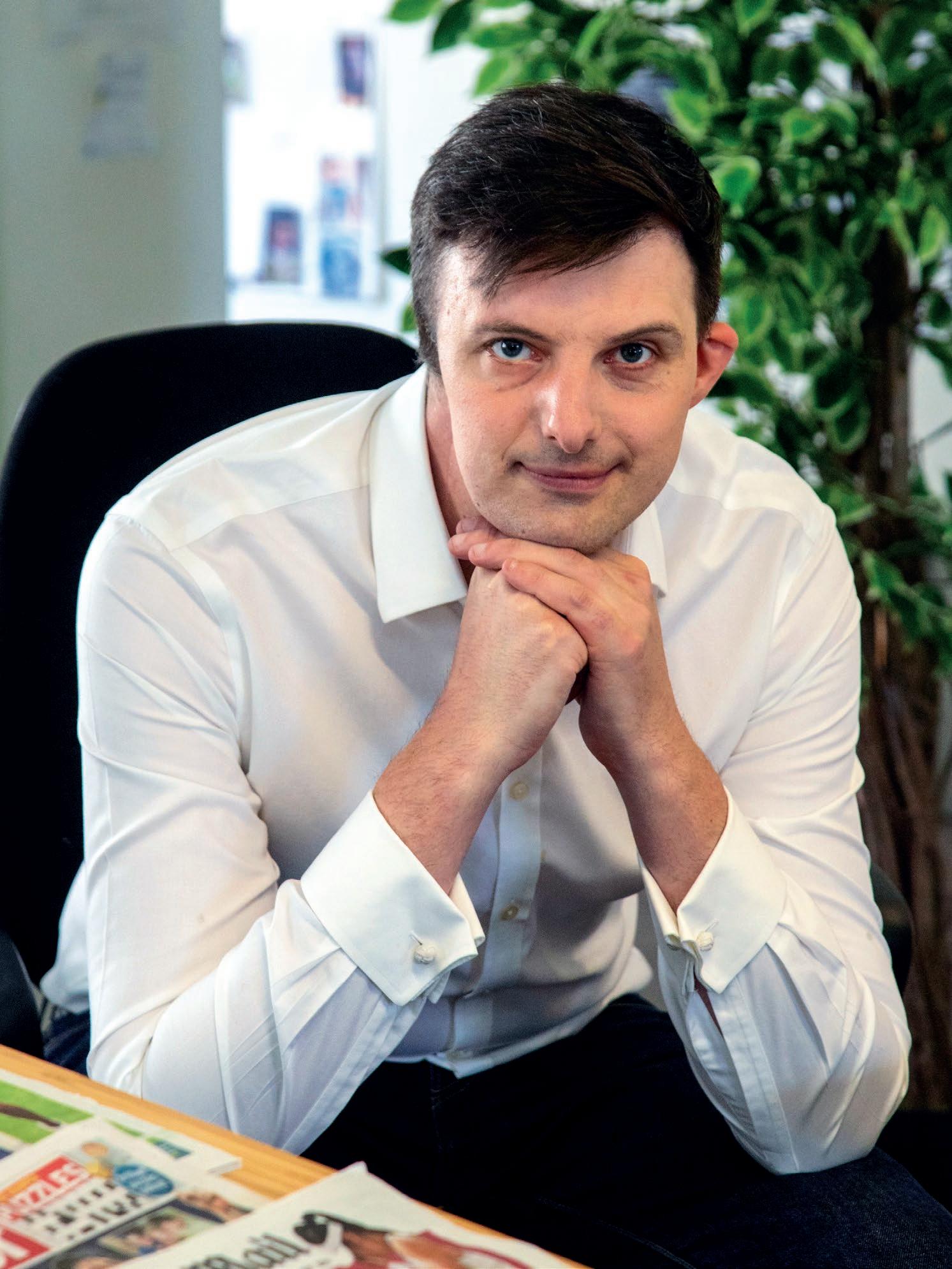
35 OMNIA Issue 09 Autumn/Winter 2021
Epidemic of Mistruth
Former pupil, Will Moy was interviewed by Tom Murphy (former Director of Studies, history and politics teacher) at our Caterham Connected Insight Webinar in October 2020, here are some highlights from that webinar …
At Caterham, Will was one of the first group of editors of the Politics department publication Preview, and has since entered into the world of politics, establishing the fact checking charity Full Fact in 2010, and sat on the board of Hacked Off, the campaign for free and accountable press.
Since leaving Caterham in 2001, how did your career lead you to founding Full Fact?
I studied Philosophy at uni, but with my interest in politics, I was fortunate to land a job as an administrator at the ‘Parliamentary Council for Transport Safety’. It was a privilege to witness how a respected independent charity works in Westminster and I soon realised I was fascinated by it and that I wanted to work with parliament but in a non-party political way.
Colin Low employed me for three years in the House of Lords, a truly inspiring man who ran a number of disability organisations and was a Disability Rights Commissioner. We negotiated changes to legislation including the Equality Act, the legislation behind OFQUAL and the Care Quality Commission. Through reading all that was sent to him, I
realised how much nonsense was put to parliamentarians and government in order to influence their decisions and recognised the need for a factchecking organisation in the UK.
Much of the early volunteer impetus for Full Fact came from a group of friends who met at Caterham, namely Old Cats Alex Steer, Chris Hadley, Colin Hoad, David Bishop and me. It took two years to go from the initial conversations to launching with funding from a cross-party board. A key breakthrough was when Baroness Neuberger introduced me to the businessman and philanthropist Michael Samuel who had independently had the same idea. Together we got it off the ground and we have been lucky to have him chair the board ever since. I have learned a lot from his imagination, wisdom and determination.
36 caterhamconnected.co.uk
Are you politically neutral?
Nobody is completely politically neutral – I stand for the idea that everybody in a democracy matters and should be given good information to make their own choices with, but I am happy to respect the choices we collectively make as a democracy.
Could you define for us what the mission of Full Fact is?
Bad information ruins lives. It damages people’s health, it promotes hate, it hurts democracy. Right now people who choose to misuse information often have an easy time of it.
Every day people are making life and death decisions about their own health and the health of those around them and Full Fact is helping with that, for example in clarifying information regarding vaccines.
When Notre-Dame de Paris cathedral burnt down, one of the first things you saw online was mocked up images of Muslims running away from the burning Notre Dame inferring blame on Muslims. When the coronavirus broke out, it was blamed on the Chinese. Such information is used to promote hate against all kinds of communities and old hatreds are re-ignited with new situations all the time.
Bad information hurts our democracy. It is only possible to make good decisions in a democracy if people are given the information required to decide in a well-informed way. Full Fact’s job is to seek out bad information – identify the causes and consequences, then try to tackle them. We do that by fact checking, which is by looking at individual claims that are made in public life, then asking people to demonstrate that they are true, or correct them if they are wrong. We have had everybody from Prime Ministers on down to correct the record as a result of our fact checking.
When we started, we were told that the Daily Mail would never print a correction to the record. However two years later, the Mail set up its regular corrections column due to Full Fact’s work. We know that more than one national newspaper now reads Full Fact and corrects things before we even ask them to do so.
17 million users came to our website this year, far more people see us in the media, on Google or
Facebook – but we would like to reach more, as well as a wider range of people across all communities.
In the future I would like Full Fact to be more focused, more famous and more feared.
Are you proactive or reactive – do you wait for people to raise issues with you?
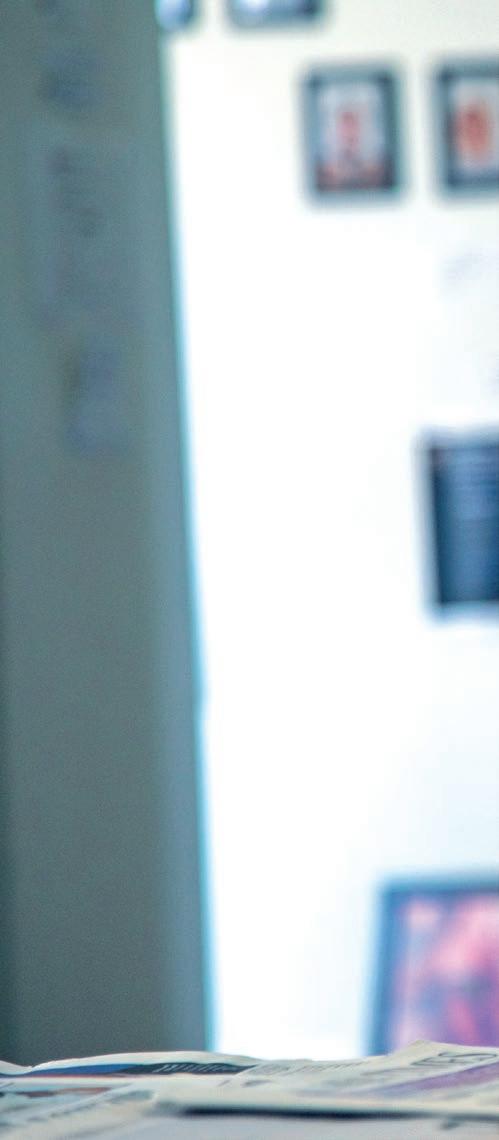
We are both – Full Fact is a charity, we have a legal obligation to be independent, impartial, objective and non-partisan, so it is very important that we monitor public debate ourselves and reach balanced conclusions.
Proactively, we use survey data such as the Ipsos MORI Issues Index to identify what people think are the biggest issues facing Britain today; it is a useful piece of objective evidence to direct our effort.
We also respond to thousands of questions every year, largely from our WhatsApp service. WhatsApp is interesting owing to its end-to-end encryption nobody knows what information is spreading on WhatsApp until somebody asks ‘is this true or not?’. We have launched a service where WhatsApp users can send something to Full Fact, ask if it is true or not and we can respond directly to them.
Do you think that the epidemic of misinformation is growing?
Yes, I am deeply concerned as there are many people in power and positions of responsibility who are building their financial or political success on misleading information; and that needs to be confronted.
On the one hand, we have government making a lot of decisions often with very little information, resulting in an information vacuum, which leads us to a natural state of people talking nonsense.
The other big change is the rise of the internet over the last ten years. When Full Fact started, it was easy to identify the main sources of information in the UK – most people were tuning into the 6 o’clock news, there were essentially 10 newspapers, and five TV channels and you could list every political outlet with an audience of more than 100,000 people – those days are gone. Now those outlets can appear overnight, resulting in a fragmentation of people’s information experiences. All of the
37 OMNIA Issue 09 Autumn/Winter 2021
Bad information ruins lives. It damages people’s health, it promotes hate, it hurts democracy. Right now people who choose to misuse information often have an easy time of it.
new sources are personalised – different people see different things, whether they are online newspapers, social media or Netflix. All the information sources that are shrinking are those giving us shared experiences – terrestrial television, newspapers, radio. Consequently, people’s experience of information and news fragments.
How can we trust that the fact checking organisations are giving us the real facts, particularly in the light of the coronavirus pandemic when there are so many different stories around and analysis of the same data is presented in different ways?
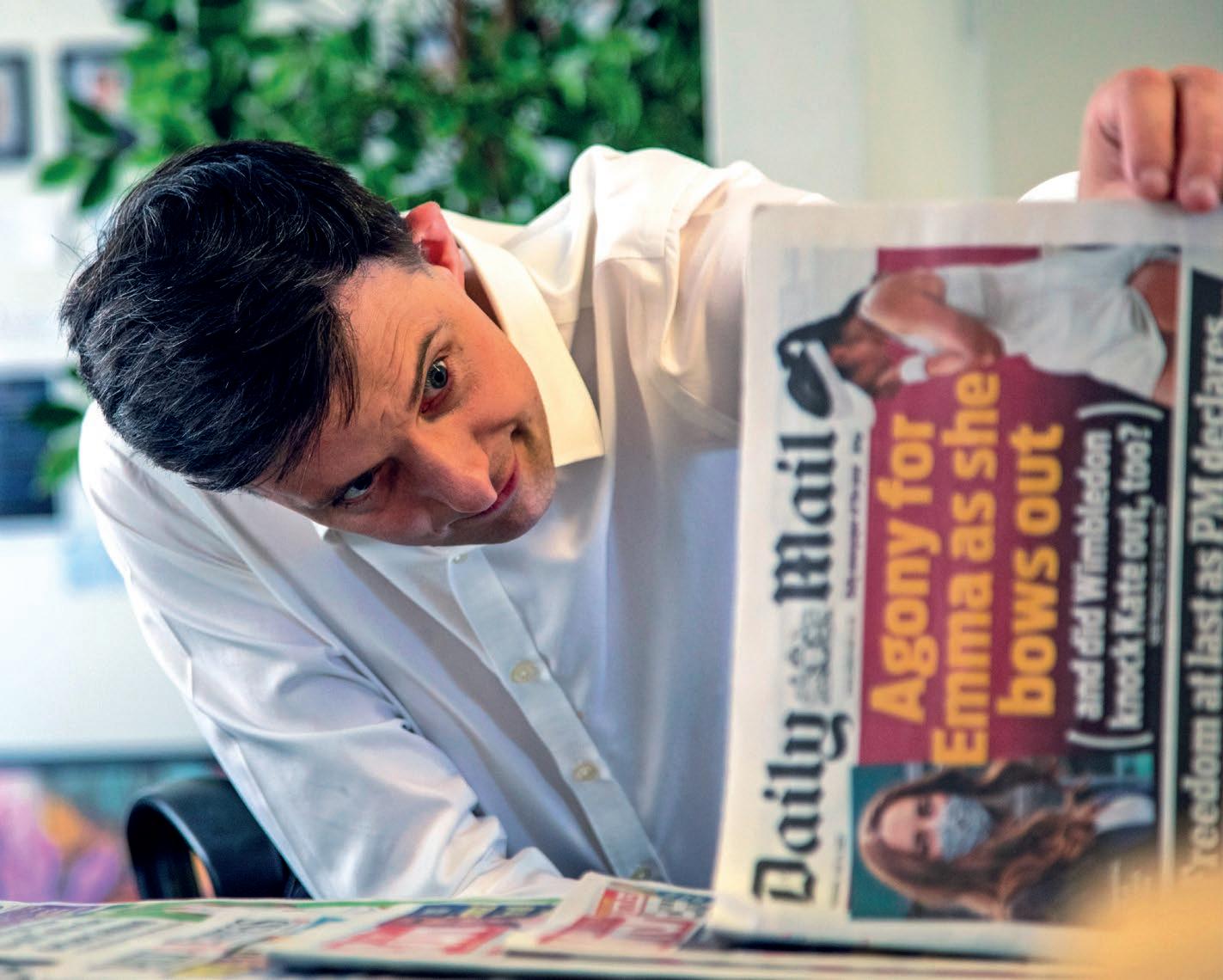
You should not just trust any source. Full Fact links to sources in every fact check. If you want to understand why we have said what we have said and what the knowledge behind it is, you can click straight through to the original
sources, read them yourself and make your own mind up.
That is the central point – it is not about replacing one source of authority with another. Rather that all of us as citizens want to be able to scrutinise things, but many of us do not have the time; so Full Fact tries to be the shortcut to aid you reaching your own conclusions.
Any serious source of information will tell you uncertainty. Fact checkers often spend most of their time reinserting shades of grey into things that campaigners present as black and white. If you read Full Fact, it can be a frustrating read in that it will state ‘it could be this way, or it could be that way ...’ Very often the people we are trying to correct are saying ‘it’s definitely this way’ when they can’t possibly know that for a fact. So, the answer is – have a read of our stuff, judge it for yourself and please make your own mind up.
38 caterhamconnected.co.uk
How would regulation of social media to combat misinformation work in a practical sense. Would social media effectively need to come under state control like the BBC?
Why do we think it is not at the moment? How do social media companies make their policies? Who is influencing them?
We know that social media companies are in constant conversation with the EU and governments. If one of these governing bodies has a concern, for example regarding 5G misinformation, they may well request such information is removed from their platforms. However, these decisions are not made through a democratic process and there is no transparency. The idea that governments are not trying to influence social media companies at the moment is one I find difficult, I think those conversations must be happening, they may well be healthy conversations and good ones – nonetheless they should still be scrutinised.
In terms of how it could work in practice, there is a proposal for legislation called the Online Harms White Paper, which states that OFCOM should have responsibility for online safety and that it should set rules that social media companies should abide by. Full Fact’s position is that would be handing off far too much power to an unelected regulator, and that the duties of social media companies should be set out in legislation and debated in parliament by people who are accountable to the public.
It is clear that where there are negative externalities, there is power, there is scrutiny, and there is a clear case for regulation. We need regulation of the choices the internet companies are making, rather than the choices that we as individuals are expressing. How you make sure that government is focusing on the power, not on us, and on the choices, not on our content – that is a job for Parliament.
As an independent charitable organisation – do you check where donations come from – might they influence you? Should organisations such as Full Fact be a government service rather than left to the charitable sector?
The Government has an obligation to provide us all with reliable information through the Office of National Statistics, Parliament has the House of Commons Library and we have the Research Councils to fund academic research.
However, the idea of the Government
being responsible for an organisation that is effectively a watchdog on the Government and its opposition’s behaviour I think is a non-starter.
It has always been important to me that Full Fact is a charity – we are accountable to a cross party group of trustees and we work openly. When we started working with Facebook we committed to doing transparency reports on all of the work we did with them – it took seven months to get them to agree to that condition and no other fact checker in the world to date has ever required them to do that in order to work with them. We are very conscious of our legal obligation to operate for the public benefit and for the public to be able to assess that.
At Full Fact, we protect our independence in our recruitment processes, in our governance, in our cross-party board and in the standards we expect of staff and many other things. The BBC, after our work with Question Time in 2011, called us ‘a beacon of meticulousness and accurateness’
All of our funding is public on our website fullfact.org/about/funding where we list everybody who has ever given us more than £5000. Two thousand monthly donors enable us to be independent –those people are critical to our future.
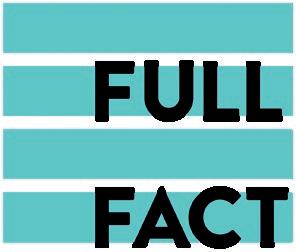
How do you think the mainstream media could more effectively combat misinformation – are they part of the problem?
I gave one of the opening seminars for the Leveson Inquiry, which will stand out as a memorable day in my life, I spoke next to Paul Dacre (editor in chief of Mail Group newspapers) who has more presence in a room than any Prime Minister I have met. The Leveson Inquiry concluded, based partly on 100 pages of evidence Full Fact supplied them, that certain sections of the press routinely prioritised their political agenda over accuracy and they gave several examples of areas where this is true, including welfare benefits, the EU, the demonisation of disabled people – the press has been astonishing and vicious and has frightened many people. The press is capable of being deeply misleading, and is capable of having significant effects on individuals and on society.
There are things they could do very simply to get this right:
1. Stop publishing reporting that they know is not true or not carefully checked – just being less careless is part of it.
39 OMNIA Issue 09 Autumn/Winter 2021
fullfact.org
I gave one of the opening seminars for the Leveson Inquiry, which will stand out as a memorable day in my life.
2. Linking to sources – when Full Fact publishes something you can follow the link through to the source and make your own mind up. If the press routinely went to the same standard, it would be much easier for people to be informed and critical citizens – what a small but meaningful step towards accountability that would be.
Do you need a good team of lawyers?
Yes! We are privileged to have excellent lawyers and I have had to call them at all hours of the night.
UK has very strict libel laws, so you have to be very careful what you say in criticism of anybody, getting that right is very important.
Another aspect is that you can be attacked. The Hacked Off period after the Leveson Inquiry reported was fairly vicious – three-way cross-party negotiations, every major newspaper having skin in the game, very highprofile political environment – everybody remotely involved in Hacked Off was targeted at some stage. So as a Board member at that time I took my turn when the Sunday Telegraph, followed by various other newspapers including the Mail, had a go at me, so I spent a long time talking to media lawyers at that time.
We also talk to human rights lawyers about the careful freedom of expression issues that we are dealing with, as well as information lawyers and others. Ultimately part of how you make a democratic society function is the rule of law, so lawyers play an important role with that. And part of how you achieve change is being willing to stand up against pressure and lawyers play an important role in that, so on both sides I have some people that I am very grateful for.
What is the most important thing you have learnt in your role as CEO?
I first pitched the idea for Full Fact at the age of 24, the hubris that required! I led it at 26 with three staff, we now have slightly more than 30 staff. We have achieved 30% growth year on year on average, over 10 years. You have to unlearn so many things to lead effectively through that level of change. Learning to unlearn was a very important thing for me.
The second thing I would say, and one of the most pivotal things (as I worked seven days a week for a very long time) was learning to manage my energy and not my time, as a route to being effective and enjoying life more.
Question Time
The third thing, and above all, Full Fact has always been a team effort including some people I met back when we were seven years old at Caterham. It is only teams that achieve great things – Full Fact is a true team effort and we are achieving things because we’re a team.
What influence did your experience at Caterham School have on who and where you are today?
1. The politics teaching we had was extraordinary – namely Mr Murphy & Mr Clarke – we were lucky to be taught politics as a living experience and discipline – the meaningfulness of being engaged in politics, rather than reading it out of a text book and I don’t think that Preview would have happened, and I
don’t think that Full Fact would have happened with this group of people had it not been for that experience.
2. I’ve now been interviewed by Piers Morgan on Good Morning Britain, the Today programme with John Humphrys, stood up in the Leveson Inquiry’s seminar in Westminster with every editor of a national newspaper in the country –those are intimidating environments and my first experience of being an advocate of a cause was being in the school debating society. Mr Salem and his predecessor Mr Bleach gave me those experiences for which I am so grateful.
3. Full Fact has been a rough experience at times and is in a rough business, so more than anything else my group of Caterham School friends offer a firm bedrock – I think that is probably the most important of those foundations.
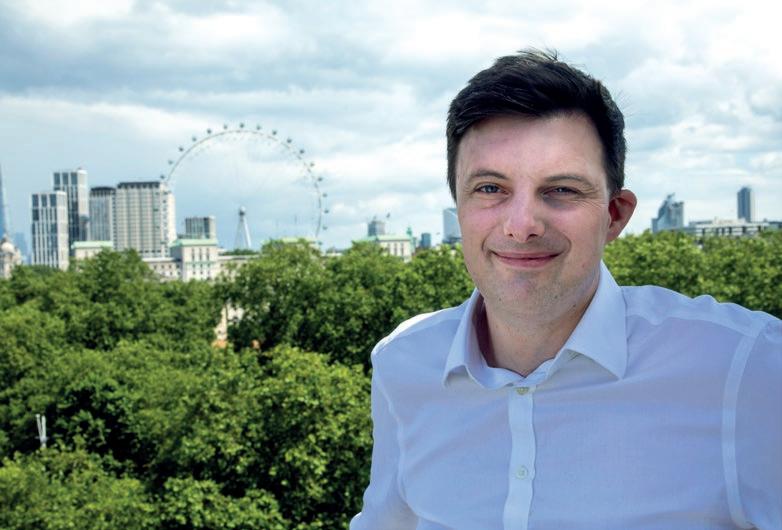
40 caterhamconnected.co.uk
UK has very strict libel laws, so you have to be very careful what you say in criticism of anybody, getting that right is very important.
in 2011 called us ‘a beacon of meticulousness and accurateness’
For over the last 50 years Caterham School has had a strong record of helping pupils who want to become Medics, Dentists or Vets. During the spring of 2020 we decided to take this provision to a new level by setting up a new society, The Wright Society (TWS), and creating the pupil posts of President and Vice President.
The Wright Society
With the arrival of Max Fogelman and Louie Steel in the Sixth Form, the moment to do this just felt right. They are outstanding pupils academically but also their commitment to medicine comes from their own hearts. They are both passionate about helping others achieve their dream of studying medicine. Max and Louie put in a formidable amount of work last summer creating resources and guidance for future Lower Sixth Formers, second to none in the country. Having had a superb year helping run the Society, Max and Louie have now handed the reigns over to two amazing Lower Sixth Formers, Rosie Home and Michelle Wong, who have already started work with me to improve TWS even more. Max has a place at St Andrews and Louie at Newcastle to study medicine. I wish them every success and look forward to welcoming them back here anytime. As founders of TWS with me, they are always welcome and I look forward to a long association with them through their medical careers. I have known Dr Wright for many years, not only as a Doctor, but also having taught two of his daughters, and was delighted when he agreed to be the Patron of the Society. His input and contacts and passion to help young people who want to study medicine is infectious.
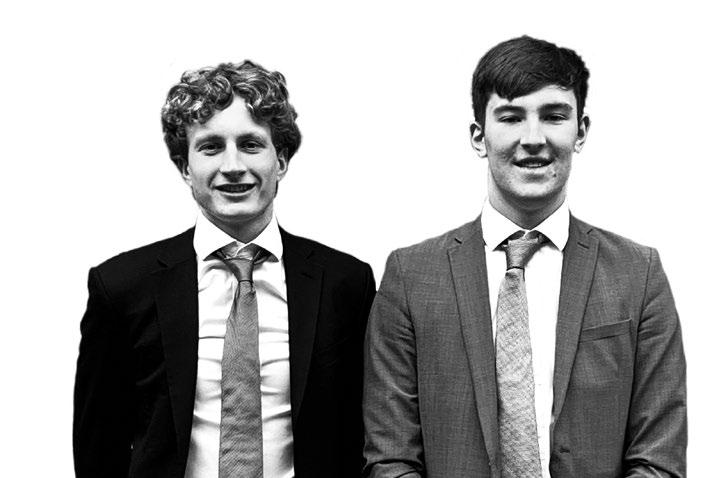
I must also pay tribute to two members of staff without whom The Wright Society could not function and to whom I owe so much. Mrs Seal and Miss Quinton have gone above and beyond the call of duty since its foundation to ensure the sessions run smoothly. Their passion to help the aspiring medics, their depth of knowledge and contribution to the society is amazing –all done in their spare time, without me ever having to ask. They are extraordinary people and embody they spirit that The Wright Society stands for.
Dan Quinton
Interview by Max and Louie: What is your general role within Tandridge, working as a doctor?
I have been a GP at Caterham valley medical practice for 25 years, as of the 5 February this year. Slightly sadly it was a milestone that just came and went because I didn’t realise it was my 25th year.
I have had a really good ‘portfolio career’ as a GP. I have always been really interested in medical education, so three years into my GP career I became a GP trainer. This is where you supervise qualified doctors who are completing their vocational training under your supervision. I was a GP trainer up until about 18 months ago, when I took on a new role as clinical director for North Tandridge. What has happened under a reconfiguration is that there are now approximately 1,700 primary care networks across the country. Based on research and evidence as to how best you can serve the needs of a population, it was found that organisations that look after groups of between 30-50 thousand patients are the most effective in delivering healthcare and understanding the needs of the local population. Initially our primary care network cared for about 48,000, but since Godstone joined us, it is about 55,000. As clinical director I effectively have overall responsibility and accountability for that population, which is a real privilege.
What has helped me along the way is that I went from being a GP trainer to being a program director. That involved providing education and support to about 78 different doctors in training, who were covering 26 different schemes across the East Surrey locality. Myself and four other program directors were responsible for their education and their wellbeing and pastoral care. That was really enjoyable, not without its challenges, because as you can imagine when you
41 OMNIA Issue 09 Autumn/Winter 2021
An interview with our Patron Dr Richard Wright by Max Fogelman and Louie Steel, TWS President and Vice-President
SEE PAGE 101 FOR INTERVIEW BY OTHER MEMBERS OF THE WRIGHT SOCIETY
Dr Wright has a long connection with the School, his daughters have attended the School and he is the School’s doctor
Dr Wright also has a long connection with medicine as well, being the son of a doctor as well as one of his daughters becoming a doctor
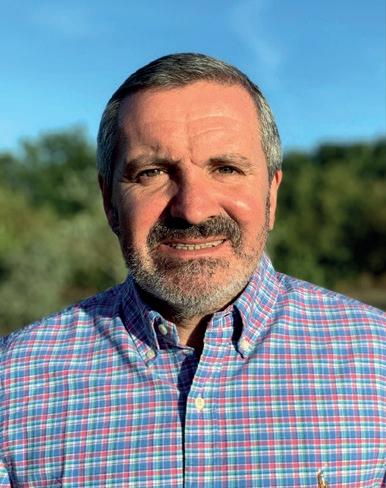
have 78 different individuals who are all working in different roles, some are enjoying the jobs and some are finding it incredibly stressful. This educational role helped me then develop some managerial skills, and I have to say the health education in Kent, Surrey and Sussex (the organisations I was working for) were really good at helping with personal development. I stood down from that role after seven years, in part because it is a significant responsibility, and it does start to take on a large chunk of your time outside of your work as well. I then became part of the governing body of East Surrey CCG, which is based in Oxted. I was clinical director at the CCG and sat on the governing body there. When you have providers such as hospitals and commissioners such as the CCGs, my role was to provide clinical input into the decision making as to where funding was allocated. At that point we had about 178,000 residents whose care we were responsible for. Working with a very good body of executives, lay members and other medical colleagues, I was able to really develop managerial skills that have really helped me in my role in the primary care network now.
Do you think the change and the move towards smaller networks has had a significant impact on patient outcomes?
Personally, I think it is the most exciting thing that has happened in my career to date. I have seen a number of different organisations of how healthcare is delivered in the NHS, and I do think PCNs are absolutely the right vehicle to ensure that we understand the needs of our population. We work with some really good tech companies that help us analyse the data on our population and analyse where the pockets of deprivation are. We are able to see individuals whose social needs are not being met, also. We are now working collectively across a whole range of organisations, which is really exciting, that put together a population health management program for North Tandridge. This is happening up and down the country, at various stages of maturity. We are just going into our third year of primary care networks, and we are now working with a national organisation called connecting communities. They started about 25 years ago, and they bring together anyone in the community who is interested in improving the wellbeing for their local population.
If you look at the data on healthcare outcomes, HCPs are responsible for about 25-30 per cent of the overall wellbeing of a patient. A vast majority of this comes from other organisation. Through PCNs we can bring everything together. It is so great to have this broad base of teachers, local authority, the council, healthcare and our local residents (most importantly).
Can you reflect on what we have done with the Society and what you think about the things we have been doing this past year?
It is a massive honour to be involved. Having had contact and involvement with the School for quite some time, and also with Mr Quinton having taught both of my older daughters biology. Looking at the Society, I think it is so exciting because the potential is so huge. Bringing together colleagues from other schools, such as the London Academy of Excellence and also pupils from Oxted School is a massive positive. Trying to use the Society as a springboard to look at the best way to encourage people into a career in healthcare in the future is really important and exciting.
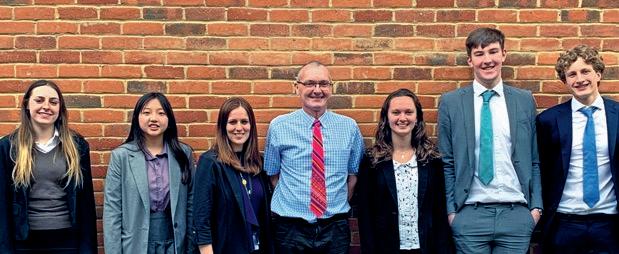
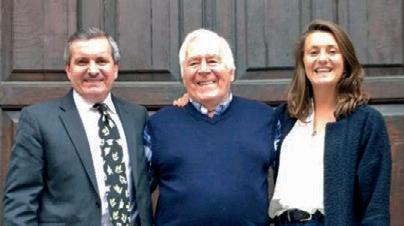
Finally, what was your motivation to go into medicine in the first place? Did you expect to do so much work in the community when you were first applying for medicine? My father was a GP, and I grew up never wanting to do anything else. Having never wanted to do anything else, and having sat in the back of the car while my Dad was doing home visits from about the age of seven, I was trying to be nosy and find out what was going on.
I was lucky enough to get into St. Thomas’s medical school, living opposite the Houses of Parliament. Having qualified and started a career in general medicine, I was planning on being a cardiologist, and I still love cardiology to this day. But things change in life, and you start a family, and your priorities change.
I still love my cardiology, and I still get to use it every day, since you always see cardiac problems. I have loved my GP career, and there are ups and downs like there are in every career. There are times when the job is hard and you get home at the end of the day and feel very tired, but it has been immensely satisfying and especially now, looking at population wellbeing, is even more so.
42 caterhamconnected.co.uk
The Wright Society Team
Caterham Connected Mentorship Matters.
Caterham Connected, as the name suggests, will forever keep you connected to the School and will have very tangible benefits for life for you whether you are a Sixth Form pupil, alumni, parent, staff or friend of the School.
CC is a network of everyone who has ever had a connection to the School. CC run a varied program of physical and virtual events from career insight evenings in high profile venues such as The Law Society or webinar insights on politics, sport, drama etc. to theatre and gallery trips to book clubs and more.
caterhamconnected.co.uk
43 OMNIA Issue 09 Autumn/Winter 2021
“I used the Caterham Connected platform to research my application for a competitive degree apprenticeship and made contact with a partner at an Accountancy firm. Through the Caterham Connected platform, I was able to get into contact with them, and they gave me advice regarding the role and more importantly, what type of person the company would be looking for. They were not involved in the application process, but their advice really helped me through the stages, especially in the interview stage as I effectively felt I had a head start and knew what they were looking for. Ultimately, the research and contacts I was able to make gave me great confidence as progressed through and I believe this confidence helped me become successful in securing the place.”
Husayn Caterhamian
It’s been tough making strong connections amid the pandemic as many students haven’t been able to have access to networking events. However, Caterham Connected has been such a valuable resource in making strong connections with fellow Caterham alumni that have interests and valuable insights into what I want to do in the future. With the help of the platform, I’ve been able to speak with senior contacts at Nestle, and an employee at the Bank of England, an industry-leading design company, and many more. This platform has been invaluable in me gaining a deeper understanding of many different facets of the working world and I’d strongly encourage anyone who’s looking for career advice or a more widespread network to utilise Caterham Connected as much as possible!
Kwesi Old Caterhamian
Members can connect through the Caterham Connected platform to utilise the enormous potential of our extended global community. The networking power of the platform is powerful and as a member, you can tap into this at the touch of a button. The mentoring function in particular will help you to seek work experience, interview practice, professional mentoring, university/career advice it could even help you find a job at some point now or in the future.
A strong body of Caterham Connected members are prepared to offer these opportunities, you can connect with them now caterhamconnected.co.uk (and download the app). This mentoring facility demonstrates clearly the power of a connected community to achieve great things by working together.
The Insight events have been intellectually stimulating and thoroughly enjoyable. Attending one of these events while searching for permanent work, I was fortunate enough to network with an Old Caterhamian working in politics, the field I was keen to enter into. Their advice and guidance was invaluable in helping me hone applications, practice for interviews and present myself as a rounded professional. I believe this mentoring was key in helping me secure my current position in political consultancy and to refine my skills in the formative stages of my career. I would encourage any Old Caterhamian looking for work or professional advice to utilise Caterham Connected to the best of their ability and to seize all of the opportunities it offers for professional development.
Luca Old Caterhamian
Caterham Connected allowed me to seek guidance from contact ranging from directors at KPMG to the head of sales at successful finance firms . This gave clarity and motivation in my abilities as well as highlighting areas to review . Coming from a background with fewer connections or avenues to success it can be easy for your goals to seem unrealistic but this platform makes it that much easier to see your goals manifest. Networking allows you to ‘get your foot in the door’ and gives you the opportunity to show how talented and skilled you are.
Wesley Old Caterhamian
Download the Caterham Connected app
44 caterhamconnected.co.uk
Caterham School Graduway Community
— Shortlisted for: The Bridport Prize and Live Canon’s International Poetry Prize.
— Chosen for The London Library’s prestigious Emerging Writers Programme in 2020
— His first poetry pamphlet Cut The Black Rabbit , published by Against The Grain Press, 2020, vividly explores his years of homelessness and eventual return to ‘normal life’. It has been included in The Poetry Book Society’s Winter Selection 2020.
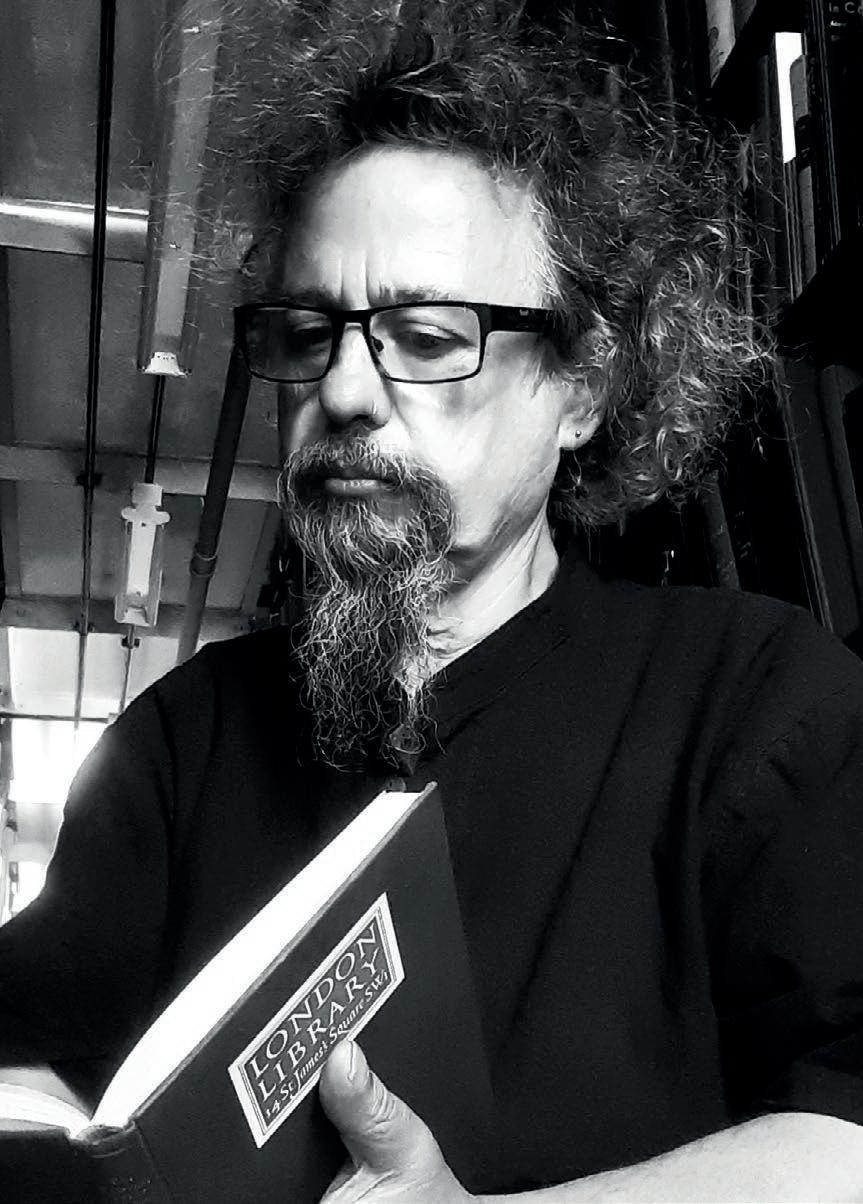
Life in
POETRY
Benjamin Cusden
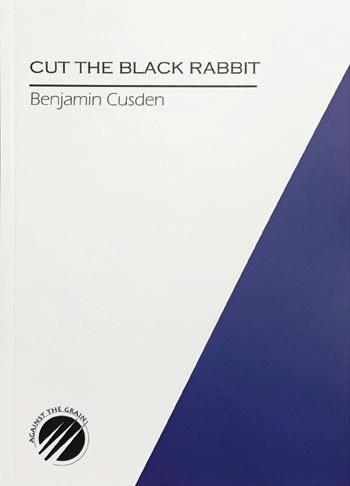
(OC 1978–1983 – Class of 1985)
Benjamin has experienced the highs of an award-winning career to the ultimate low of living homeless, but throughout poetry has provided a lifeline.
45 OMNIA Issue 09 Autumn/Winter 2021
How many poems have you had published – where can your poetry be found?
I honestly couldn’t say how many poems I’ve had published – they’re scattered around the world in magazines and anthologies, the latest have appeared in: Acumen Literary Journal; Under the Radar; Prole; The Dawntreader, and three were recently translated into Portuguese for the Brazilian journal ‘Só a poesia salva’.
The ground is hard – always hard, always cold –it doesn’t matter where you are, it’s un-giving. Spread out an army of blankets, clutch of sweaters, a murder of trench coats – it’ll still be hard and cold.
The Sun, The Moon. the circle of stars, time is the freedom of doorways.
Bend poor person’s elbows and arms and stretch to support the neck, this provides the position to protect your head, keep eyes open or hair triggered shut – ready to jump.
The Sun, The Moon. the circle of stars, time is the freedom of doorways.
Peer out through your covers – hoody and woollens, remnants, your handouts, the trash you’ve collected, newspapers, cardboard, polystyrene padding –be prepared.
A murder of doorways, The Sun, The Moon, freedom is hard and cold.
benjamincusden.com
soundcloud.com/benjamin-cusden
https://www.youtube.com/channel/ UC_pQF3JfsmfhlveYXEN03vw/videos
I’m a contradiction in the sense that I like to read poetry and have it published in print (I haven’t embraced online journals yet), but at the same time love experimenting with sounds and words so I’ve started to create video poetry and audio soundscapes, which I’m slowly loading onto my YouTube and SoundCloud channels. Some of these will be displayed alongside me reading live at Awen 33 Gallery, as part of Metmorffosis festival, in Wales this Summer. My book ‘Cut the Black Rabbit’ was published in October 2020 by Against the Grain Poetry Press and is now in its second edition. It’s a partial chronology of a traumatic part of my life, starting with the unexpected end of my TV career due to ill health, flowing through the resultant years
of homelessness and coming to rest with my return to Purley to care for my disabled mother. These poems were, emotionally, the hardest I’ve ever tackled.
Have you always had a passion for writing?
I was a slow learner; reading didn’t come easily to me but when it finally clicked the result was phenomenal and I was soon reading three or four books a week. The writing followed soon after, mainly short adventure stories; then one day, when I was 10, a shaky/clunky poem just appeared in my head: “TS Eliot, James Herriot, on the bookcase – no room, not even one space”, absolutely terrible! I wrote a second poem the same day: ‘Animals’ and that was published in the Junior Animal Aid magazine the following year. I don’t think I was looking for poetry – I think poetry found me.
Do you remember what inspired this passion?
My parents were both very keen on poetry and I remember my father forever reciting Betjeman as he strolled around the house. I was also lucky to have Mr Beldham as a teacher in the Junior School; he opened my mind to both poetry and animal rights. I learnt that poetry can be anything, it doesn’t have to follow given structures and doesn’t necessarily have to tell a story (or rhyme!) – it’s often more about feeling and connection, touching an unspoken or unrealised emotion. Poetry holds power too, it can be extremely political, but can also be subtle or play tricks and hold secrets.
My luck continued when I moved up the Main School and had Mr Godwin as my teacher, he was an early champion of my work and truly encouraged me to write.
Everything in life is poetry – it isn’t just words on a page and poetry exists without us, we’re not relevant to poetry. It’s the shadows at night and prisms of light on a white cotton sheet in the morning, it’s the breath on a winter’s day – it’s the things that happen without our awareness – it’s silence, chaos, bleeding and feeling –it’s the spaces in between, it’s everything. In my mind, ‘life’ is a metaphor for ‘poetry’.
46 caterhamconnected.co.uk
Note to the New Homeless
You trained as a journalist, and then moved into television becoming an award-winning video editor. What did your career in tv involve?
I left Caterham after Fifth Form and trained as a journalist at East Surrey College. I soon realised that the constraints of journalism didn’t suit my passion for creative writing but was lucky enough to learn video production/post-production skills and, when I left, after a brief stint on Sounds magazine, I started my own video company filming weddings and local bands etc. I was also fronting punk/industrial bands – writing the lyrics, singing and playing bass, so my company really complemented that lifestyle. I then got an assistant director’s position for a local news production company and moved my career to central London, as an offline editor (doing the initial rough cuts for TV shows). I worked extremely hard and soon became the head on-line editor, then expanded my career by going freelance. During that time I won over thirty awards, mainly for corporate clients such as Virgin Atlantic and Cathay Pacific.
I understand that in 2004 you became homeless. I am sure this experience must be difficult to reflect on, but if you are happy to talk about it ... Can you explain what led to this?
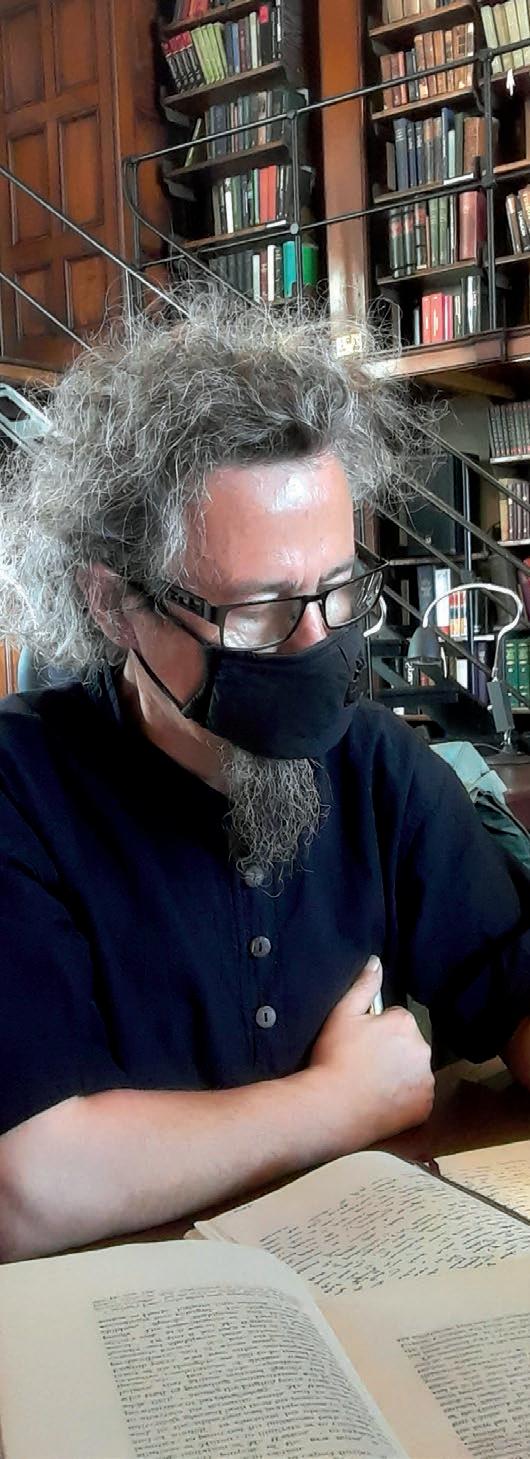
At the height of my career I moved to Cornwall, earning enough to only work four months a year. It was idyllic, but, when digital technologies started to outstrip analogue, I had to move back to London, retrain and fight for every job. Unfortunately, as a result of overworking, drinking heavily and not sleeping, one day I collapsed. I’d been having a succession of ‘nervous breakdowns’ and finally had a heart attack. I was exhausted, burnt out and unable to work.
This heralded the first faltering steps towards homelessness and I was mentally unable to prevent it. My partner, two children and I moved in to stay with close family to whom I gave my savings for safe keeping, which, unfortunately, they spent and were unable to repay. This betrayal of trust and loss of several thousand pounds was the final blow.
We moved back to Cornwall and managed to rent a caravan but, after the tenancy expired, the landlady wanted to let it out to tourists and we had to move out. There was a brief stay at a closed holiday park supplied by Cornwall Council but, after a failure in communication, we found ourselves fighting them for ‘duty of care’, which we lost. We were then on the streets for six months, living in a tent without money or any idea how to get help, constantly afraid for our safety.
I persevered with the council – they reversed their decision and accepted a mistake had been made; we were finally sent to a B&B, then received a council house six months later.
I started another video company, with the help of Truro College, but ongoing mental and physical health problems meant this was short lived. Due to my illness and my partner’s, undiagnosed bipolar disorder, we lost the house after three years and were homeless again. This time we separated; she and our children managed to get accommodation, but I forfeited my place and was street homeless for another fourteen months.
Can you share some of your experiences/challenges in being homeless?
Everything changes immediately. Everything you know or rely on goes. It’s like being lost with no destination. Public toilets become your bathroom but with no shower, bath or privacy. The tent or street becomes your kitchen and bedroom but with no cooker, fridge, freezer, kettle or bed – and again no privacy. No front door, walls, or roof. You become simultaneously invisible and permanently on display. Whoever you were in life before that moment is gone, you are nobody; it’s extremely hard to explain, it’s as if even the memory of you has disappeared.
The initial concern is knowing where to get help from. It seems absurd, but to whom do you turn? I had no idea I was going to be made homeless from the council house in Falmouth. I was drinking a cup of tea, there was a knock on the door, a man quizzed: ‘Are you still here?’ and we were given twenty minutes to pack our things and leave. We stood
47 OMNIA Issue 09 Autumn/Winter 2021
on the pavement with a couple of bin bags watching the house get boarded up. My tea was still inside undrunk – within twenty minutes I didn’t own a kettle, a mug or even a teabag. I’d just fallen to the bottom of Maslow’s Scale of Needs and didn’t know what to do.
A deadweight in pneumonic sweat, I am the anatomy diagram man –anonymous, motionless.
Pinned down and exposed from my galea aponeurotica to my extensor digitorum brevis –
I’m naked to the world whether clothed or not, deskinned to flaunt my inner workings, eyes fixed forward unavoidably meeting any voyeur’s stare.
The priorities are to find shelter, keep warm, eat – the constant cycle that has to be maintained; it all sounds very basic, but none of these come easily. One has to find a source of income and there aren’t many options open. Finding the path back to ‘normality’ or ‘civilisation’ was a daunting task, took a great deal of communication with all the relevant authorities and often there was very little they could do. Everything takes time and there is a lot of empty space in homelessness – you can’t kill a few hours watching TV or invite friends around for a nice meal, you’re stuck on the street.
I was hospitalised on more than one occasion after being attacked by drunks while I slept. Broken jaw, cracked ribs, fractured cranial orbit, four front teeth kicked out. I started to stay away from the towns and camped in the countryside, which created problems of its own – no money, shops, or food. I foraged what I could, scrumped apples and even killed and ate wild rabbits (although I’ve been a vegetarian since age 12). I was a completely different person in a very strange world.
How has poetry helped you throughout your life?
Poetry is a constant, it exists in everything; it evolves constantly and
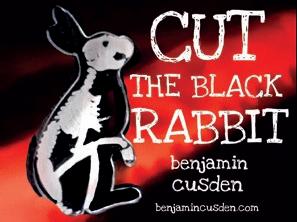
one poem can have new meaning with each reading. Because of this, poetry has helped me immeasurably – to focus my mind, explore new avenues of thought, truly touch my inner self, and sometimes it just makes me giggle. For me, it has the power to communicate in ways that no other medium can.

What are your hopes for the future?
I’m currently working on a full collection which I hope to have finished by the end of the year and it would be wonderful to find a residency somewhere that would allow me the space and time to concentrate on this (any help from Old Cats would be greatly appreciated!). I’m currently being considered for a week studying with the Poet Laureate, Simon Armitage, in September, so fingers crossed! Ultimately, I’d like to run poetry workshops and retreats, mainly for underprivileged writers who don’t have the means for some time away and guidance with their work. Writing, in all its forms, can be therapeutic and a positive way to express inner feelings in a considered way and a few days in a new creative environment can be a life changing experience.
What is your favourite memory of your school years?
The friendships I had there, especially with Jonathan ‘Victor’ Chamberlain and Jon Miller – amongst others, sorry if I didn’t mention you but you know who you are! – hold priceless memories. I must also extend my heartfelt thanks to Mr Beldham and Mr Godwin for lighting the fire of poetry within me, and to Mr Rogers who persevered and eventually helped me pass my maths CSE – that truly was a miracle! Oh! And that time I almost scored a try playing for Aldercombe – almost sensational!
48 caterhamconnected.co.uk
I Am Homeless Mornings
at Caterham School
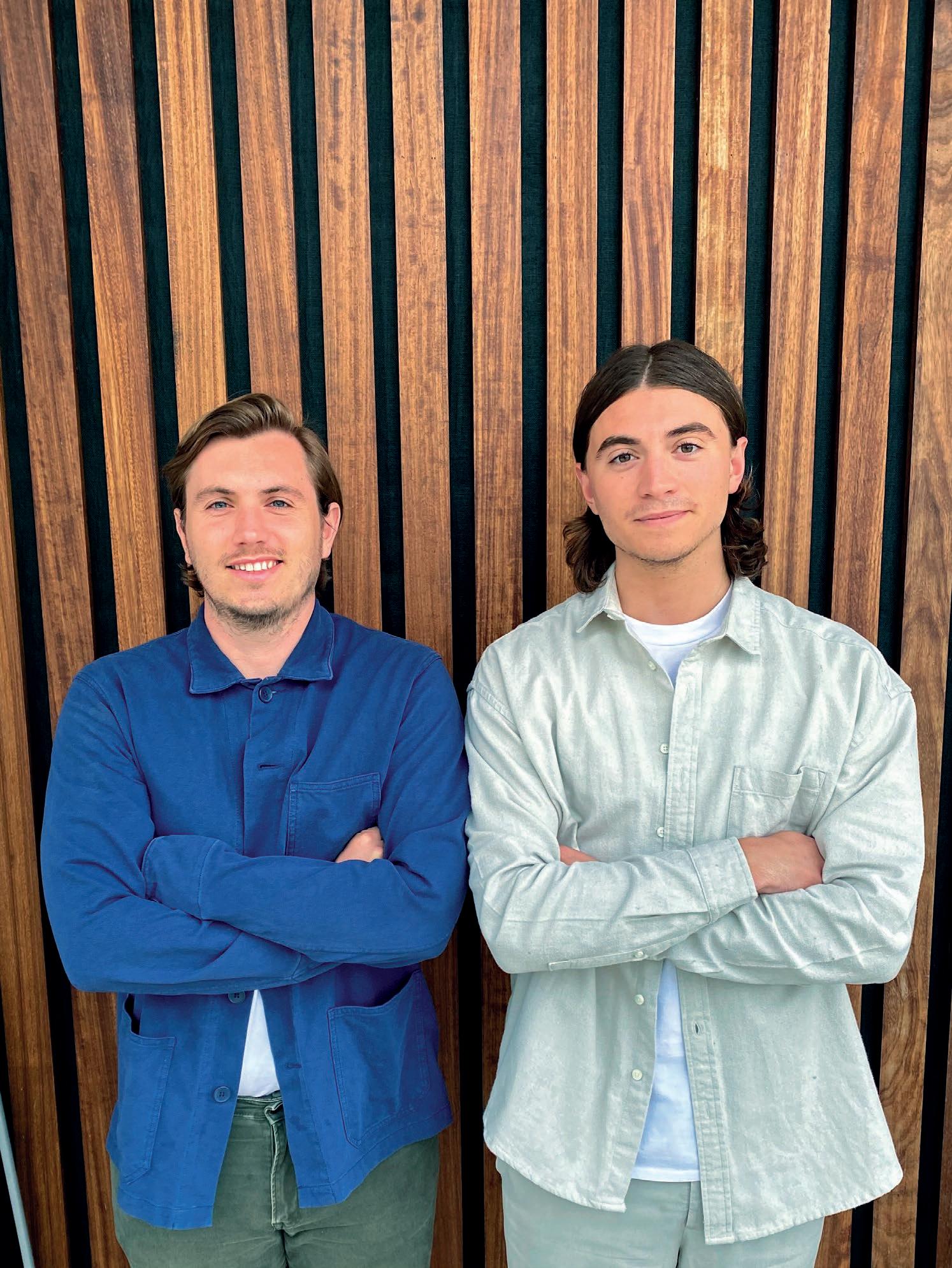
49 OMNIA Issue 09 Autumn/Winter 2021
OC Josh (left) with his brother, OC Harry
Meet the ‘boy’ behind the brand
An interview with Josh Higginson (OC 2010) by his former economics and business teacher, Cathriona Wallace
Josh, you are clearly no longer a school boy but you were when you discovered the unearthed brand during our business studies lessons during your time at Caterham School. My memories of this are very clear, I remember being wowed when you presented your vision for the unearthed brand in a class presentation aged 16.
Can you tell us about your memories of how the brand came to be back then?
I do remember quite clearly sitting in the corner of the classroom, being really nervous about presenting my ideas. We had just come back from the summer, where we had been set an assignment of getting some work experience. I had gone to my dad’s company to get some experience in the food industry. The marketing department, I think rather reluctantly, took me in and tried to find something for me to do. At the time, the company supplied predominantly private label Mediterranean goods such as olives and charcuterie to retailers across the UK, and I joined the team at a time where they were discussing what a branded offering of these products may look like. So, I just delved into as much research as I could and put loads of ideas on paper that I then presented to the team. It was all received extremely well and a lot of that initial work was what formed the brand unearthed. We launched with three different olive lines, and now Waitrose has its own unearthed section with charcuterie, Spanish tortilla, dips and lots more. We were studying branding and marketing at the time at school, so to see how you could take something from the classroom, form ideas on paper and take that to actual product on shelf was really a satisfying experience.
What was your journey from leaving Caterham School to making your idea into a successful global brand that now stocks over twenty products in major supermarkets worldwide?
I stepped away from the brand and company to go to university, and then I took a few different jobs to gain a bit of experience away from what I already knew. In the end I knew I wanted to get back into the FMCG world and back to unearthed. So in 2016, I packed my bag full of olives and charcuterie and moved to America to launch the brand there. With almost no contacts in the US and no real knowledge of how the industry works out there, this proved a very steep learning curve. My time in America, I think, was a real lesson in picking yourself up from setbacks. Our first year was almost a comedy sketch of errors and things going wrong, but we knew we had unique products and a fantastic brand so we stuck at it. You can now find unearthed in regional and national retailers in every state across America. The brand is in all Waitrose stores in the UK, and can be found on shelves in the Middle East, Australia and the USA.
You were never a pupil to ‘stand still’ at school, whether in the classroom or on the sports pitch, you were always creative in terms of moving ahead and it seems this has not changed. With one successful brand under your belt you are ready to launch another ‘The Deli Society’ – please do tell us more about this exciting adventure.
Thanks! The Deli Society is a new D2C company founded by myself and my brother Harry (who was also at Caterham, class of 2016). Harry and I have grown up in the world of food and drink, and absolutely love it. But
50 caterhamconnected.co.uk
we know the wine, cheese and charcuterie industries are overwhelming, daunting and quite often snobby. We’ve created The Deli Society to put a stop to daunting terminology, to put down the mild cheddar and take our members on an easy to digest journey of discovery through the most amazing, artisanal vineyards and farms in Europe and the UK. Through this subscription, we learn how to pair wines and cheeses together and understand what makes these products so special to their local communities. Each month we choose a specific region or country for our wine. We then pair this with some of the world's finest artisan cheeses and our craft charcuterie from the same region or country. Tasting notes and loads of photo and video content will have you learning and discussing with each box received.
What does a typical day look like for you?
We are at pre-launch with The Deli Society at the time of this interview, which is exciting but it really does mean that every day we find out there’s another process or step we have to go through. One of the things you realise when you launch a new business, is how much more there is to do than you originally plan for. Lists are my saving grace so my days, however different, will always start with a to do list. Harry and I will have a 10-minute meeting at the beginning of the day and at the end to check in on each other’s progress, and we’ll set aside some time most days to brainstorm ‘bigger picture’ ideas. We both find that day to day tasks can really get in the way of creativity so we carve out some time to have a cup of tea and talk about the ‘direction’ of the business.
What do you believe are the pros and cons of being an entrepreneur versus being employed – and once you had the idea, did you ever consider doing anything else?
Well, not to just state the obvious, but I think the biggest pro to being employed is job security. I also do sometimes long for the days where I could leave work at 5pm and not think about it at all until 9am the next day. Personally, when I’m so invested in something, I really struggle to switch off, which quite often will end up with me getting my laptop out at 10pm to try and sort something out that’s been on my mind. At the end of the day though, for me I think building something that’s your own is too alluring of a prospect to walk away from, so with The Deli Society, as soon as we had the idea it was all hands-on deck to make it happen. Not to take it too deep, but our dad always says, when all is said and done, are you able to look back and say you’ve left a legacy behind, however big or small, that you’re proud of. And that sentiment is a big motivation for me.
You were kind enough to make a trip from Los Angeles, where you were living and promoting your food brands last year, to be a guest speaker at our annual Caterham Connected Entrepreneurship Insight Evening held in London. Your words of wisdom landed so well with pupils and alumni. How did you enjoy the evening?
Firstly, the venue was incredible! It was the Wells Fargo building on King William St. and they have this really cool rooftop which was just a haven of green wild plants and flowers looking over the City of London. I’ve been trying to figure out how to get invited back up there ever since. The evening was a great concept and I enjoyed talking to everybody there, especially the Caterham pupils. They had some fantastic questions and I hope I gave some relatively good answers.
Personally, I took a lot from the evening. At the end, you had a speaker who is an Angel investor and his advice about grants, loans and investments for start-ups, especially from the government, was particularly helpful with what I’m doing now.
I really appreciated the invite and look forward to attending the next event.
51 OMNIA Issue 09 Autumn/Winter 2021
Lists are my saving grace so my days, however different, will always start with a to do list.
What was your favourite memory of your time at Caterham School and why?
I’m not just saying this because you’re interviewing me, but my friends and I still talk about our business studies classes today (11 years later!). Taught by Mrs Wallace, Mr James and Mr Fahey there were about eight of us in those classes who are all still very close friends to this day. There was a great balance struck of fun and learning (a balance us pupils often tried to tip too much to the fun side). Ultimately, I think it was a great atmosphere to learn in and really came from you teachers treating us like adults, which I always appreciated.
That and how my old house Lewisham won the boys and girls house cup in the same year are two memories that come up often in conversation with my school friends!
I mention you frequently in Business Studies lessons to this day, to the current cohort of 16 year old budding entrepreneurs who now sit in the same classroom as you did when you discovered the unearthed brand, what would be your top five tips…
I do find it strange to try and give advice when I know I’m still right at the beginning of a never-ending learning curve. However, I do often think about what I’d say to a younger me, given the opportunity. So, if I’m specific to myself at 16, perhaps that may prove useful to some of the current pupils!
1
Don’t forget the bigger picture. Everything that’s being taught in business studies can be and will be used if you go into the business world. Quite often I felt I was just studying for exams, but everything we were learning you revisit in later life so treat it as a great opportunity to get ahead of the pack.
2
All departments are important. I know I used to think that businesses were all about the brand. If you nail that then the hard work is done and the cheques write themselves. In reality, the other stuff, such as logistics, finances and operations are just as, if not more, important. I was always way more into marketing and branding but you must understand your business holistically, if you want it to succeed. You can bring in people that can do those things better than you, but you’ve got to have a key understanding of all aspects of your company for it to work.
3
Don’t be afraid to fail. This is a cliché but a point I can’t hear enough because it’s so difficult to accept. Nobody wants to fail. And being told that it’s part of the process doesn’t make it any easier. But if you roll with the punches and learn from mistakes it will be a very valuable lesson learnt in the future. I have 101 different domain names I’ve bought in the past off the back of an idea, that I didn’t follow through with because of the fear of failure, and at least a handful of those ideas have been made into successful businesses by somebody else. So just go for it!
4 Everyone’s an expert. If you start a business or you’re doing something in business slightly out of the normal, every man, woman and dog will have advice for you. I think it’s important to listen, even when you don’t agree with what you’re hearing. Give yourself permission to completely ignore it though, unless two people say the same thing. If more than one person is saying the same thing, they may have a point!

5
Don’t worry about being the next Steve Jobs. Your next business venture doesn’t need to be Apple. If there’s a market for it however basic it may seem, or if you think you can do a better job than a current company, then go for it. I’ve seen loads of people recently start side hustles alongside their current jobs that they then turn into their full-time job. Or they don’t and its valuable lessons learnt for the next thing you turn your attention towards. One thing I have learnt over the years I’ve been around other entrepreneurs, is there definitely isn’t one single way to do it, and the world of business is as rigid or as fluid as you personally make it.
52 caterhamconnected.co.uk
The Deli Society can offer the Caterham School community 50% off their first box. Please use code OLDCAT10
Josh is a mentor on our Caterham Connected platform please do join at www.caterhamconnected.co.uk
See more on page 43 OFFER
The Development Report
By Emma Collings, Director of Development
Iwould like to thank everyone who has made their own personal contribution towards the School this year. Record numbers of Old Cats and parents have put themselves forward as mentors for young alumni, attended webinar events and engaged with the School. The online platform for our School community (www.caterhamconnected.co.uk) continues to thrive and I am delighted that so many of our alumni and parents have joined the site. For those of you who have yet to join I encourage you to sign up, find out who is in your area and share your professional expertise.
Easter was a significant milestone for Caterham School as our first ever Telephone Campaign took place. We were delighted by the response to our campaign and I would like to thank everyone who took part, not least the team of brilliant young Old Cats who made the phone calls. As a result of the generous support of the school community during the telethon and in the past 12 months, the School will be providing Transformational Bursary places to five more children this September. This is fantastic news and I would like to thank everyone who has made their places possible!
In other news, we founded an American Friends of Caterham School for Old Cats living in the USA in the spring. Will Pine (Class of 1999) kindly agreed to be Caterham’s state-side representative for our American Friends and we hope to arrange a reunion in New York in 2022. If you are living in the USA please get in touch by emailing americanfriends@caterhamschool.co.uk – we would love to hear from you!
THANK YOU
53 OMNIA Issue 09 Autumn/Winter 2021
We also launched the John Townsend Society, a society for community members who have let us know of their intention to make a legacy gift to Caterham School. The society is named after our founder, Rev. John Townsend, and a special plaque has been placed at the entrance to the School. If you would like to find out more about leaving a gift in your will to Caterham School please contact me: emma.collings@caterhamschool.co.uk
Looking ahead, we are planning a busy schedule of autumn events including the long anticipated Rugby Luncheon with Eddie Jones. Whatever the situation is regarding social distancing rules in the future, we will continue to hold events that can be joined virtually too – as we know how appreciated they are by our community around the UK and overseas.
In the spring of 2022 please look out for news of a Caterham School Giving Day. I know that many of you took part in the Parent Association’s fantastic Cats on the Move initiative earlier this year, which was won by Underwood House. Our Giving Day in 2022 will present an opportunity for School Houses to pit themselves against one another once more… and have fun all for a good cause.
I look forward to meeting many more of you at Caterham School events and gatherings in the future. In the meantime, if you have any reflections or ideas that might help, or indeed if you have any questions, please get in touch with me.
Best wishes
Emma Collings
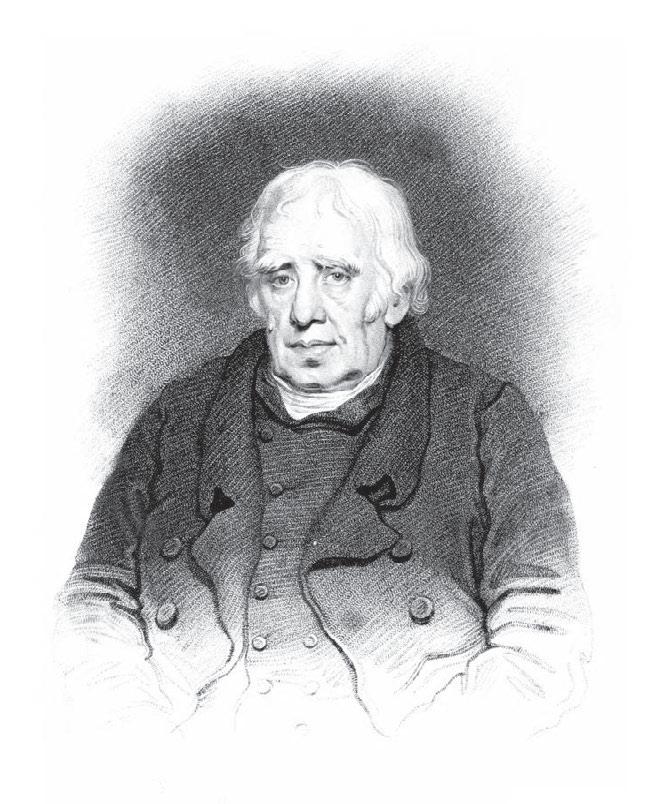
The Development Office
+44 (0)1883 335111 development@caterhamschool.co.uk
GIVING DAY 2022
54 caterhamconnected.co.uk
INNOVATING
EDUCATION
Caterham School continues to lead the way in harnessing innovation and digital in education to best effect. Named as an EdTEch 50 School, an Apple Distinguished School and winner of The Times Educational Supplement Independent School of the Year Award for Best Use of Digital, Caterham’s work in this includes preparing Caterham pupils for a rapidly changing world but also extends to working with external partners to drive the agenda forward for all schools.
Education Evolution
High profile speakers from the Home Office, The London Office for Technology and Innovation and Croydon Digital headlined Caterham School’s third Education Evolution Conference which drew a global audience of over 400 delegates.
The conference continues to frame itself around the question of what schools and colleges need to do in order to best prepare students for the future of work.
The conference was opened by Theo Blackwell MBE, Chief Digital Officer for London who talked about the challenges and opportunity of building back better post-pandemic. Conference speaker Eddie Copeland, Director of the London Office for Technology and Innovation and a
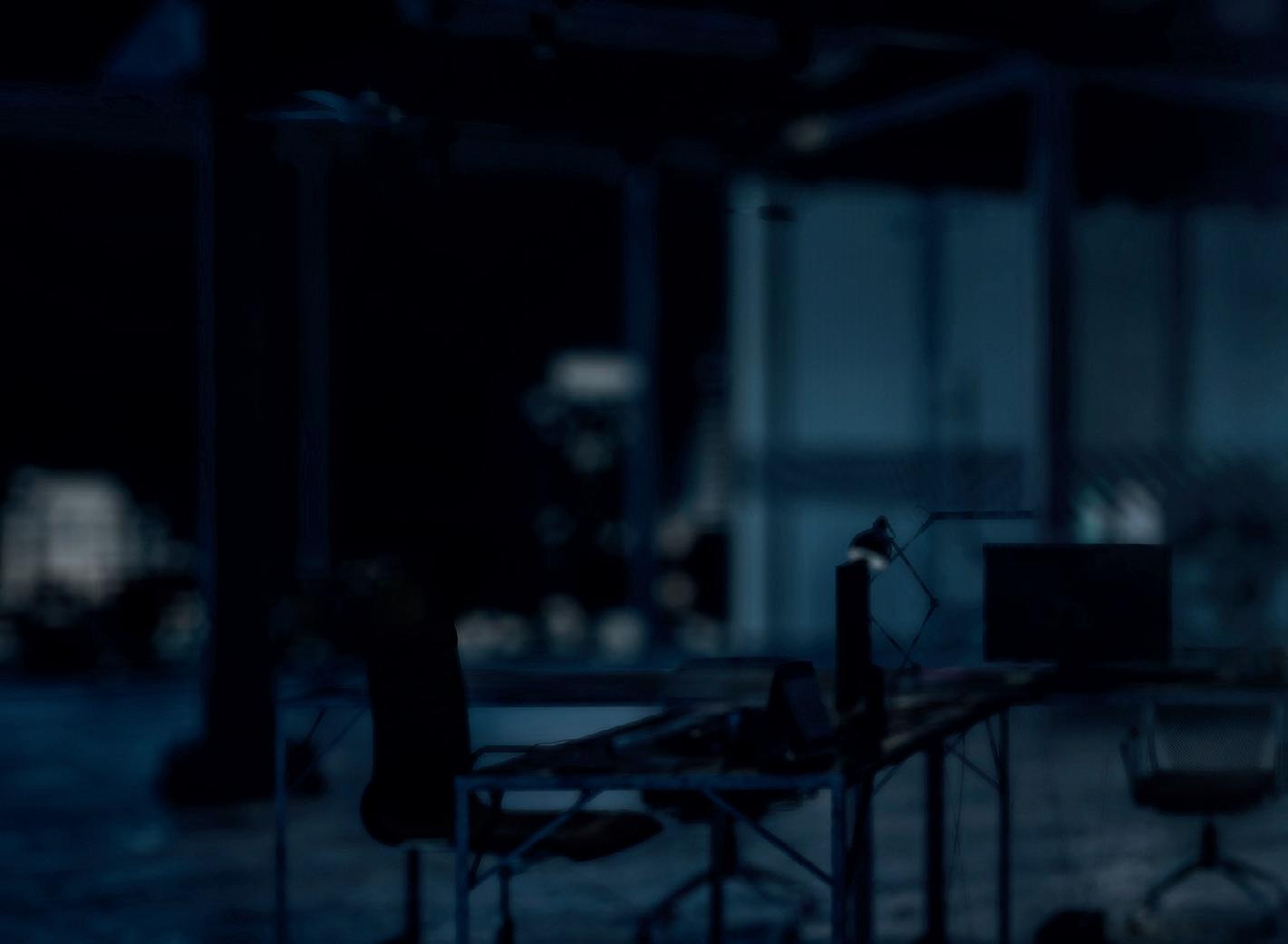
former teacher, explained clearly the skills that schools should be developing around problem-solving and collaboration, two things that Caterham School has put at the heart of the School’s EDGE curriculum delivered to the First and Second Year, as well as the Lower Sixth.
Joanna Davinson, Chief Digital, Data and Technology Officer at the Home Office expressed in her address the vital importance of the human touch in a digital framework and gave an inspiring account of her own career and the work she does at the intersection of technology and the people it impacts upon at the Home Office.
Chris Rothwell, Director of Education at Microsoft gave us a clear vision of what schools can and
55 OMNIA Issue 09 Autumn/Winter 2021
are doing to develop digital literacy in schools whilst Nick Hynes, co-founder of SOMO shared his strategy for running a successful digital company and the need to hire T-Shaped people, who have deep knowledge of their own area, but broad understanding of the roles of everyone else they work with.
The panel discussion at the end of the event drew together much of what delegates had heard and applied it directly to the work being done in schools. The panel consisting of Mark Smith, the CEO of Ada, the National College for Digital Skills, Christina Coles from Amazon Web Services, Julia von Klonowski, Digital Director at Careers Colleges and Adam Webster, Deputy Head (Innovation) at Caterham School.
The event was an inspiration to the diverse audience, the aim of which is to help develop the conversations happening between schools and the workplace, to find ways they can more effectively work together, but also to drive forwards the digital and innovation agenda in schools, something that Caterham School is proudly leading the way on.
The EDGE Curriculum
Ensuring that our pupils have the skills and knowledge to thrive in a fast-changing world, is one of the core priorities at Caterham.
The EDGE curriculum, which stands for Explore, Develop, Grow, Evolve, builds upon our longstanding
‘learning to learn’ program, building pupil awareness about their own learning, but then taking this further and giving them real-life opportunities to demonstrate their ability to solve problems, as well as grappling with some of the world’s ‘Big Ideas.’
The EDGE curriculum begins in the First Year, with a focus on metacognition and developing the ability to conduct effective selfreflection and culminates in the Sixth Form with pupils completing sophisticated group projects, whilst also learning more about skills for the future such as Research Skills and Critical Thinking.

56 caterhamconnected.co.uk
Ensuring that our pupils have the skills and knowledge to thrive in a fast-changing world, is one of the core priorities at Caterham.
Innovation Award 2021
Now in its third year, the Innovation Award is an initiative spearheaded by the Old Caterhamians’ Association which drives ingenuity, teamwork, problem solving and above all a spirit that with the right support and collaboration, any challenge can be overcome.
Previous winners have included a group of First Year girls who developed a plastic-free fully branded shampoo with accompanying business plan and a team of two Sixth Form boys who developed an app to bring like-minded supporters together with charities.
Perhaps the need to approach everyday life in a different way through parts of the 2020/21 school year acted as a stimulus to innovation as this year’s award brought forth increasingly creative ideas from across the year groups.
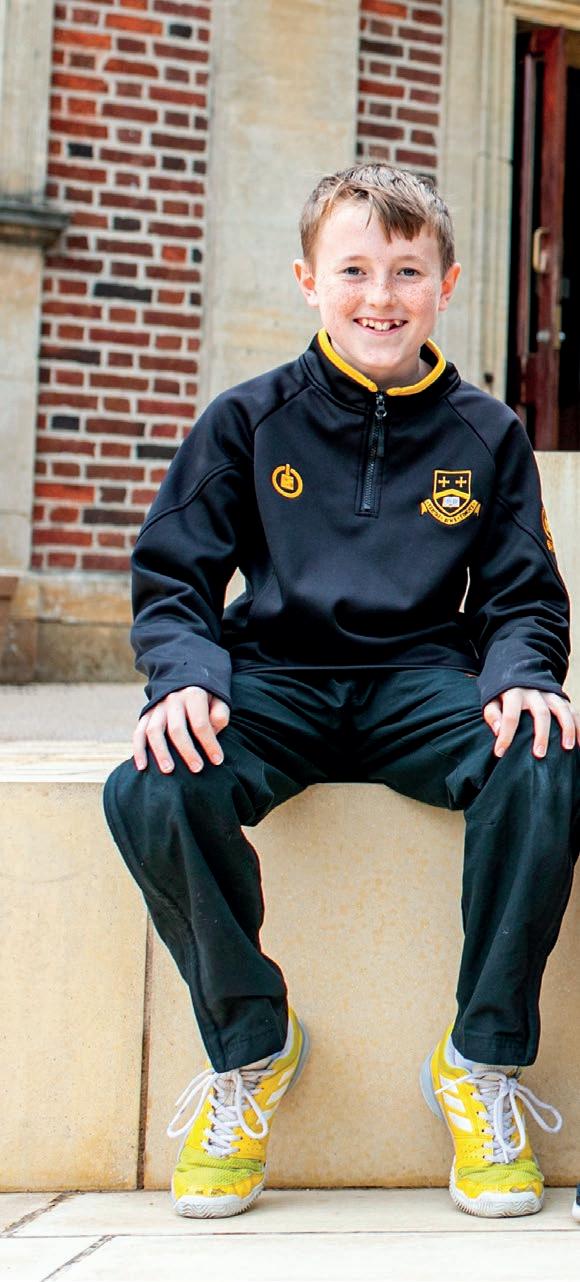
The OCA Innovation and Collaboration Award asks pupils to work on a project in teams of at least two, which they think solves a problem. During a live final, judges see presentations from some of the most promising groups and then announce a winner, who receives a £1000 prize and the offer of support and mentoring to make their product a reality.
Now in its third year, our judging panel remains unchanged, highlighting just how important and exciting this event is to those involved. The panel is made up of OCA President and Innovation Award architect, Clive Furness, alongside Headmaster, Ceri Jones, Vice-President of the OCA, Karin Schulte and Caterham parent, Preya Jubraj. The combined business experience of these judges is a force to be reckoned with, but our finalists, who this year came from three different year groups – First Year, Second Year and Third Year represented very different ideas and solutions to problems they had identified and seemed entirely undaunted.
2021 ENTRIES:
Crypto Regulation
Robert and Adrian in the Third Year had developed a system which they believed could regulate the volatility of cryptocurrency and in so doing make crypto a safer more appealing proposition for a wider market. The judges were hugely impressed with the research and thought which went into this entry and whilst they were our oldest entrants this year, it was astonishing, listening to 14-year-old pupils discussing the merits of the government legislation around cryptocurrency!
Eco-Starter Pack
Lucy and Romilly in the Second Year brought the judges an Eco-Box starter pack. Their idea was a collection of items, ranging from a toothbrush to toilet roll and a shampoo bar, all of which are environmentally friendly which would start the buyer down the route of being more conscious of their environmental impact. Subsequent boxes would be made up of customisable products for their next steps, whether this was replenishing supplies, or widening their use of ecopositive products. The judges really loved the ethos behind the concept and the work that had gone into finding real suppliers for their products.
Seedify Planter
Jonathan, Chloe and Rhian, also in the Second Year impressed the judges with a slick, confident and thoughtful presentation which introduced them to ‘Seedify’, a customisable planter which was modular and designed for those who either had little outdoor space or wanted to grow plants indoors. Their design was well thought through and the judges were impressed by the diverse range of opportunities they had identified for marketing their product to different audiences. They also loved the name and the strength of the branding.
57 OMNIA Issue 09 Autumn/Winter 2021
The winners (left to right): Barney, Posh, Roman, Samuel and Bjorn
Pulse Trainers –2021 winners!
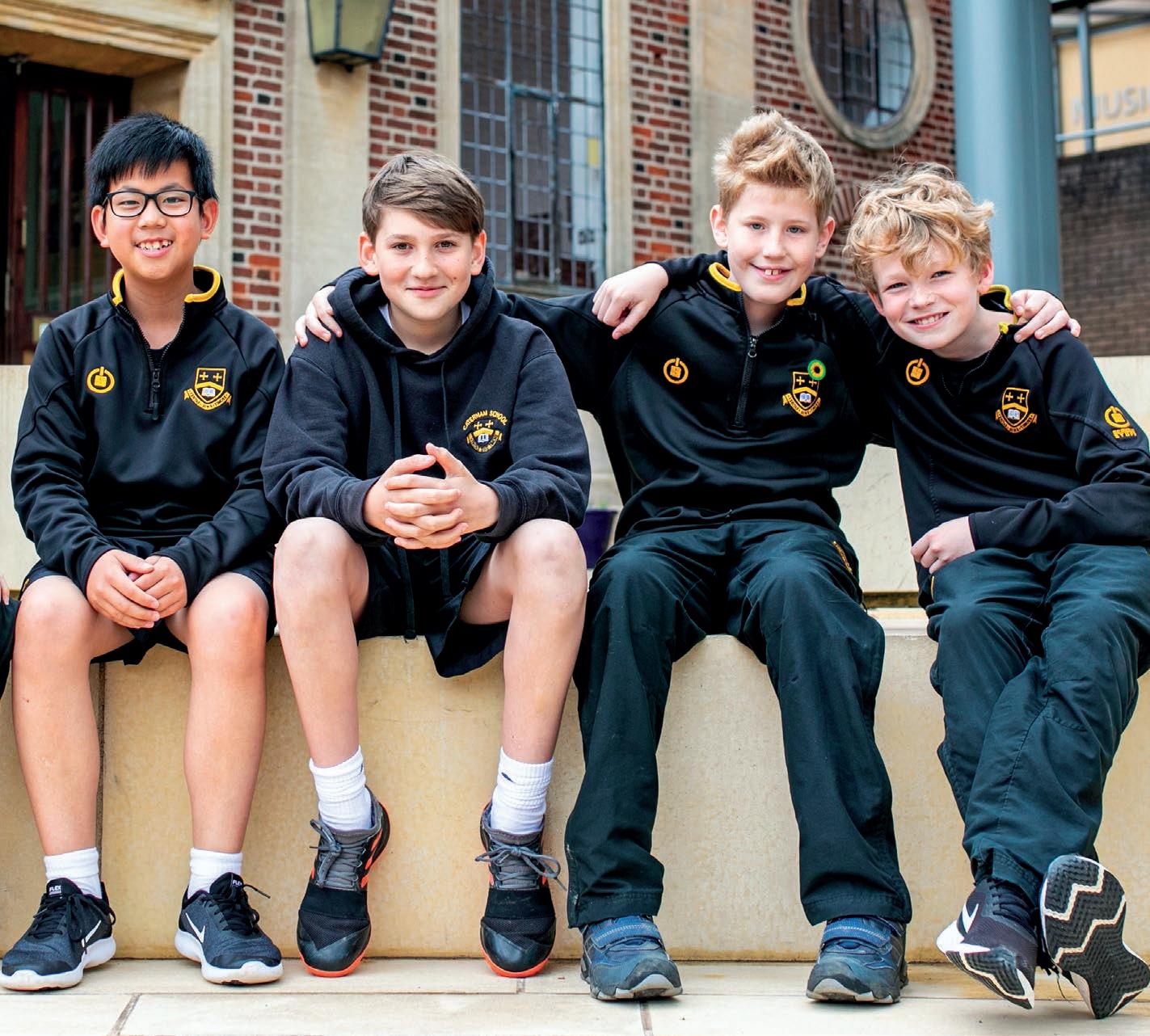
Our First Year team of Roman, Posh, Barney, Samuel and Bjorn wowed the judges with Pulse Trainers. Their idea was an incredible mix of features built into custom-built trainers which could monitor your pulse as well as warm and massage your feet. Their concept was made from recycled plastic and they had thoughtfully considered not only the environmental impact of their design, but also the potentially life-saving element of the idea. They explained that accurate pedal
pulse taking could report to highrisk adults or indeed professional athletes if their pulse was becoming erratic, giving an opportunity for medical intervention. The judges were not only impressed by the concept and the presentation but also by the obvious and genuine collaboration between the team. They were all able to answer questions about their work in a coherent and enthusiastic way, never contradicting the shared vision of their design.
58 caterhamconnected.co.uk
TEDxYouth
Caterham’s Debut TEDx Event
Caterham’s first TEDx Youth event was streamed live from the School on 11 May 2021 to huge acclaim and following across the school community and well beyond.

The event featured speakers from the First Year to Upper Sixth Form in addition to pupils from our partner school the London Academy of Excellence. Our speakers followed TED rules, learning their presentations by heart and speaking without notes to convey an idea worth spreading within the theme of exploring ‘Identity and Innovation’.
The topics explored included a recipe for being yourself, embracing your accent, putting identity first in innovation, exploring the philosophy of Ubuntu in sports, leadership and life, and whether the mind of a criminal alters the way they see the world. The courage and conviction of each speaker was impressive.
Pupils were involved at each and every stage of the TEDxYouth event, including the dramatic stage from which our young people delivered their talks. The stage set incorporated a design which integrated the event theme of ‘Innovation and Identity’ and was the work of Sixth Form pupil Perlie. Said Perlie: “Utilising a simple stage design with stairs leading to a blank arched door and a chandelier of several light bulbs, my intention is to provide a calming, comforting and visually appealing atmosphere which conveys the theme of the TEDx event and enhances the focus on the speaker. The design has adopted a warm and welcoming atmosphere from the chandelier of several dimmed light bulbs, whilst embracing the theme
59 OMNIA Issue 09 Autumn/Winter 2021
of innovation by effectively portraying new ideas, creativity, and change. Identity is a concept subject to each individual and it is something that distinguishes ourselves from others.”
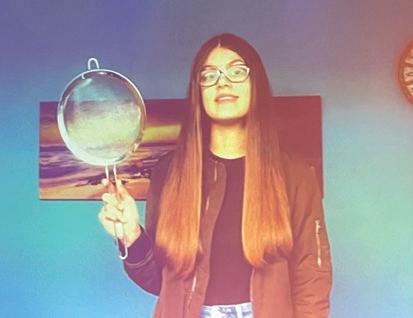

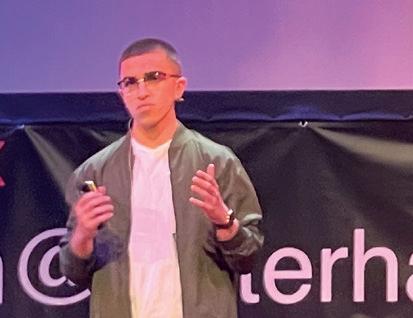
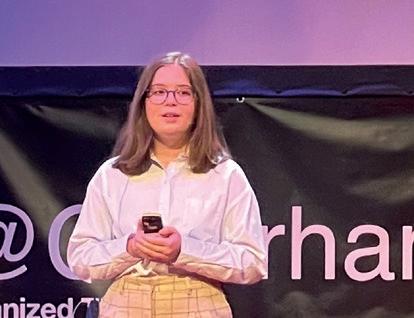
To view the TEDx Talks use the QR code above or visit: caterhamschool.co.uk/whats-on/ tedx-2021/tedx-2021-programme

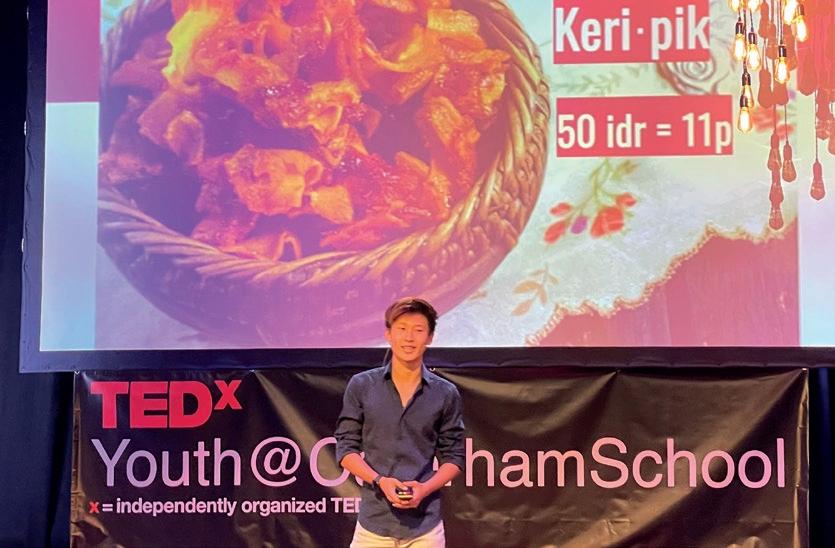
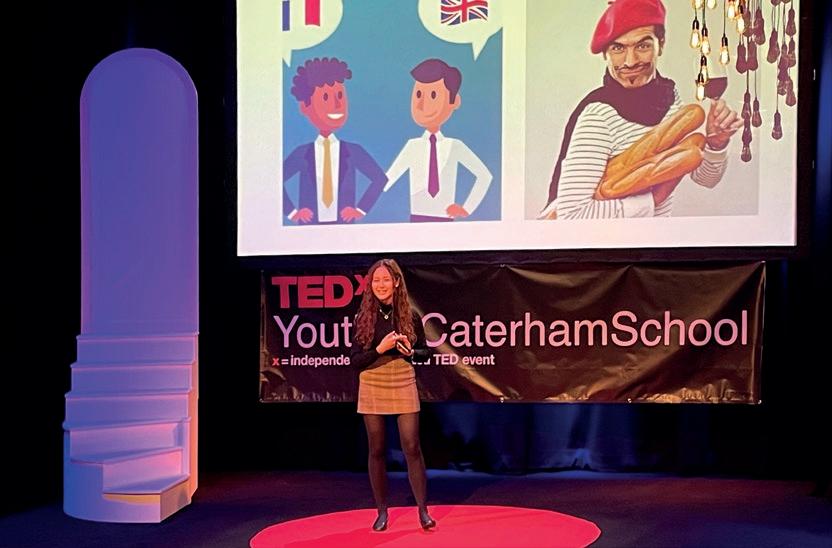

60 caterhamconnected.co.uk
Caterham Shadow Board
UK First for Schools Drives Innovation, Diversity and Inclusion
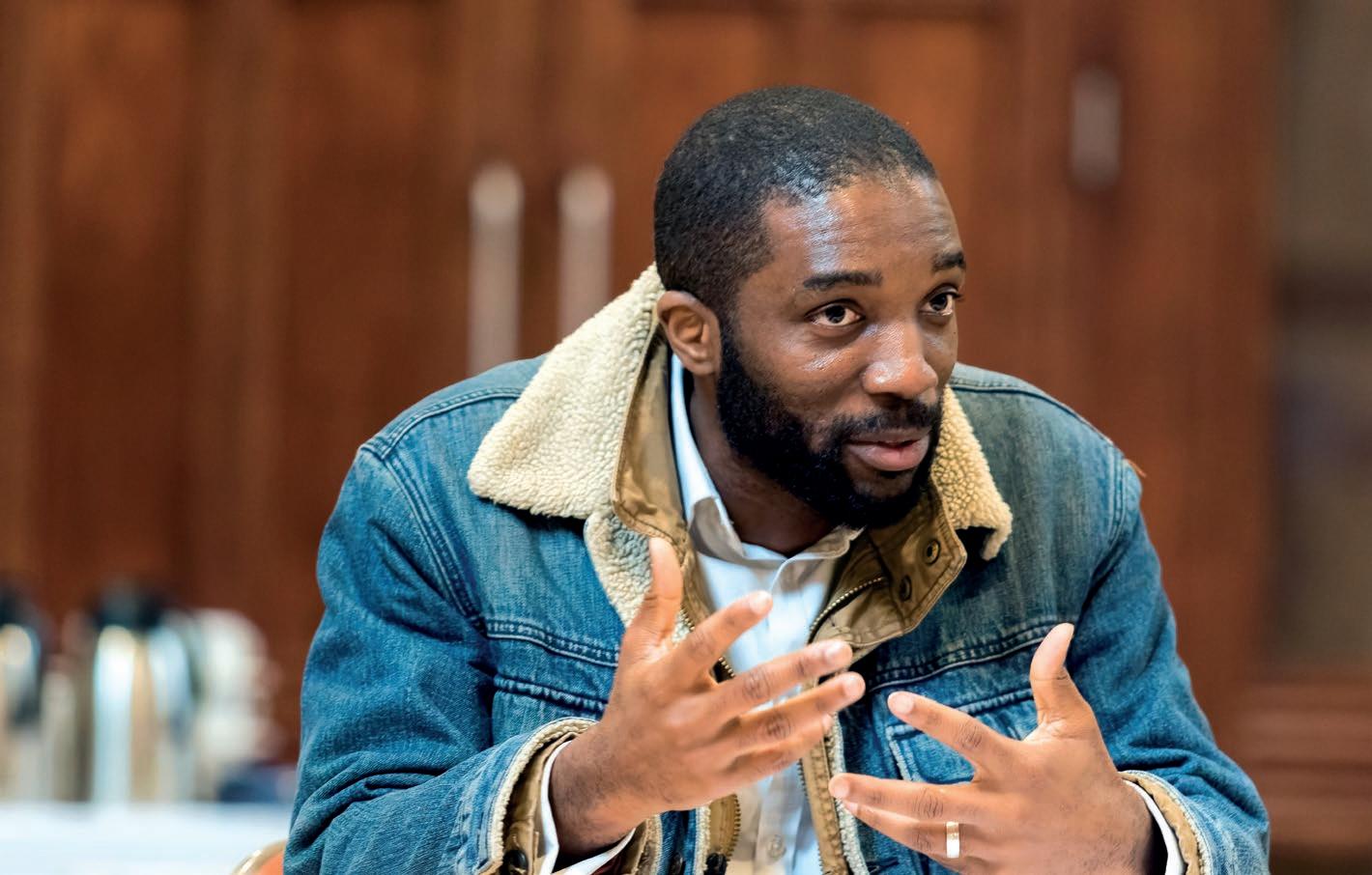
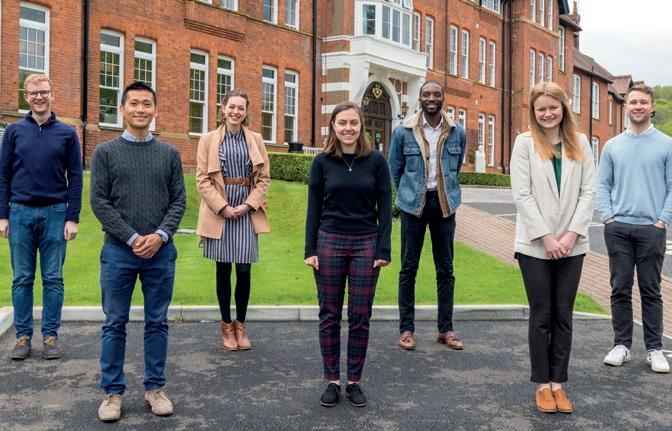
School history was made in May 2021 as Caterham’s Shadow Board of under 30s alumni met for their inaugural full board meeting. Caterham is the first UK school to adopt such a board whose primary role is to support and challenge the decision making of the Board of Trustees and ensure connection between the School and the rapidly changing professional and social world that our pupils move in to post secondary education. The Shadow Board represents breadth and depth of diversity across gender, ethnicity and socio economic backgrounds ensuring a broad range of views and experience is brought to bear on decision making across all aspects of school life and provision.
The idea of developing a next generation board in school was brought forward by the Old Caterhamians’ Association (OCA) whose committee members had seen such boards bring significant benefits to global commercial businesses and brands. The concept was embraced by the Headmaster and Board of Trustees who worked with the OCA to refine the next generation concept seen in business to form a Shadow Board model for Caterham School. Recruitment began in early 2021 and a full Shadow Board of under 30-year-old alumni was successfully recruited by Easter.
61 OMNIA Issue 09 Autumn/Winter 2021
The Shadow Board is made up of ten alumni all aged between 18 and 30. Their remit is to challenge, scrutinise and inform the conversations that the Full Board are having.
Due to COVID-19 restrictions the first meeting of the Shadow Board was held with some of the members having to participate online
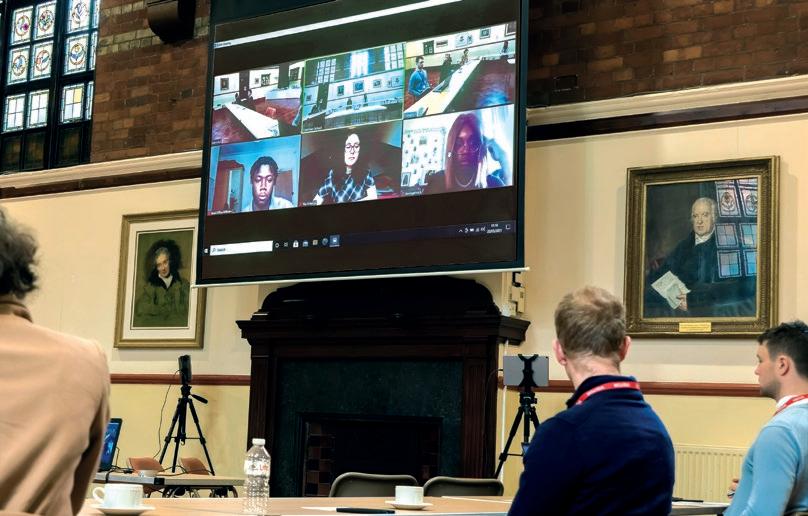
Driving Diversity and Inclusion
Diversity and inclusion has always been a priority for schools. What the events of summer 2020 and the Black Lives Matter Movement demonstrated is that for all the excellent progress that has been made in the area of diversity and inclusion over recent years, the impact, pace and range of this work in schools needs greater urgency with tangible and visible changes to the experiences of pupils. The wider and welcomed activism of young people on a range of issues over recent years has also played a part in encouraging schools to look for additional ways of both hearing and responding to the voices of our pupils and alumni.
At Caterham, the Shadow Board was created to ensure that the views of our increasingly diverse pupil and alumni body have a role in informing and shaping the way the School thinks about current pupil experience and the future strategic direction of the School. The Shadow Board is made up of ten alumni all aged between 18 and 30. Their remit is to challenge, scrutinise and inform the conversations that the Full Board are having. The members of the Shadow Board will also have training in and develop experience of corporate governance, change management and board meetings – in the hope and expectation that some of them will progress through to the Governing Body of Caterham School, but also that Shadow Board members
are empowered to look for similar opportunities in the organisations in which they work. Change will come more quickly and be more effective as boards challenge themselves to be representative of their schools as they exist today.

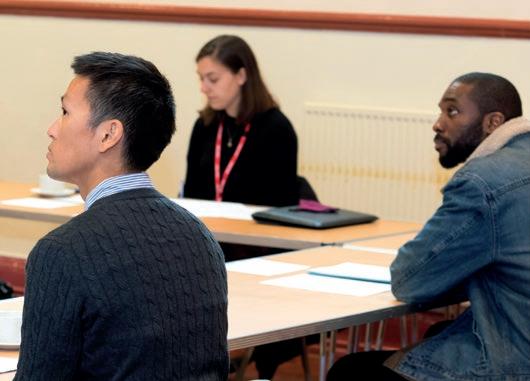
The genesis of the idea of a next generation board predated the Black Lives Matter Movement to bring relevance and a different perspective to our conversations around issues such as sustainability, the digital transformation of the workplace, preparation for Higher Education and wellbeing. As plans for the Shadow Board developed over the summer of 2020 a group of former pupils rightly voiced their recent experiences at school and at university. Encouraging these voices onto the Shadow Board, from where they are able to support and challenge the work the School is doing has been hugely affirming and created a sense of shared endeavour.
Of course, for current pupils and parents the formation of the Shadow Board has been a powerful statement of intent from the Governing Body of the School. It signals a very important message to all of our community about the willingness of the School to learn from the experience and expertise of others irrespective of status or standing and plays to a strongly held view that we all have things to learn from each other.
62 caterhamconnected.co.uk
CHRIS ATKIN (OC 2000–2007)
Author of (Just As Well) It’s Not About The Bike.
In 2018 Chris Atkin landed in Valencia in Spain, bought the cheapest bike he could find and cycled 1,300km to Gibraltar. His recently published book is an account of the journey.
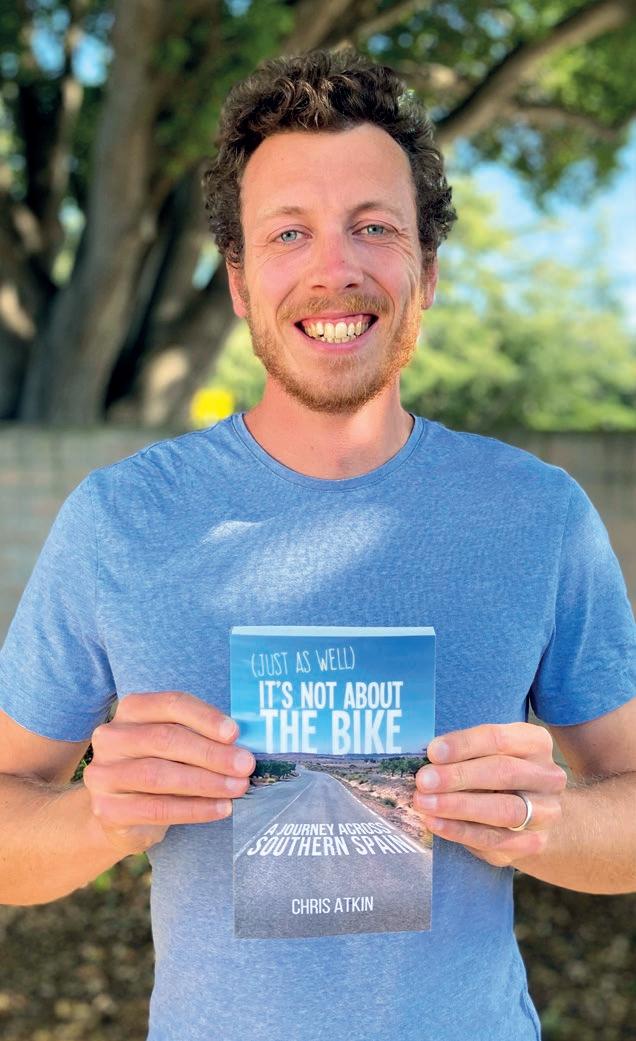
As the title suggests, the book is only partly about the cycle, and predominantly about the history of the region and the remarkable lives of some of the people who live there.
Spain’s beaches are deservedly held in high regard, but Chris scratches below the surface to reveal the untold stories of one of the world’s most popular coastlines. He learns about the incident that saw four hydrogen bombs fall from the skies in 1966 and how the politician who shot General Franco’s daughter in the bottom rose to become one of the country’s most powerful men.
The book has so far received very favourable reviews and topped both the travel and sports bestseller lists for ebooks on Amazon.
After being out of reach for so long due to the pandemic, Spain is beginning to open its arms to tourists once again.
If you’re planning your next holiday to the Mediterranean, have a passion for cycling, or are in need of the escapism of a humorous tale of adventure, this book is for you.
63 OMNIA Issue 09 Autumn/Winter 2021 OLD
NEWS
CAT
The OCA would love to hear news from Old Caterhamians Please do contact the Alumni Office email: oldcats@caterhamschool.co.uk tel: 01883 335091 to share your news and memories of your time at the School Remember you can reach out to OCs and OEs through the Caterham Connected platform caterhamconnected.co.uk Caterham School Graduway Community Download the Caterham Connected app
CHRISTY BENNETT (OC 2013–2018)
Congratulations to Christy on the publication of her first illustrated book before even graduating. ‘How Totsuwa Became Cherokee’ published by Mantra Lingua is in two languages so children can be taught to read in two languages from the earliest age.
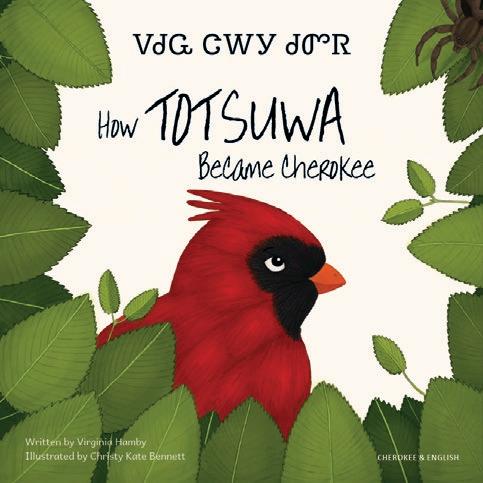
LUCY GILLETT (OC 1995–2001)
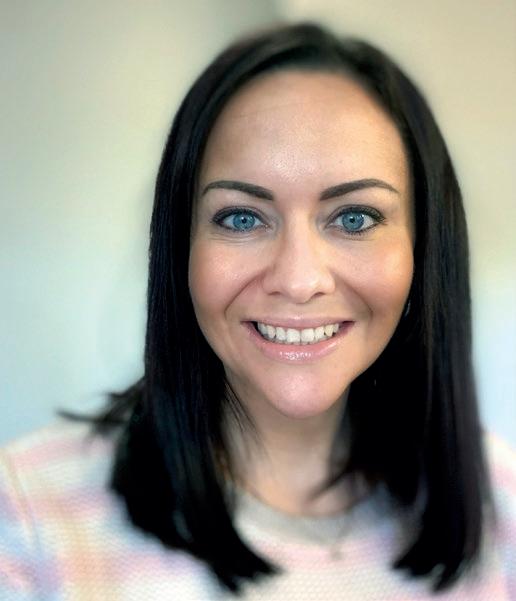
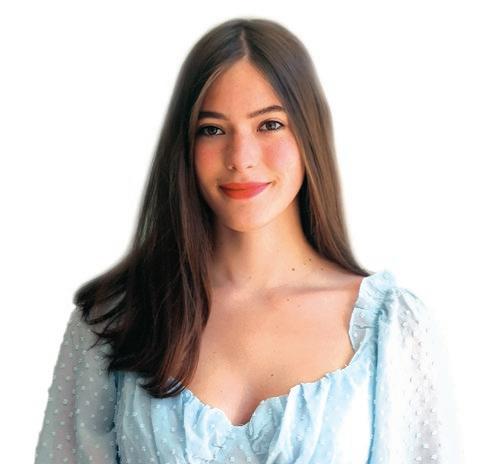
After 15 years in nursing in the NHS, it felt the right time to hang up my emergency department scrubs after working through the pandemic. Nursing through COVID was nothing more than a complete honour, a time that I learnt so much and I was also was so grateful to be able to give to those who really needed the services our wonderful NHS provides.
For me what stood out the most was the huge requirement there is for mental health support and services and I will now be adding this sector to my first aid training company.
I set up Gillett Training Services four years ago, which delivers First Aid training to parents, children, schools and businesses. Gillett Training was founded as a result of the vulnerabilities I felt when my daughter was born, I found myself researching baby first aid despite my medical background and knowledge. The company has really grown and there is nothing I enjoy more than helping others look after themselves and their loved ones for both their physical and mental health.
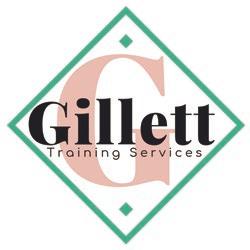
DAVID MOORE (OC 1942–1949)
Boarder at Mottrams occasionally sleeping in an air raid shelter built below the house. First on scene of crashed German aircraft below Viewpoint. Exploded 0.303 cartridges using metal fence post, nail and a brick. Just a few accomplishments! Dayboy in the Main School. Academic accomplishments minor. Played rugby for the School. Left school in 1949. Joined the National Service 1950-1952. Worked as a surveyor in the Inland Revenue. Qualified as chartered surveyor, married with three boys, but now a widower. Beekeeper for 40 years, keen gardener, church bell ringer and choir member. Future plans to reach 90 years – wish me luck!
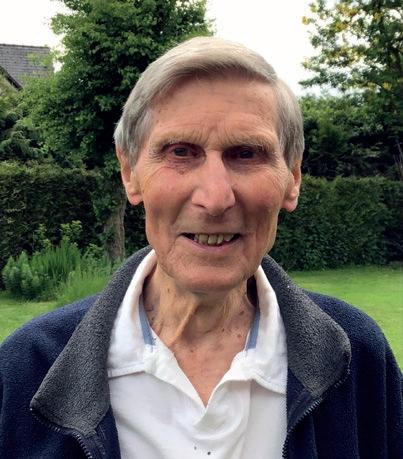
64 caterhamconnected.co.uk
gilletttrainingservices.co.uk
SCHOOL MEMORIES FROM ALAN WITT (OC 1947–1958)
I joined the Prep School and was at Caterham as a “day bug” for 11 years, an extra year being spent in the First Form as I caught meningitis and missed months of classes in 1949. My family had moved to Dome Hill towards the end of the War following a near miss with a bomb in North London when I was covered in glass.
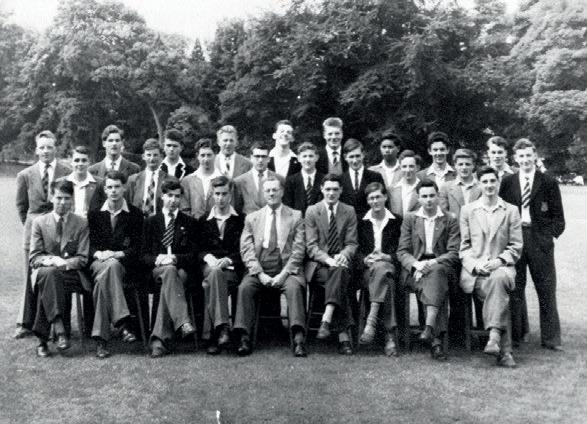
My first taste of education there was in fact at a ‘dame school’ on Harestone Hill run by the wife of the Geography Master, Herbert Walker (‘Geog’ Walker to distinguish him from ‘Weedy’ Walker who taught Biology). To get there I made my way up the ‘snicket’ by the side of the main building.
We were still suffering from post-war austerity and the dreadful winter of 1947. One stormy winter’s day, sitting in the Beta classroom we heard the spluttering of a light aircraft followed by a ‘thwump’. We all rushed to the windows but Mr Bailey shouted “ Sit down. It’s only a plane crashing”. It had come down killing the lone pilot near Viewpoint, people were inured to tragedy then.
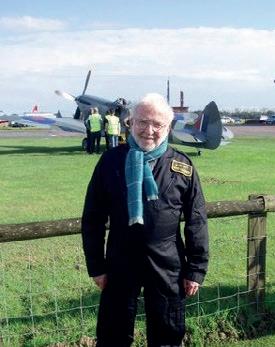

Rationing was very austere then, but I still remember school lunches with affection. There was always the nostalgic smell of the damp, carbolic soap scrubbed pine tables. There was a ‘Tuck Shop’ in the old sports pavilion where we had to take our coupons until sweet rationing ended in 1953. (The last foodstuff to come off rationing was meat, in 1954). In later years we supplemented our vittles with surreptitious visits to The Harrow! In fact, until COVID stopped this, two of my contemporaries and I met sitting in the same place as we had done decades before.
There were no Nepal or Machu Picchu school outings in those days, rather the Science Museum or the Roehampton Housing Estate in the course of construction. The highlight of the year was the trip to Beachy Head on an open-top Southdown bus. We
were warned not to stray from the designated paths as allegedly there might still be some wartime mines. We firmly believed that our French Master was French with his accent and mannerisms, but we should have realised that with a name like Ellis he was actually Welsh. If I had to pick out one teacher who perhaps changed my life it was the Music Master, Ron Smith (who had a 1930s style in his appearance, a Noel Coward character) who instilled in me a love of classical music. I still cannot play an instrument nor read music but I listen. On my final report the Head wrote “Not university material” but I did go on to archive an Honours Degree in Chemistry, become a scientist in the paper industry and ended up as International Sales Manager for an international company making scientific grades to order for sectors including medical, nuclear, batteries and military applications. This took me over half the world. Thank you Caterham.
65 OMNIA Issue 09 Autumn/Winter 2021
Fifth Form c.1955 (Alan is third from the left, front row). The ‘Master’ is Mr (Oily) Wakefield so nicknamed after the brand of motor oil (name changed to Castrol in 1960).
ATC 574 Squadron at camp at RAF Marham in either c. 1955 in front of a Canberra bomber. Alan is third from the left, back row.
When Alan flew in a Spitfire
THEN & NOW

Then – 2009 taken at Caterham School.
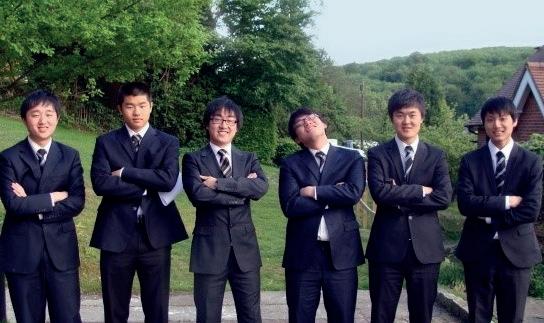
PENNY ADAM (NÉE QUITTENTON) (OE 1958–1963)
A busy retirement! My husband Peter and I have spent over 20 years of early retirement from the UK Hydrographic Office sailing and walking. We had a Westerly Pentland, Classmate, during our working lives and sailed well over 23 thousand miles in her. Having moved from Somerset to Wembury, Devon, we bought a new yacht, Pearl of Wembury, a 37ft Jeanneau Sun Odyssey, 18 years ago and set off on our long summer adventures. We left Pearl each winter and returned home. We have coastal cruised over 27 thousand miles including the Baltic and Oslo, around Ireland, up to Scotland and then down to Spain and the Mediterranean for eight years as far as Athens. We luckily brought Pearl home in autumn 2019, after she had been away from homeport for 11 years, for a home refit and to escape being trapped by Brexit then the pandemic little knowing what this year would bring.
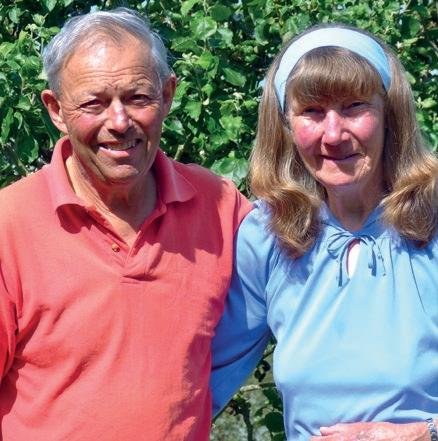
We did not rest much in our winters at home with some exciting long haul holidays all over the world. At home we walked and completed the South West Coast Footpath in chunks – what a wonderful scenic varied walk. We also live in the lively coastal village of Wembury and spend a lot of time with our two children’s families, our son in Ghana, India, Scotland and now Cheltenham and our daughter in Birmingham. Both have two children so we are lucky to have four lovely grandchildren. Let us hope for many more years of busy retirement.
MARGARET PRICE (OE 1945–1956)
My brother, OC Martin Latham, went right through the School. He was seven years older than me and sadly died in 2005. A close family friend is OC Philip Rhodes. I married OC Graham Price who with his older brother David was a boarder at the School. During the war we had a Belgian refugee boy live with us. His name was Oscar, who also went to the School. His stay was organised by Mr Soderburg. I was very pleased to receive my copy of Omnia
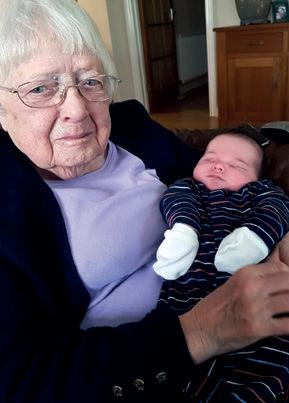
66 caterhamconnected.co.uk
Now – 2020 taken in Taicang, China at Kyle’s 100 days celebration.
Left to right: Tony Zeliang Gu (OC 2010), Daniel Haoqi Ye (OC 2010), Shaocheng Ma (OC 2010), Stephanie Ye Chen (wife of Shaocheng Ma OC 2013) and Justin Jin Xu (OC 2010). Kyle Kaiyu Ma (baby) and Clement Kaisheng Ma held by Stephanie.
Left to right: Justin Jin Xu, Jason Zhikuan Zhao, Shaocheng Ma, Daniel Haoqi Ye, Tony Zeliang Gu, Yong Wu.
PROFESSOR DAVID WALTERS OBE (OC 1946–1952)
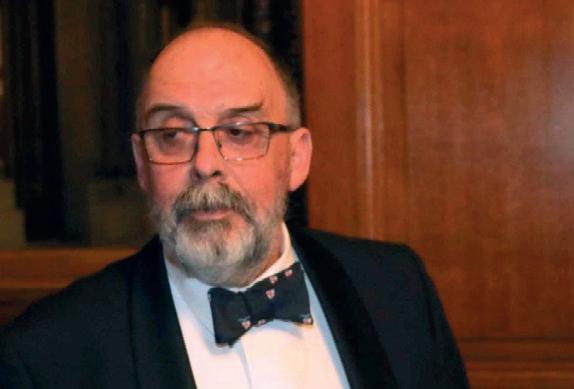
I was one of the first boys to enter Caterham under the then new Direct Grant Grammar School scheme. I did not excel either in class or on the sportsfield but I tried my best at everything. I did enjoy making things that worked, mostly models. I also enjoyed weekend scout camps with the trek cart and weekly parades at Kenley Aerodrome with the ATC (forerunner of the CCF).
In the Sixth Form I was a member of the stage management team which helped to put on plays and concerts in the Memorial Hall. The picture shows the team in 1950, David Walters, John Nicholson and Michael Morniment. Sadly John Nicholson passed away in 2013 (his obituary can be read at oldcaterhamians.com); Michael Morniment and his Dad emigrated to Australia soon after Michael left school and a few years later was working on a farm at Burnawatha, Victoria. Unfortunately we lost contact many years ago.
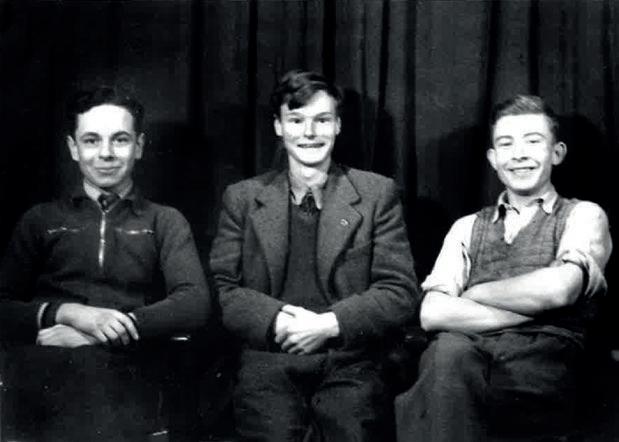
After leaving school I went on to complete a London University engineering degree at local technical colleges (cheaper than going away to University!) and started my career in industry in 1946 as a graduate apprentice with the Brush Electrical Engineering Company at Loughborough. Brush was part of the Hawker Siddely Group. For most of my career I worked for various Hawker Siddely Companies (later BTR) until I retired in 1996 as Technical Director of one of their multinational industrial divisions. Some time before I retired I had also been appointed as Visiting Professor at Sheffield University.
It is unlikely that any of this would have happened without the Grant which got me to Caterham in the first place. Along with the help and encouragement I received from the staff even though I was not their brightest pupil, and the general ambience of the School at that time which encouraged self reliance.
NIGEL MOSELEY (OC 1968–1975)
I served in the regular RAF between 1977-2012 as a navigator. My operation aircraft types were C-130 (Hercules), Puma and Merlin helicopters. I saw operational service in the Falklands (1982), Northern Ireland, Beirut, Balkans, Iraq and Afghanistan. I also held instructional posts at the Air Navigation School, Initial Officer Training and various flying Instructional posts include CFS and SH STANEVAL. I joined the RAuxAF in 2013, 600 (City of London) Sqn.I was mobilised in April 2020 in response to the Global COVID crisis and was attached as a Military Planner to the Cabinet Office.
CELIA BERENT (OE 1951–1961)
I am still living in Cheshire and enjoying playing golf, skiing and singing alto now in the Church choir in Alderley Edge.
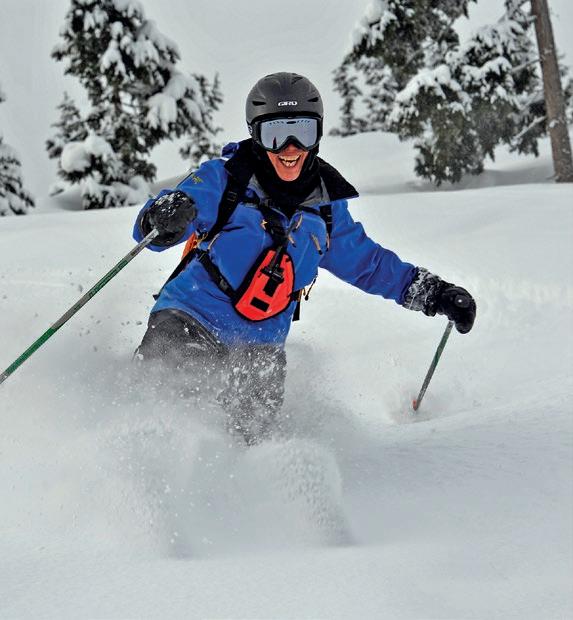
67 OMNIA Issue 09 Autumn/Winter 2021
Left to right: David Walters, John Nicholson, Michael Morniment – the stage management team, 1950
OC HARRISON OSTERFIELD (OC 2008–2012)
Harrison stars as Prince Leopold in the 2020 Netflix series ‘The Irregulars’ where the supernatural meets Sherlock Holmes – still streaming. Watch out for Harrison on your screens next year too.
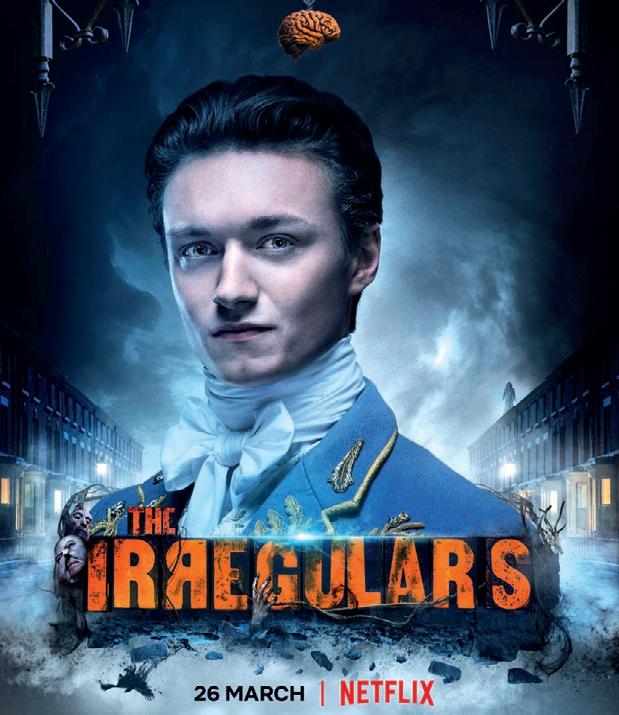
Weddings
Congratulations to the following Old Cats…
Rob Willson (OC 1998–2009) married Laura Turner at Elmore Court, Gloucester on 28 May 2021. Rob met Laura while working at Janus Henderson. COVID restrictions only permitted a maximum of 30 people, of which eight guests were Old Cats including two Head Girls!: Ben Doney, Ali Bownas, Ali Brown, Ben Davidson, Megan Armitage, Hannah Shaw, Lorna Willson, and Craig Moore as best man.
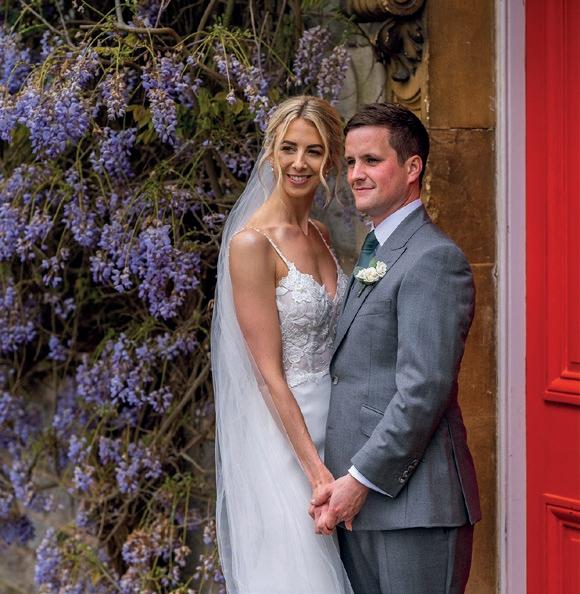
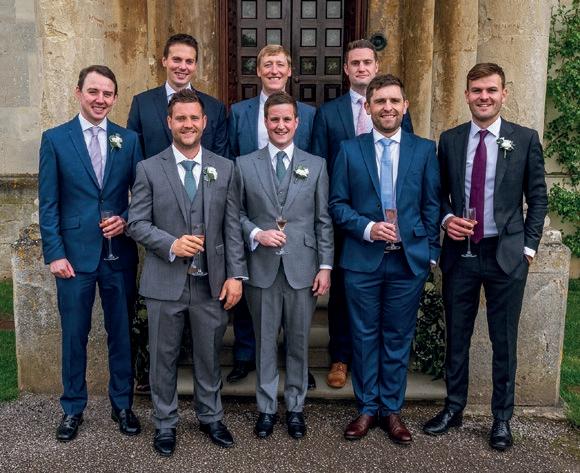
CHUKWUDI IWUJI (OC 1987–1993)
It’s been a busy year for Chuk who stars as Braun in Daniel Isn’t Real, and as Mingo in the latest highly anticipated Amazon series The Underground Railroad You can still see him in the long running award-winning Netflix series When They See Us and as Dr Eli Mays in Designated Survivor. Watch out for him as Alexander Hale in BBC’s The Split on iPlayer with Series 3 due to be released soon, and as Clemson Murn in the upcoming HBO DC series Peacemaker
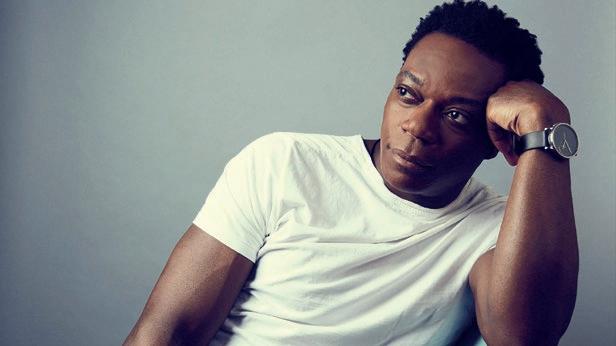
Back row, left to right: Louis Richards, OC Ben Davidson, OC Ali Bownas, OC Ali Brown, David Firth
Front row, left to right: OC Craig Moore, OC Robert Willson, OC Ben Doney
68 caterhamconnected.co.uk
Weddings
Yasu Fujio (OC 2004–2006) married Chacha on 1 November 2020 in Shimogamo Shrine, Kyoto. At a traditional Japanese wedding, the bride and groom usually wear Japanese wedding kimono. The bride wears a white wedding kimono called “Uchikake” with a white headdress. The groom's kimono is usually black and has his family’s symbol embroidered on it in white.
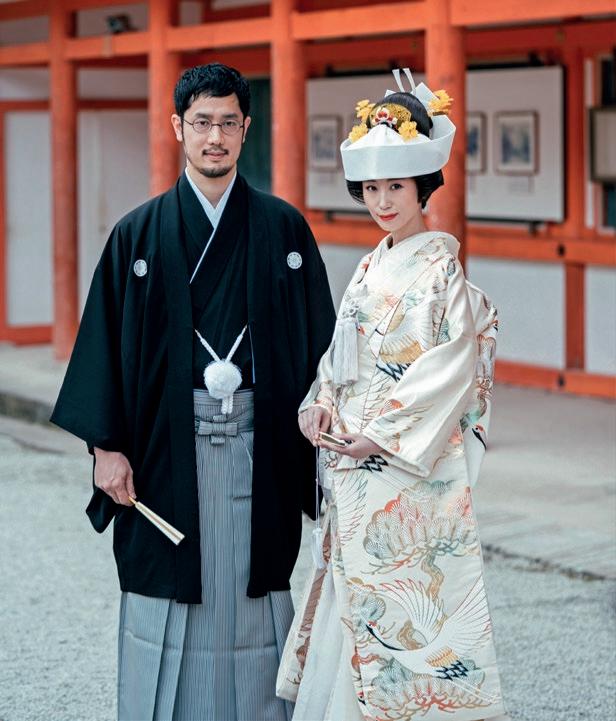
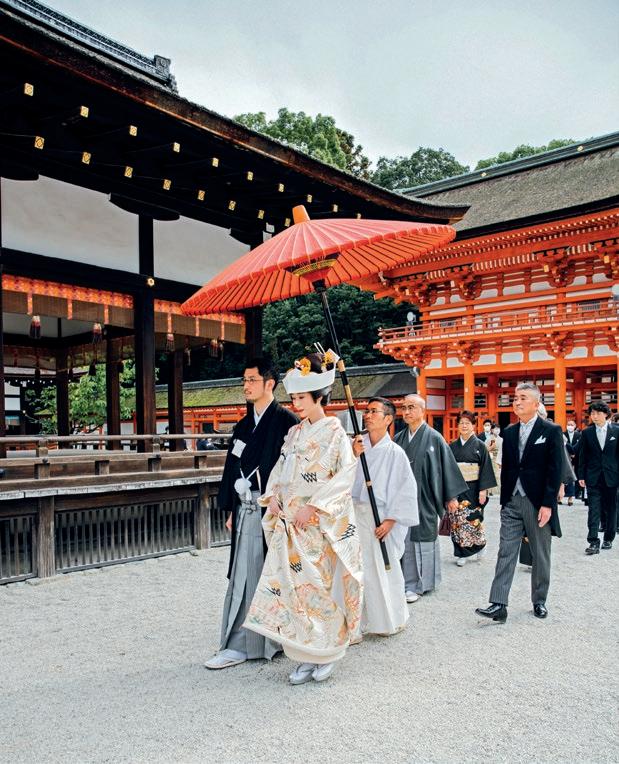
The “Uchikake” my wife wore at the wedding was prepared by my grandmother when her first daughter (my mother) got married. Since then two of my aunts, my sister and five of my cousins wore it at their weddings. Chacha was the tenth bride to wear it – and it was still really beautiful. The Shimogamo shrine is one of the oldest in Kyoto. What year it was founded is unknown, but it is said that it’s at least 2,000 years old. We were very humbled.
u Chris Atkin (OC 2000–2007) married Sarah Greasley on 1 August 2020. The ceremony was held in the historic Cambridge University Debating Chamber and they arrived at the venue having travelled along the River Cam in Sarah's parents’ canal boat. “The COVID-19 pandemic delayed our wedding twice, so it was wonderful to finally tie the knot. Of course, due to the restrictions, we were not able to invite everyone we had hoped, so we intend to hold a larger celebration in 2022.” The following month the couple moved to California as Sarah was due to start an Innovation Fellowship at Stanford University. The story of their struggle to get married was reported in The Times
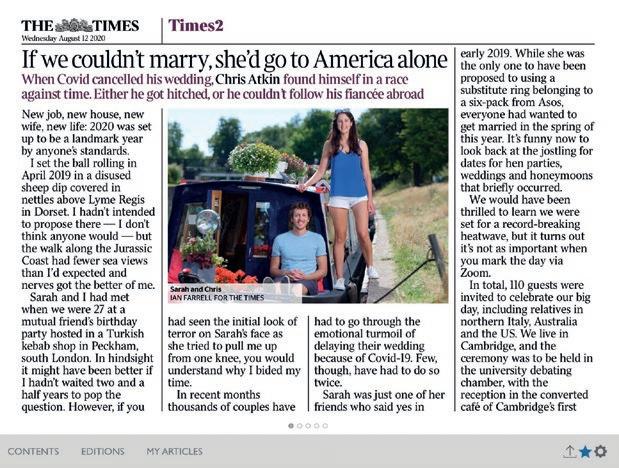
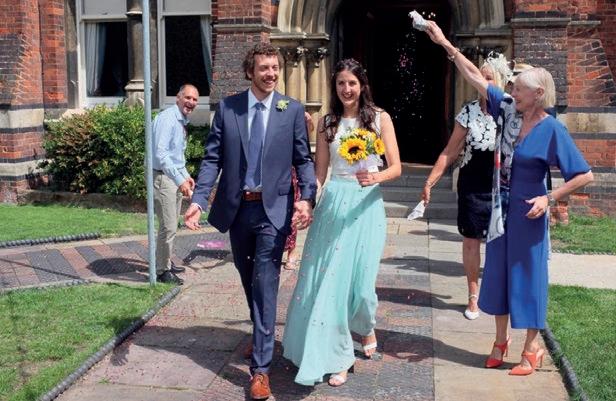
69 OMNIA Issue 09 Autumn/Winter 2021
Births
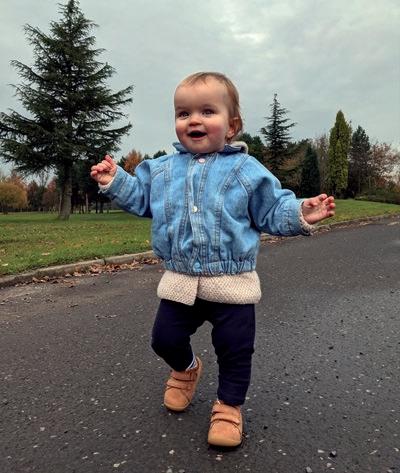
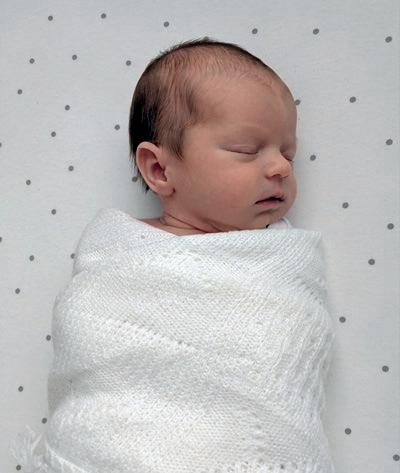
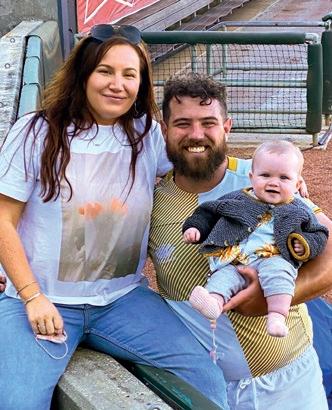
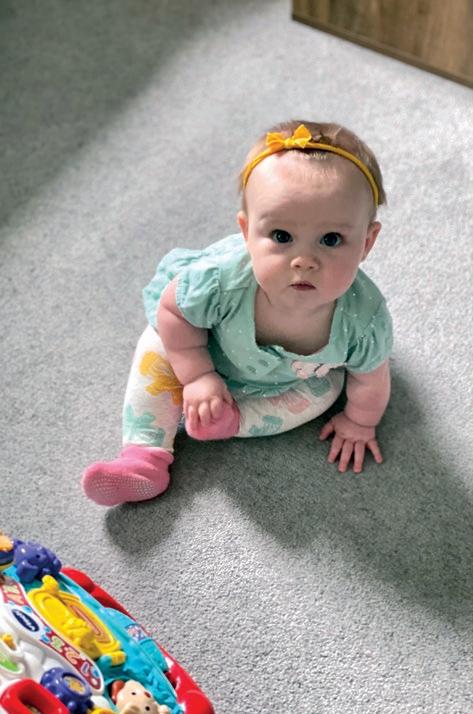
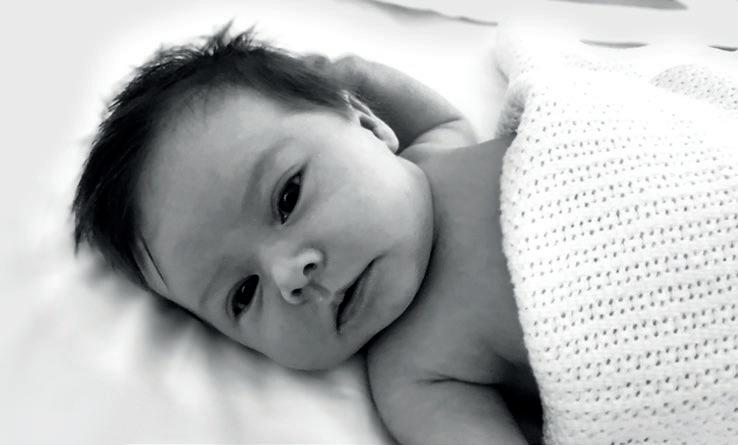
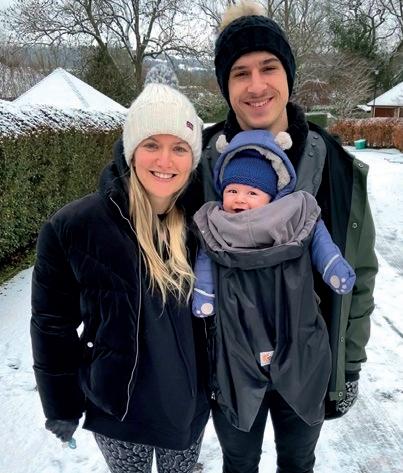
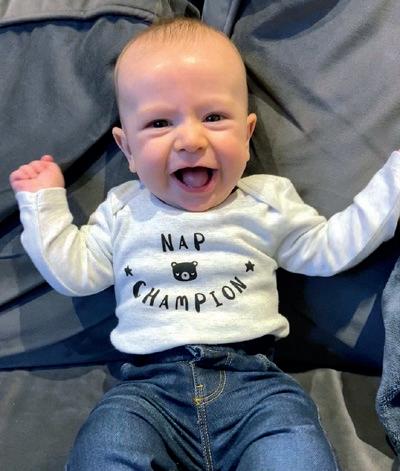
70 caterhamconnected.co.uk
Abby Sharp (OC 2005) and Will Dunlop welcomed Douglas Arthur James Dunlop on 4 September 2020. The first grandchild for Grace and Paul Sharp (OC 1972).
Kate Eighteen (née Davey) (OC 2003) and James welcomed Elsie Mae on 19 March 2021 weighing 9.5 lbs.
Emma Louise Waldren (née Cross Vetriano) (OC 2006) and Dino welcomed Georgia-Ann Elisabeth on 8 September 2020.
Jessica Malpas (née Martin) (OC 2007) and Ste welcomed Olive on 26 September 2019.
OLD CATS RETURN TO SCHOOL LAST SEPTEMBER
JOSEPHINE BRANSON (OC 2012–2017)
It has been great to be back at Caterham after graduating with a BA in English and Drama from the University of Exeter in the summer of July 2020. I have really enjoyed stepping back into such a warm and welcoming environment, as well as getting involved in other areas of the School such as being a tutor in Townsend Boarding House. Running weekly activities for the boarders has been fantastic. It has been a pleasure to watch the kids grow and thrive through life in the boarding house.
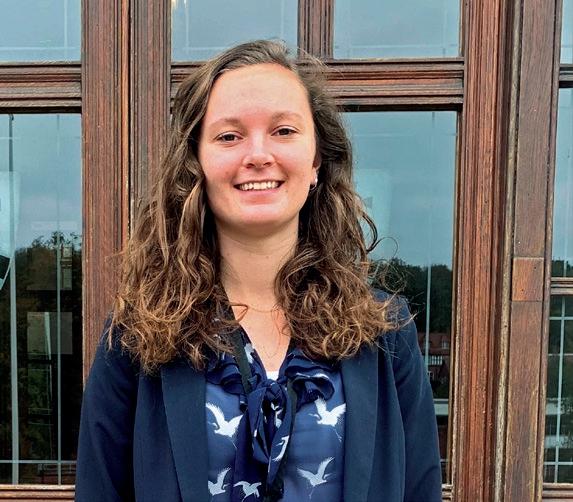
Up in the drama department I have been helping in lessons, and I was the assistant director for the Lower School Play in the autumn term which we successfully managed to perform, record and showcase over Zoom; a huge undertaking with all the COVID regulations in place, but certainly a worthwhile and rewarding challenge. Choreographing a routine for a group of Lower Sixth pupils for the From A Distance production has been a highlight, as has choreographing for the First Year dance troupe currently rehearsing for the Orchard Theatre Festival this coming June. I am really looking forward to seeing what next year brings for all the talented pupils and staff I have had the joy of working with in my time back at Caterham.
BETHANY QUINTON (OC 2003–2015)
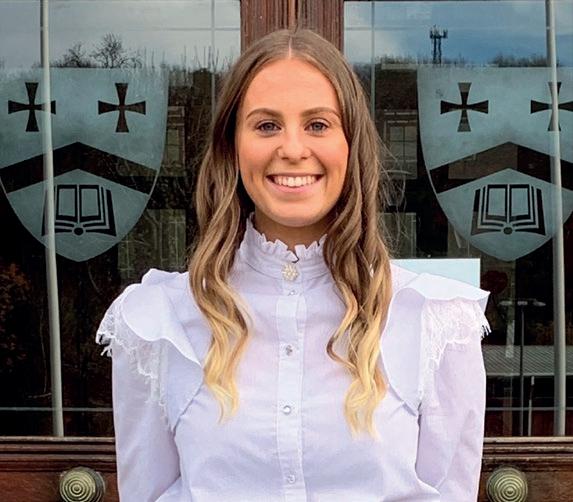
Being back at Caterham teaching biology this year has been fantastic and I have loved every minute. My favourite moments since starting teaching here have been in lessons when pupils ask questions beyond the specification, and want to know answers to real-world biological scenarios purely because they love the subject. I also have had the opportunity to coach the U14B lacrosse team, and it has been fantastic to watch the girls get better and better over the year. Hopefully next year they will be able to put all of their hard work into practice with some matches against local schools.
As a pupil at Caterham I was encouraged to pursue so many different interests. Some highlights were playing in the band for the school musical Les Mis, playing lacrosse, creating Spanish podcasts, giving biology presentations and of course the biology field trips. These interests, many of which I would have not had the opportunity to do had I not been to Caterham, I have continued after leaving. It has been great fun being back, and I look forward to what next year brings.
71 OMNIA Issue 09 Autumn/Winter 2021
RICHARD WEBB (OC 2009–2016)
Having graduated with a Masters in Civil Engineering, in the COVID restricted summer of 2020, I needed to find a temporary role until I could resume progress towards my medium term aim of securing a place at the Royal Military Academy Sandhurst – inspired by my love of CCF at Caterham School.

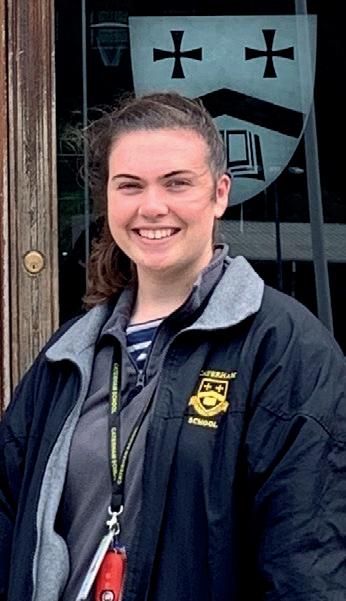
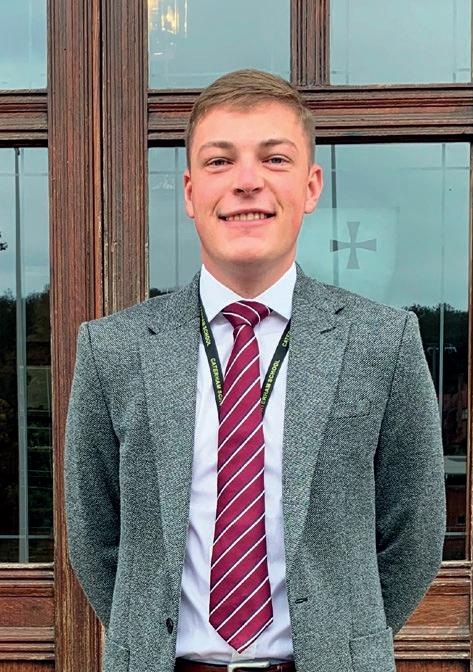
So it was of no surprise to me to find myself back at Caterham on a voluntary basis at CCF, helping Mathew Owen and the rest of the team. What, however, was more of a surprise was how many different roles within the School that I have been employed in during the last year, including break time supervision, administration, the COVID testing of teachers and pupils, and teaching a few lessons. I am very grateful to all the staff who have made all aspects of school very enjoyable.
A couple of weeks ago I underwent my Main Board Assessment for Army Officer Training and was delighted to have been accepted. I enter Sandhurst in January and I am very happy that I will have one more term at Caterham, during which I am lucky enough to be teaching physics and continuing to be very involved in the CCF. I really appreciate the time I have had at Caterham both at school and over the last year, the varied employment adding significantly to my life.
NELL FAHEY (OC 2005–2019)
It has been great being back at Caterham doing duties over the last few months. I have just come to the end of my first year of studying psychology at the University of Surrey, and with all learning being taken online, it was the perfect job to fit around my studies. It has been very rewarding being back and interacting with pupils, with many of them being so grateful to come back to school after lockdown! Supervising the astroturf throughout the day has been lovely and provided me with much needed fresh air and breaks between my online university lectures (although I could have done with a bit less rain ).
JEMIMA RAWLINGS (OC 2007–2016)
Returning to Caterham has been a fabulous experience going from pupil to teacher! Having been a pupil at Caterham from nursery right through to Upper Sixth I couldn't resist coming back when the School rang asking for maternity cover! Even after a year that had been mostly online, the friendly, positive atmosphere throughout the School hasn't wavered, and I've had the best time working in the sports department. My favourite memories from school were definitely times spent on the netball court, so I was delighted to get back out there and see the pupils making those same memories too. I've also loved helping out at Pre-Prep and Prep; I always come out of their lessons with a smile on my face! I'll miss the familiarity and positivity all around at the School and I'm excited for the next chapter.
72 caterhamconnected.co.uk
Geraldine Lundy (OE 1971–1978) Former Head Girl of Eothen School awarded an MBE in 2020 for services to accessible aviation
Accessing Aviation
What led you to your specialism in aviation accessibility?
When I applied to University I didn’t know whether to study medicine or chemistry. I chose the former but after a year discovered it wasn’t for me and switched to chemistry. For several years I worked as a research chemist and in other science based roles until I became a mother. On returning to work, once my son was at school, I wanted a career change before returning to the fume cupboard. My plan was to join an airline for a few years to have the chance to travel and then return to a more science based role. I was fortunate to secure a position in the aviation medicine team at Virgin Atlantic.
Very early on in my career at Virgin my manager asked me to attend an aircraft acquisition meeting as the manufacturer wanted us to invest in chemically generated onboard medical oxygen – an ideal topic for my medical
For those who would like to find out more about life in the travel industry or accessibility in the workplace, you can reach out to Geraldine via the Caterham Connected platform caterhamconnected.co.uk
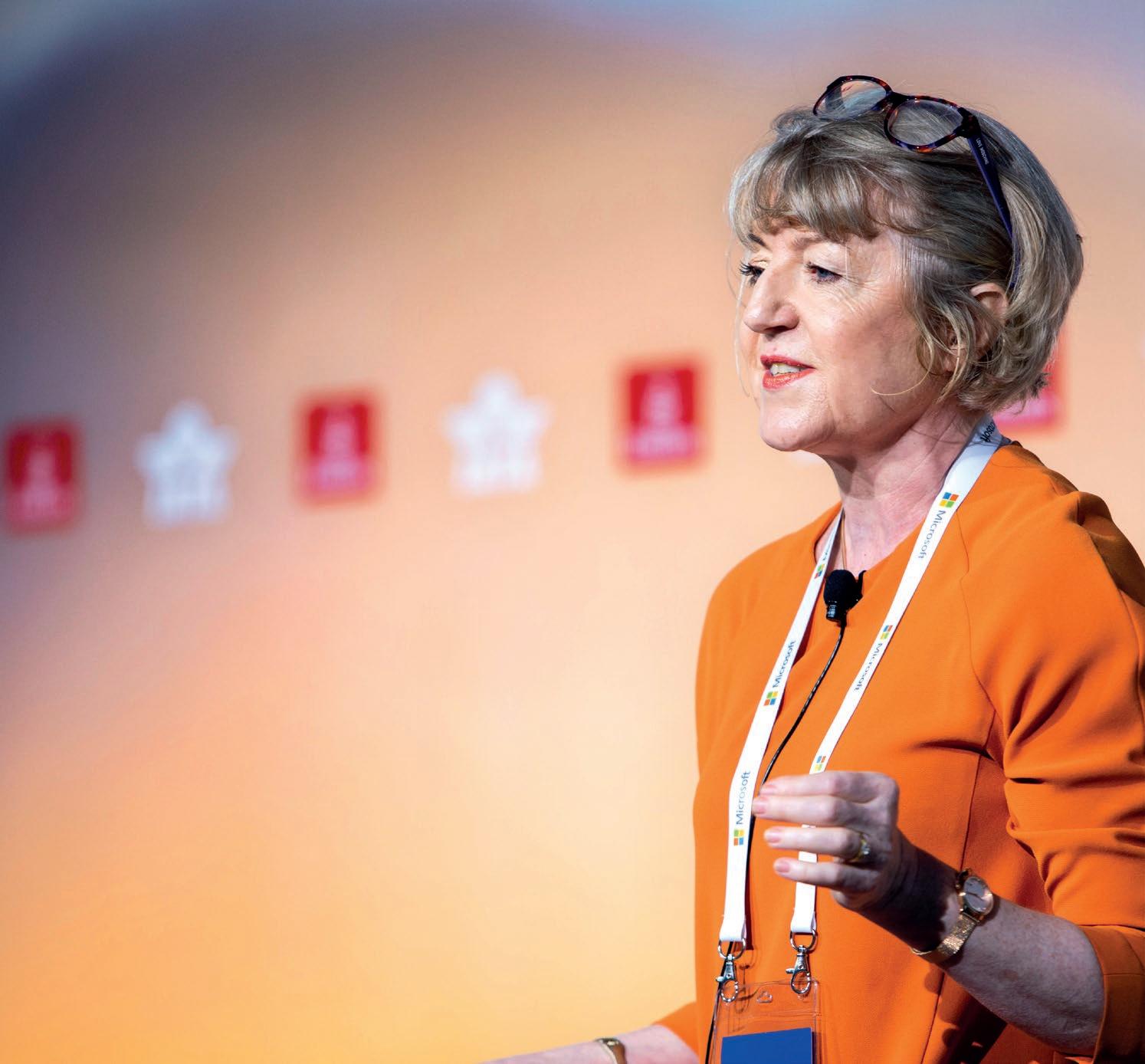
73 OMNIA Issue 09 Autumn/Winter 2021
and science background. During the meeting I identified that very little attention (at that time) was given to passengers with medical or accessibility related requirements and volunteered to cover these as part of my role in the team. Thankfully my suggestion was implemented and I spent the next twenty years at Virgin Atlantic facilitating travel for passengers with additional requirements within the airline and the wider aviation industry and for many years was the airline’s Accessibility Manager.
During my career more legislation has been introduced around the world enabling people with disabilities to travel more freely and with greater dignity. Although I believe accessible and inclusive travel should be championed because it is the right thing to do and organisations shouldn’t do it “because they have to”, the regulatory framework has helped to raise standards.
Were you involved in community service at Eothen?
Do you think this impacted your desire to support accessibility related aspects?
I believe my passion for working in the accessibility arena developed from my experiences of community service at Eothen. Outreach work such as singing in various choirs at Care Homes for the elderly and disabled, charity walks and collections, carol singing and also a variety of other tasks such as cleaning and gardening.
I discovered very early on that helping others is extremely rewarding, so after leaving Eothen I continued with my volunteering when I could – signing for the Deaf & Deaf / Blind, supporting outings for a group of mentally disabled people and assisting with a local youth group. Over the years I have seen great improvements in the community and a better acceptance and understanding of the rights of people with disabilities. However, over twenty years ago this awareness was minimal in the aviation industry and I was determined to use my passion and skills to improve the situation.
Thankfully others have felt the same and along with the relevant legislation there are many colleagues championing accessibility and inclusion.
What does your day-to-day work involve?
During my time at Virgin I was responsible for ensuring the airline was compliant that our passengers with disabilities received the best possible experience. This embraced a variety of tasks such as – implementing new legislation, lobbying governments and industry bodies, press promotion, reviewing training courses, writing procedures and project work such as aircraft acquisition and refurbishment and product, route or airport innovation. It was an extremely varied role. (Oh and also several hundred emails a day – my inbox didn’t look pretty).
Two years ago, I started up my own consultancy business – Accessible Travel Consultancy Ltd and promptly became even busier! I was consulting for Virgin Atlantic on accessibility, supporting IATA with a project, sitting on several airport accessibility advisory boards and working as the Deputy Chair for the Heathrow Access Advisory Group (HAAG). I remember commenting in February 2020 whilst at an accessible Hackathon in Seattle “I’m looking forward to March when I can take a few weeks holiday”. Well that holiday became a very long fallow period due to the pandemic.


74 caterhamconnected.co.uk
I believe my passion for working in the accessibility arena developed from my experiences of community service at Eothen.
Geraldine, Master of Ceremonies at the IATA Global Accessibility Symposium, 2019
What are the challenges you can be faced with?
During my time in the industry there have been wars, ash clouds, terror attacks and this pandemic that have seriously disrupted longer term plans for companies and individuals.
Specific accessibility related challenges have changed over the years. Twenty years ago accessibility was either not considered or evaluated only at the end of a project, today it is mostly included from the beginning. Thankfully the horror stories of people with disabilities being denied boarding are now also very rare.
There is still one large challenge that needs addressing – many people with disabilities are quite rightly hesitant about flying. The World Health Organisation states that approximately 15 per cent of the world’s population has a disability yet at most airports the percentage of people with disabilities travelling through that airport is much lower than this – in the region of 2 per cent.
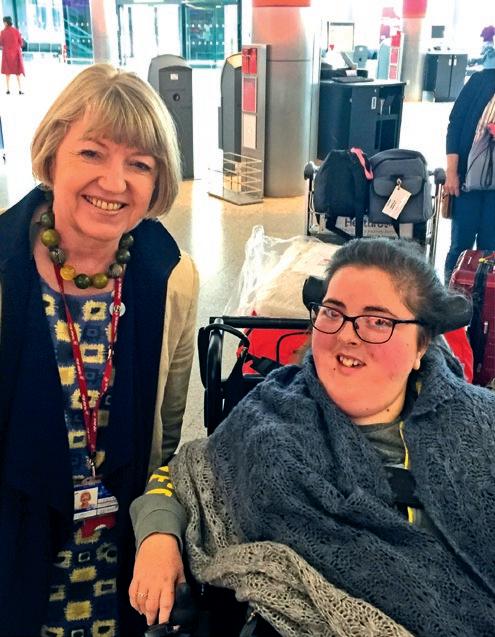
Reasons for hesitancy are numerous and involve concerns that mobility equipment will be damaged or lost, an inconsistent experience because accessibility legislation is not consistent globally and now concerns that they will be more exposed to COVID-19 due to the fact that they may need close contact with an assistance provider.
All of these concerns need to be addressed by an international effort and I’m pleased to say that work is going on in these and other areas. One of my greatest ambitions I hope to see in the not too distant future is that people who are wheelchair users can sit in their wheelchair onboard. This already happens on trains and buses and would be a better and safer experience for the passenger and for airport employees.
What
have been some of the highlights in your career? When we rewrote the rule book to enable a young woman to fly. Her name is Kate Mellor and she had a dream to experience a trans USA road trip. However Kate has multiple medical and mobility issues. She visited us many times at our training facility to see if we could adapt a seat to enable her to travel. Sadly even in Upper Class she could not travel safely in seat mode. We asked the CAA if they would allow her aircraft seat to be used in bed mode for take-off and landing if we conducted a full risk assessment. I expected the CAA to say no but they agreed and Kate fulfilled her dream. If you’d like to learn more about this she has written about it on her Facebook page.
I also had the great privilege of accompanying the UK Invictus team and choir to the Invictus Games in Orlando. We were chosen to take the team due to our good reputation in this area. So many people at Virgin Atlantic and Gatwick and Orlando airports worked tirelessly to ensure this happened with hardly a glitch. It was moving to talk to many of the team participants about their experiences.
I was really proud to drive through several initiatives during my time at Virgin Atlantic. We were the first airline to introduce accessible entertainment on all our aircraft and achieved an award for this.
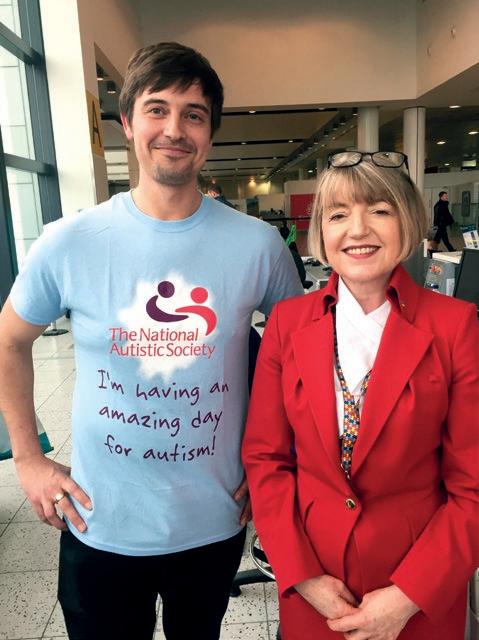
We also supported the hidden disability scheme which was started at Gatwick Airport a few years ago. We used the green and yellow sunflower symbol where it was recognised and introduced our own symbol so that we could support any of our customers in countries which did not recognise the sunflower. In those days the green and yellow lanyard was only known at Gatwick and Heathrow Airports but
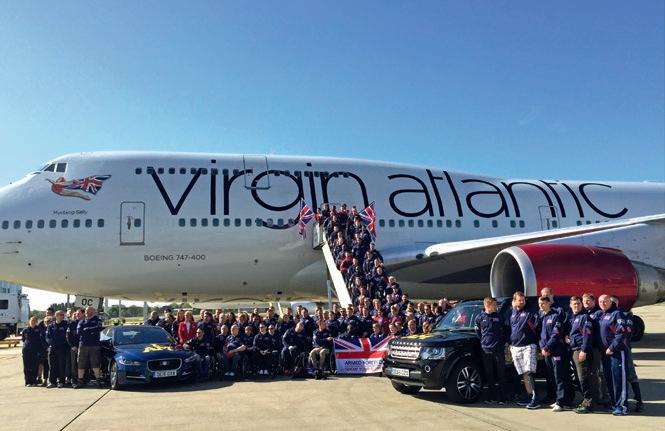
75 OMNIA Issue 09 Autumn/Winter 2021
Middle: the Invictus team
Bottom: Geraldine and Kate Mellor
now it has grown to be recognised around the world and used in other environments such as shops and theatres. It’s a great example of how a simple idea can spread rapidly driven by customer need and supported by organisations. Being an inclusive business is not just about assisting your customers; you also need to support your employees. We initiated an employee support group for employees with disabilities and staff caring for family members with disabilities. It generated some positive changes in the airline and I’m pleased to know it is still thriving despite the current pandemic.
One of the last things I did pre-pandemic is also a personal highlight. In November 2019 IATA held its inaugural Global Accessibility Symposium over two days in Dubai. I was honoured to act as Master of Ceremonies for the event and it was wonderful to see hundreds of industry colleagues and accessibility advocates working together to champion the cause. Twenty years ago I would never have dreamed that the industry would have embraced accessibility so fully. I was so proud to be a part of this.
How do you think the travel industry will fare post pandemic?
It has always bounced back from other challenges and people will always want to travel. I expect there will be some reduction in business travel as people and organisations have discovered how much can be achieved remotely. However, many people who have spent the past year attending virtual meetings are also aware of the negative aspects of working remotely.
What is your favourite memory of your time at Eothen School?
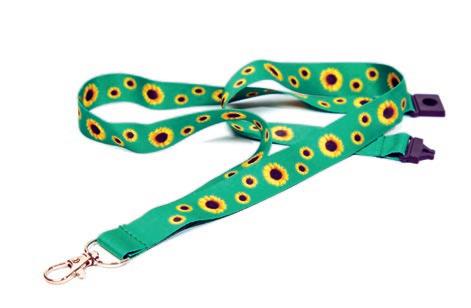
I don’t have one favourite memory as such but a whole favourite year – what we called UVth (Upper Fifth) – our final year of ‘O Levels’. I enjoyed the combination of classmates who had known each other for years, being allowed to have a little more freedom (although there were still school rules), interesting subjects taught by enthusiastic teachers and being based in one of my favourite classrooms – we had the wooden classroom located in the playground. Looking back it was probably very cold in winter and stiflingly hot in summer but I don’t remember it as such – just a year of fun memories culminating with one of the hottest summers on record (1976) to enjoy once we had finished our exams.
How do you think Eothen influenced you and your career path?
Last but not least I mustn’t forget our guide dog awareness days. We were asked by Guide Dogs for the Blind if we could organise awareness flights for trainee guide dogs. Full flights proved impossible but on a regular basis we organised Friday flight-awareness days at our mock up aircraft. The dogs were given a mock flight with their trainers and then they socialised with our employees afterwards. It enabled the guide dogs to be prepared if they had to accompany their new owners on a trip, our staff had a lovely time with the dogs over lunch and the charity boxes were always filled with donations – a real win/win event and a great start to the weekend.
What advice would you give to others wanting to join the travel industry?
If you want to join the travel industry go in with open eyes and mind and also have a plan B. Over the years I’ve lost many colleagues due to redundancies. However, it is a great life, a wonderful career and you will be supported by amazing colleagues, even customers can become lifelong friends. You will also develop some great transferable skills which many of my ex colleagues are currently using to support the NHS in the COVID response and vaccination programmes. You don’t necessarily need a set career plan and if you have the talent you will be developed and moved around to increase your skill set. Whatever role you have in aviation you will rarely be bored. However if you prefer certainty and a measured pace of life it may not be the best career choice for you.
Eothen encouraged me to study my interests and instilled a belief in all of us that we could achieve anything we wanted. We were also pushed to embrace other subjects which weren’t necessarily our favourites and this developed a wide rounded education in all of us. I left Eothen with an enquiring mind and a ‘can-do’ attitude. These are aspects that have helped me circumnavigate challenges – if I meet an obstacle I want to understand why it’s a problem and evaluate what can be done to address the issues.
The attitude I learned at Eothen that “anything is possible” has also stood me in good stead. It may sound naive now but at school I was blissfully unaware of feminist issues and unaware that there were any glass ceilings. It wasn’t until many years after leaving in 1978 that I learned that it wasn’t until the 1970s that working women could obtain a bank loan or mortgage without a male guarantor or that women could have been refused service in a pub up until 1982. I firmly believe that because we were encouraged that anything was possible I didn’t place too many limitations on myself. Perhaps that’s another reason why I’m so passionate about accessibility and inclusion – I don’t want anyone to be limited in any way or by anyone?
76 caterhamconnected.co.uk
It was wonderful to see hundreds of industry colleagues and accessibility advocates working together to champion the cause.
The Hidden Disability Scheme is now identified by the sunflower emblem worldwide
Welcome to the OCA Class of 2021
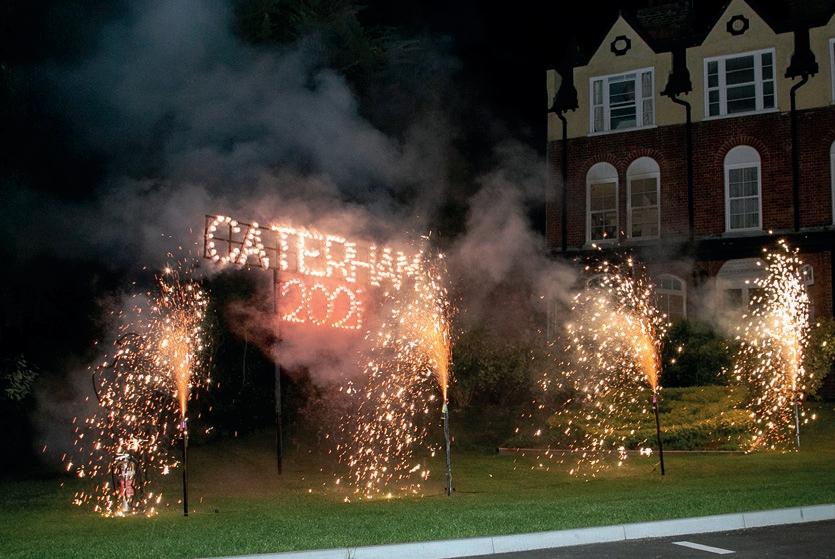
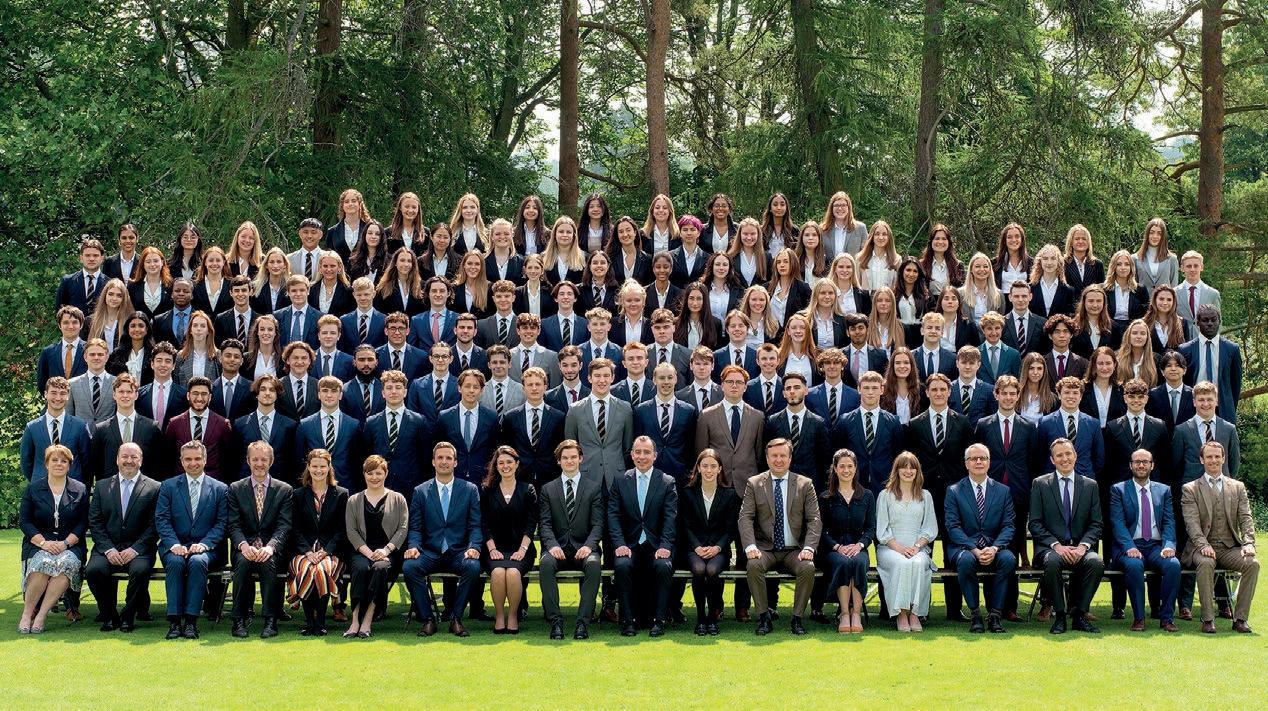
77 OMNIA Issue 09 Autumn/Winter 2021
Heads of School Handing Over the Baton
Outgoing Heads of School give their advice to their successors
I am sure the fact that I have had the role of Head Boy in such an obscure set of circumstances has meant my experiences have been far different to those before me but nevertheless it has been such an invaluable opportunity and I am very grateful for being trusted with the job.
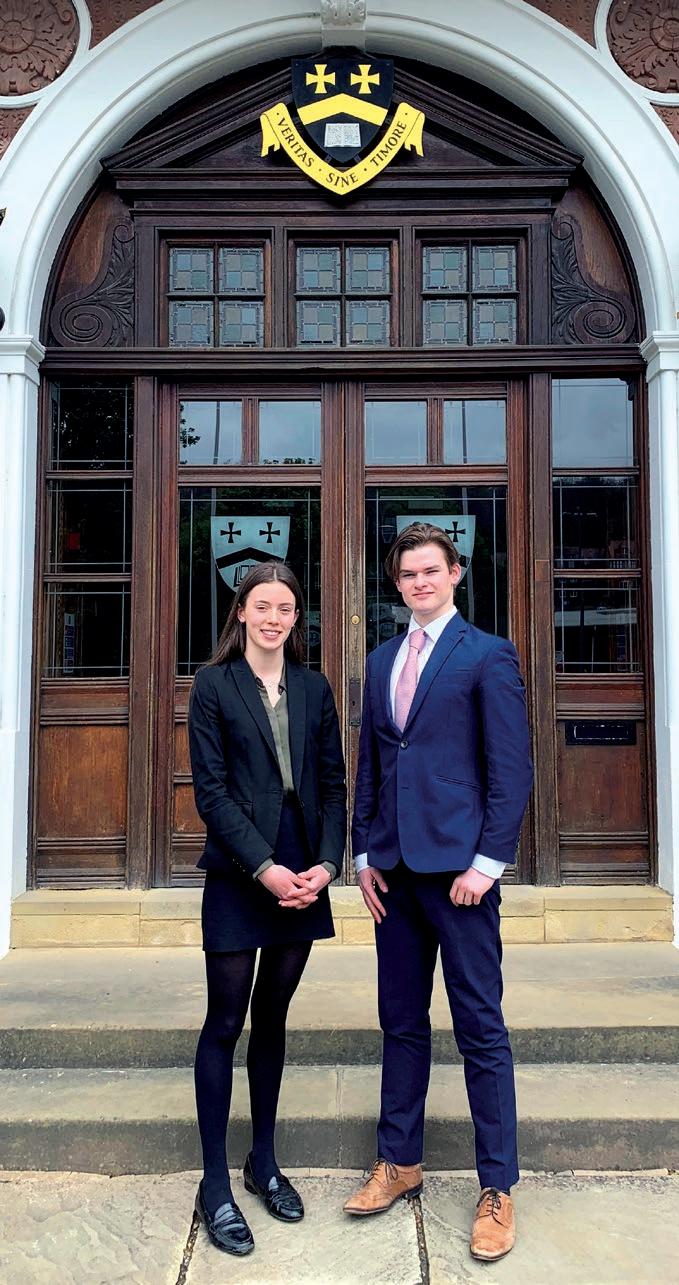
I remember being called to the Headmaster’s study in late September last year and making the long walk to the other end of the School before being asked to pursue the role of Head of School. As daunting as it seems at first, you will soon realise that the benefits of the role far outweigh any nerves you may have and it ultimately gives you a whole new perspective on life at school.
Having endured such a large proportion of our final year from home or under various restrictions, it has made me realise how much I’m going to miss school as the whole experience has given me a taste of what life after Caterham is like before having even left.
With this insight, I cannot stress enough how much you should take every opportunity that comes your way whether that means trying something new or stepping out of your comfort zone. At the end of the day, you can only regret the chances you don’t take. Furthermore, with so much going on in Upper Sixth (even without a pandemic to contend with) it is easy to become overwhelmed which is why it is important to reach out to the people around you when you need to. You will be surrounded by so many people who are willing to help and as the year group grows a lot closer it is important to realise this help could come from unexpected places.
I really hope the next Heads of School get to have a more normal experience and get to make the most of the opportunity. Best of luck!
Alex Richings Head Boy, Class of 2021
Had you told me back in First Year, that our last year of Caterham would have been as it was, I would have never believed you, let alone realised how much fun it would still be. Of course we have had an unexpected end to our time at school, but in many ways this has brought our year closer together as we faced times of challenge as a group.
I am sure I am not alone in saying that there were times in my first few years of senior school when I saw the clock in the last five minutes of a lesson and wondered how long we had until break time. In fact, my only regret is not recognising how quickly our time at Caterham would go by. So really try to focus on enjoying the present, as well as looking forward to what is coming next and seize all opportunities put in front of you.
I have learned that even at the most stressful of times, there is always someone who would rather help you than watch you in silence. I encourage future Head Girls and Boys, and the rest of the Upper Sixth to look to each other for support when needed. It is often the people who share the least, who worry the most, and usually a problem shared really is a problem halved. I hope that the next Heads of School will get to learn as much as we have in the role, but I suspect I’m right in thinking that they may have just a couple more duties to fulfil than Alex and I have.
Maddie Alcock Head Girl, Class of 2021
78 caterhamconnected.co.uk
Restoring a Georgian Country Estate
Middleton Lodge
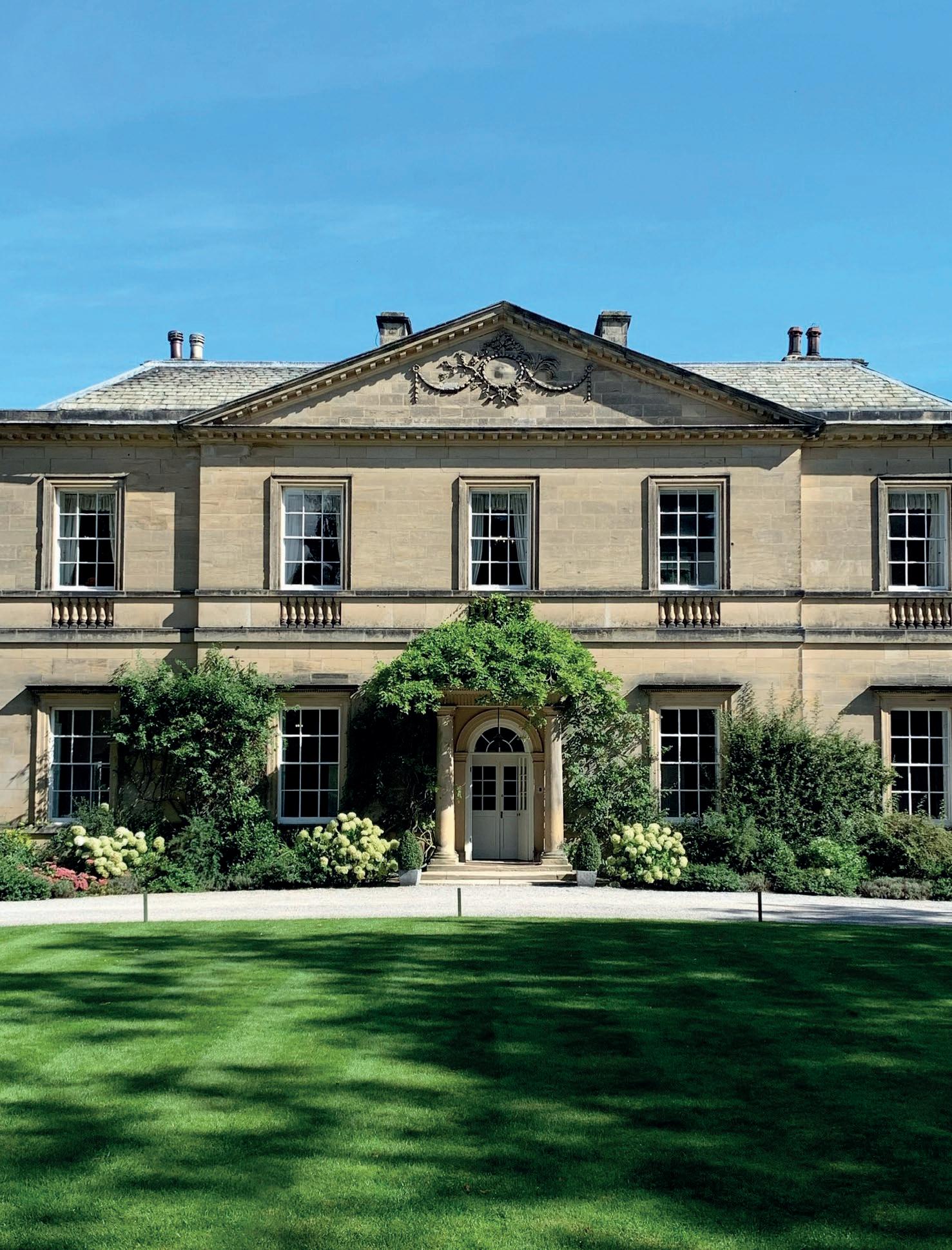
79 OMNIA Issue 09 Autumn/Winter 2021
Rebecca Allison (née Tappin) (OC 1994–1996) and her husband embarked on the mammoth task of transforming a dilapidated Georgian Country Estate into a stunning Yorkshire retreat. As an architect and engineer, they were hands on from the outset, and Middleton Lodge is now a haven for weekends away, complete with restaurant, award-winning grounds, spa and events program (plus we hear it’s a pretty special place to get married too).
Inspiration and restoration
Middleton Lodge Estate is breathtakingly beautiful, both the Georgian mansion and the stunning gardens – what were the house and gardens like when you started?

When I first met James (in New York of all places – through fellow Old Cat Rich Aseme) he had bought the house he grew up in from his parents. (As his father, Jeffrey wanted to sail – in fact he became the first person to sail around the Arctic in a fibre glass boat aged 73 – his motto was “never underestimate the enthusiastic amateur”.)
James already had big plans to convert the old stables into a restaurant, and was holding weddings in the main house (running the bars until 4am and making breakfast for everyone the next morning – the sort of thing you could only do in your 20s!).
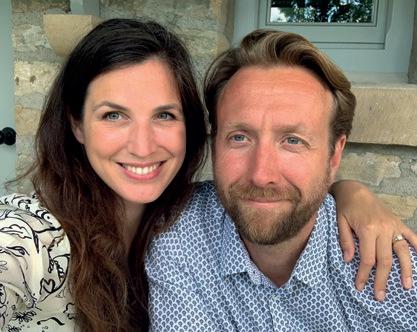
At that point the house was lovely, but most of the other buildings on the estate were falling down. The roof had partially collapsed at the stables (now the Coach House restaurant), and the solitary remaining horse shared it with various other animals, I seem to remember turkeys in the stalls, and pigs in what is now the private dining room!
The walled garden was overgrown, the glasshouse completely disintegrating, there were nettles and thistles higher than head height, but there were plums and elderberries to forage and it felt just like the secret garden.
What was your vision for Middleton Lodge Estate?
I did a mood board for James back in 2010 with some ideas (I could not help myself) and coming across it the other day we’ve not actually veered too far off it. My central ethos with it all was always to keep the magic, reveal the history, the character of the spaces, and the designs of the original architects and builders.
We made a concerted effort not to cover or fill in the worn pieces of stone or the layers of plaster on the walls. I love the concept of wabi sabi and we’ve incorporated that into a lot of what we do.
80 caterhamconnected.co.uk
The house was lovely, but most of the other buildings on the estate were falling down.
Since opening the Coach House “restaurant with rooms” in 2014, Rebecca and James’ renovations have included adding the Fig House and Walled Garden, 11 new rooms at the old Dairy, a 6 bed Farmhouse, and are currently finishing off further accommodation in the Orchard. They have treatment rooms, with a spa and pool opening soon.
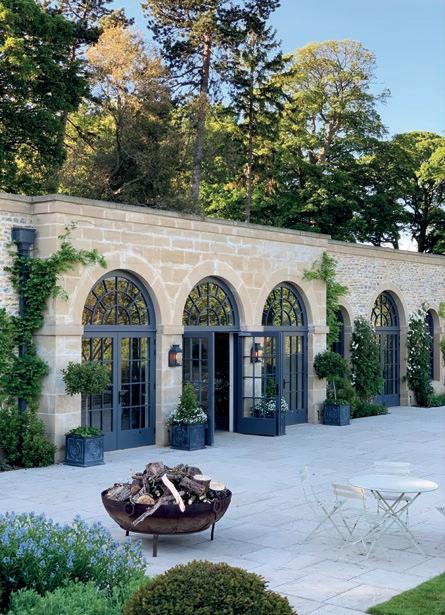
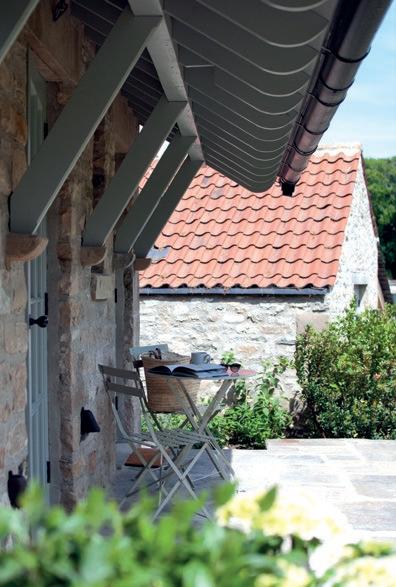

When we first opened a few people asked when we were going to finish off the plaster in the Coach House restaurant, but that’s one of my favourite bits – it looks like a fresco, or a bit of Venetian plaster, but it’s just what was here (albeit cleaned up a bit!). A lot of people say it feels Southern Mediterranean (especially in the gorgeous weather we’ve just had) – and I think it might be down to that, not to mention the honey coloured local stone, and relatively simple planting (we’ve got a lot of rosemary, lavender, white roses and old apple trees not to mention older specimen Wellingtonias, Black Pines, Limes and Oaks).
I am also drawn to simple fabrics, so textured weaves rather than busy patterns, with ticking, sackcloth, and a simple palette taken from the surroundings. It is hard to pin down as I work quite intuitively, but if something feels right, we go with it – generally I take cues from what’s already here in nature, in the old buildings, antiques, old bits of blue and white china we find in the ground.
What inspired you to take on such a huge project in transforming the estate?
I think with something like this, you are either all in or you are out. James had already started, and it was quite clear that this was the only way to make it all work and to be together was to keep going forwards, so I just mucked in. Fortunately, I have quite a useful skillset (although I am not so great in the kitchen or waiting tables – I had an early run in with a tray of champagne, and haven’t been asked to do as much on that side since!)
As an architect yourself, and your husband an engineer, how much of the restoration work do you do yourselves?
We do a lot of it ourselves. James did a building course at the local technical college, after reading Engineering at Oxford (they thought he was nuts) but it meant he knows what he was talking about and can get on the tools. These days physically we get builders in to do the manual work (we have an onsite building team bolstered by specialist contractors) but it is still just me on the architecture and design side.
It must have been challenging taking it on living in situ with a young family – what were some of the highs and lows?
The global pandemic has been something of a rollercoaster this year. I would not say it has all been lows, but it has certainly been challenging. We are lucky in that because we have lots of space and we work for ourselves, we have been able to adapt quickly to events. We have been putting up stretch tents, we did takeaway pizzas for a while, and we have had to change the way we do many things behind the scenes. Obviously, it has been
81 OMNIA Issue 09 Autumn/Winter 2021
My central ethos with it all was always to keep the magic, reveal the history, the character of the spaces
quite stressful, and I cannot say home-schooling in the middle of it all was easy!
We had a few people who moved in during the first lock down (the Head Gardener, appropriately, moved into the Head Gardeners Cottage which is usually a hotel room, to keep an eye on the plants) so we weren’t completely alone, but I think we actually were able to take stock a bit and let the girls have the sort of childhood my husband had here growing up – riding their bikes around the estate, camping on the fields, making igloos in the snow, so in many ways their world opened up.
Living in a hotel also certainly has its perks – we love our restaurant, and occasionally get to stay in the hotel rooms, which is always such a treat! We also get to meet some interesting people along the way.

What advice would you give to other Caterhamians embarking on a restoration project?
Start with seeing the beauty in what you have. Don’t be tempted just to knock it all down and rebuild it, but let it see what it wants to be and to an extent let things happen. From a more professional perspective, I’d say allow probably 1/3 more in your budget than you think you’re going to need for contingencies (you’ll always use it). Roll with the unexpected, there are always surprises (and not all of them good) when you’re renovating. Research the history, don’t obliterate it, look around, make Pinterest boards, see what other people are doing to similar properties, and what might work – definitely start with the dream, work out what you love, and go from there. Think about how you could use the space, the flow, and where the light is.
Running the estate
There is so much going on from weddings, restaurant, spa and events. What does a typical day running Middleton Lodge look like – is it a 9-5 job?

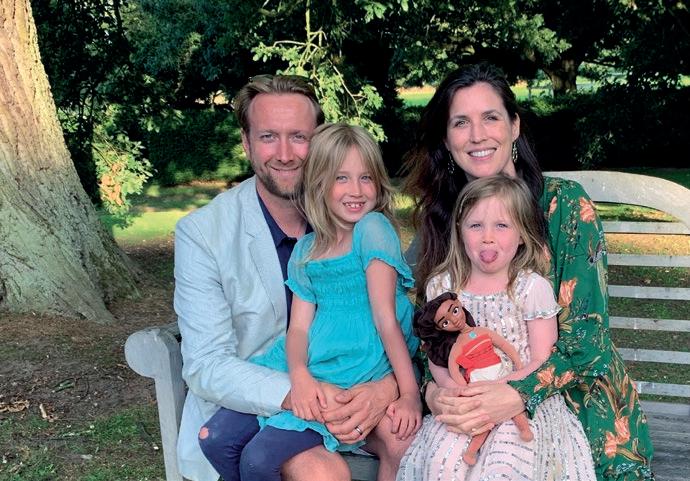
My job is definitely not 9-5 (although it is somewhat more bookended by the children coming home from school these days). One of the things I love most is that no two days are the same. I could be on site with the builders checking progress, making tweaks to what they are doing to make sure it is all working correctly. I could be drawing up the next project in CAD (I have a gatehouse, a spa and more greenhouses on my desk, not to mention a property in the village we are bringing on board). I could be mood boarding a colour scheme for one of our new rooms. I could be writing content for the website. I could be trawling antiques fairs or eBay for one off finds for the rooms. I could be taking photographs for our social media… I am not sure where the list ends!
To see all that Middleton Lodge offers: middletonlodge.co.uk
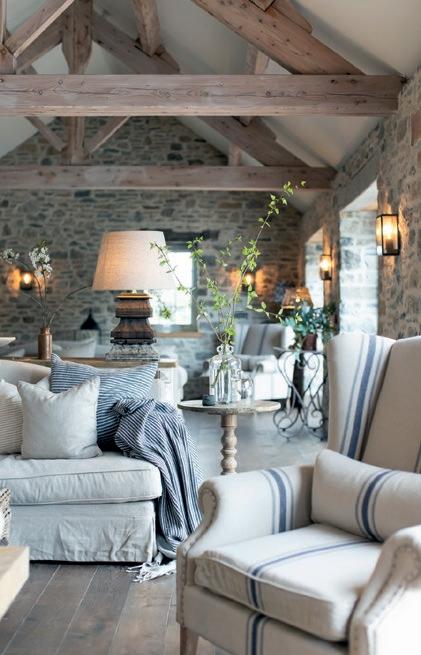
82 caterhamconnected.co.uk
What traits do you think you need to be successful in creative direction?
When I finished university, I did not know what I wanted to do. (Both my younger siblings are doctors – my sister Suzy Tappin always knew she was going to be a medical doctor – and my brother Peter Tappin, is an actual rocket scientist with a PhD). When I made my choices at A Level, I chose pretty much one of everything (biology, history, art and maths) because I wanted to know and do everything! I think one of the key traits for Creative Direction is that ability to turn your hand to lots of things – creatively you need to have an eye of course, but it’s not just that, it’s a whole load of other skills too – and I definitely think curiosity, looking outwards is one of the most important skills. Once you think you are the best at what you do, you have lost it. I never want to stop learning, and I am always interested in what other people are doing creatively. There is a lot of noise on social media, on Instagram and Pinterest, but there is a lot to inspire, and I am always doing amazing courses, looking at what everyone else is doing, picking things up and just absorbing ideas. Inspiration can strike anywhere, and I would say never stop learning!
What are the challenges you can be faced with?
I think the biggest challenges I face at the moment is time – I would quite like to have substantially more than 24 hours in a day to get it all done. Opening up again and getting up to speed after this second lockdown has been a challenge, and at the moment getting hold of things (building materials, ironmongery, furniture) is definitely being hampered by a combination of the pandemic and Brexit!
What do you enjoy most about what you do?
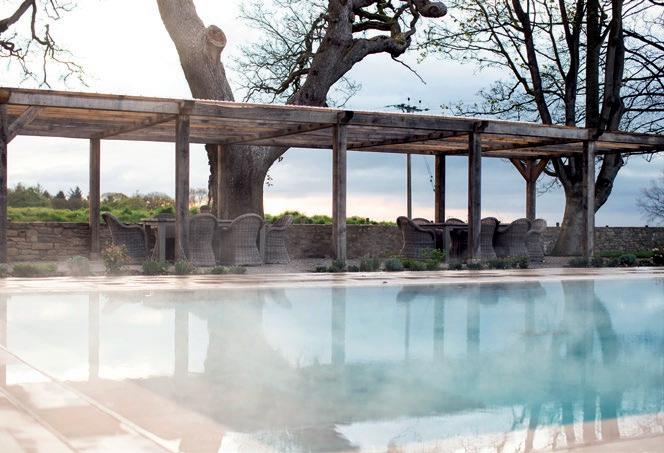
The two best bits are definitely the dreaming bit at the beginning, when anything is possible, and then the bit at the end when it is there in real life! We recently stayed in one of the rooms we had been working on for our wedding anniversary. It was not quite finished, I was still putting up hooks and snagging it (so it was arguably sort of work) but in the end we didn’t leave for three days it was so beautiful! Working as an architect (I worked for Michaelis Boyd in Notting Hill for seven years), I had have to leave my work often to an interior designer to finish off, and I certainly didn’t get to stay in it!
Memories
of Caterham
What is your favourite memory of your time at Caterham School?
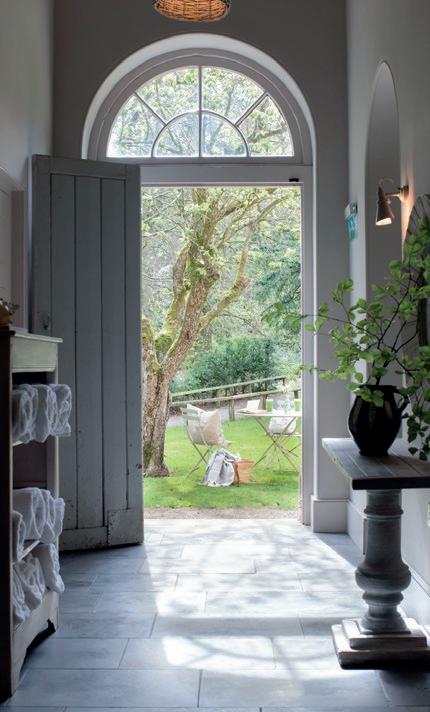
My favourite memories of Caterham involved my friends – going up to the Harrow on Friday nights, watching the rugby at Old Cats on a Saturday
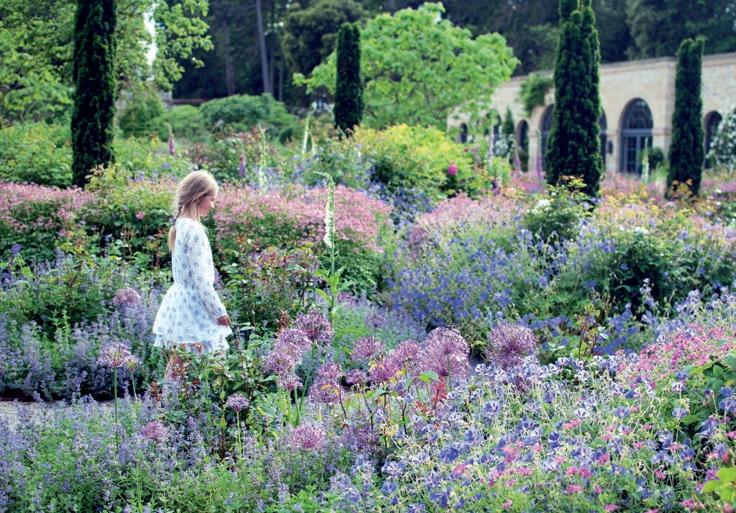
83 OMNIA Issue 09 Autumn/Winter 2021
afternoon, the Upper Sixth Dinner Dance, debating society dinners, the headmasters lecture group (we had guest speakers and I remember them being really inspiring), the School Ball (I made my own dresses!). We also had an incredibly memorable trip to Eastern Europe that really sticks in my mind – particularly a visit to Auschwitz amongst jollier places. I also had a brilliant and inspirational art teacher Mrs Kyle who really helped me to “get” art and set me off on a creative path.
How do you think Caterham influenced you and your career path?

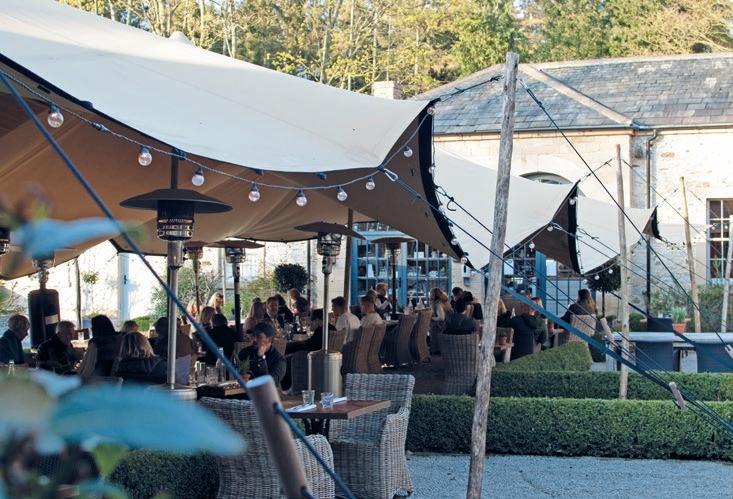
Caterham definitely gave me ambition, and a need not to settle for the ordinary or every day. I think it has given me confidence that I would not have otherwise had, and a knowledge that I could go far if I put my mind to it. It is interesting now being on the other side of that, with choosing schools for our own children, and we’ve actually picked one up here which reminds me very much of Caterham in many ways. Having opportunities to try things, being given that confidence and real growth mindset that you can do anything you set your mind to is crucial.
Advice for fellow Caterhamians
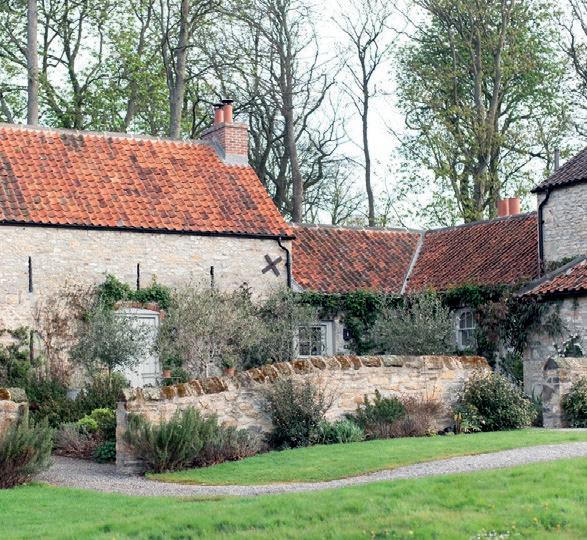
What advice would you give to others leaving school?
Don’t be afraid to fail, try lots of things. I found it tough when I left university (I graduated with a First in History, and no idea what to do with it) and that can be a difficult time, I imagine even more so at the moment. I got some computer skills, and went and got some temping jobs in the city, which was actually an incredible way to see a bit of how the world worked, and not at all a bad foundation for pretty much anything. I worked in publishing companies, marketing companies, and investment banks – simple jobs in themselves, but they allowed me to work with some amazing people, to save up to go travelling, and ultimately to go back to uni to study architecture.
I knew I wanted to continue to learn, I knew I wanted desperately to do something creative, so I did a foundation course at the London Institute, and ended up at The Bartlett for architecture almost by accident. I would say that almost everything I have done, including things which may have seemed potentially a mistake or a backwards step or even a pause, have been incredibly important for what I do today. So, my advice would be to keep going, keep your eyes open, keep learning, work hard, look for opportunities and everything you do will be for a reason. Do what you love if you can, and seek opportunities there, but just keep going, it will work out in the end!
84 caterhamconnected.co.uk
Curiosity, looking outwards is one of the most important skills.
Sara Norman (née Mackay) (OC 1992-1994) has enjoyed a career in Public Relations promoting some of the world’s most glamorous destinations and working with ‘chef of chefs’ Raymond Blanc for almost a quarter of a century.
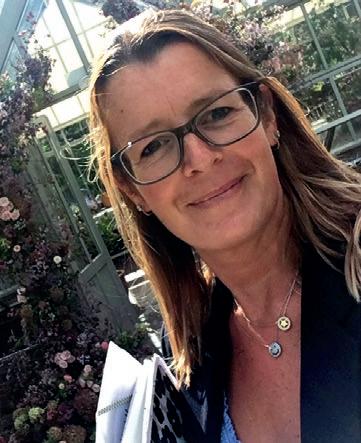

85 OMNIA Issue 09 Autumn/Winter 2021
A TASTE OF
“It was the summer before I started Sixth Form at Caterham School and my parents had promised to take me out for lunch if I got my exam results, as a motivator and a celebration. Thankfully, the right grades arrived, and so did our special day out, to Le Manoir aux Quat’Saisons. As I walked down the path with my mum and dad I knew this was somewhere really special. I got this sense that this place was something that I wanted to be a part of.”

86 caterhamconnected.co.uk
A post GCSE celebration lunch left a lasting impression on 16-year-old Sara Mackay – one that was to give her an unexpected taste for PR, and influence her career for decades to come.
“Le Manoir was just beautiful, but above all I will never forget how they treated us. The staff were amazing – we were just an ordinary family but the staff there made us feel like we were the royal family. The service was seamless and the lunch spectacular. It was like nothing I had ever experienced before. I left thinking this is somewhere I will never, ever forget. I remember telling my parents as we left that I was going to work there. I didn’t know what particular job I imagined doing, I was just set that Le Manoir would feature somewhere in my future ambition.

Years later I told Raymond (Blanc) about that memorable first impression. He still jokes in business meetings that I have been at Le Manoir since I was a teenager!”
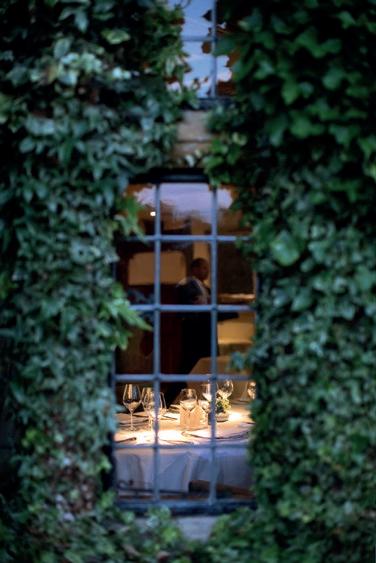
And so with GCSE results suitably celebrated Sara joined Caterham School to embark on A Level study as a Sixth Form pupil. Moving from a girls-only school to life at Harestone Valley Road Caterham marked a step-change in Sara’s educational career.
“I just loved Caterham, really loved it. The teachers treated us like adults – everyone was encouraging and everything was made positive and open for us, even with things like visiting the Library and extending our reading, everyone was friendly and welcoming. I didn’t even mind Saturday lessons which back then were part of the school week. It was all part of life here – we’d all tip up to Hill Fields after lessons to stay on and support the sport, especially the rugby.
Caterham Memories
I still remember my teachers, Mr Lavery, matron Mrs Dodwell, and I had a great business studies teacher in Mrs Keane who was my tutor too. I felt it was a transition from being at my previous girls’ only school – you were treated as a grown up as a Sixth Form pupil at Caterham. It was the fairly early days of the School being co-education in the 1990s. If you did something wrong you did get told off, but the way they approached you and treated you like a grown up made me a much more confident person. We
87 OMNIA Issue 09 Autumn/Winter 2021
Le Manoir aux Quat’Saisons
Le Manoir restaurant
really got the sense that it was our school and that we could achieve want we wanted to. I did classics, English and business studies at A Level and then after Caterham went straight into work. I didn’t really know what I wanted to do career-wise to be honest, but my first step was an administration role at music publishing company Eaton Music which I really enjoyed.
Tentative Steps in Travel
I fell into travel unintentionally – a friend at a travel specialist PR agency let me know about a temporary admin role opening up in the agency where she worked and I was lucky enough to get it. That was in about 1995/96 and 21 years later I was still there, having risen up the ranks which is unusual for the fast-pace world of PR that is not known for career stability.”
Sara’s work at travel PR agency BGB spanned a variety of accounts including several destinations from Australia, to the Caribbean and the island of St. Lucia and, closer to home, Wales. “I worked with the Australian Tourist Commission to


promote the country as a destination which I loved as my dad is Australian so I had a real link and connection to the place I was promoting.”

Reflecting on how one goes about promoting somewhere as varied and vast as Australia in a Public Relations campaign, Sara said: “‘It’s really important to forge good relations with everyone involved in a destination – the hotels, the restaurants, the airlines. You have to know everything about the destination and what is within it to really sing about it – and sometimes you’re lucky enough to go and see the places. As part of working with St Lucia the client would make sure you visited and experienced the destination, so you really did know it. From that knowledge you can develop different campaigns to suit the themes that the tourist board wants to promote in a given year across the different sectors of the markets within the UK.”
Return to Le Manoir
As Sara’s role and experience in travel PR developed, the agency were invited to pitch for a new account promoting for Raymond Blanc’s Le Manoir aux Quat’Saisons.
“I begged to be on the pitch team, as Le Manoir had remained one of my favourite places since that very first visit aged 16. I never forgot it! We put together a proposal and pitched with the whole process taking about six months but we won it. That was in about 1997 and I’ve now been working with Raymond and Le Manoir for 24 years.
The Rise of Celebrity Chefs
Sara’s time working with Le Manoir has seen the birth of the now cult status of celebrity chefs with numerous names vying for the spotlight and dominating primetime television. Has that new genre of celebrity helped or hindered her work with so many chefs chasing for the spotlight?
“When I started working with Le Manoir, Raymond had been famous and then the fame slowed down a bit whilst Le Manoir was building up as a business. One of our main objectives at the start was to raise Raymond’s profile again as well as that of Le Manoir. From there it has grown and grown and he’s become a massive celebrity again. He is probably the
88 caterhamconnected.co.uk
I worked with the Australian Tourist Commission to promote the country as a destination which I loved as my dad is Australian so I had a real link and connection to the place I was promoting.
Australia, St Lucia and Wales were amongst the destinations that Sara promoted at BGB
Godfather of chefs rather than being focused on being a celebrity for the sake of celebrity. Raymond has trained 30 of the top chefs at Le Manoir which shows his dedication to passing on his craft. From the success of Le Manoir the business has been able to expand further with Brasserie Blancs and involvement in events such as the Chelsea Flower Show and Ascot but Le Manoir is still the base and is part of the man himself.
The day-to-day work involved in running the PR campaign is hugely varied and Raymond is involved in every single part of the business with a real eye for detail across everything that happens. We might be launching something at Le Manoir and he’ll be checking the gardens and taking out weeds to tasting the Champagne to be used. On other days we might be preparing for media interviews, researching the opportunities, and preparing a full brief on the journalist, the title and what will interest them most and are key points to get across and ensuring the location is appropriate and ready, for example the kitchens.
When we reopened after COVID lockdown for the first time we spent a good few days going around with Raymond checking that everything was ready and as he would want it down to the very last detail. He is involved in every aspect. We took journalists to Le Manoir and did a host of interviews there to cover the reopening.
Crucial to success of the work we do is having the trust of the person you are working with and also to trust them. If Raymond didn’t have that trust in me, he’d be questioning everything we do – I think that’s the same with any client and you have to build trust and a relationship up over time. I would always ensure that Raymond is fully briefed, perhaps even over prepared, for every opportunity and interview because I know he is a perfectionist, in the best possible sense. That is why he is who he is, and his mantra to never stop learning is a wise one.”
Keeping it Social
Reflecting on how the media landscape has changed over her time working with Le Manoir, Sara said: “Keeping up with new ways of
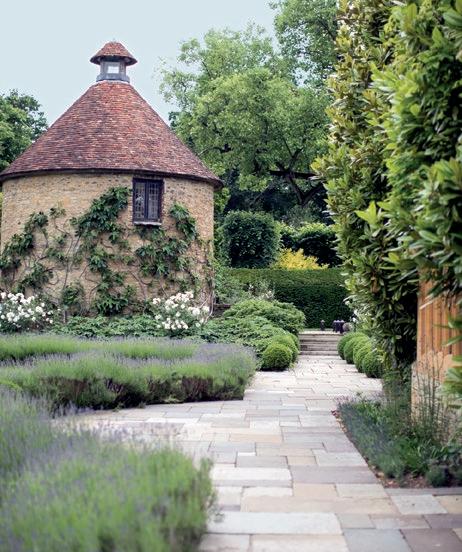
communicating is important. I love social media to a point, but it can be scary how fast it changes. For clients, like Le Manoir, social media is a huge opportunity. The power of images to convey and share experiences is vital for travel and food brands. If people are following influencers and watching them experience amazing places, then the speed at which that can be cascaded is astonishing. That said, the speed can be scary if things don’t go right and you have to always be mindful of how clients are posting information. You have to keep on top of trends and changing rules. There are more opportunities now, but a lot more to keep learning too.
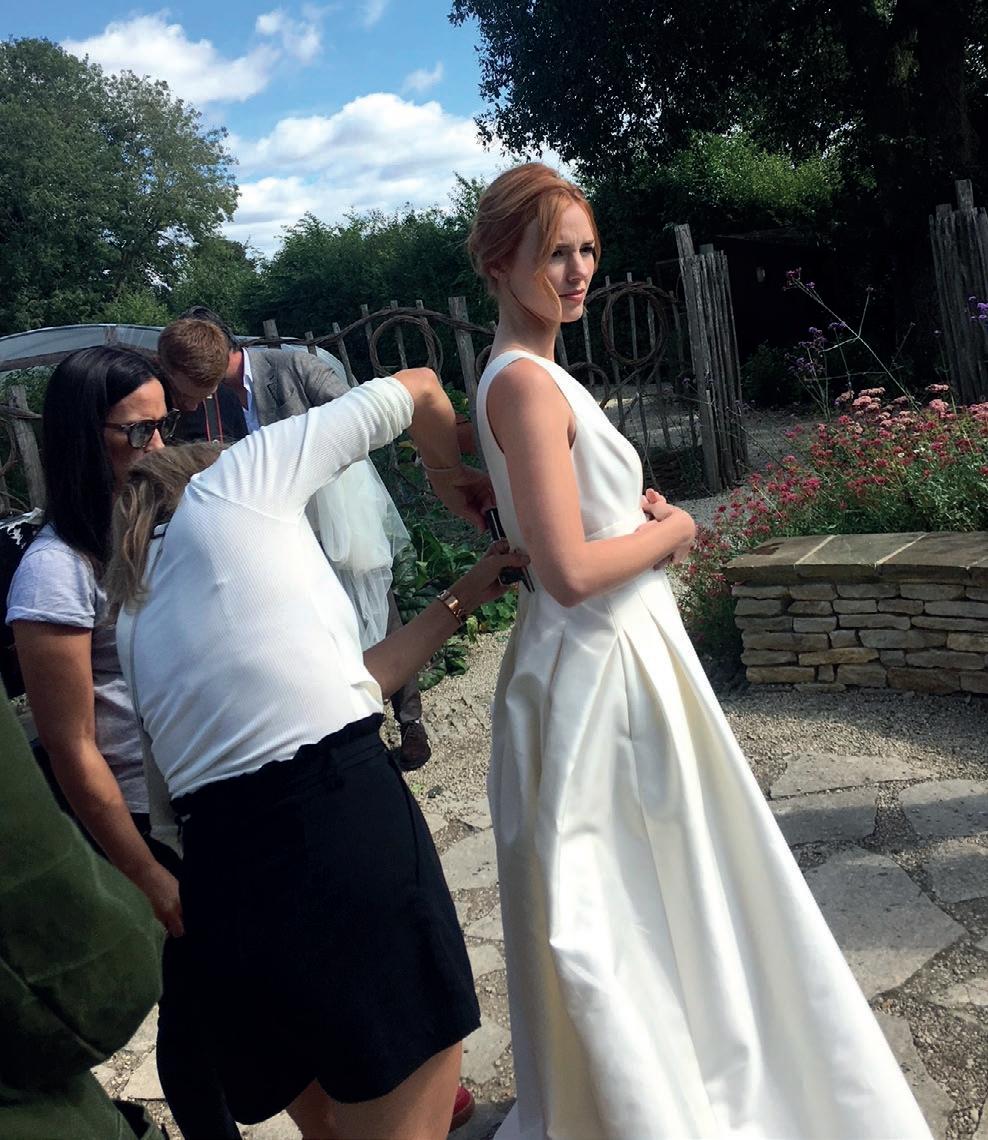
89 OMNIA Issue 09 Autumn/Winter 2021
Raymond has trained 30 of the top chefs at Le Manoir which shows his dedication to passing on his craft.
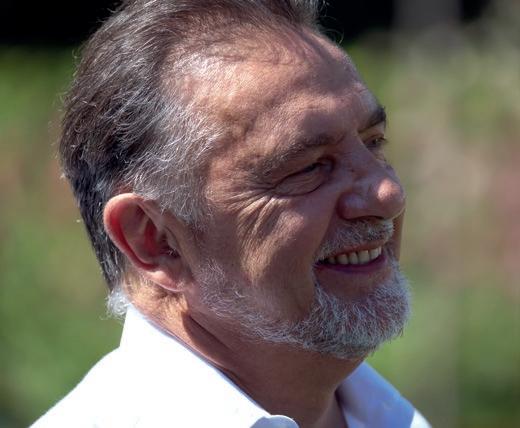
School and university leavers are growing up with this media and that gives them an advantage. You can never, and should never, stop listening and learning if you want to be successful. I’d say.
Career Highlights
Working with Raymond for so long is the highlight. The most memorable project was an annual competition with You Magazine to win a Raymond Blanc scholarship at Le Manoir. It was an amazing project because it changed people’s lives, and two of the winners are still working with Raymond even now. Working with the annual Children of Courage awards campaign was also a standout moment. There were some astonishing, often harrowing, stories of what families had triumphed through and the awards celebrated their achievements and gave them a day to remember. The awards were always in December with a service in Westminster Abbey followed by tea for the families – one year with Prince Charles at Clarence House sitting around his Christmas tree with the children and another year with Tony Blair at Number 10.”
If you would like to find out more about life in PR, you can reach out to Sara via the Caterham Connected platform caterhamconnected.co.uk
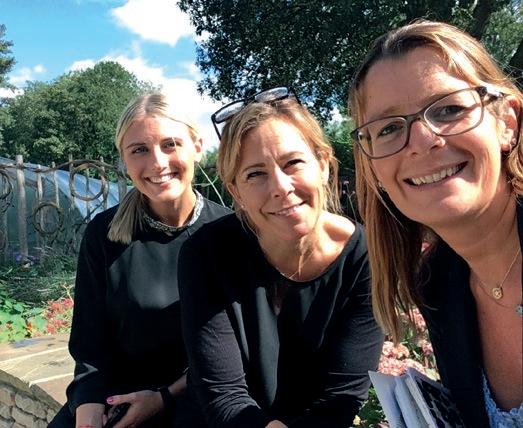
Secrets for Success
To be a success in PR you need to be ready to really understand the people and businesses you are working with, right down to the detail. You can come up with whizz bang ideas to impress at a client pitch for new business, but you have to know how to translate those to the actual business and makes sure they deliver for the bottom line. That can bring a different kind of creativity –perhaps in finding partners to work with where you align in certain key areas but can benefit from each other’s social media following for example. These days it is less about the ‘big money’ ideas and more about who to work with for strategic partnerships that benefit everyone.
Travel in 2021
Travel companies still want and need to be talked about even through the COVID lockdowns. It has impacted everyone who works in the sector, but it is the destinations and their people who really rely on tourism that I feel the most for. More than ever people want to hear about good news and dream and plan their travels so I feel confident they will bounce back in time.
Who is PR for?
People who like to research and read a lot, are interested in lots of different things and can stay open minded. PR is very different across industry sectors but increasingly there is overlap so stay flexible and open minded. Where travel used to be a dedicated sector it now overlaps with lifestyle, food and fashion. There’s also an increasing diversity in how we consume information so staying flexible and adaptable to new things is important. You need to be flexible with your time too – media and client calls can come at any time.
90 caterhamconnected.co.uk
Left: photo shoot at Le Manoir.
Above: Raymond Blanc and Sara with Julia and Kristin, Le Manoir Marketing team.
IN THE ARCHIVES
The Memorial Hall
By Narayan Minhas Ray, Second Year pupil and member of the Junior History Society

Opened in 1925, The Memorial Hall was built to commemorate pupils who had fallen in WWI. WWI proved challenging and tense for school life. The war brought dreadful news to children and staff every week, and the School received lists of Old Caterhamians who had lost their lives in service to their country every month. It was hard to imagine that boys who had been pupils at the School only a few years ago were now facing the trenches and the horrors of war on soils far away.
When the war ended in November 1918, the School embarked on a Memorial Project. At first, a tablet was placed outside the School’s entrance vestibule, with the names of those who had fallen engraved in marble and stone, with the inscription above, “In Honour and Remembrance of Old Boys of this school who gave their lives for Peace and Freedom.”
However, the project was far from over. Later, in October 1923, the school magazine first announces the beginnings of the Memorial Hall. It mentions that a new “Memorial Library and Reading Room”, would be built.
The estimated cost was £4,000, and eight architects were chosen to present a design. Walter Keesey, an Old Caterhamian, was selected as the winner, and his design
of a neoclassical styled front with stone dressings, pilasters, cornice, ornate window surrounds and a pediment won the approval of the Committee.
Keesey himself had been a pupil at Caterham, along with his brother who had lost his life in the war, so designing the building to commemorate fallen pupils would have had a great sentimental value to the architect.
Unfortunately, before long, it seems that a financial problem would be faced. By January 1925, the cost had been increased by £800, money that was not there. The magazine reported, “…the Memorial Building has been growing larger, and the available funds have been growing smaller.”
George Eynon, a member of the Board of Governors, wrote, “…the position is getting serious, and we particularly ask those who are members of the O.B.A., and have not yet given, to send something without delay to…”. The fund did, mostly, consist of donations from families and friends of those to whom the project was being dedicated.
The Memorial Hall was built by mid-1925, and although there was still £600 owing, it was officially opened on 16 July 1925.
91 OMNIA Issue 09 Autumn/Winter 2021
Everyone knows the Memorial Hall building very well, a great, ornate structure of red brick and stone at the centre of a thriving community that houses the School Library.
Fabulous place full of memories for my generation – RE lessons, music lessons – not to mention trooping in for Assembly every day...
David T. Kinnear
The beginning of the service was recorded in detail in the school magazine:
“The procession moves slowly up the stone steps and along the broad gravel path. The Choir leading, followed by the Form Representatives, Old Boys, Members of the Committee, Members of the Staff, the Headmaster, and the School’s special visitors.”
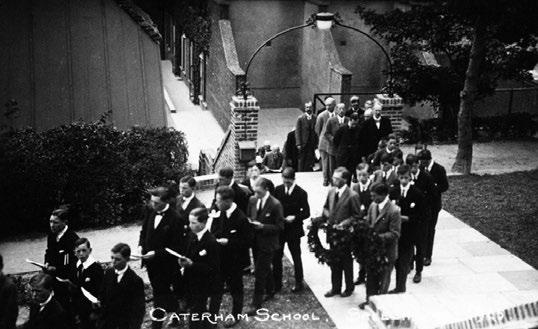
Everybody made their way to the front of the building, where Lord Leverhulme, a benefactor to the School spoke: “I value very highly the honour and privilege of being invited to open the Memorial Hall. We are here not merely to inaugurate this beautiful addition to the School buildings, … but first and foremost we are paying honour to the memory of those to whom this hall has been erected. We also remember this day the parents and relatives and friends of those whose names have been read out to us. Our sympathy and respect go out to them.”
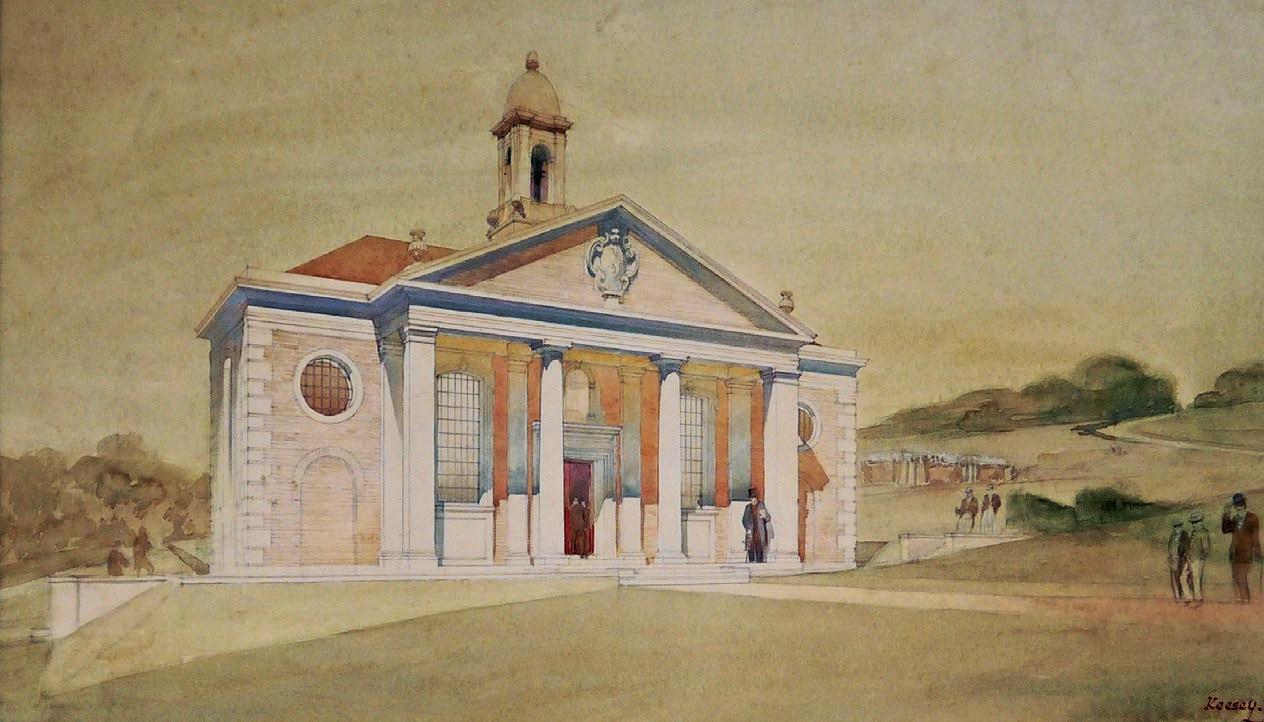
92 caterhamconnected.co.uk
The Opening Ceremony
IN THE ARCHIVES
The following poem, named “In Memoriam”, was then read out aloud:
GONE, as shades of night, are thoughts of war, Gone the thought of fighting man with man; Gone and past is every risk they ran
To fight, and win, for England's fame. Gone are they, but still remains the memory That once they, too, lived on this earth below; They lived as we live; and when chances show, To do what they did we are just as free.
In such a way this glorious piece of art Should show to others how to live aright, And show to them how they should take their part
To make this country’s light a noble light; And fix the unstained memory in their heart
Of those who gave their lives for England’s right.
This moment in time must be acknowledged, for people were coming together to remember and celebrate the lives of those who had given their lives for their country.
School life around the Memorial Hall was rapidly progressing. All music concerts were performed there, the 1926 Nativity named, “Bethlehem” took place on a stage inside. There was an early performance of a new type of music, Jazz! In 1928, Stephen Bonarjee (Founder of the BBC Today Programme and Old Caterhamian) took part in a Debating Competition in the building. Short films were even projected there for pupils, and it soon became the latest craze.
By 1939, the world was facing a conflict like never before. School life dramatically changed. Members of staff were called up to fight, roofed in ‘refuge’ trenches dug at Mottrams and on the hillside behind the Main School and older pupils and masters keeping nightly fire-watching duties, as Britain was now entering the Second World War, a period with, “no surrender.”
A Punch and Judy show was performed in the building in 1944 (and repeated in 1946), to liven the atmosphere and raise money for the British Red Cross. The charity carried out lots of work in hospitals and in military units, as well as delivering parcels for prisoners of war.
The Memorial Hall continued in being a thriving place in the school community after the war. However, the library was moved out into other buildings to make more space. Many more plays, such as Shakespeare’s The Merchant of Venice (performed in December 1951) were enjoyed in the building.
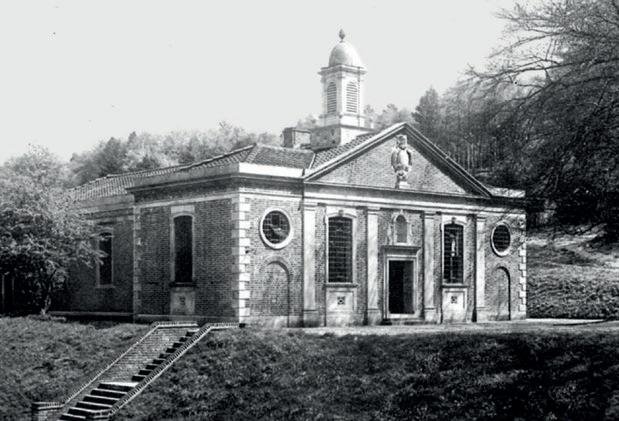
By the late 1980s, the site was changing. The School began a new £750,000 project to erect the Humphreys Hall for Performing Arts. The final phase of the project was to update the Memorial Hall.
This was down to the generosity of an Old Caterhamian, Albert Maggs. Maggs had contributed to the Memorial Fund in the early 1920s, and now had given money for the conversion and updating of the Memorial Hall.
It was opened in October 1990, after a year’s renovations. There was now a new balcony floor, many bookshelves, and £10,000 had been donated by the Parents’ Association for the purchase of books. There was even a new set of computers and a photocopying machine. The school magazine reported:
“The building, while benefiting from completely new fittings and modern technology has not lost its wonderful character. … Having been housed elsewhere for many years, it seems appropriate that the library should return to the building, and it is hoped that the sympathetic restoration will enable those using the library to still regard the building as a memorial and as a piece of the School's history.”
The thing that makes the story of the Memorial Hall so intriguing and incredible is how it is linked so closely with the heritage that the School holds. I hope that the Memorial Hall will remain to be a special place to all for many, many years to come.
93 OMNIA Issue 09 Autumn/Winter 2021
Memorial Hall 1925
The Memorial Hall: a postscript
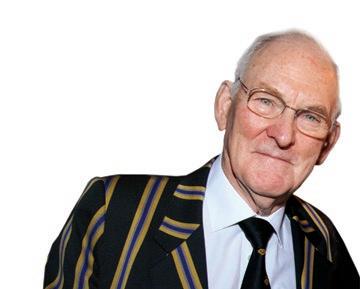 By Colin Bagnall (OC 1949–1955), the School Archivist
By Colin Bagnall (OC 1949–1955), the School Archivist
It certainly did, Narayan! In my day, the 1950s, every pupil crossed the threshold at least once a day (day pupils on Sundays excepted!).
All morning assemblies were held there and all Sunday evening services for the boarders and, in the last two periods on Saturday mornings, a whole-school singing session. It was our theatre, concert-hall, cinema and exhibition-hall. Almost every event of any note apart from Speech Day requiring a decent space or a degree of formality or a large audience took place in ‘the Memo Hall’.
In those days, the two rooms either side of the vestibule, designed as the library’s reading rooms, were called Stafford 1 and 2 after Dr. Hugh Stafford (a major figure in the School’s story for 38 years, 1899-1937), the one on the left being used occasionally for a Sixth Form classroom and the one on the right for the Sixth Form library (grandly known as ‘the Athenaeum’) and both otherwise always available for informal A Level private study in pleasantly quiet and elegant surroundings. Entrance from the vestibule to the hall was through substantial double doors, above which on the inside was a clock and above that the portholes of the projection room over the vestibule, accessed by metal stairs from the two reading rooms, from which Mr. Maddock and his assistants showed Saturday-night films on a large screen on the stage at the far end of the hall. The stage, a narrow platform reached by a small movable flight of
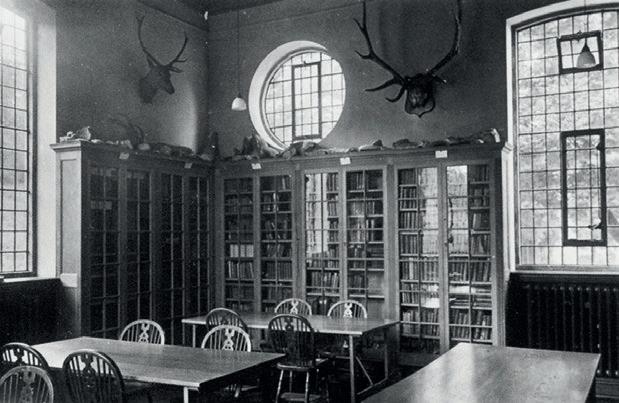
wooden steps from the floor of the main hall, was where the Headmaster and staff sat for morning assemblies and on which, despite its constricted space, the major dramatic production at Christmas and any number of sketches and playlets for the termly Old Boys’ Day concerts were performed. There was no ‘green room’ as such, so actors dressed and made up in the Athenaeum reading-room and then took an open-air walk out of the main entrance, right down the side of the building and back through a fire-exit into the stage wings. The inconvenience of all this, “putting scenery out on the hill-side, and getting drenched en route from dressing-room to stage” as the Magazine put it, was why productions were transferred to the stage in the old gym, now the Rudd Hall, in 1954.
It is great to see an article by a pupil of today on a remarkable building which was so important for me and my contemporaries. With its neo-classical lines and harmonious proportions, its elevated position and pleasant outlooks, its big windows and lofty ceilings giving it inside such a light and airy feeling, the Memorial Hall was a place unlike any other in the School. Simple, but with a touch of grandeur, its founding purpose, its architecture and its functions commanded respect and affection and I trust continue to do so.
I hope that the Memorial Hall will remain to be a special place to all for many, many years to come. Likewise, Narayan!
94 caterhamconnected.co.uk Take a trip down memory lane: caterhamschoolarchive.co.uk
“The Memorial Hall continued in being a thriving place in the school community after the war.”
Inside the Memorial Hall
An Interview with Leonard Ashley (OC 1936–1941)
By the Junior History Society
The Junior History Society would like to extend their thanks to Leonard Ashley and his family for sharing his memories of his time at Caterham during the Second World War.
What was happening to me? That was Leonard’s first impression when he moved to England. Leonard (born Leonhardt Guenther Auerbach) was sent to school in England in March 1936 after his parents realised that Jewish children were going to be segregated in German schools. Leonard wouldn’t see his parents again until they came to England after the war in 1947.
He recalls, “But from the start of the war my parents couldn't pay the fees. Indeed for much of that war, I did not know whether my parents were even alive. But that the fees and my living expenses were not paid, made no difference to how the
The Junior History Society comprises First and Second Year pupils who enjoy delving into the history of the School and its alumni as a co-curricular club.
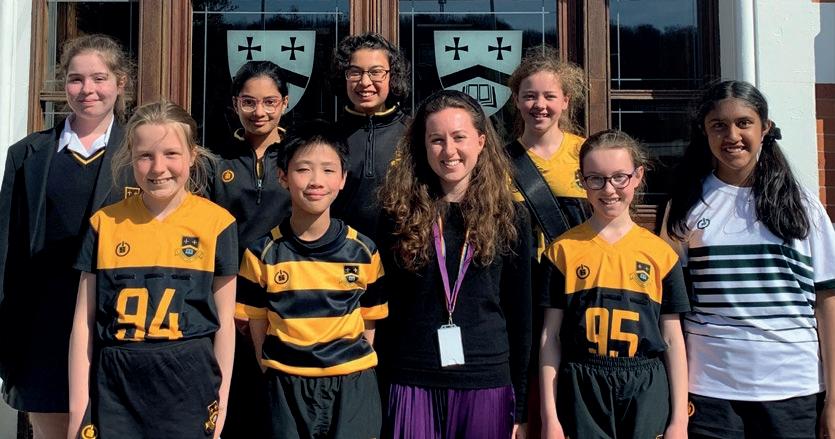
School treated me.” Even after he was reunited with his parents Dr Hall (then headmaster) refused any payment, “as you have suffered so much, we refuse to charge you anything.” Dr Hall is remembered by Leonard as “a very good man. He tried to help all pupils who were in difficulty.”
Like all boys, he was excited when war broke out, but he was still “somewhat apprehensive”. He had no idea of what awaited him here and all the great memories that he would make. When asked about his time at Caterham, Leonard reminisces that “he felt very much at home at Caterham School.” With no coercion from the Society he admits that his favourite subject at school was
95 OMNIA Issue 09 Autumn/Winter 2021
IN THE ARCHIVES
history and that his maths teacher, Mr Foister, played an important part in inspiring him to be an accountant.
Leonard’s time at Caterham was undoubtedly shaped by the war. Members of staff were called up to fight, roofed-in refuge trenches were dug at Mottrams and on the hillside behind the Main School and older pupils and masters kept nightly firewatching duties. Asked about how this time affected him Leonard recalls a lot of corned beef being eaten and that like the rest of the population, everyone was often hungry.
In late 1939, when Leonard was 16, he was called to appear before a Tribunal Court near Guildford. He was asked why he had come to Britain from Germany, and he
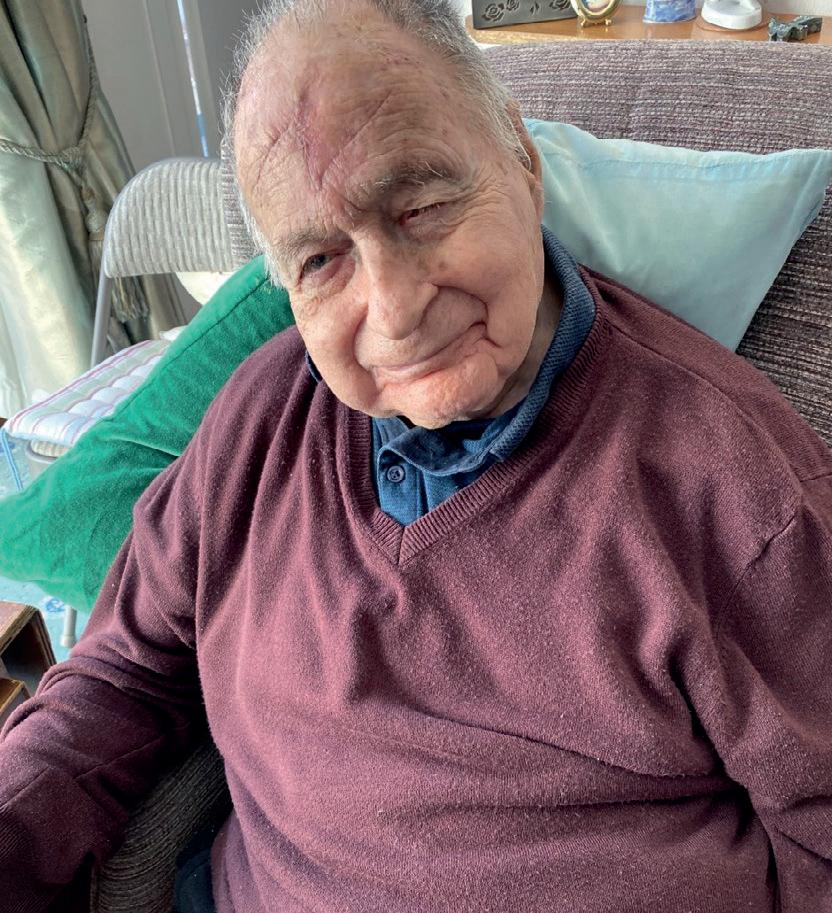
answered, “My father sent me”. Germany had ordered that all Jewish people coming out of the country were to have their passports stamped with a “J”. This was introduced in 1938; two years after Leonard had left Germany.
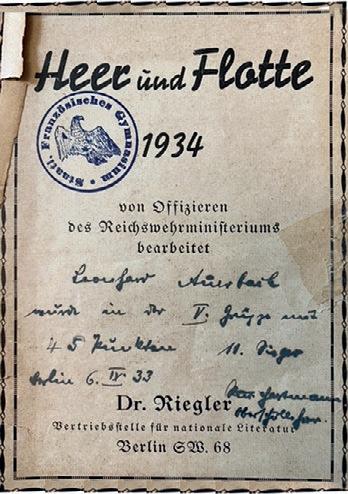
When the court viewed his passport, and found no stamp, it was decided that he was to be interned, as they believed that he was a possible threat to security. Leonard remembers his experience as an internee very clearly.
First, he was interned to the Isle of Man in 1940, and recalls that, “there were hardly any other boys his age who were interned.” After several weeks, he remembers that he was, “taken to Liverpool and
96 caterhamconnected.co.uk
When the court viewed his passport, and found no stamp, it was decided that Leonard was to be interned, as they believed that he was a possible threat to security.
Heer und Flotte was the Nazi propaganda text book Leonard was given at school in Berlin
IN THE ARCHIVES
put on the Polish ship MS Sobieski.” Only after the ship had left Liverpool did Leonard understand that its destination was Canada.
The previous ship that had sailed to Canada holding internees, SS Anadora Star, had been attacked by a German U-47 Torpedo, and around 800 people were killed.
He recalls that the soldier who was ordered to supervise him, “suffered from terrible sea sickness, so he had to look after the soldier instead.” He also remembers standing on the deck and watching German U-Boats sending up depth charges to attack the ship.
When he arrived in Canada, Leonard took the opportunity to work in the kitchens of the Internment Camp, as it was warmer there and he was closer to the food. Meanwhile, at Caterham School, Dr. Hall had written to the Prime Minister, Winston Churchill determined to release Leonard from internment in Canada. Eventually, Churchill personally saw that Leonard returned to Britain, and back to Caterham School.
The return ship to Britain was, “full of Canadian airmen; he was the only civilian.” He arrived back at the Liverpool Docks where he had left for Canada, where an army sergeant met him, gave him a train ticket, a few sandwiches and lent him one Agatha Christie book to read on the journey.
Leonard remembers that, “when he arrived back at Caterham, he was given a very warm welcome by the pupils and the teachers. The boys wanted to hear about his adventures.”
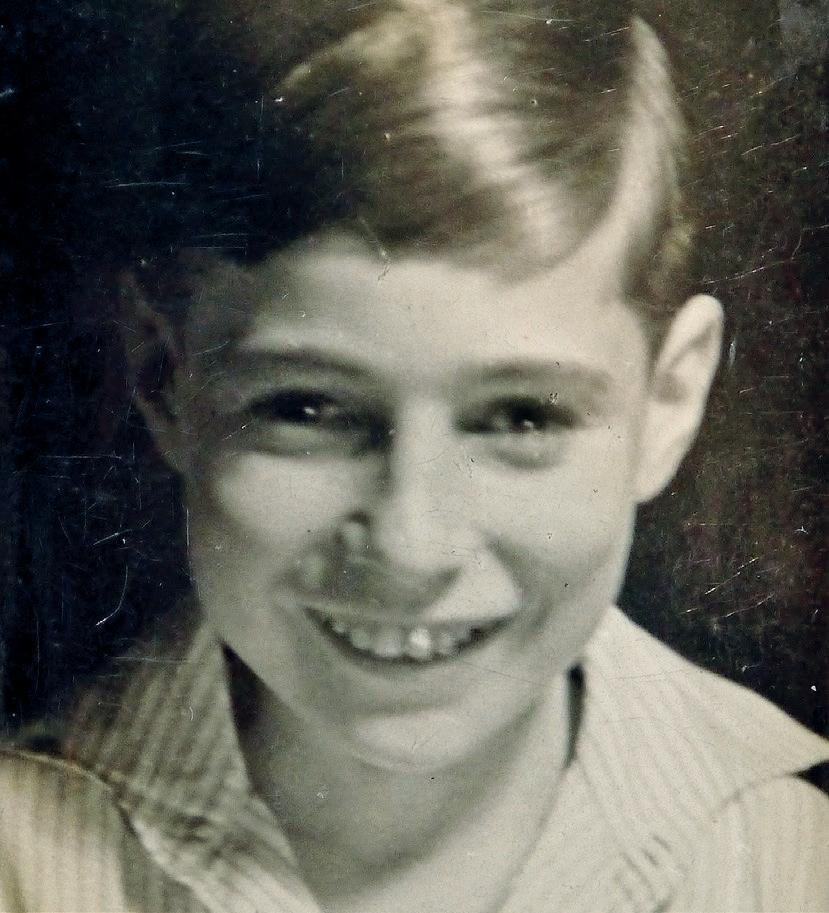
While Leonard’s experience of war and internment was perhaps different to the challenges many pupils face it is the ethos of the School that stands out for him.
He draws attention to the fact that he never experienced any bullying or racism at Caterham, and he says he learned a lot from ‘the kindness of the teachers and the boys.”
We are very lucky to have received answers from Mr Ashley. Although we are privileged to learn about the Second World War, it is the small moments that really build up the whole experience. From the perspective of the School and from Mr Ashley, his history will be treasured within our school and we are grateful we can share his experiences with you.
97 OMNIA Issue 09 Autumn/Winter 2021
If you would like to submit something to the archive, please contact Annie Hebden, Alumni Officer on 01883 335091 or email: oldcats@caterhamschool.co.uk
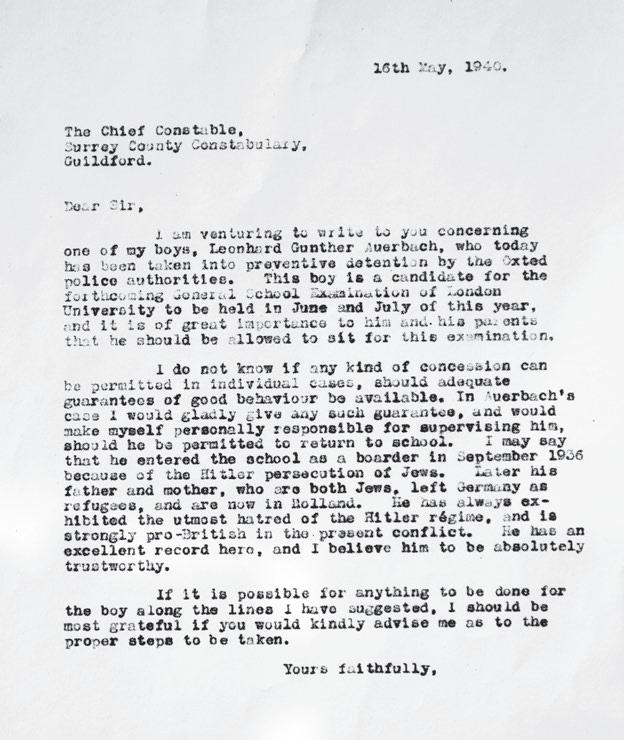
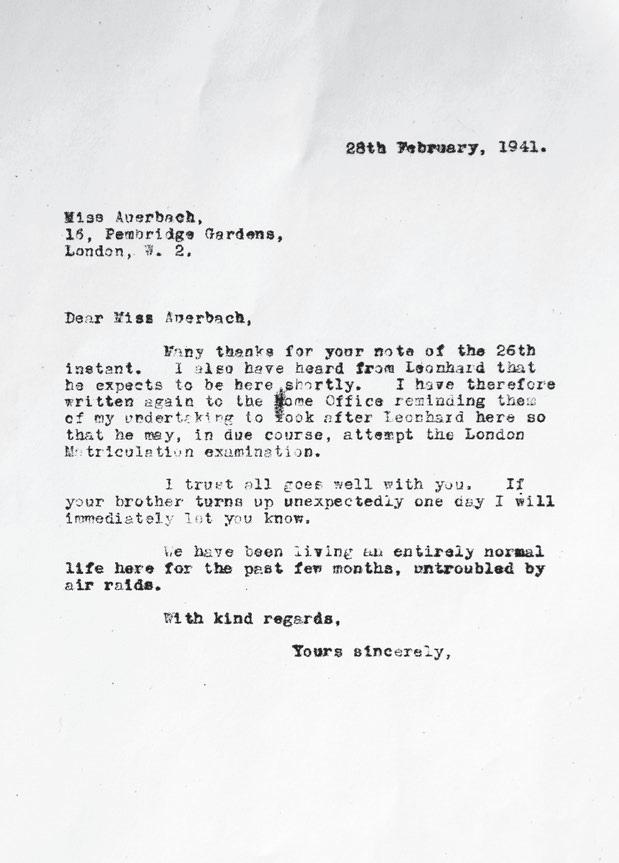
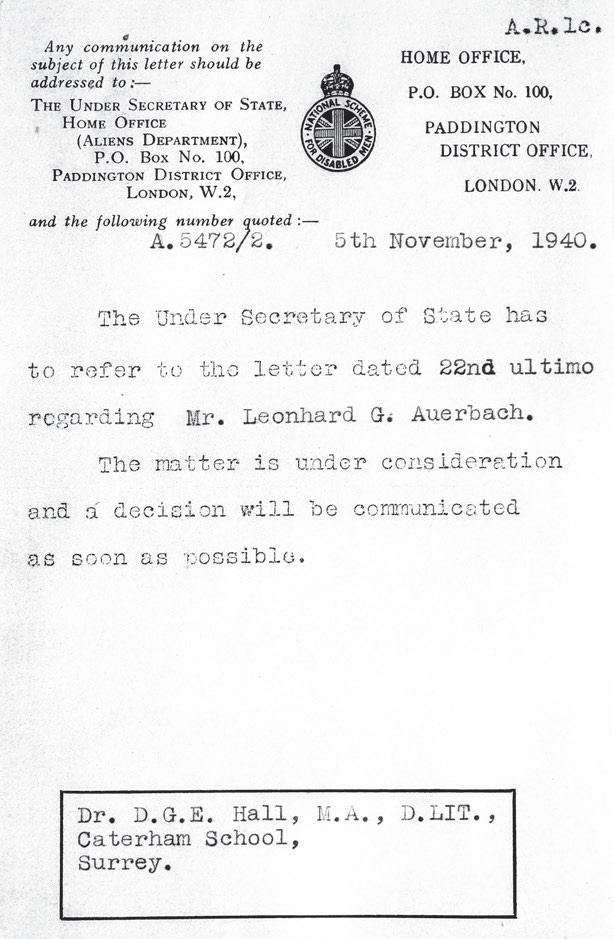
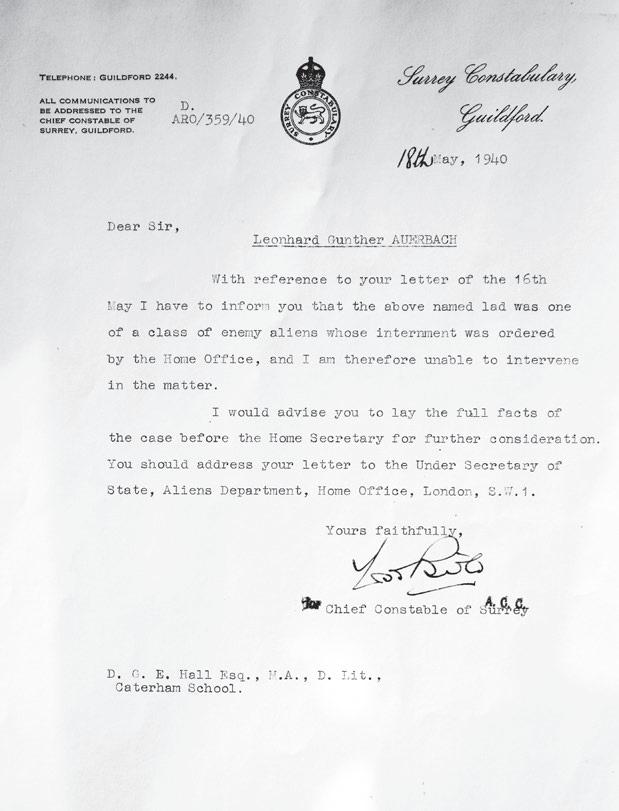
98 caterhamconnected.co.uk
Partnerships Growing Together
The unusual turn of events across the last 18 months brought the wider Caterham School community together. Support for each other throughout the pandemic has been palpable and much welcomed. That ethos of support spilled well beyond our immediate school community as Caterham Partnerships with schools and organisations flourished.
Laptops for Lockdown

The School led a continued local push to bridge the digital divide and enable online teaching for children in East Surrey who didn’t have a laptop or device at home. A fantastic response from the School and even local residents who joined our campaign saw over a hundred laptops and tablets donated, wiped and reset and then delivered to families across the local area. A huge thank you to everyone who donated, helped prep the devices and rehome them.
Lunches for Lockdown
As news of inadequate school lunch and voucher provision in the spring 2021 lockdown grew across the country, the Caterham School community made a difference in our local area. Spearheaded by the Parents’ Association with generous donations from parents, staff and Old Cats over £1,500 was raised to support families in need within our local partner schools. Our partner schools were uniquely placed to identify families who were falling through cracks with reduced income, but no access to wider support. The donations provided supermarket vouchers to give families control and buy fresh ensuring children did not go without essential provisions whilst away from school during lockdown.
99 OMNIA Issue 09 Autumn/Winter 2021
Invicta Academy
Work with this superb initiative begun over Christmas 2020 with 14 Caterham Sixth Form pupils supporting pupils across the country with online lessons via the virtual Invicta Academy. Each Caterham volunteer was supported by a facilitator to deliver lessons. The Invicta Academy initiative was set up in the first national lockdown with the need for support growing as the pandemic continued to help pupils from maintained schools to catch up on missed schoolwork. Lockdown affects different schools and pupils in a multitude of ways and Invicta Academy is vital in bridging some gaps in a pupil’s educational journey.
Work alongside our partners at Invicta continued through the summer 2021 holiday. Lower Sixth Form pupils and members of the maths and English departments took part online as teaching assistants and teachers with the Invicta Academy during August.
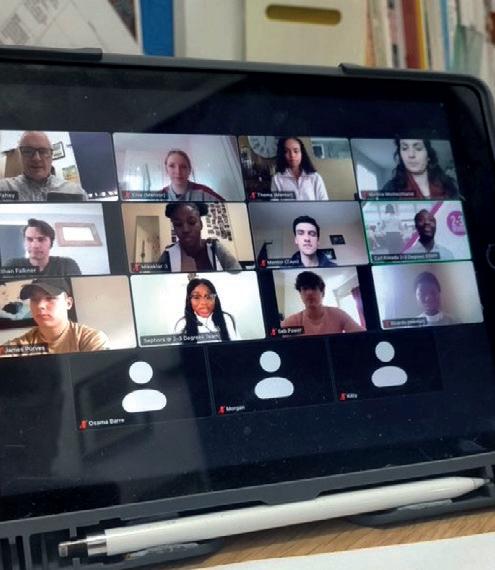
East Surrey Learning Partnership
Events around the pandemic acted as a catalyst for the development of the East Surrey Learning Partnership. Established by Caterham School, the East Surrey Learning Partnership is a group of independent and maintained schools working together to support ambition and achievement for all.
Action within the ESLP ensures shared learning and support for all partners. Since its beginnings in 2020 much work has already taken place including: a series of training events involving teachers from St John’s, Audley, Furzefield and Caterham, a two part coding series lead by Caterham Prep’s Mr Lang and a session on ‘Memory and Feedback’ from Dr Avery.
Direct support for ESLP pupils has included maths and English learning packs to provide extension work for pupils keen to go beyond the curriculum. With the traditional end of school year activity trips cancelled for primary schools, Caterham staff and pupils hosted schools within the School’s woodland. The Wildcats high ropes course, obstacle course and outdoor challenge games provided teamwork and fun for the children to mark the end of their school year.
United Access
During Easter break 2021 Caterham hosted our online United Access course in place of the traditional residential of previous years. The participating pupils, drawn from six United Learning academies, were in Year 13 with the majority opting for university courses next year from physics to Japanese to Animation, but also a Music Conservatoire and the Royal Marines. It was a pleasure to see and help this group develop over the last four years, and be part of the amazing group dynamic that has been so fruitful.
As with all Caterham partnership work, there was as much to learn and gain from our partners, as we were able to provide. Here is what our Sixth Form volunteers took from their experience with the Invicta Academy:
“It was such a rewarding experience as I realised how lucky I am to have been able to access all my lessons over lockdown and it also helped me gain valuable skills in communicating and presenting to others.”
“Being able to help out and interact with the students was something that I enjoyed, and I feel that it also helped with my communication skills.”
“I thought that it was interesting to see from the teacher’s point of view during teaching, and the work done in order to produce and present a good lesson online.”
“During the course, the facilitators were helpful and understanding when explaining to me what I had to do.”
“Overall, the week of helping out with Invicta was an enjoyable experience and a memorable one – if I were to be asked to get involved in the course again, I would most definitely accept.”
“I loved engaging with the teachers and the other pupils and hope that others will get the chance to do the same thing.”

100 caterhamconnected.co.uk
United Access
PERFECTING SERENDIPITY
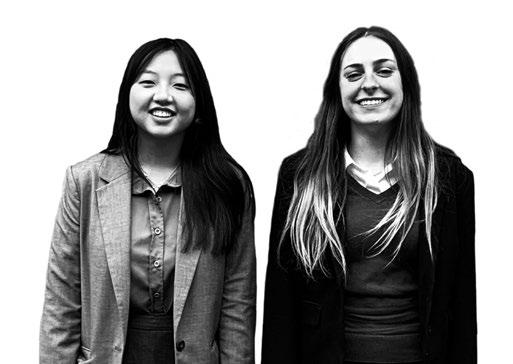
Caterham has been the starting point of many great scientific success stories, but there are perhaps none that we have all felt the impact of quite as much as that of Old Cat Colin Eustace. With an interest in science imparted to him in Caterham School, Colin went on to be a member of the team who discovered the basic chemical building block of penicillin, known as 6-APA; a scientific advance that was used to create a whole new branch of penicillin able to cure previously untreatable infections, saving countless lives and transforming the antibiotics industry.
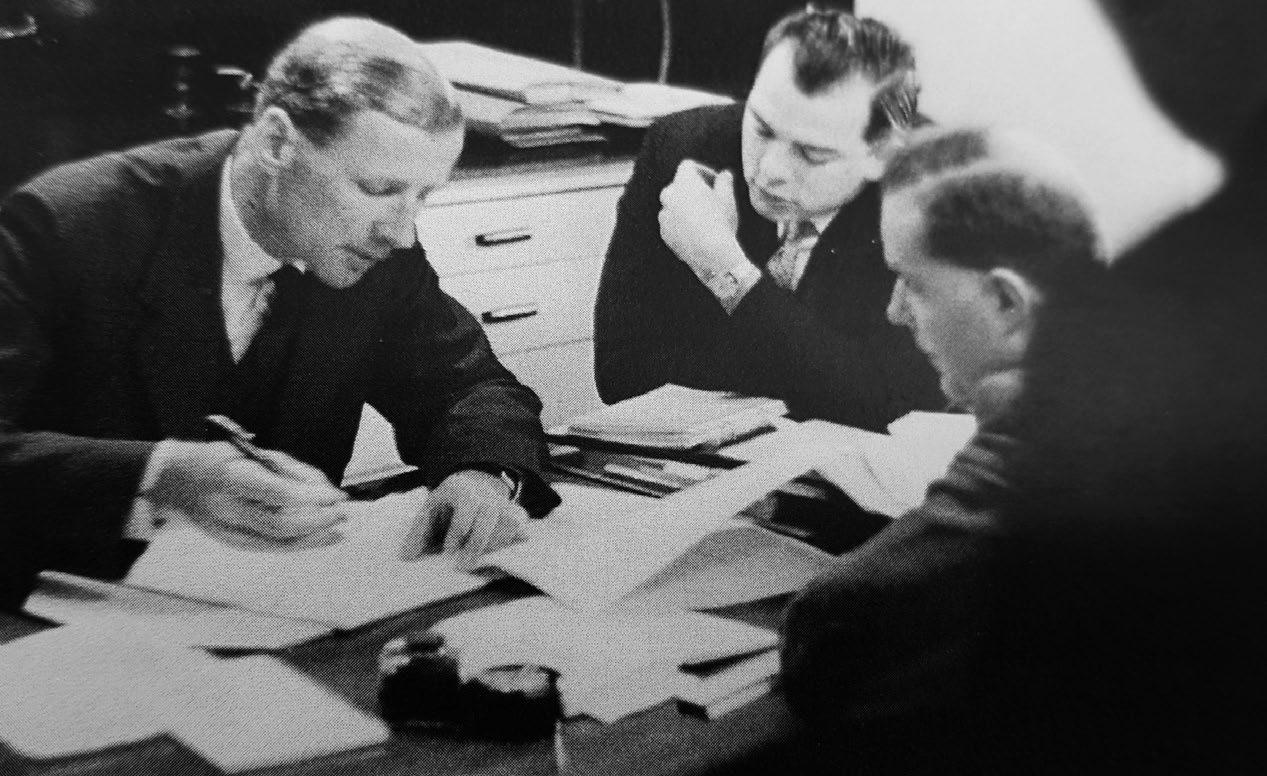
101 OMNIA Issue 09 Autumn/Winter 2021
An interview by Lower Sixth pupils and members of The Wright Society, Rosie Home and Michelle Wong, with former pupil Colin Eustace (OC 1945–1948).
Colin joined Caterham in 1945, having spent time at nine different schools throughout the war. Having received varying levels of teaching over his school career, Colin recalls he “actually learned something at Caterham”, and that it “without a doubt” impacted his future career. He looks upon his time at Caterham fondly; an experience from his school time that Colin recalls particularly is that of a ‘Winter Saturday’, where each Saturday the pupils would focus on a different activity. On one particular Saturday, when he was 14, Colin remembers a hydrogen flame was lit inside a very large drainpipe, and made a sound like a church organ; an experience that perhaps sparked his intrigue in science. Despite this, he never had any particular fascination with chemistry. Instead, Colin took interest in Mechanical Engineering and thus, after Caterham, went on to do a five-year management apprenticeship in motor vehicles and fire engines at Dennis Bros., where his father also worked, followed by two years of National Service in Royal Electrical and Mechanical Engineers, gaining a commission and being promoted to full lieutenant. When his service ended, Colin decided he wanted to create a career for himself away from his father. So, still sporting his military uniform for his duty straight afterwards, Colin decided to go for an interview at Brockham Park, which is where the story formally begins. At the time, Brockham Park was a
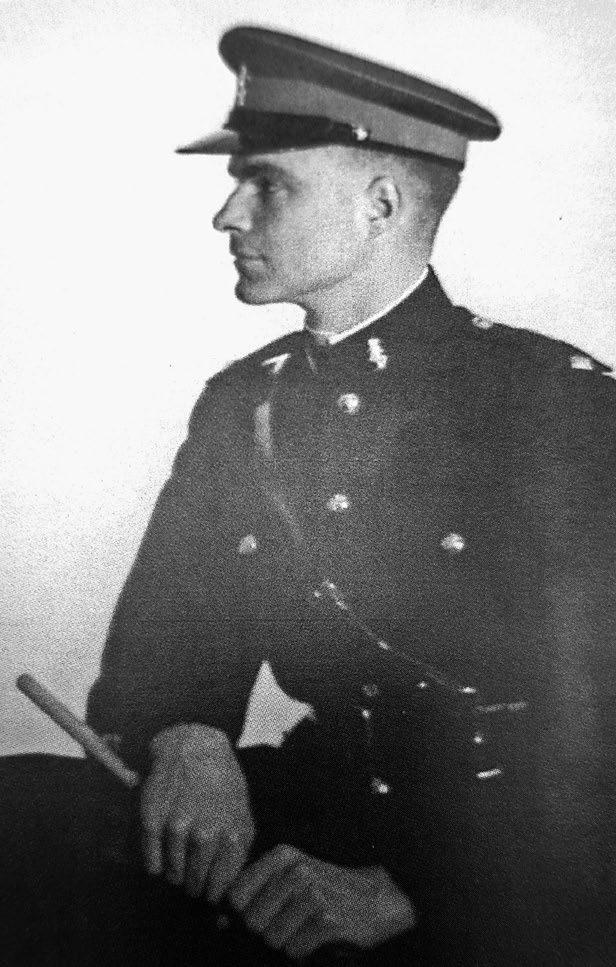
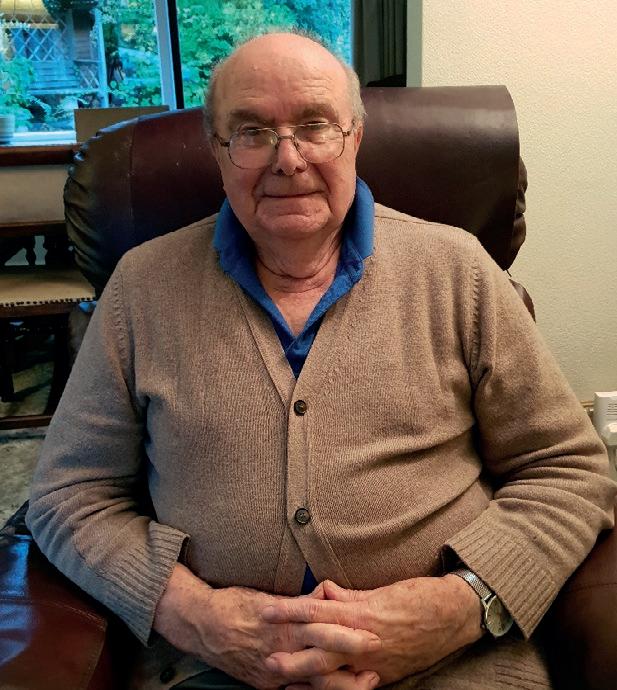
small, mostly unknown establishment, owned by Beecham Pharmaceutical Company (now known as GlaxoSmithKline). However, after the discovery of the 6-APA molecule, which Colin was instrumental in, Beecham and Brockham Park shot to worldwide recognition.
Despite having no experience in chemistry or antibiotics, except for that instilled upon him at Caterham, Colin was offered the job. His role at Brockham Park was helping to build and operate a fermentation plant where they would experiment with penicillin to try and synthetically produce forms of it that could not be derived from the original mould. However, they did not realise until well into this task that there was a key building block that they required for this to take place; 6-APA, the basic primary molecule to which other chemical groups are attached to synthesise penicillin compounds.
Colin’s colleague, Ralph Batchelor, was evaporating a penicillin solution, and the formulation made what appeared under the microscope to be crystals of almost perfectly pure 6-APA. He immediately ran to get Colin to double check it was actually happening, therefore making Colin the second person in history to see the isolated 6-APA molecule in all its glory. Rather
102 caterhamconnected.co.uk
Top: Colin Eustace at home in 2018
Left: Colin (on the right) and the Brockham Team
Right: Colin during his National Service
ironically, this phenomenal discovery occurred only because someone failed to remember to adjust the pH; perfect serendipity. With this discovery, the pharmaceutical industry was able to create almost any type of penicillin they needed, a possibility with an importance that simply cannot be understated.
of 6-APA, and she would have been one of the first people to benefit from it; she would be one of millions to come. This first available drug was Methicillin, which was used to treat penicillin-resistant infections, and saved many lives.
The legacy of 6-APA is vast; it provided a new range of tailored antibiotics with specialised properties, and held off for decades against antibiotic resistances, which were already becoming an increasingly prevalent problem at the time. Furthermore, not only did the isolation of 6-APA result in the direct development of new drugs, but also prompted research into other antibiotics. Many of those reading this will have directly benefitted from this work without even realising; much of the common antibiotics used even today for treating and preventing infections were formed because of this research.
The consequences of his work have been seen in all corners of the globe, but Colin himself can recall the life saving impacts of this molecule that he was able to witness was perhaps the most satisfying part of the whole process. An extraordinary example of this was the saviour of Colin’s daughter’s life when she was a mere two weeks old. She had developed an infection in her knee, which, if left unchecked, could have spread and become fatal, so it was vital she was treated effectively. She survived, having been treated with a version of penicillin that was derived from 6-APA; a drug that would not have been possible were it not for Colin’s work. It was the first commercially available derivative
After the discovery, Colin left Brockham Park and went on to have a successful career in production engineering management, working at various well-known companies, although he admits he always regretted leaving Beecham, and that it was one of the most enjoyable experiences of his life.
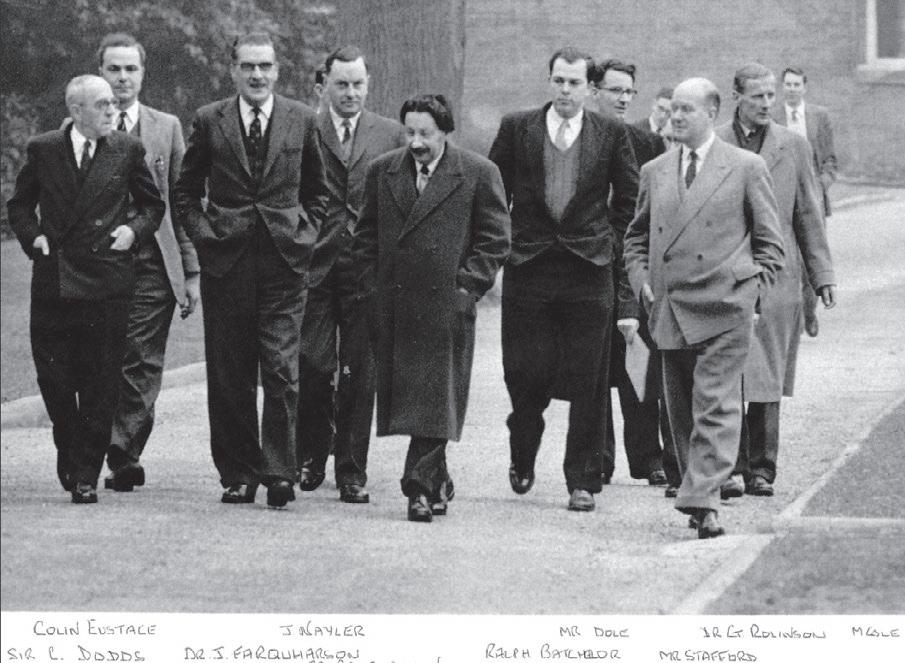
One of the key takeaways from this story, which Colin himself emphasised, is the importance of perseverance. “I was very taken by the then school-motto, ‘Perseverance Conquers All’. In my mind, it means that ‘If at first you don’t succeed, try and try and try again.’ ” If the team at Brockham Park had not persevered with their research, the all-important 6-APA discovery may never have been made, and many lives which have been saved because of that research would have been lost.
There is a full version of this story ‘An Engineer’s Tale of the Isolation of the Modern Antibiotic Industry’ written by his granddaughter Lucy Dyer BSc, MA available on request, just email oldcats@caterhamschool.co.uk
103 OMNIA Issue 09 Autumn/Winter 2021
The consequences of his work have been seen in all corners of the globe, but Colin himself can recall the life saving impacts of this molecule that he was able to witness...
Read about a variety of university courses and apprenticeships from recent leavers
You can find more Why Study interviews from previous issues in the Media Hub at caterhamconnected.co.uk
The Caterham Connected platform also enables you to contact OCs from universities across the UK and even worldwide.
104 caterhamconnected.co.uk
TECHNICAL THEATRE AND STAGE MANAGEMENT AT ROYAL ACADEMY OF DRAMATIC ART (RADA)
GRADUATE
By Cameron Affleck (OC 2015)
WHY?
Theatre has always been an escape for me – I am not a particularly academic person, and I had a limited interest in sports. I was fortunate to be at Caterham, but I felt a bit out of place when next to some of my extremely intelligent peers. Louise Fahey and Tom Richards (Head of Drama and Theatre Technician, respectively) showed me that I could study technical theatre and achieve a qualification, instead of the ‘fake it until you make it’ approach I had previously believed was the only way to exist in theatre.
WHERE?
I would be lying if I said RADA’s international reputation did not have something to do with it! The course introduced first year students to all aspects of technical theatre: props, lighting, sound, video, wardrobe, scenic art, stage management, and construction. In second and third years, students could specialise in at least one chosen discipline. Some other courses specified that students should specialise from their first year, whereas I think RADA’s approach produces a better individual by the end of their training: you can sympathise with another department because you had been there yourself. I also preferred RADA’s hands-on training rather than some of the other drama school’s more theoretical approach – RADA provided a solid base of theory, but then allowed students to apply that learned theory in a real-world scenario.
ANY CLUBS/SOCIETIES?
RADA does not have many, if any, clubs or societies to be a member of. This is primarily down to the hours students are expected to be in the building. The course tries to be representative of the hours required in the industry; some days are 8-hours, but most are 13-hours. The only spare time students have is spent in the pub or attempting to meet industry contacts (coincidentally also in a pub).
WHAT’S YOUR ADVICE?
Have fun. You have chosen to train in the entertainment industry. The entire industry thrives on making the impossible possible. Regardless of whether the audience is an audience of twenty, two thousand, or two million, your work will be seen!
Make time for yourself. The hours can be long, and the days can be hard. If you do not look after yourself, you will crash.
Grab every opportunity as you do not know where it will take you. The skills you learn at drama school are transferable across all sectors of the entertainment industry – you are not a one trick pony.

AFTER YOUR DEGREE?
Since leaving RADA in 2018, I have worked as a Lighting Technician at the Royal Court Theatre, in Sloane Square; at the English National Opera, in Covent Garden; and at the National Theatre, on the Southbank. I currently work as a Lighting Programmer in the TV and Film industry and have worked on television and features such as The Nevers, Pinocchio, and Text For You. I am currently working on the Game of Thrones prequel series, House of the Dragon
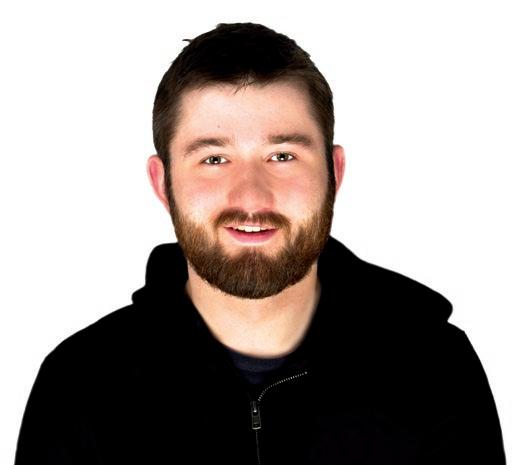
105 OMNIA Issue 09 Autumn/Winter 2021
WHY?
I knew I always wanted to pursue a biomedical sciences related degree but when I saw this course, I loved the specialist nature of it. Immunotherapy is at the forefront of cancer research and in my opinion is the future of cancer therapy, so getting to study both these fields in relation to each other was a perfect fit for me. I’ve done two main research projects as part of my degree. Last year I studied a potential new target for immunotherapy in childhood acute lymphoblastic leukaemia, and this year as part of my Masters’ year, I have looked at the link between type II diabetes and colorectal cancer and how insulin levels may influence the onset and progression of colorectal cancer. This past year, in the final year of my MSci we have also had the opportunity to learn more about commercialised science and drug development, which I think will equip me with useful skills after university.
ANY CLUBS/SOCIETIES?
Throughout university I have been a member of Bristol Improv, Bristol University's Improv Comedy society. I really love improv because of the freedom it gives me. I've done several shows where the audience puts forward suggestions for storylines and we have come up with all sorts of things on the spot which we then fabricate into a short narrative play. It's a great space to be free and use your imagination because you can literally make up any scenario you feel like and bring it to life no matter how ridiculous it is. It's also a great exercise in learning to trust your fellow cast mates and think on the spot, as well as build on their ideas, which really is a very applicable skill to real life too!
CANCER BIOLOGY AND IMMUNOLOGY AT THE UNIVERSITY OF BRISTOL
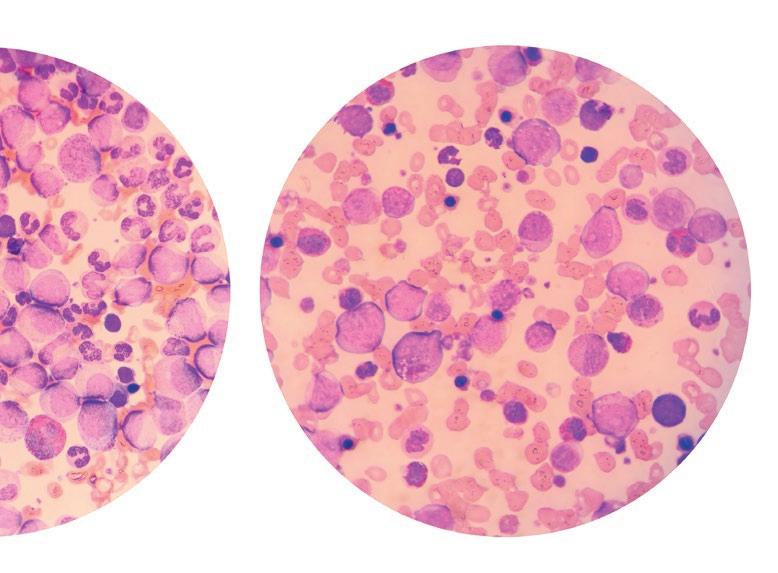
FOURTH YEAR
By Aimee Egglesfield (OC 2017)
WHAT’S YOUR ADVICE?
My biggest advice would be to go to all the open days of the universities you are interested in before making any decisions. It's so important to make sure you feel like you could see yourself in the place where you could potentially be studying for at least three years, and the only way to do that is to get a good feel for each place in person.
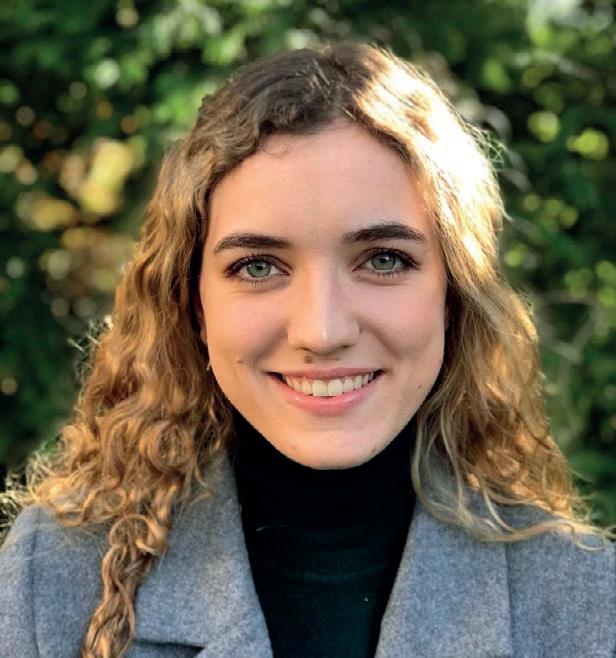
AFTER YOUR DEGREE?
I would really like to continue working in a similar field. I would love to potentially work for a biopharma start-up, or possibly go into sales or marketing for a pharmaceutical company. I am excited to enter the working world and see what opportunities are in store.
106 caterhamconnected.co.uk
BUSINESS MANAGEMENT AT KING’S COLLEGE LONDON
FIRST YEAR
By Sabrina Mak (OC 2020)
WHERE?
I definitely knew I wanted to study in London as it is a place that has an amazing social life and is full of diversity and culture. As the capital, London also has numerous opportunities to network and work, which really attracted me as I wish to settle here after I complete my business degree. Even though there are many good universities in London, King’s College stood out to me the most. The course is extremely flexible, such as in second year, I am able to choose what modules I would like to study, and the university allows you to specialise your degree, whether it is a specific part of business such as entrepreneurship/ sustainability or even concentrating on a language such as French or Spanish. Apart from the degree itself, King’s also offers a range of student work experience and in-campus jobs, which is a great way to meet other students while also gaining semi-professional experience.
ANY CLUBS/SOCIETIES?
I am a member of The Fashion Society, Women in Business & Finance and the Real Estate Property Society. Even though there were not a lot of events happening due to the pandemic, I was still able to meet lots of new people, which was quite daunting even pre-COVID. These societies were wonderful experiences as this was how I made most of my friends at university. Through them, I was also able to gain more knowledge in their respective business fields, such as having guest speakers discuss their experience and understand what it is like working in that specific industry, as well as participating in insight programs, where I learnt more about the industry itself. Additionally, I also joined KCL’s arts and culture magazine – Strand, as a member of their marketing and advertising team. I decided to join the magazine society due to my contribution as visual editor for Cat Among The Pigeons 2019 Edition, which actually sparked my interest towards continuing this combined type of marketing, journalism, PR and advertising work.
WHAT’S YOUR ADVICE?
WHY?
Although I am still uncertain as to exactly what I want to do in the future, I decided to study business management at university as I knew I would want to work in a marketing and advertising/PR related industry after I graduate. Initially I wanted to study fashion marketing, however I felt it might be limiting as it’s a niche subject and the fashion market is a very challenging and competitive industry to break into. With the advice of Mrs. Brown and my tutor, Mrs. Webster, I recognised that a business management degree provides not only strong academic and theoretical knowledge, but also a breadth of practical and disciplinary skills that will allow me to branch out into different areas of business, such as finance, operations and marketing. In addition, a business degree can help me improve and develop a range of skill sets, such as communication, problem solving and project management, which are all essential to the business world as well as for an individual to thrive in this industry.
My advice for future university students is to think about what you truly want to do and whether you are willing to commit to it. If you end up not enjoying your course at university, then it is not worth wasting your time completing 5,000 word essays. First year is the best opportunity to sign up to different societies/clubs, as it is the easiest way to make new friends and meet new people outside your course. Last but not least, I recommend discussing your course options with your teachers, as they know your learning habits best and they will be able to make informative and sensible suggestions for your future university education.
AFTER YOUR DEGREE?
I am hoping to pursue a Masters in either fashion management or real estate, as these are the two career paths I currently have a strong interest in. If plans change and I decide not to suffer through another year of school, I hope to work for magazines such as Vogue and Harper’s Bazaar in their marketing/PR department.
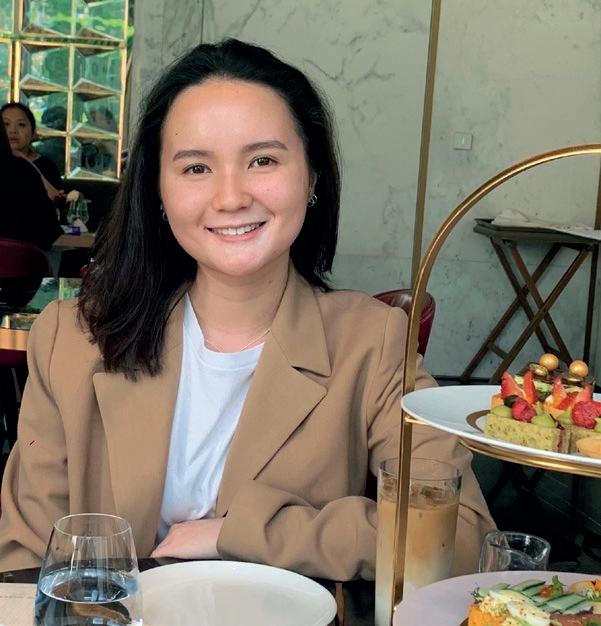
107 OMNIA Issue 09 Autumn/Winter 2021
PROJECT MANAGEMENT FOR CONSTRUCTION AT UCL
SECOND YEAR
By Theo Wright (OC 2019)
WHY?
Project Management for Construction is all-encompassing despite the name. It gives practical skills and tends to land you some pretty interesting roles, both in and outside of construction. On the program you dive deep into economic theory, important areas of law whilst in other modules you’re finding how to bring us practically out of this climate crisis and get equipped to bring successful people management skills to firms and institutions that desperately need it.
I wanted to find a degree that taught practical, quantifiable skills whilst capitalising on my love for engagement with people, and finding solutions to complex problems. Working within a team and coordinating to create successful outcomes is something I love to be a part of, and with project management you’re leading that process all the way through. It was a scary prospect to apply for something which wasn’t cut and dry like history or politics since that’s what everyone else was doing, but I’m glad I made the jump as it was what I hoped for – and speaking to others who are working towards an RICS accredited degree they feel the same.
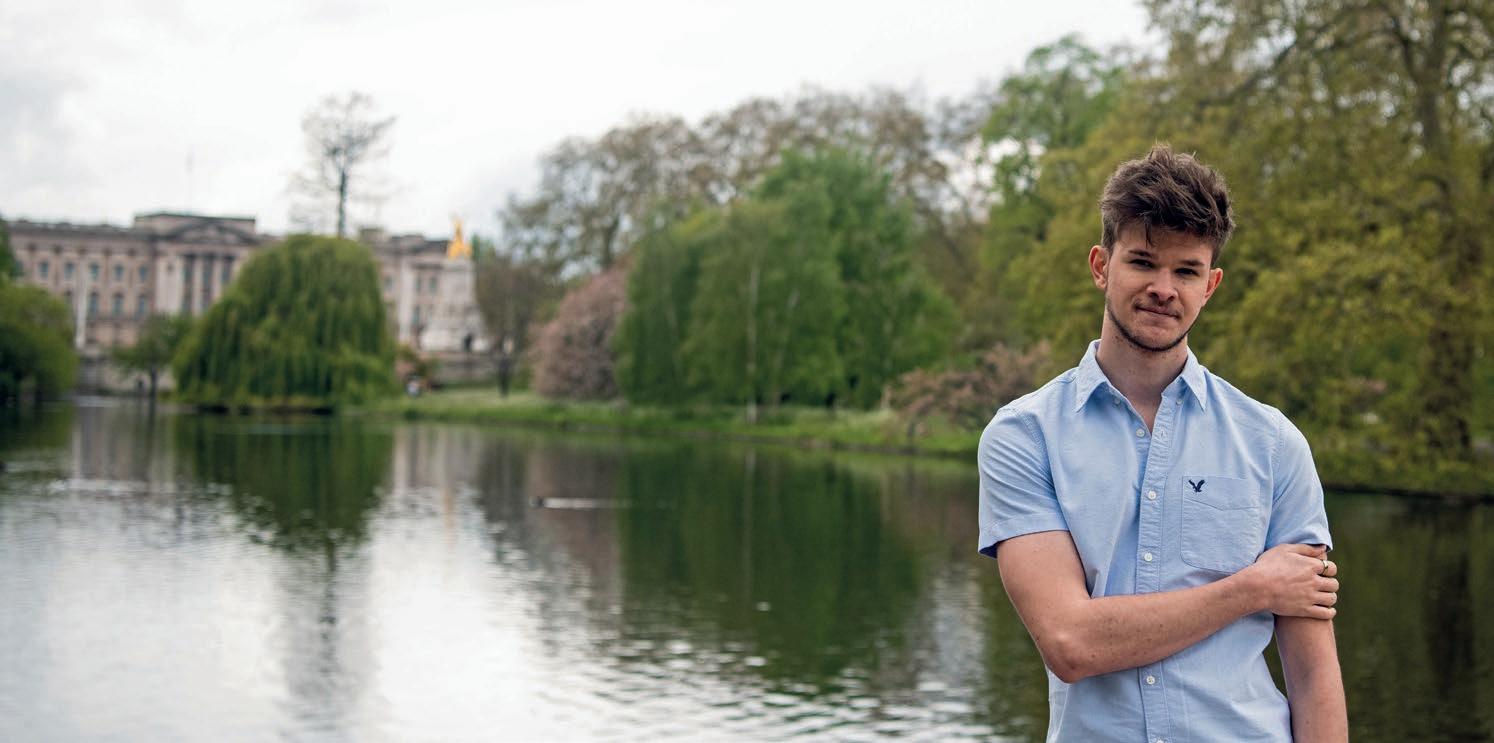
WHERE?
After receiving an unconditional offer to study Real Estate at Oxford Brookes I thought I’d put it as first choice since that would take the pressure off, but on results day I got the results I needed to get into my offer at University College London (UCL) for the Project Management for Construction BSc and they managed to get me in through adjustment after a few phone calls. I visited the very next day, and it was safe to say I felt right at home. Centre of the city, heart of the industry and a pretty vast array of facilities provided by the university.
ANY CLUBS/SOCIETIES?
Officers’ Training Corps where I have spent time as an Officer Cadet. This is an Army Reserve unit exclusively
for university students in which you are taught soldiering skills by those who previously served. As well as this, you’re able to take part in a range of activities like formal dinners, biking, sailing, hockey, netball, rugby, horse riding and with annual exercises to places like the Alps and Gibraltar (which sadly got cancelled this year for me because of COVID) all whilst getting paid! I attend one night a week on a Wednesday and then occasional training weekends, all whilst getting to know students from across the London Universities. There’s no signing your life away so don’t worry, if you don’t want to be in the army after university, you’re good to go. Outside of the reserves, I’m the Faculty representative for Undergraduate programs in the Bartlett School which has kept me fairly busy also.
WHAT’S YOUR ADVICE?
Make sure you try and explore different avenues and ensure that university will be right for you. I’m glad I picked a program where I can see where exactly it is the things I am learning applies to because that’s really what drives me. Things like apprenticeships/degree apprenticeships are a good start, since there are loads of fantastic opportunities out there which you may not have even realised. University is a lot of fun, just make sure you throw yourself into the deep end at every opportunity and you’ll love it even more.
AFTER YOUR DEGREE?
I’m taking a placement year at a construction and property consultancy in central London who is currently undertaking project work on HS2, the Google HQ and Thames Tideway. I’m super excited to get going and will likely continue on to do my Assessment of Professional Competence with the RICS after I’ve completed my degree. Perhaps not straight after my degree, but once I can pick my work I hope to be able to manage projects in sustainable and affordable homes across the UK as this is something I’m particularly passionate about.
108 caterhamconnected.co.uk
THE LONDON SCHOOL OF ECONOMICS AND POLITICAL SCIENCE (LSE)
FIRST YEAR
By Max Hristov (OC 2020)
WHY?
My interests were dual as I entered Sixth Form. On one hand, I was fascinated by policy making and what actions those in power can take to improve the world. On the other hand, I always enjoyed maths and sought to find a course that would utilise quantitative methods. After considering my options and the advice of the extremely helpful advice of the Schools’ staff, I settled on economics.

WHERE?
I was inspired to apply for Cambridge by the plentiful talks the School provided and seeing my friends from the year above go through the process. The academic prestige of Oxbridge was highly appealing to me. I secured an interview, but my application was unsuccessful. However, the work I put in and the help I got to make a strong application from the Schools’ Oxbridge program made my application strong enough to secure me a place at the LSE, my second choice. In retrospect, I strongly believe that this was a blessing in disguise –; my course is a lot more flexible than the rigid Tripos Cambridge offers, and the quality of teaching is of the highest level.
ANY CLUBS/SOCIETIES?
I rediscovered my love for competitive tennis and made the Men’s First Team. On the academic side, I attend discussions organised by the Philosophy Society and keep my eyes peeled for any big talks organised by other societies, like the ones given by Ursula Von Der Leyen, the president of the European Commission, or Ralph Schlosstein, the former CEO of the investment bank Evercore. The achievements of guest speakers are outstanding and I always remind myself how fortunate I am to be able to see them speak. Of course, the pandemic has posed a challenge to live talks and socials, but I hope I will be attending more events in person next year.
WHAT’S YOUR ADVICE?
My piece of advice is ever-so-slightly cliché, but it would be to stay curious and explore topics outside the curriculum. Particularly in the social sciences, one often studies problems that have a direct application in the real world. The best way to see where your true passion lies is to stay up to date with the news and read books about your subject. This will not only help your application, but make you a more well-rounded educated person. It was through literature that I understood the depth and importance of my subject, and I am certain I would not be where I am if I merely stuck to learning about economics during school hours.
AFTER YOUR DEGREE?
The LSE, particularly for economics-related courses, is often stereotyped as a place you want to attend if you want to work in finance. Even though most of the other people on my course are settled on a career in investment banking, I am keeping my choices open. The applicability of my course opens up doors in many careers, and I’m considering a Masters degree as well. What I strive for more, is how I can spend my time at university optimally and what I can achieve in the present, rather than years into the future.
109 OMNIA Issue 09 Autumn/Winter 2021
ECONOMICS
PSYCHOLOGY AT THE UNIVERSITY OF SURREY
SECOND YEAR
By India Barton (OC 2019)
universities offer a placement year, at Surrey the majority of students take this opportunity (at least certainly for psychology), which means you can still graduate with your friends, and it is a great chance to gain work experience. Surrey has good connections with a variety of different organisations and institutions and hearing about some students’ experiences at the open day was the deciding factor for me.
ANY CLUBS/SOCIETIES?
For the last two years I have been the Support Coordinator for Nightline, a voluntary student run listening service on campus. In that role I was responsible for the welfare of the volunteers and general running of the service alongside the rest of the committee. This has been the most amazing and rewarding experience. I originally wanted to join the Samaritans, but this was the perfect alternative for me as it meant I could give back to the university community and meet other like-minded students. It has also been a great learning experience, especially as a psychology student, and the skills I have learnt from this definitely helped me get my placement.
WHAT’S YOUR ADVICE?
My advice for students who are looking at universities is to go with your gut. It can be easy to get swept up in league tables and statistics (all of which are still important) but it really comes down to where you feel that you could live for the next few years and where you would be the happiest.
AFTER YOUR DEGREE?
WHY?
I always knew I wanted to study psychology at A Level and it is because I enjoyed it so much and found it so interesting that I decided to study it further. At points during my Sixth Form, I considered taking any of my A Level subjects as a degree, but I settled on psychology after doing more research and attending open day talks. I was a little nervous about the idea of taking a science and in particular about the statistics aspect of the course. However, I was greatly reassured by the psychology students I met at open days and so applied to study psychology, and I am so glad I did because I have loved it.
WHERE?
I chose to study at the University of Surrey mainly because of their amazing placement programme. As I wanted to take a course accredited by the British Psychological Society and often such courses are very similar as they have the same basis and often students don’t have much choice in the modules they take until their final year. So, after looking at module options and lecturer’s research profiles it was actually the placement year that was a deciding factor for me. Although many
I am actually about to start my placement year at a trauma clinic in London for refugees and asylum seekers with PTSD and I am so looking forward to this experience! I am hoping that I will learn a lot from this and that it will confirm my thoughts that I do want to go into mental health or clinical psychology. So hopefully I will be able to gain some more experience in this area after my degree, for example as an assistant psychologist and then potentially I will go into further study.
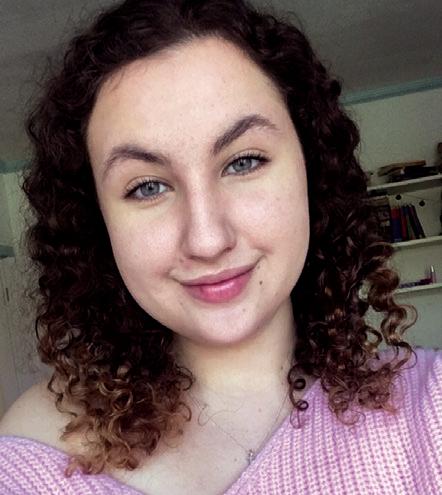
110 caterhamconnected.co.uk
OBITUARIES
Due to an unprecedented year of disruption, we are sad to say farewell to so many Caterhamians and our condolences and thoughts are with those who loved them.
Here are a few of those of whose passing we have been advised, you can read full obituaries for Caterhamians on the Old Caterhamians’ Association website In Memoriam section: oldcaterhamians.com/our-community/in-memory
If you would like to share memories or photos of your friends and family on the In Memoriam page of the website, please email oldcats@caterhamschool.co.uk
IN MEMORIAM
Biddiscombe, Emma (OC 2011 – 2016)
Crook, Martin (OC 1945 – 1952)
Dell, Christine (Former OCA Secretary)
Horsnell, Derek (OC 1947 – 1953)
Ireland, Graham (Former Teacher)
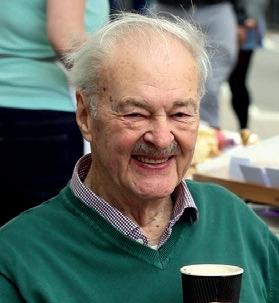
Kearney, Judith (Former Teacher)
Patrick, Charles (OC 1998 – 2006)
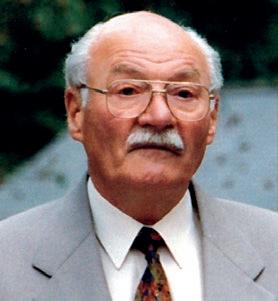
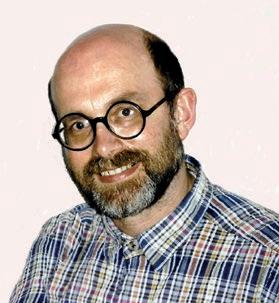
Patten, Richard (OC 1965 – 1971)
Soloman, Jasper (OC 1941 – 1948)
Watkinson, Peter (Senior Vice-President of the School, Foundation Member, Former Trustee)
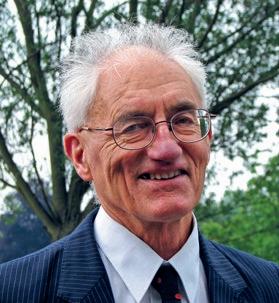
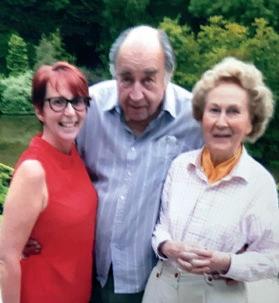
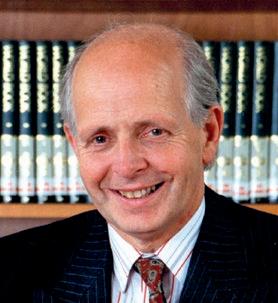
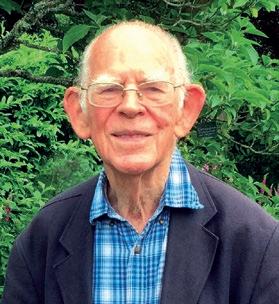
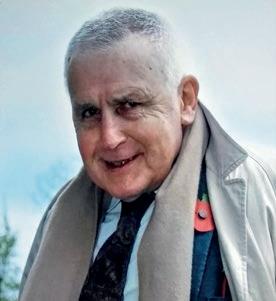
111 OMNIA Issue 09 Autumn/Winter 2021
Bates, Roger OC 1959 – 1966
Beaton, George Former Bursar
Bleach, John Former Teacher
Calviou, Peter OC 1943 – 1947
Bridge, Jack OC 1942 – 1945
Evans, Brian OC 1942 – 1952
Fendt, R.S. Maxwell OC 1949 – 1956
Griffin, Roger OC 1946 – 1954
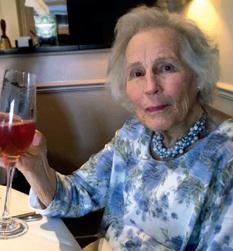
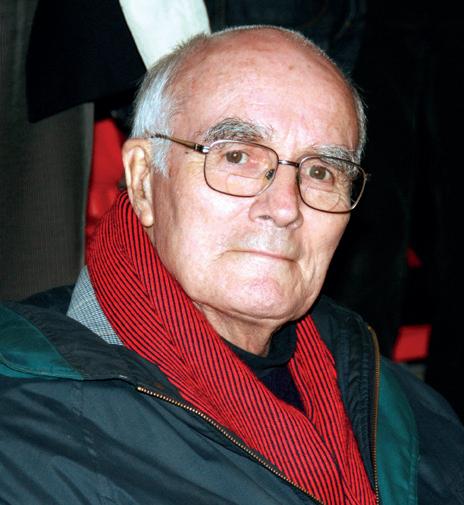
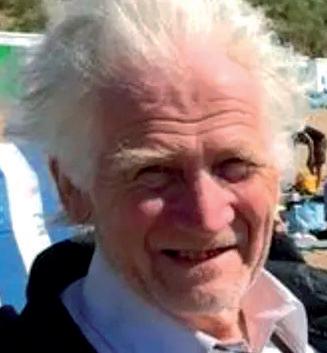
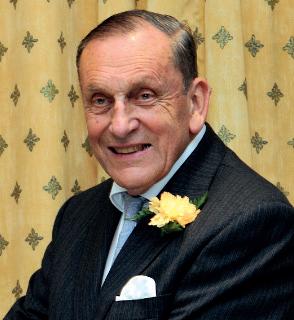

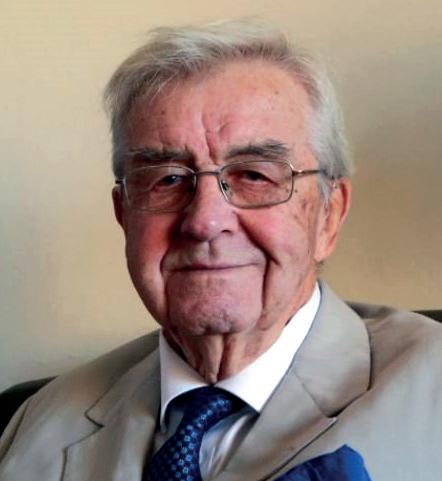
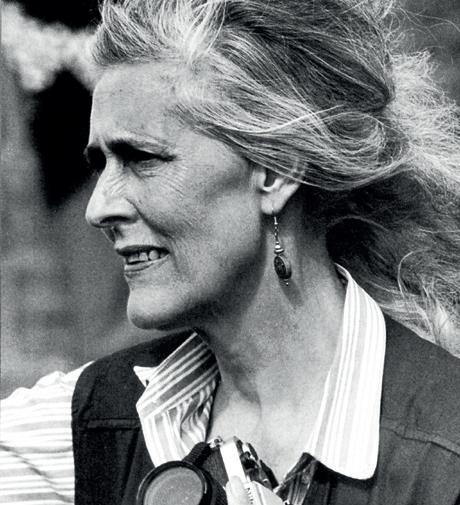
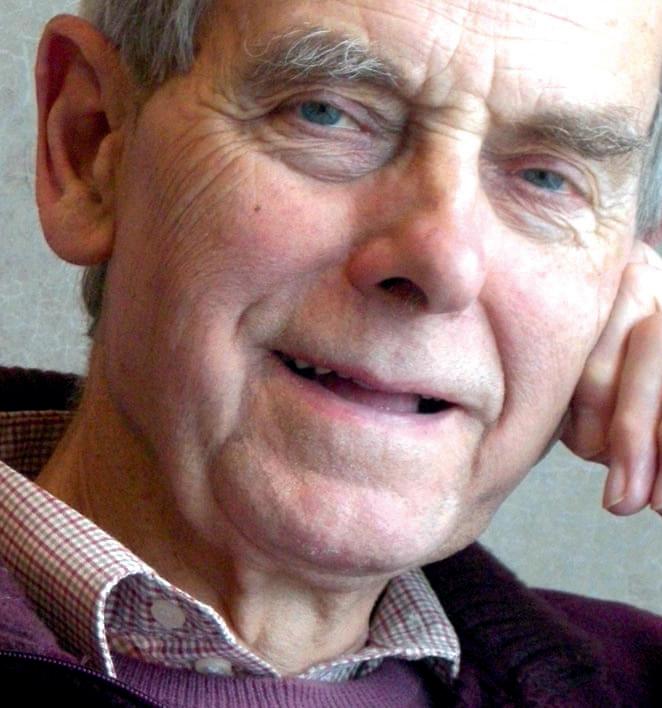
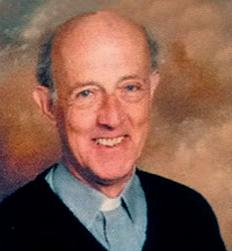
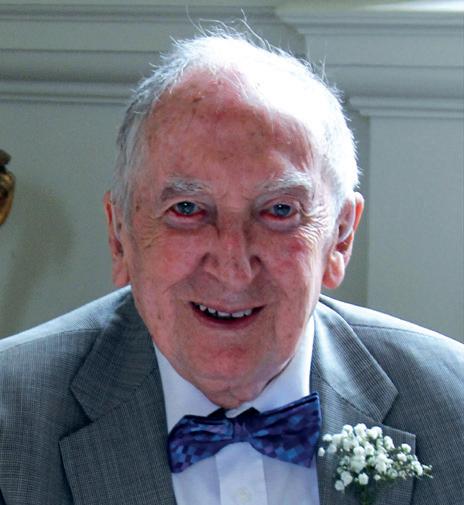
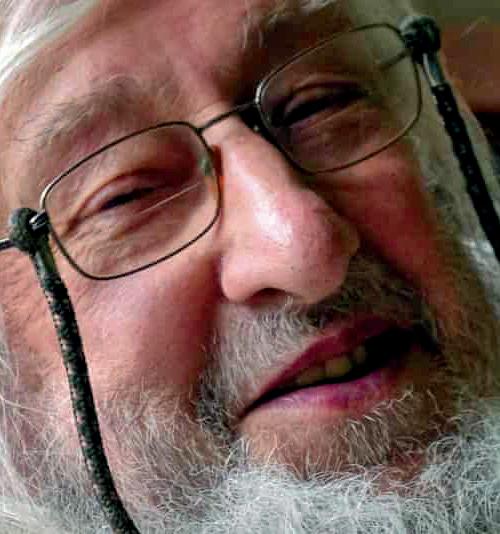
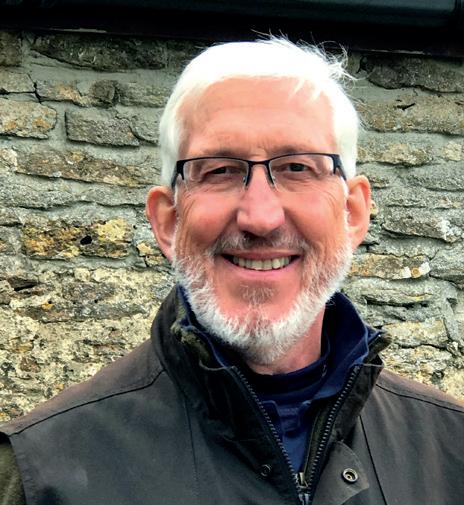
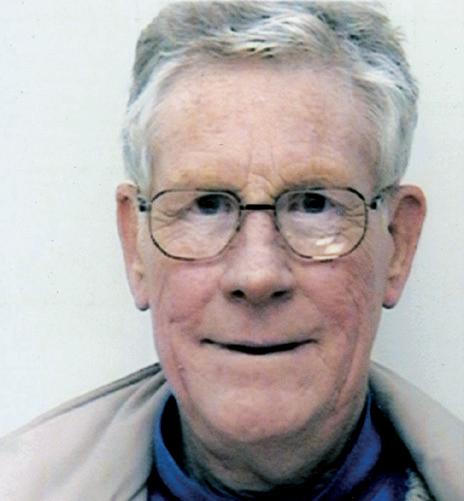
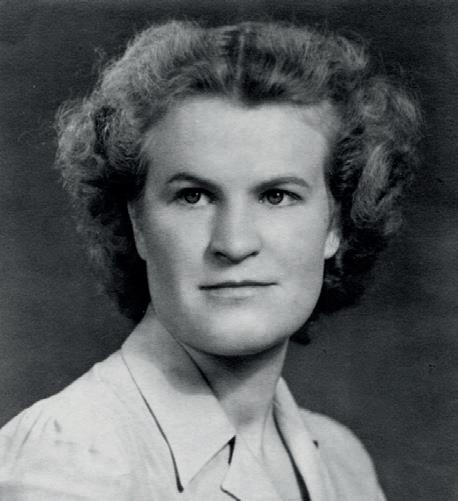
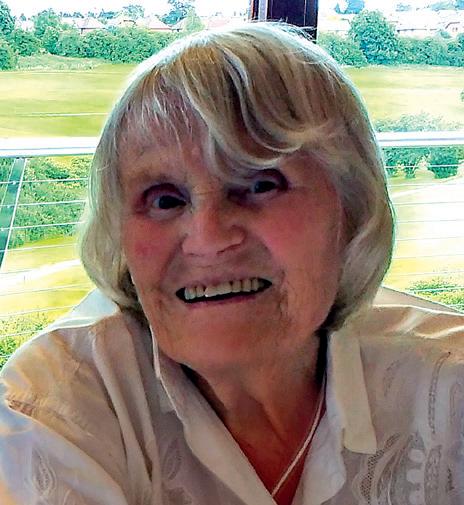
112 caterhamconnected.co.uk
Heber, Nina OE 1942 – 1947
James, Edward OC 1943 – 1947
Hepburn, Matthew OC 1950 – 1954
Johnson, Dennis OC 1944 – 1951
Richards, Iris (née Jones) OE 1936 – 1941 Honorary EOGA Chair
Lindsey, John OC 1939 – 1944
Robertson, Grace OE 1946
Salmon, Graham OC 1942 – 1950
Stevens, Martin OC 1945 – 1954
Wakely, John OC 1938 – 1944
Maltby, John Former Teacher
Mortimer, John OC 1965 – 1972 Foundation Member
James, Anthony OC 1939 – 1944 Foundation Member
Hamblin, Wendy (née Spence) OE 1933 – 1945
Wilson, Sheila (née Spence) OE 1934 – 1946
inspiring education
Caterham School would not exist without the vision and generosity of its first benefactors. They believed that all children should be able to reach their potential no matter what their background.
An outstanding education has the power to transform lives – the lives of the individual child and of their family and wider community. We all benefit from this.
Members of our own community know how truly unique a Caterham School education is. Caterhamians achieve a bright future through outstanding academic and co-curricular success gained at school. Beyond these measurable

outcomes though, Caterhamians share a set of values and a common purpose which runs through the generations – built on self-confidence, self-awareness, resilience and strength, and a belief in the power of community.
Most of us could never afford to support a full bursary singlehandedly, but as a community we can. If you share our vision of making a difference through outstanding education, please consider making a donation, at any level, to the Caterham School Transformational Bursary Fund.
School is a registered charity (no. 1109508)
113 OMNIA Issue 09 Autumn/Winter 2021
Caterham
Ceri Jones Headmaster
The Caterham School Transformational Bursaries Appeal
“Great indeed are our opportunities, great also is our responsibility”
William Wilberforce Founding Benefactor, Caterham School
Coming to Caterham School was life-changing and character-building. It helped open my eyes to the world and gave me the confidence to feel capable in my own abilities. I didn’t know how things would work out when I arrived, but good things came from it. Hard work pays off and being at Caterham School opened many doors for me.
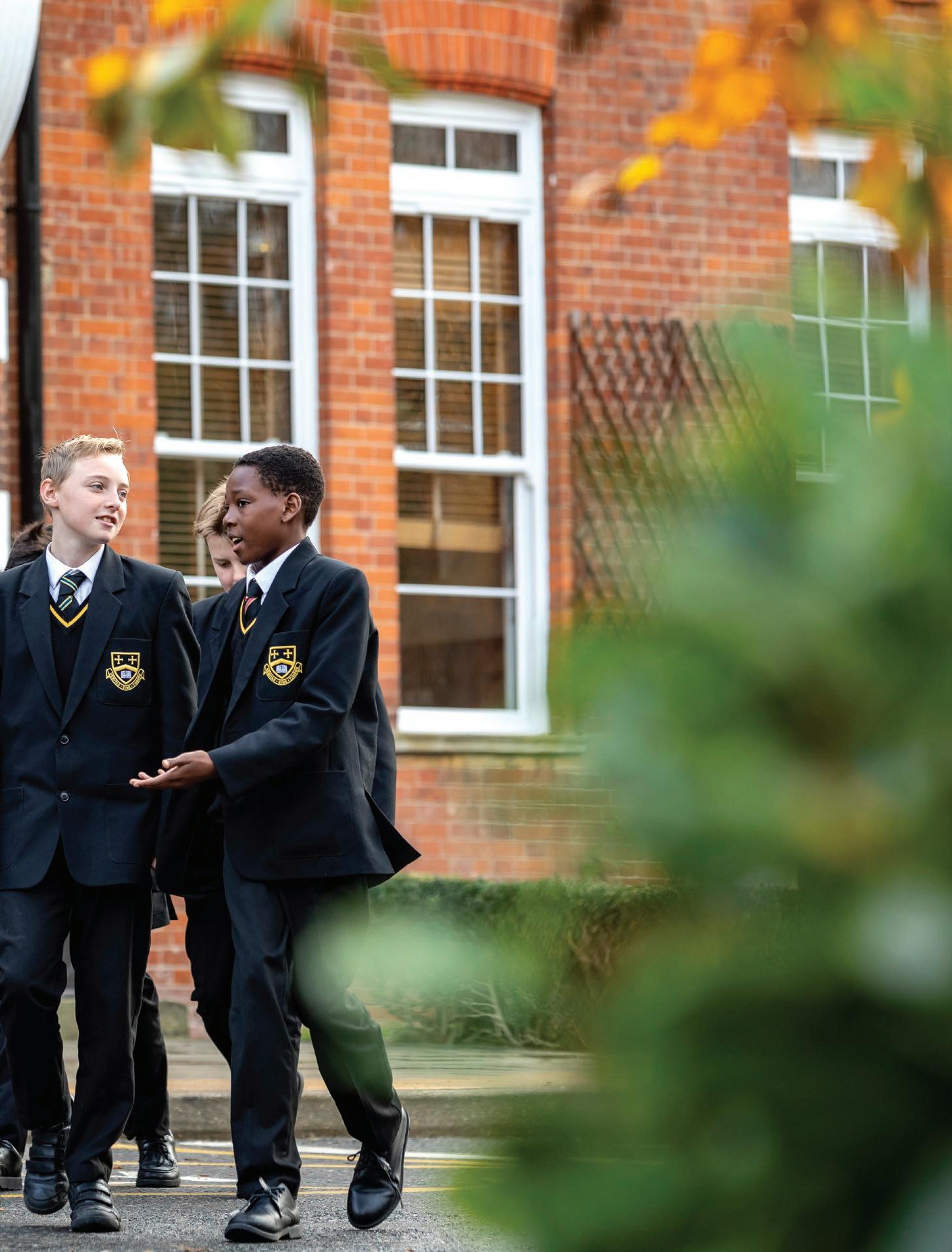
If you would like more information, to make a donation or to discuss other ways to help the School, please contact Emma Collings, Director of Development: development@caterhamschool.co.uk 01883 335111
caterhamschool.co.uk/ support-us
114 caterhamconnected.co.uk
Former pupil and Bursary Fund recipient
Caterham School
Harestone Valley Road
Caterham
Surrey CR3 6YA
caterhamconnected.co.uk







































































































































































































































 By Colin Bagnall (OC 1949–1955), the School Archivist
By Colin Bagnall (OC 1949–1955), the School Archivist

















































